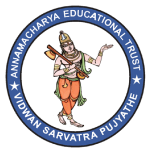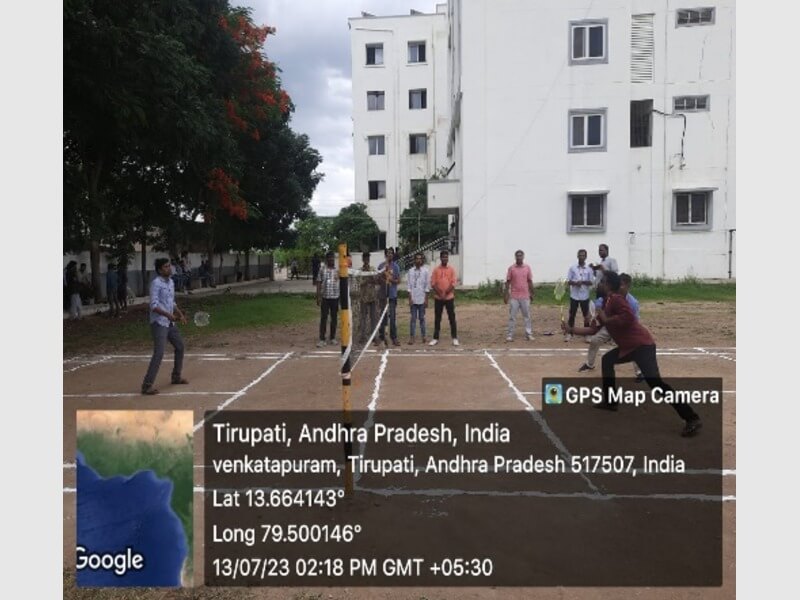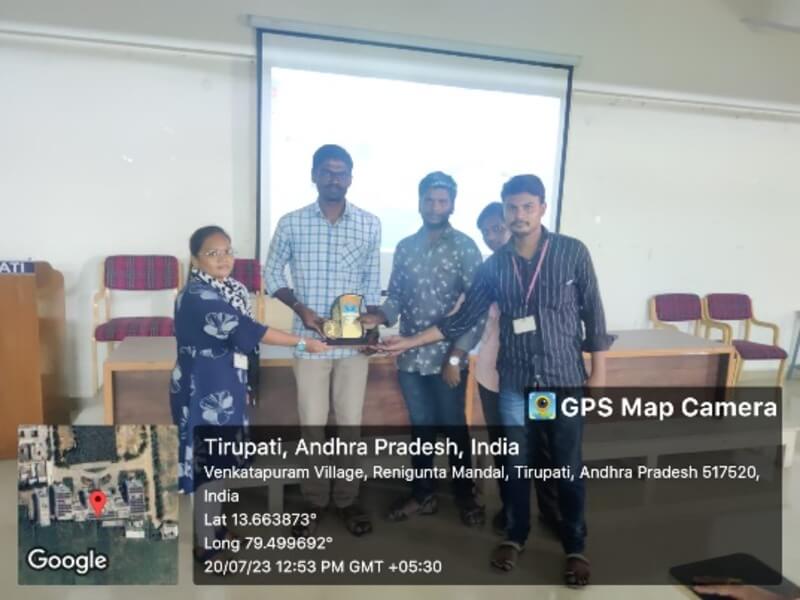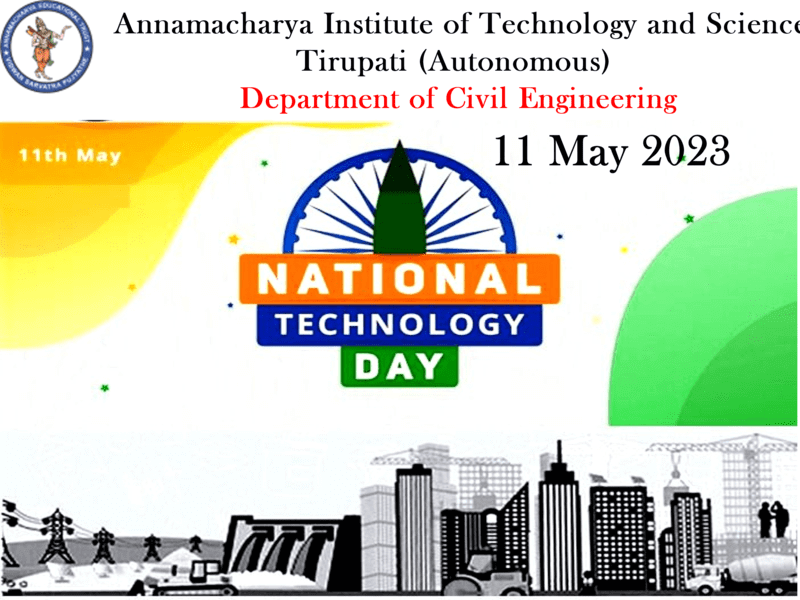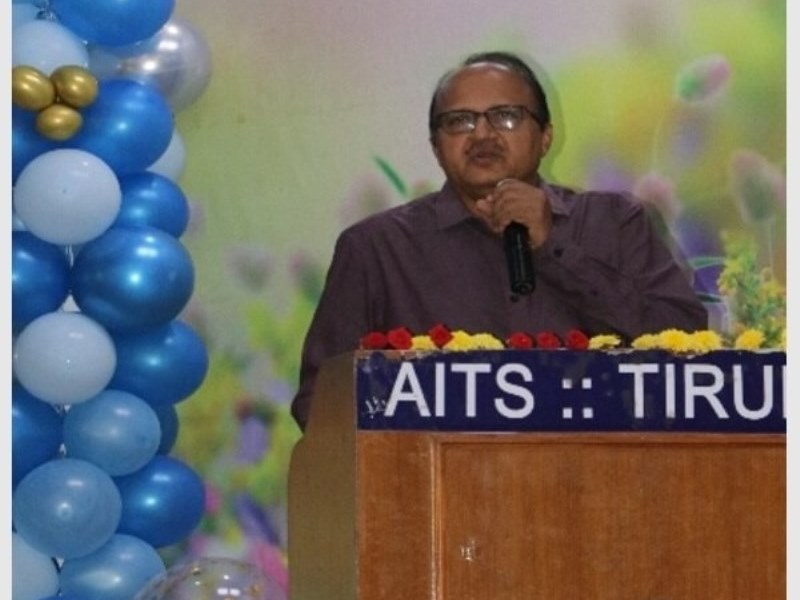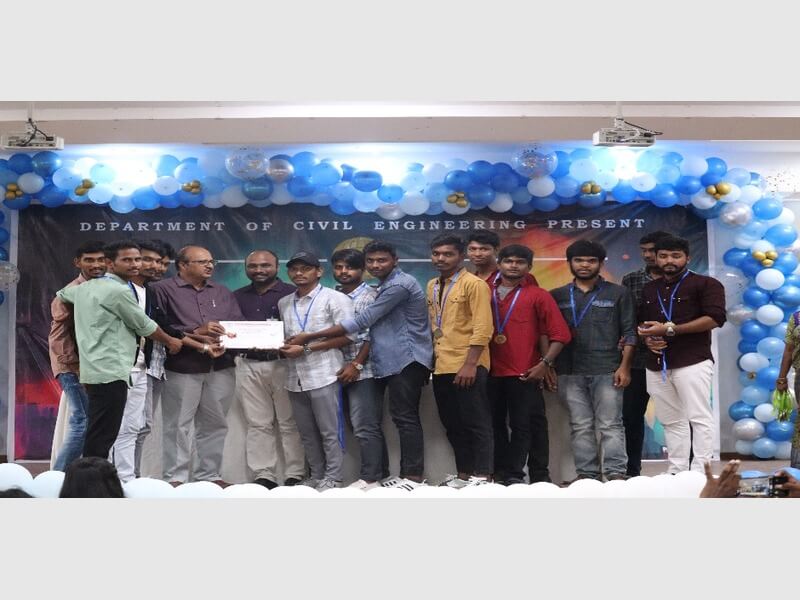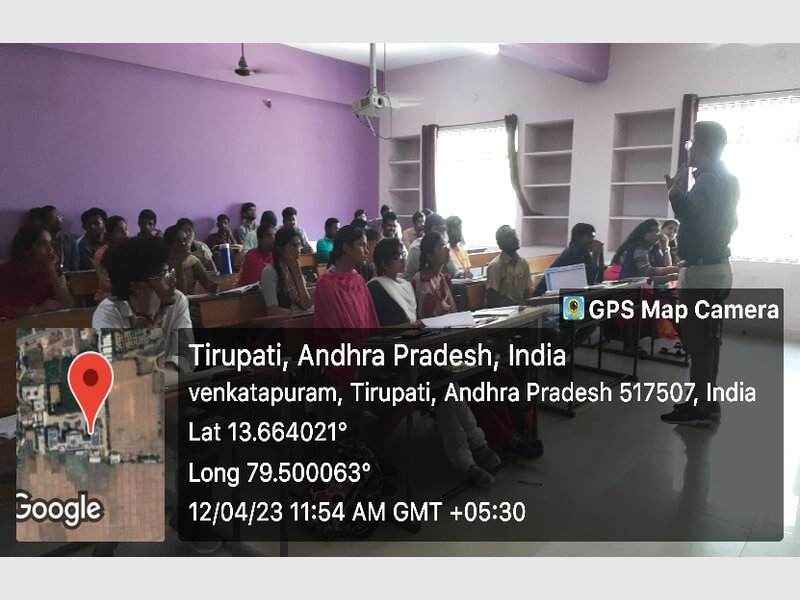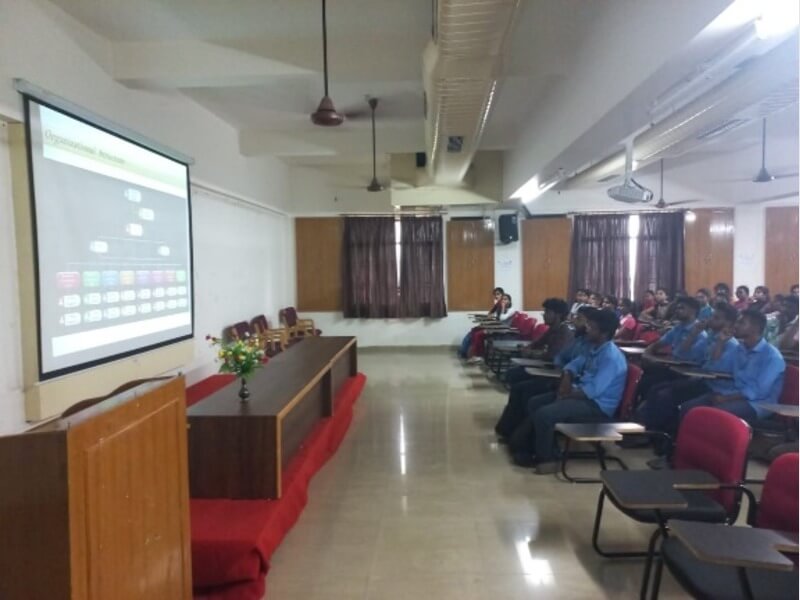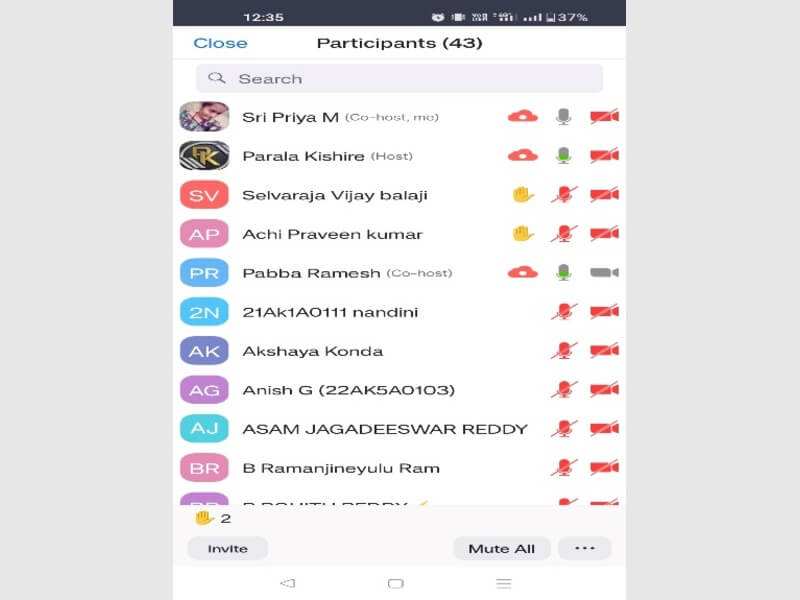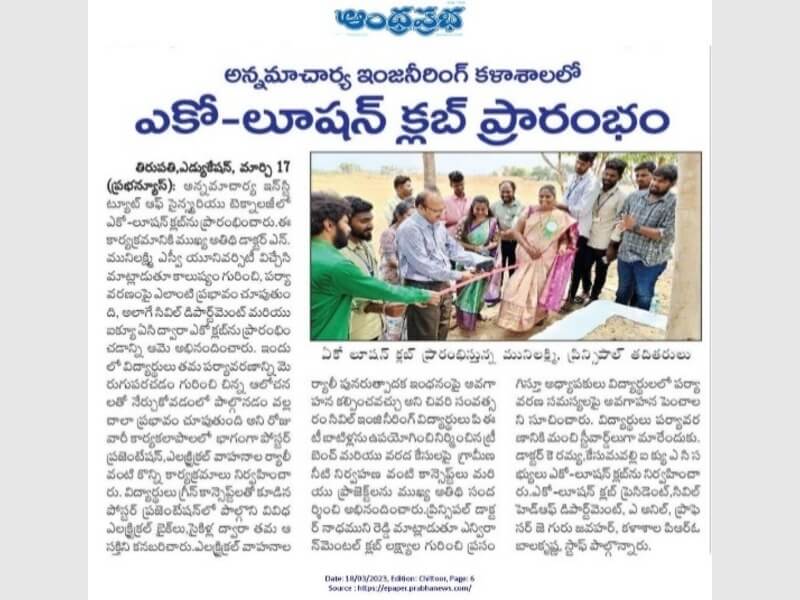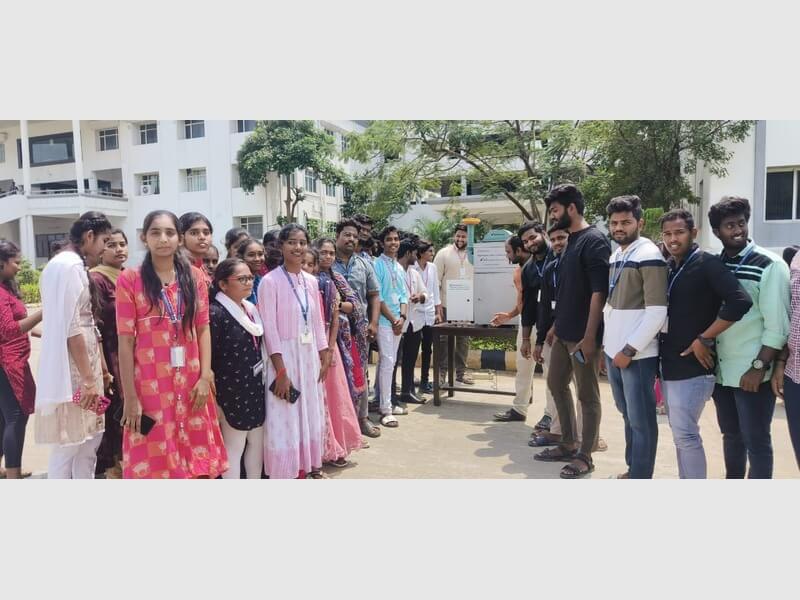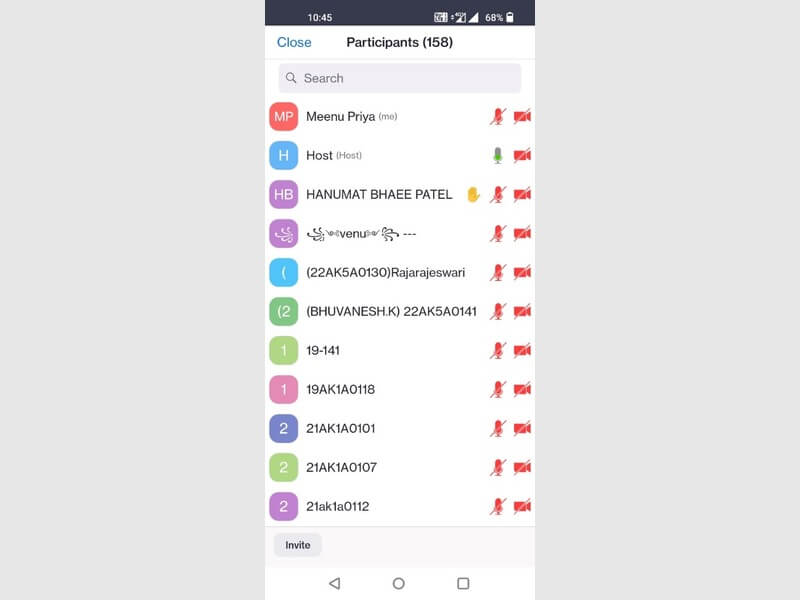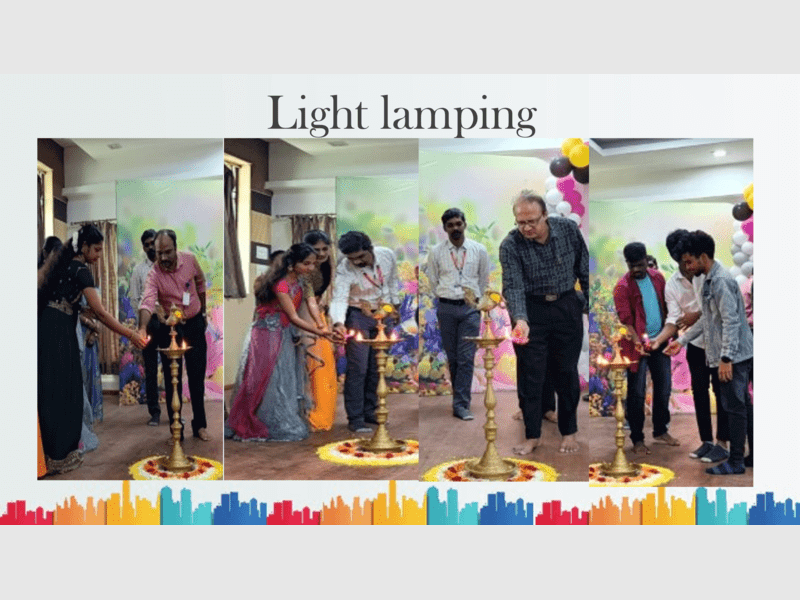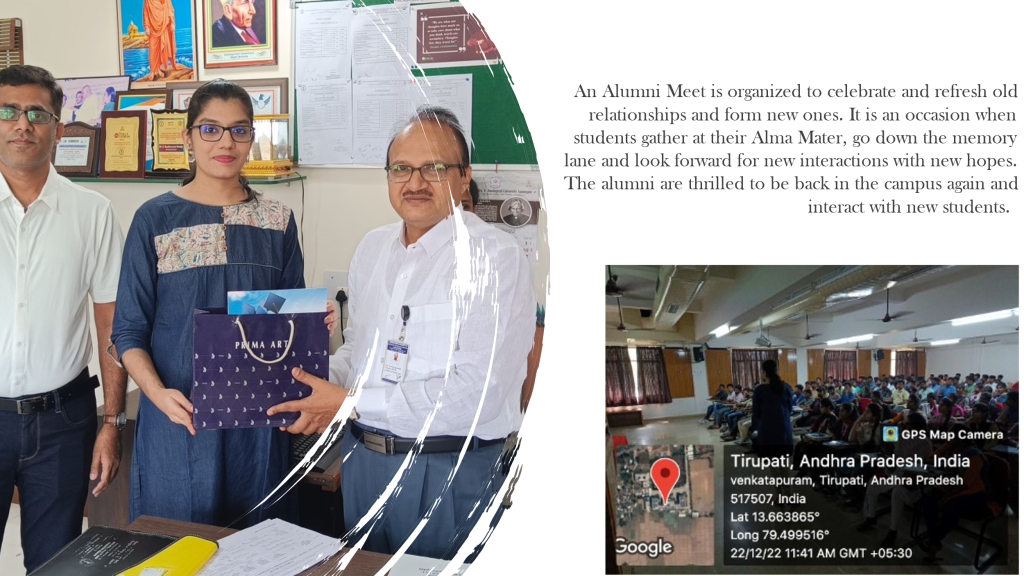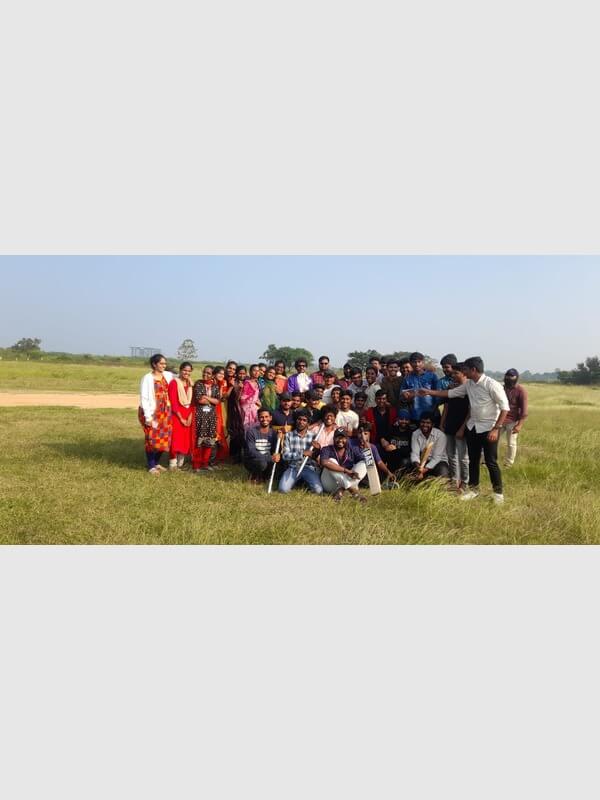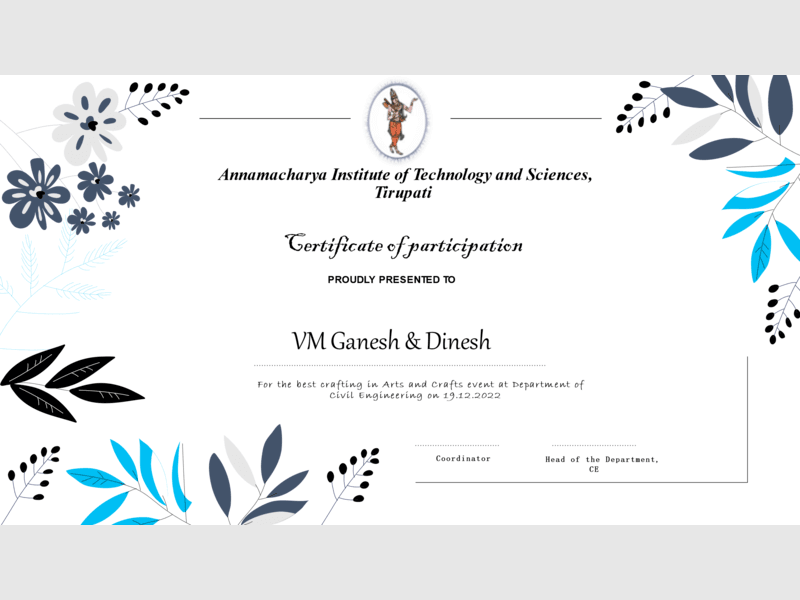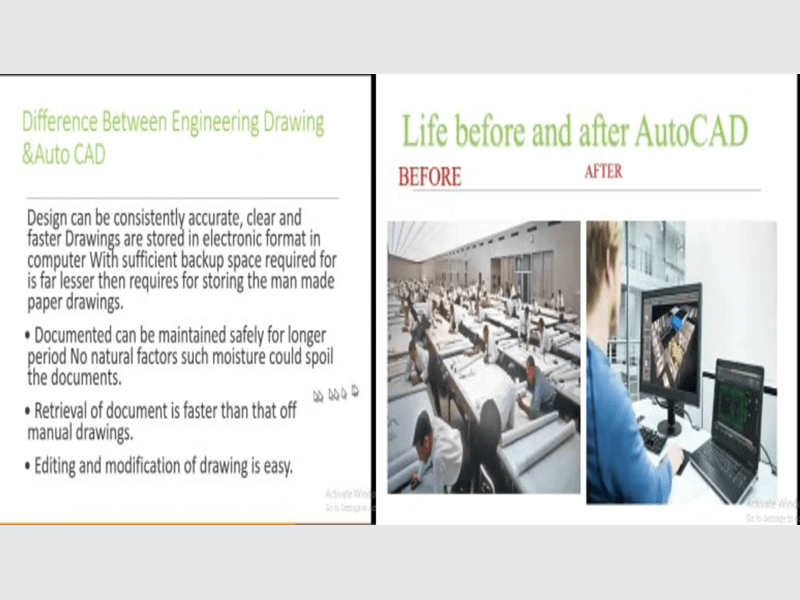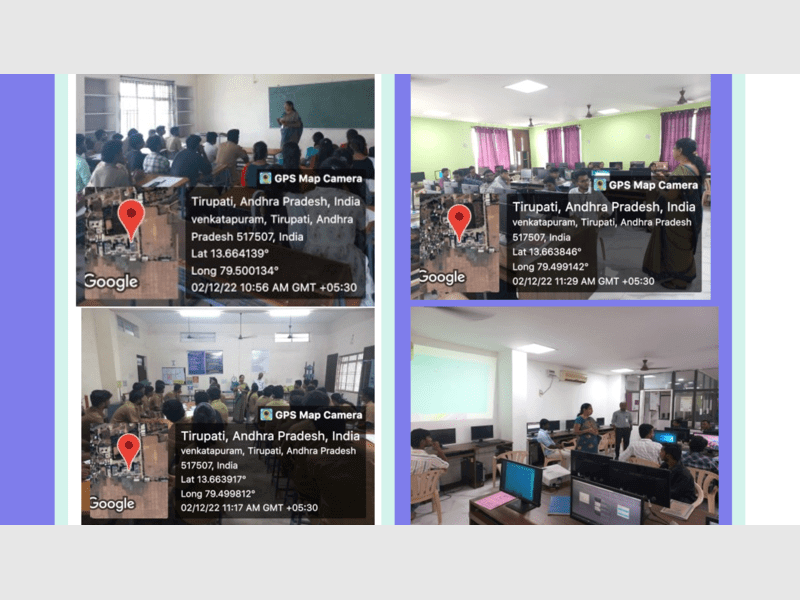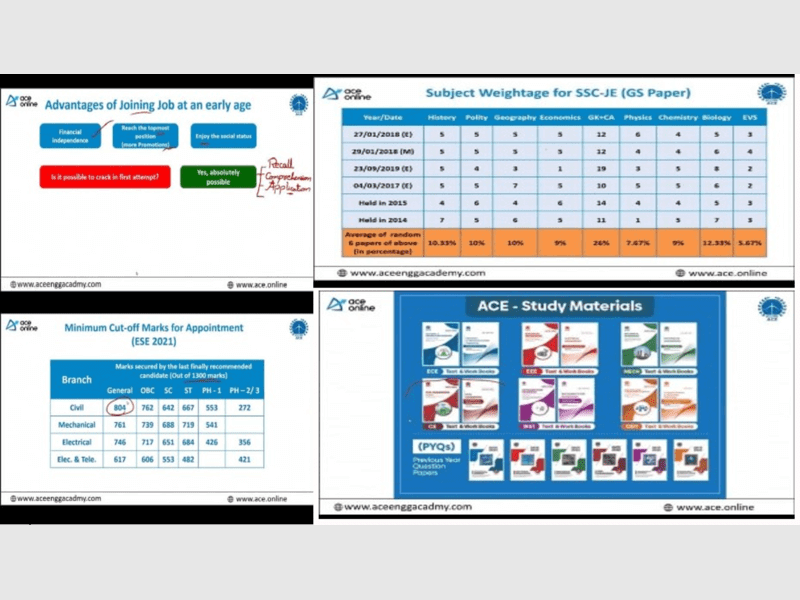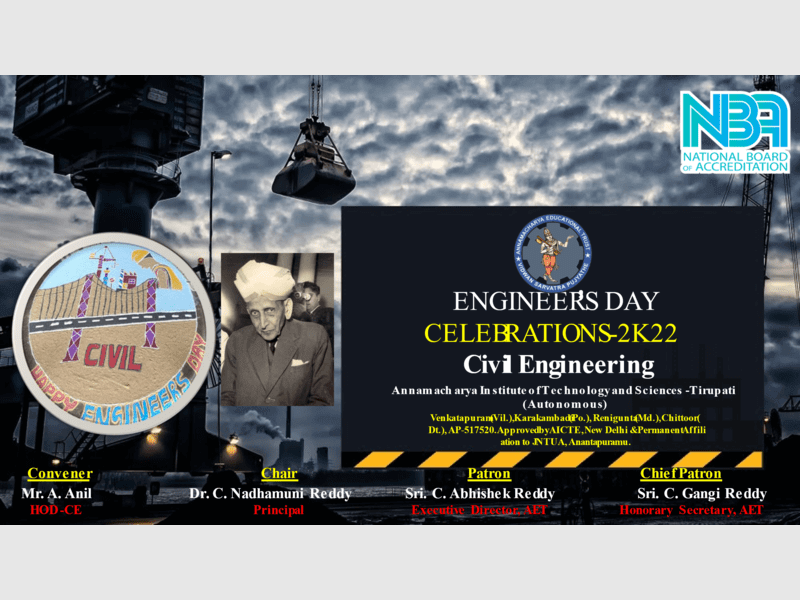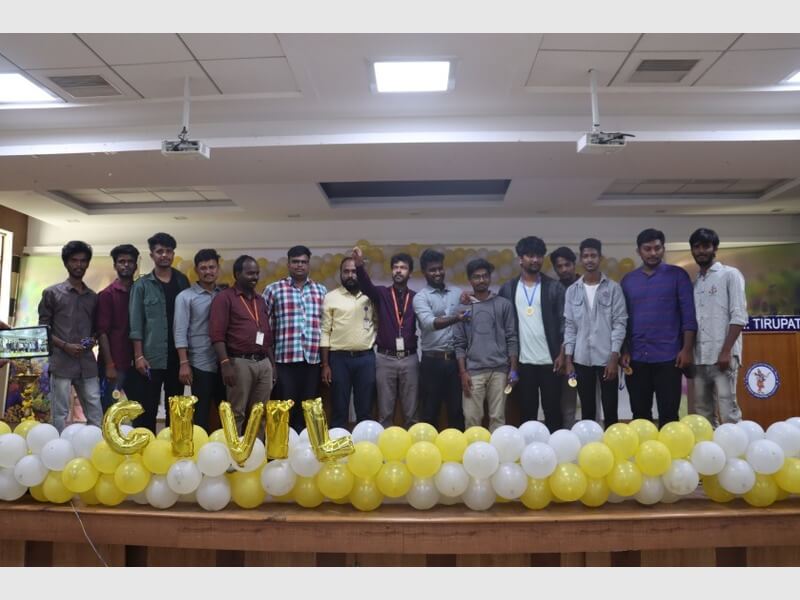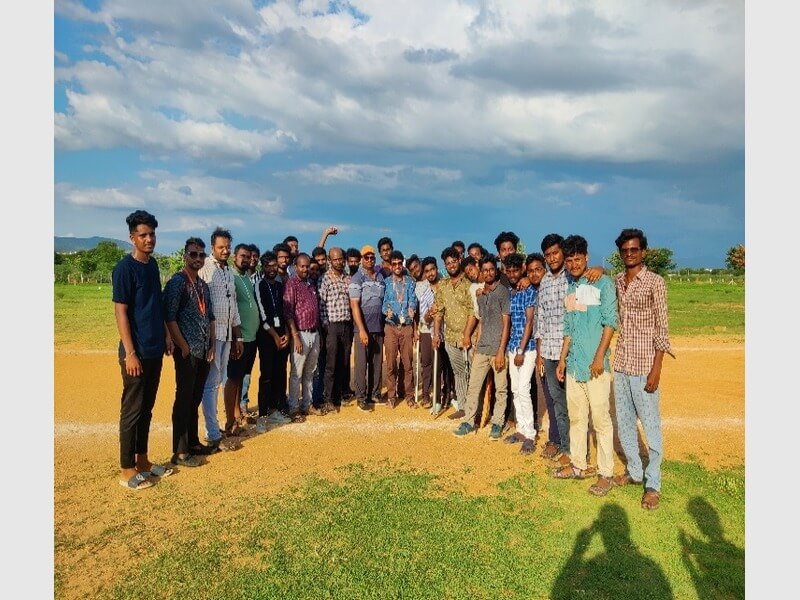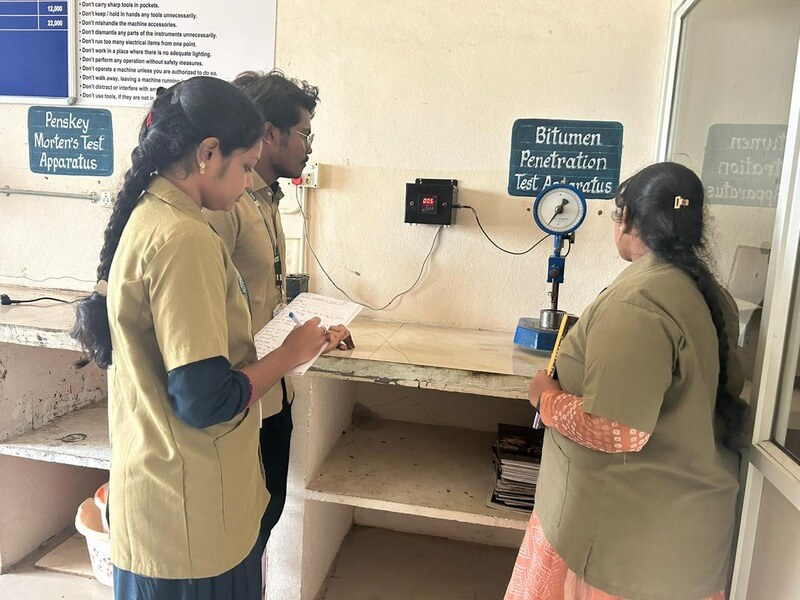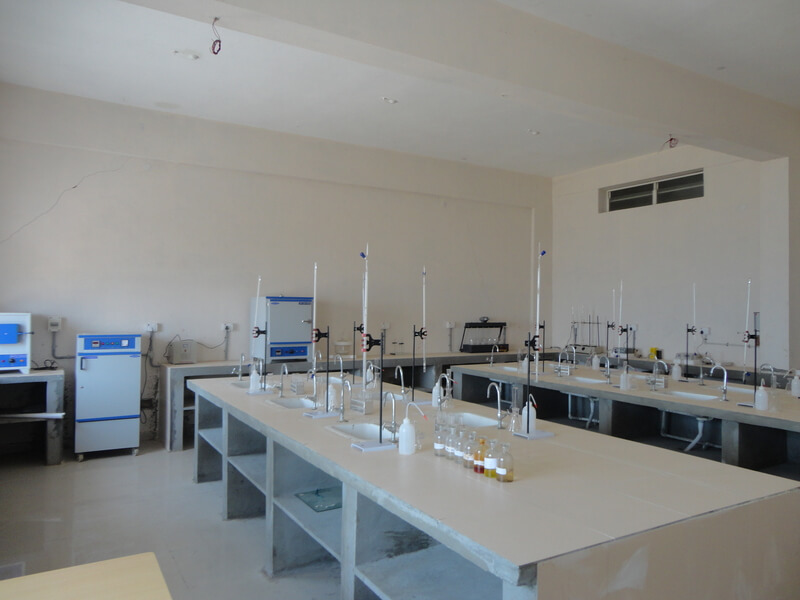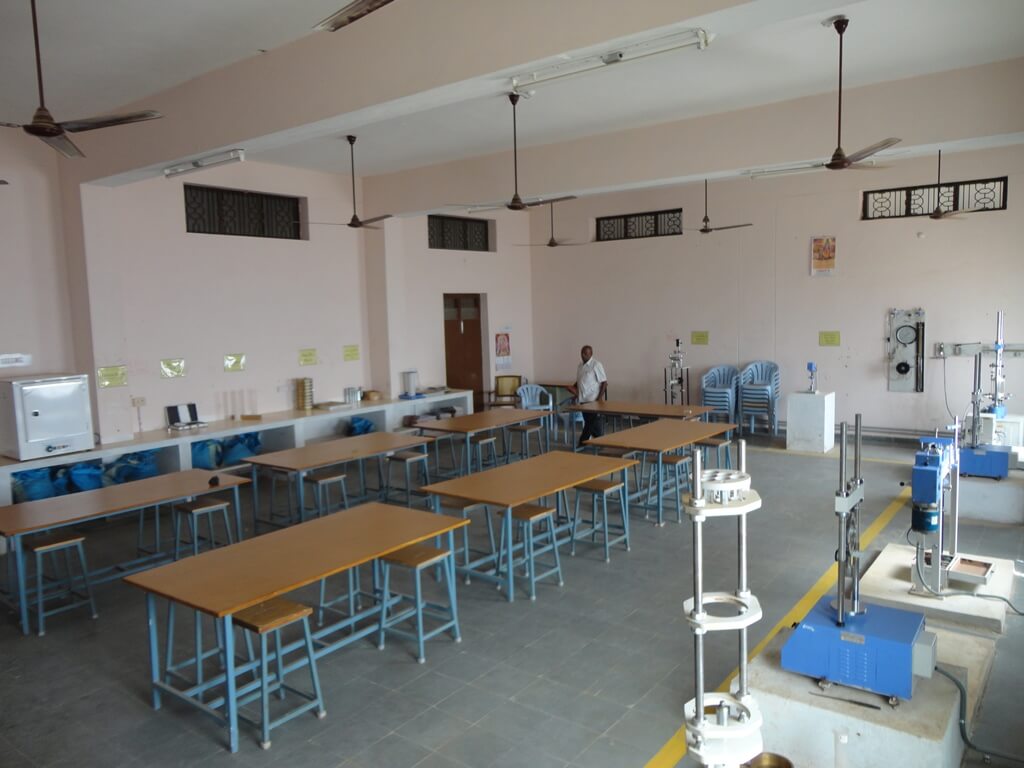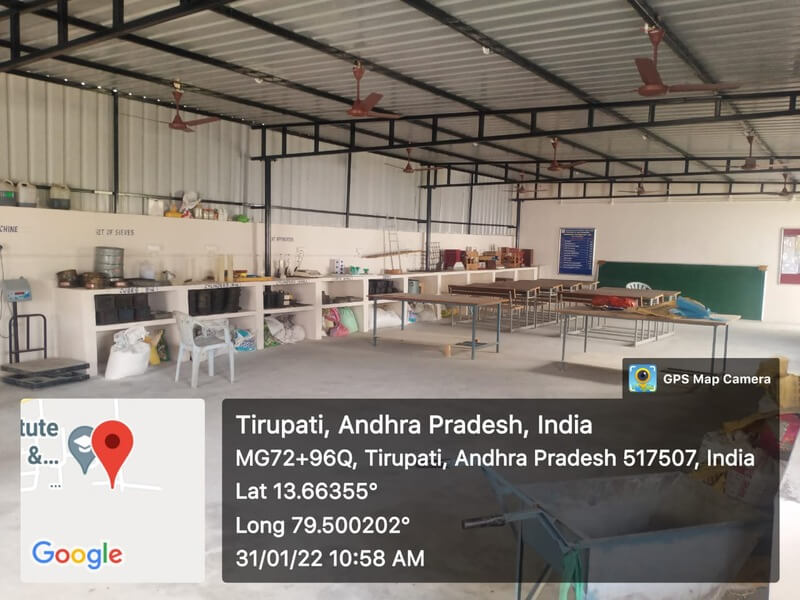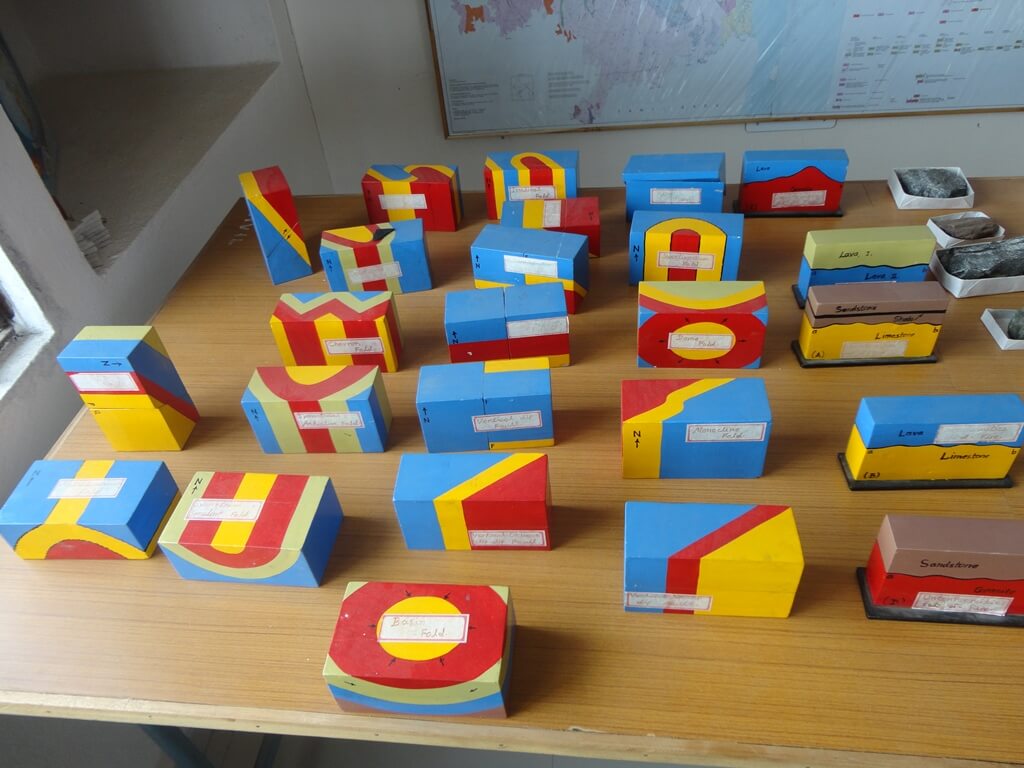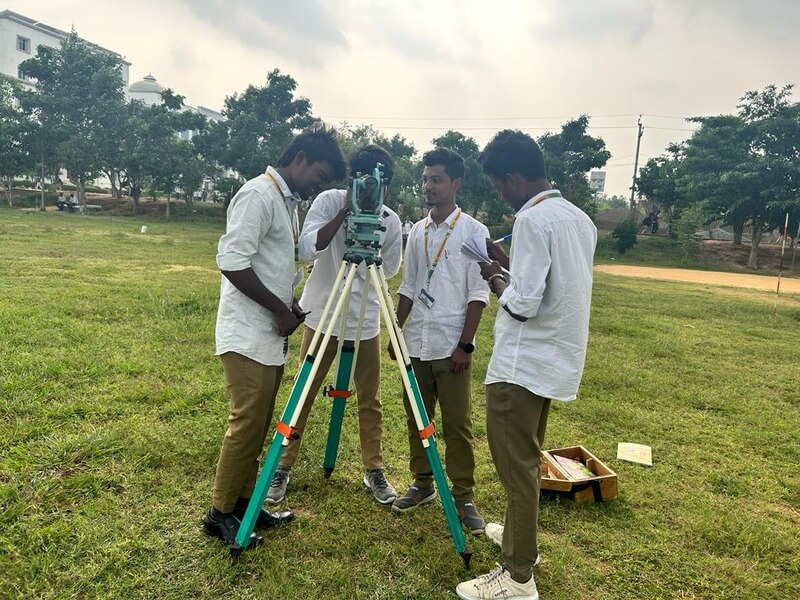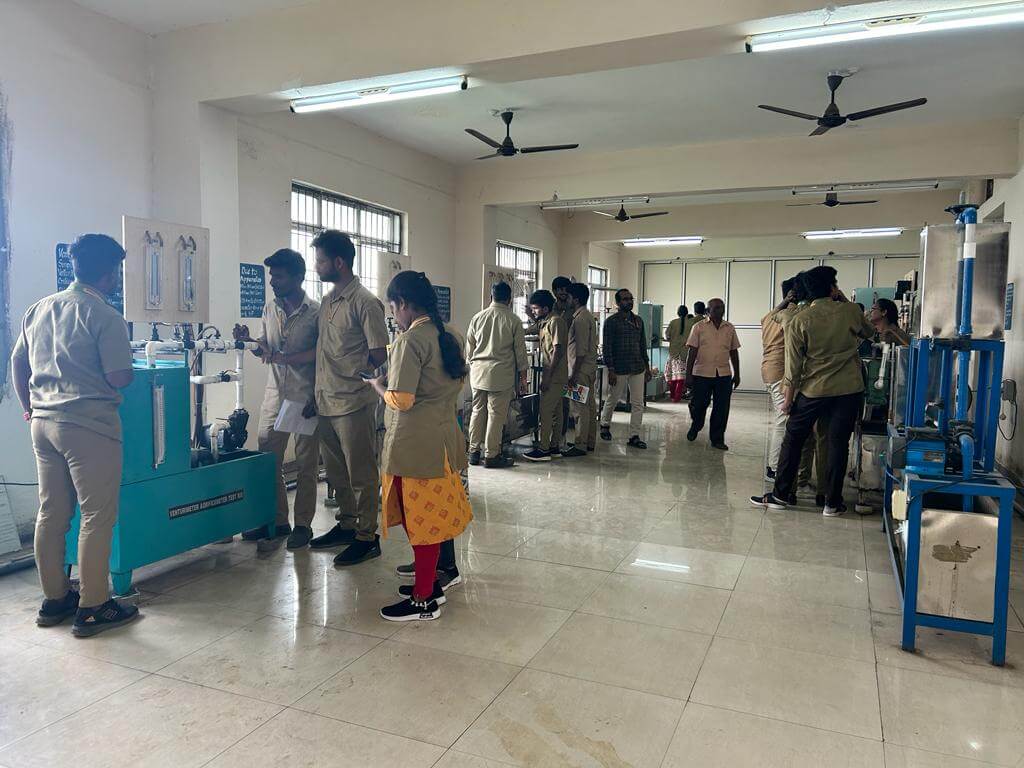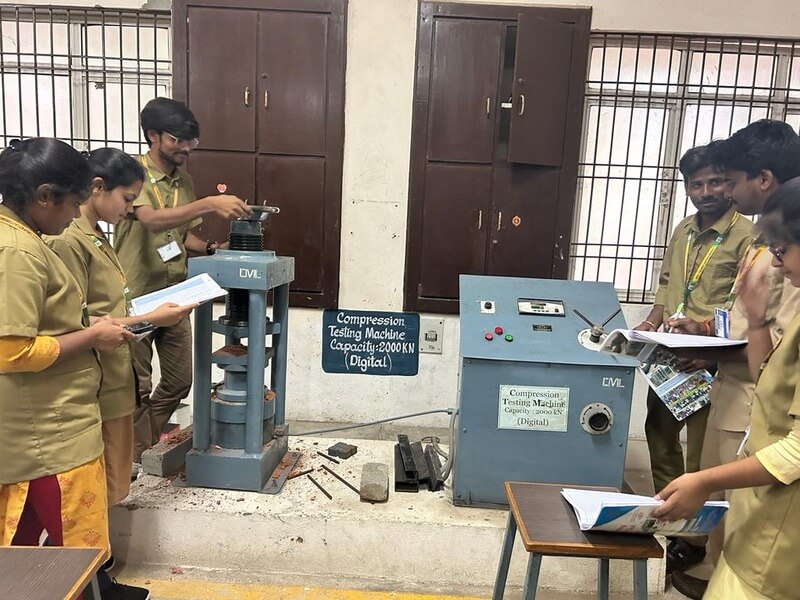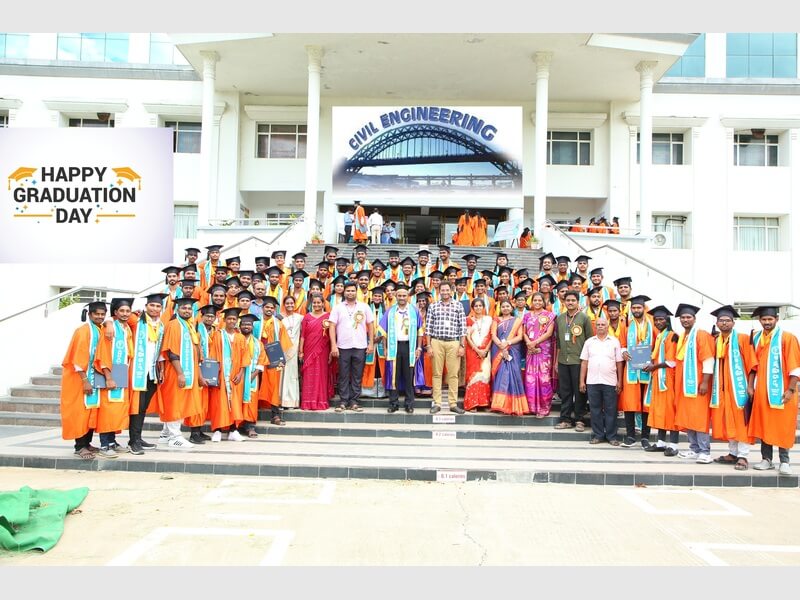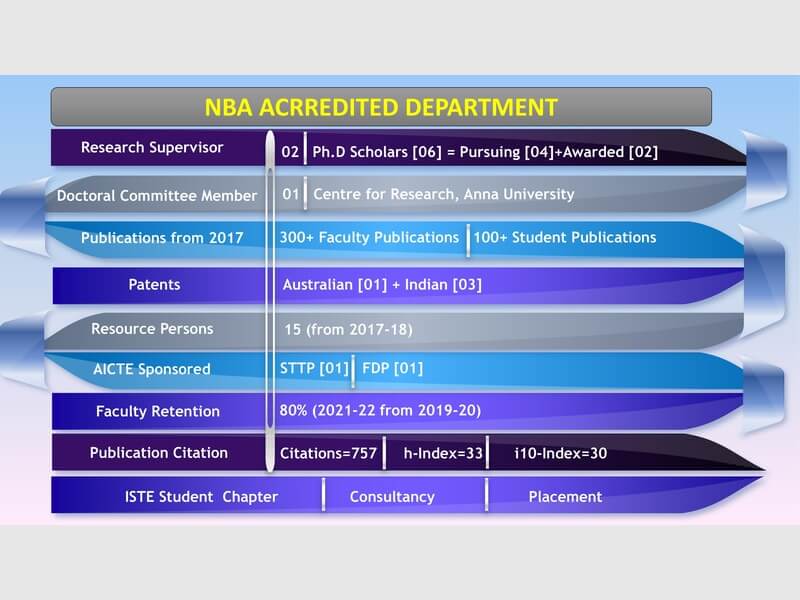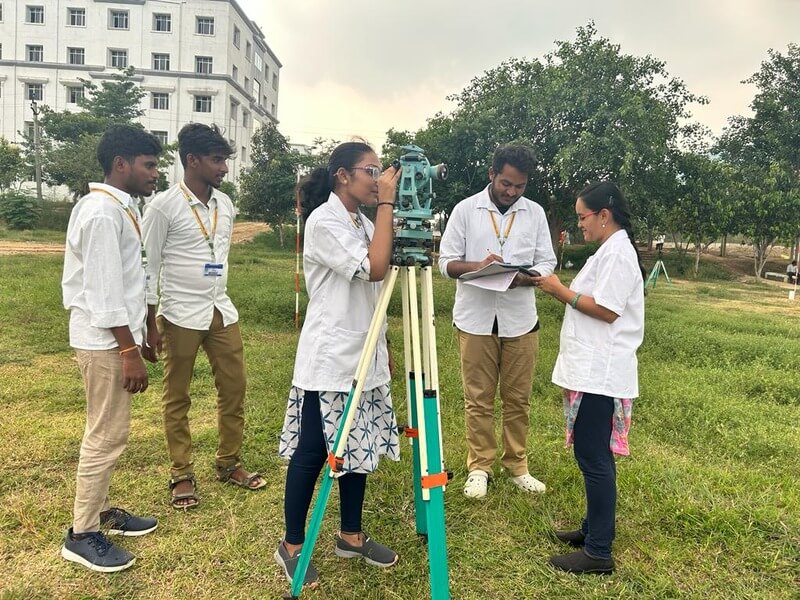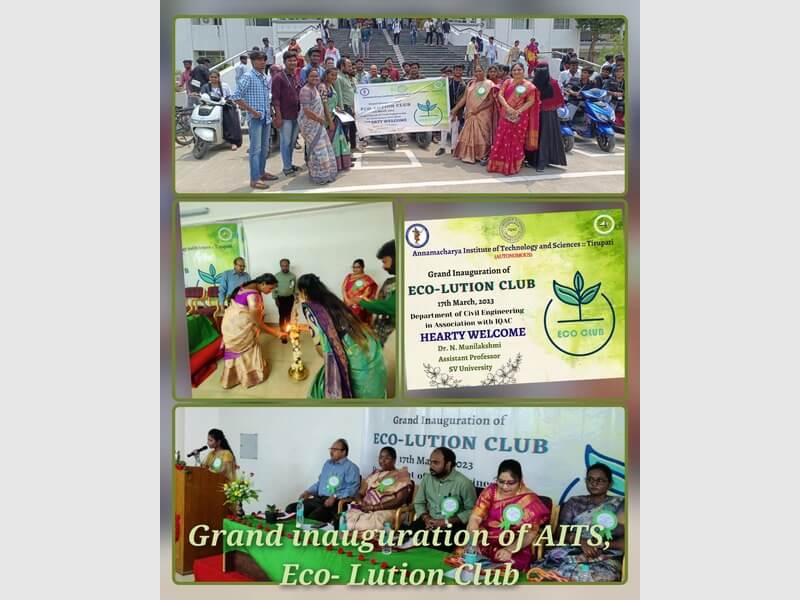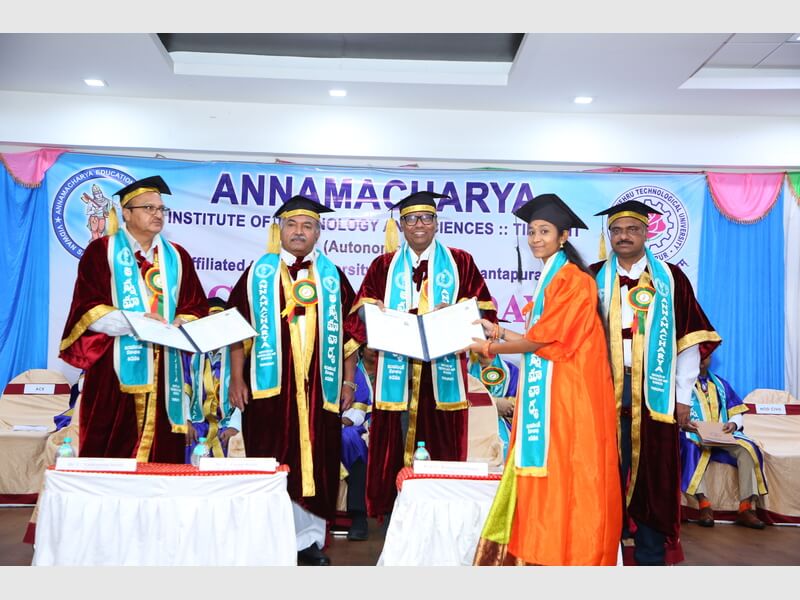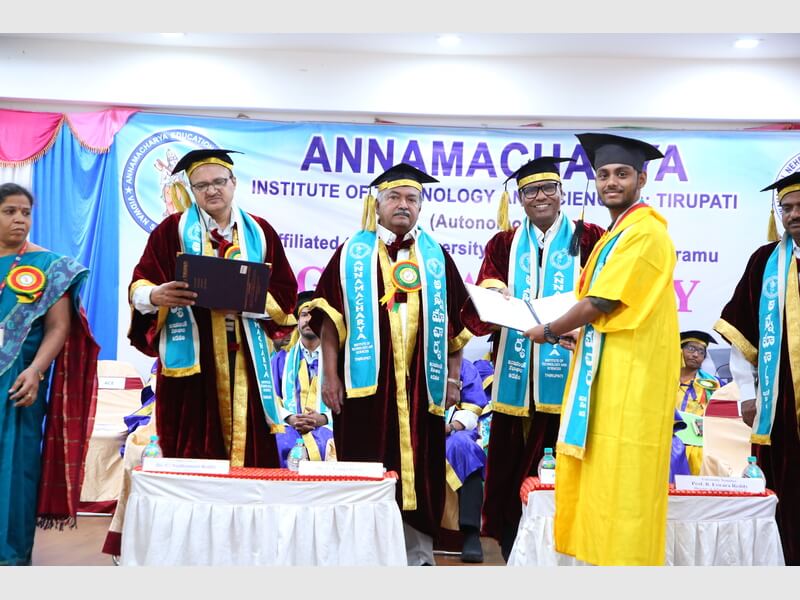Civil Engineering (CE)
The Civil Engineering Department is one of the lead departments in the institute and was established in 2009. The initial journey was started with a U.G. Program (B. Tech in Civil Engineering). Later, the department started a P.G. Program (M. Tech in Structural Engineering) in the year 2013. With the eminent faculty and well acquainted facilities, extensive research work is going on in the various disciplines of Civil Engineering.
Vision
To achieve excellence in the field of civil engineering with professional competency.
Mission
- Provide congenial learning-teaching process for holistic development.
- Upgrade the facilities to meet curriculum needs.
- Conduct Industry-Institute interactions to educate learners.
- Enhance the research to meet the societal needs.
Program Educational Objectives
PEO1: The graduate becomes proficient in analyzing complex engineering problems and offer economic and efficient solutions to real world problems.
PEO2: The graduate exhibits ethical values and technical skills to serve the societal needs.
PEO3: The graduate becomes a lifelong learner for professional growth.
Mapping Program Educational Objectives with Mission
| PEO No | Mission 1 | Mission 2 | Mission 3 | Mission 4 |
| PEO1 | 3 | 3 | 2 | 2 |
| PEO2 | 2 | 2 | 2 | 2 |
| PEO3 | 1 | 1 | 2 | 2 |
| Correlation Levels: 1 – Slight(low) 2 – Moderate(Medium) 3 – Substantial (High) | ||||
Program Specific Outcomes of the course:
- PSO1: Enhance employ ability skills by latest civil engineering tools and software.
- PSO2: Develop competency in professional and industrial areas.
Program Outcomes:
- Engineering knowledge: Apply knowledge of Mathematics, Natural Science, computing, Engineering fundamentals and an engineering specialization as specified in WK1 to WK4 respectively to develop to the solution of complex engineering problems.
- Problem analysis: Identify, formulate, review research literature, and analyze complex engineering problems reaching substantiated conclusions with consideration for sustainable development (WK1 to WK4).
- Design/Development of Solutions: Design creative solutions for complex engineering problems and design/ develop systems/ components/ processes to meet identified needs with consideration for the public health and safety, whole – life cost, net zero carbon, culture, society and environment as required.
- Conduct Investigations of Complex Problems: Conduct investigations of complex engineering problems using research-based knowledge including design of experiments, modelling, analysis & interpretation of data to provide valid conclusions.
- Engineering tool Usage: Create, Select and apply appropriate techniques, resources and modern engineering & IT tools, including prediction and modelling recognizing their limitations to solve complex engineering problems.
- The Engineer and the World: Analyze and Evaluate societal and environmental aspects while solving complex engineering problems for its impact on sustainability with reference to economy, health, safety, legal frame work, culture and environment.
- Ethics: Apply ethical principles and commit to professional ethics, human values, diversity and inclusion, adhere to national & international laws.
- Individual and collaborative Team Work: Function effectively as an individual and as a member of leader in diverse / multi-disciplinary teams.
- Communication: Communicate effectively and inclusively with the engineering community and society at large, such as being able to comprehend and write effective reports and design documentation, make effective presentations considering cultural, language and learning differences.
- Project Management and Finance: Apply Knowledge and understanding of engineering management principles and economic decision – making and apply these to one’s own work, as a member and leader in a team and to manage projects and in multi-disciplinary environments.
- Life-long learning: Recognize the need for, and have the preparation and ability for
- Independent and life long learning
- Adaptability to new and emerging technologies and
- Critical thinking in the broadest context of technological change
Courses Outcomes
M.Tech Structural Engineering
Program Educational Objectives
PEO1: To impart training to post graduate students in behavior and design of Advanced RC structures, behavior and design of Advanced Steel structure, latest procedures in earthquake resistant design practices and earthquake resistant design philosophies.
PEO2: To expose the post graduate students to latest design codes, current national and international scenario on Structural Engineering and to motivate them in interdisciplinary involvement in problems related to Structural Engineering.
PEO3: To orient the post graduate students to high value research related to Structural Engineering so that they get impetus to pursue research and lifelong learning.
Program Outcomes:
- PO1: Research and Investigation: Graduates will be able to independently carry out research / investigation and development work to solve practical engineering problems.
- PO2: Technical Communication & Reporting: Graduates will be able to write and present a substantial technical report / document with clarity, organization, and professional standards.
- PO3: Mastery in the Specialization: Graduates will demonstrate a degree of mastery over the area of specialization in their engineering discipline higher than that expected at the undergraduate level.
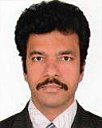
Dr. J. Guru Jawahar is Professor and HOD in the department of Civil Engineering. He did his B.Tech in S.V. University, Tirupati. He did his M.Tech and Ph.D in Structural Engineering in JNTUA, Anantapuramu. He has 12 years of Industry experience and 12 years of teaching experience. His areas of interest are Self compacting concrete, Geopolymner concrete and advanced construction materials. He is eligible Research Supervisor and guiding six Ph.D scholars, out of which two scholars got awarded. He is acting as Doctoral Committee Member for Centre of Research in Anna University. He has nearly sixty nine qualified publications.
FACULTY MEMBERS
DEPARTMENT OF CIVIL ENGINEERING
| S. No. | Name | Qualification | Designation | Date of Joining |
Nature of Association (Regular/Contract/ Adjunct) |
| 1 | Dr. J. Guru Jawahar | Ph.D | Professor | 30.10.2012 | Regular |
| 2 | Dr. A. Ranganathan | Ph.D | Professor | 01.07.2023 | Regular |
| 3 | Dr.K.Thulasirajan | Ph.D | Associate Professor | 06.01.2020 | Regular |
| 4 | Dr. B. Sridhar | Ph.D | Associate Professor | 06.01.2022 | Regular |
| 5 | Dr. A.Anil | Ph.D | Associate Professor | 07.05.2015 | Regular |
| 6 | Dr.D.Nirosha | Ph.D | Associate Professor | 01.12.2012 | Regular |
| 7 | Mr.T Sai Krishna | M.Tech | Assistant Professor | 06.06.2018 | Regular |
| 8 | Mr.P Dhanabal | M.Tech | Assistant Professor | 06.06.2018 | Regular |
| 9 | Mr.P Narendra Reddy | M.Tech | Assistant Professor | 06.06.2018 | Regular |
| 10 | Mr.K Sai Abhinav | M.Tech, (Ph.D) | Assistant Professor | 28.06.2016 | Regular |
| 11 | Mr.P. Harish | M.Tech | Assistant Professor | 11.01.2022 | Regular |
| 12 | Mr.Shaik Sameer | M.Tech, (Ph.D) | Assistant Professor | 21.01.2017 | Regular |
| 13 | Mrs.P Vishnu Priya | M.Tech | Assistant Professor | 06.06.2018 | Regular |
| 14 | Mrs.M. Sri Priya | M.Tech | Assistant Professor | 06.06.2018 | Regular |
| 15 | Ms.A.Kalpana | M.Tech | Assistant Professor | 24.06.2019 | Regular |
| 16 | Mr.I.Vamsi Krishna | M.Tech | Assistant Professor | 26.09.2022 | Regular |
| Year | S.No. | Programme | Date |
|---|---|---|---|
| 2016-2017 | 1 | Seminar on “Advances in Transportation Engineering” | 14/7/16 |
| 2 | Seminar on Introduction on “Off-Shore Structures” | 9/8/2016 | |
| 3 | Seminar on “Earthquakes” | 15/9/16 | |
| 4 | Guest lecture on “Diversion Head Works” | 30/9/16 | |
| 5 | Guest lecture on “Soil Earth Pressure Theory” | 6/10/2016 | |
| 6 | Faculty Development Programme on “Advances in Surveying” | 11/11/16 to 14/11/16 | |
| 7 | Students Awareness Programme by JK Cement Ltd. | 23/12/16 | |
| 8 | AASHAY – 2K17 | 21/01/17 | |
| 9 | Technical Guest Lecture by UltraTech Cement Pvt. Ltd | 7/2/2017 | |
| 2017 – 2018 | 1 | Word Art Event | 21/07/17 |
| 2 | Technical Presentations | 29/07/17 | |
| 3 | Guest Lecture on Importance on GATE Exam by MVS Academy | 30/08/17 | |
| 4 | Guest Lecture on Importance of Engineering | 12/9/2017 | |
| 5 | Guest Lecture on Research Methodology | 12/9/2017 | |
| 6 | Seminar on Disaster Management | 13/09/17 | |
| 7 | Guest Lecture on Shear Strength of Soils | 23/10/17 |
Academic Year 2025-26
Industrial Visit to Araniyar Dam (23-09-2025)
The Department of Civil Engineering, AITS Tirupati, organized an industrial visit to the Araniyar Dam on 23rd September 2025 for 54 final-year students and faculty. The visit provided insights into dam engineering, water resource management, and structural components like spillways and sluice gates. Site engineers explained design, construction, and maintenance aspects, helping students connect theoretical knowledge with real-world engineering practices.
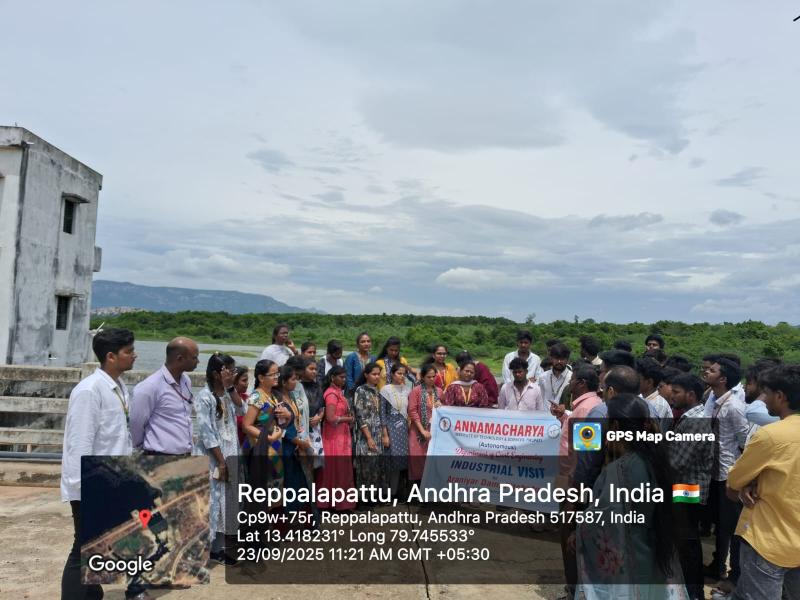
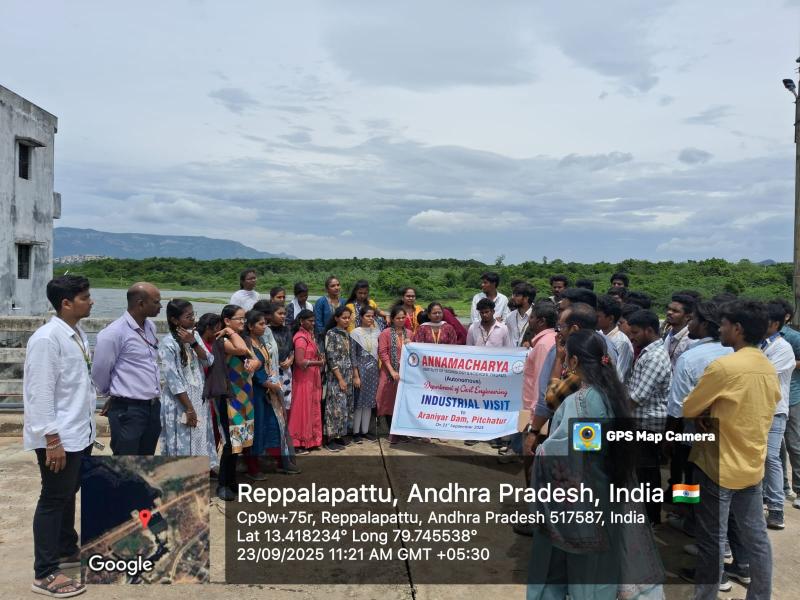
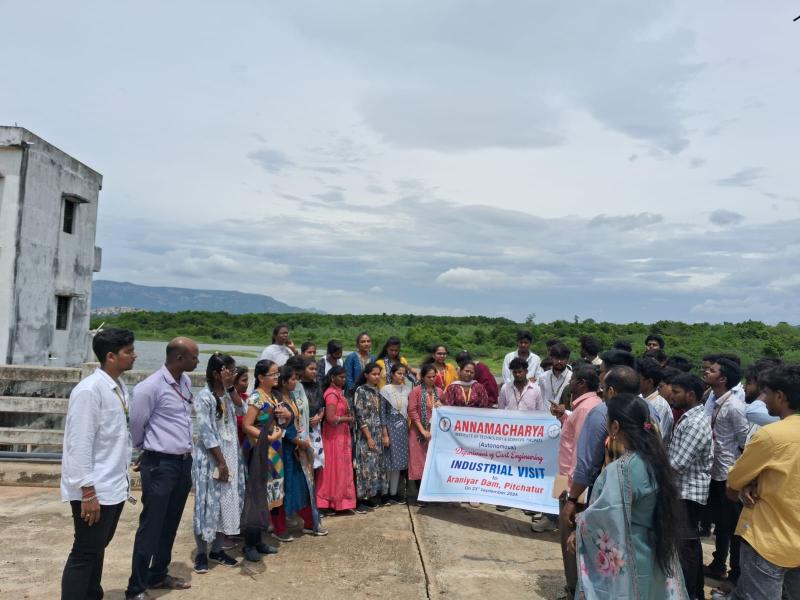
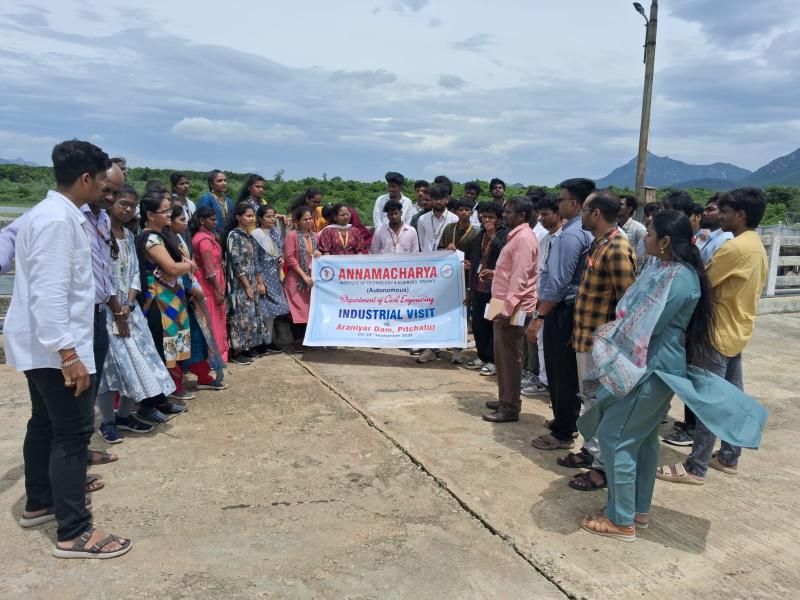
Outreach programme GATE JAM 2026 (22-09-2025)
The Department of Civil Engineering, AITS Tirupati, organized an outreach programme on “The Importance of GATE 2026” on 22nd September 2025. Dr. A. Murali Krishna, Professor of Geotechnical Engineering at IIT Tirupati, highlighted GATE’s role as a pathway to higher education, PSU careers, and research opportunities. Sponsored by IIT Madras, the session aimed to motivate and guide students in their GATE preparation
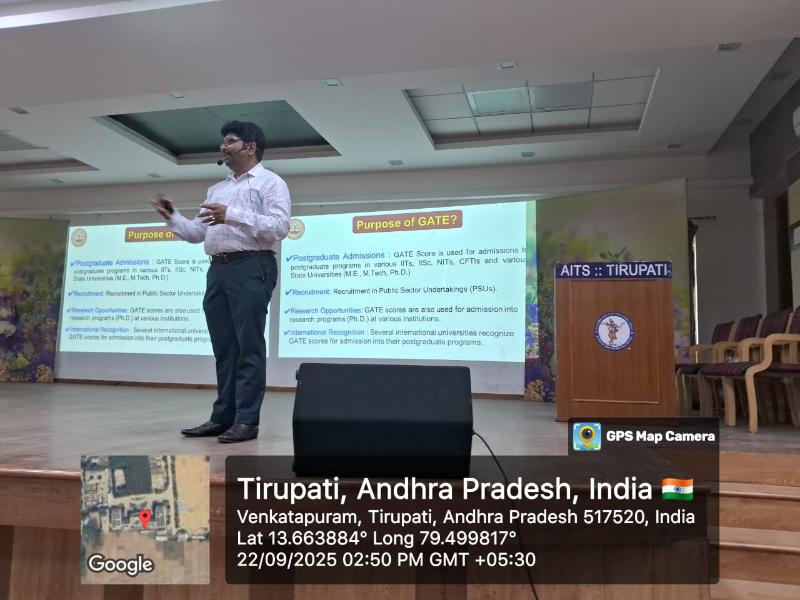
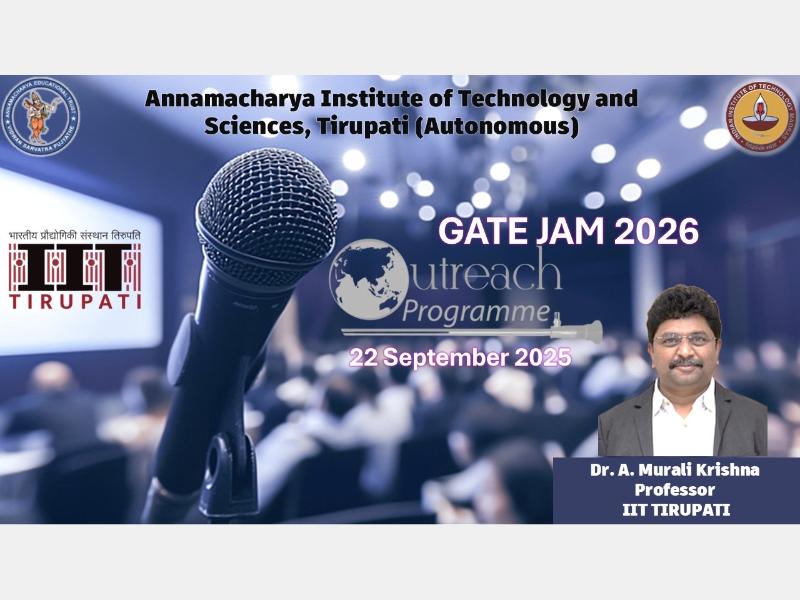
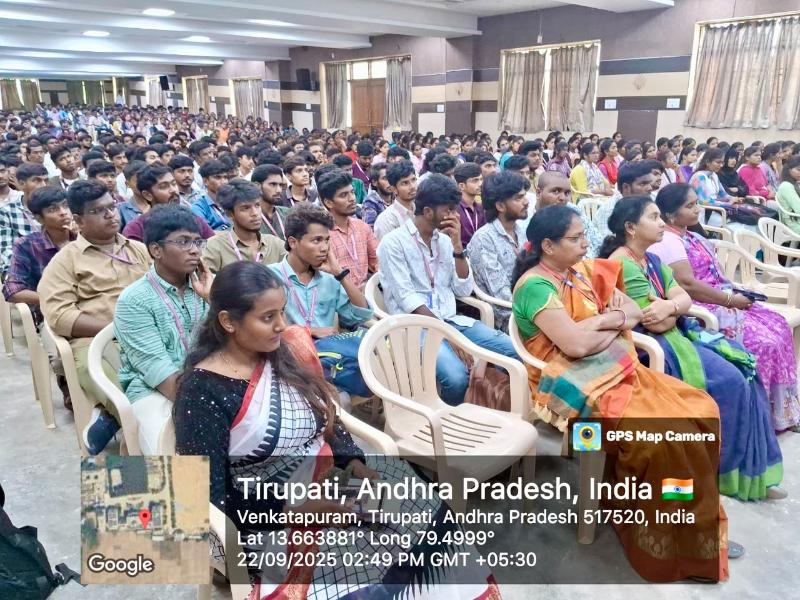
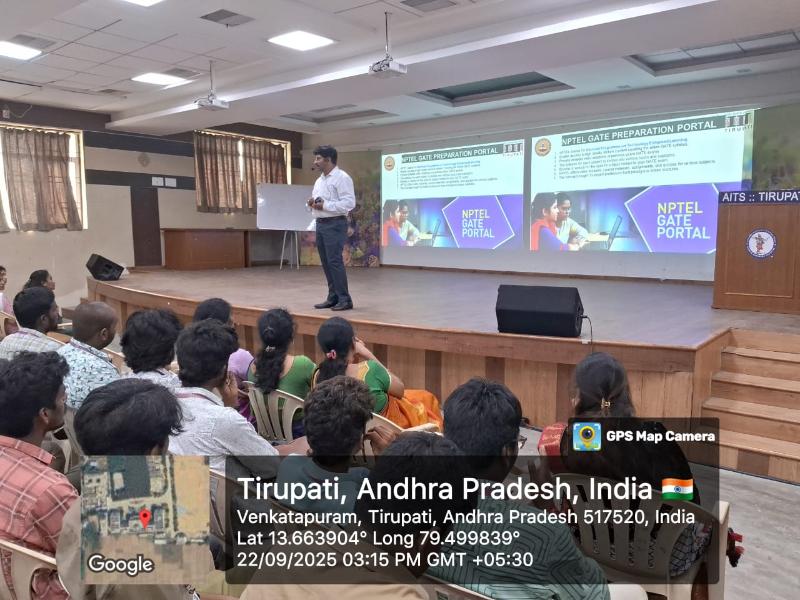
Engineer’s Day (15-09- 2025)
The Department of Civil Engineering, Annamacharya Institute of Technology & Sciences, Tirupati, celebrated Farewell Day on 6th May 2025 at the college auditorium. The principal emphasized the importance of future planning in core branches. The Civil HOD highlighted the significance of Farewell Day and Professor Guru Jawahar, along with event coordinator Mrs Meenu Priya, successfully conducted cultural activities. The event fostered enthusiasm among the students for their academic journey ahead.
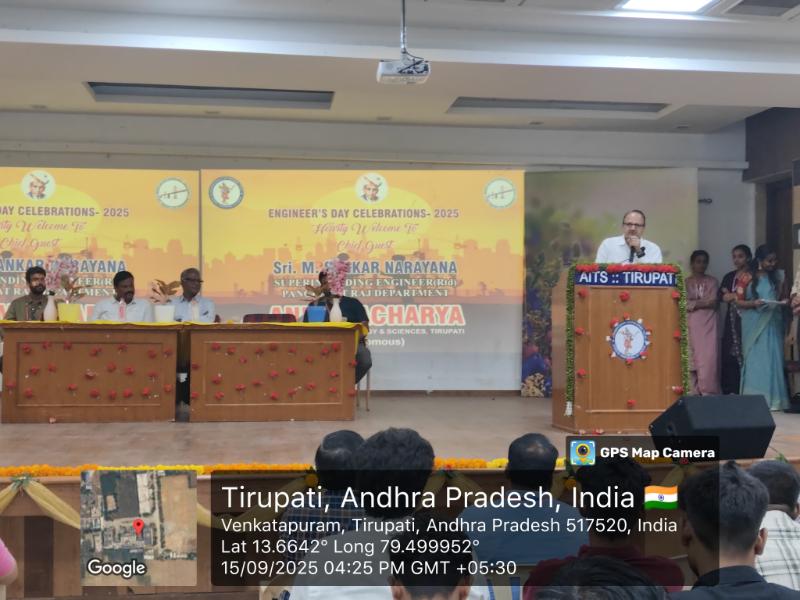
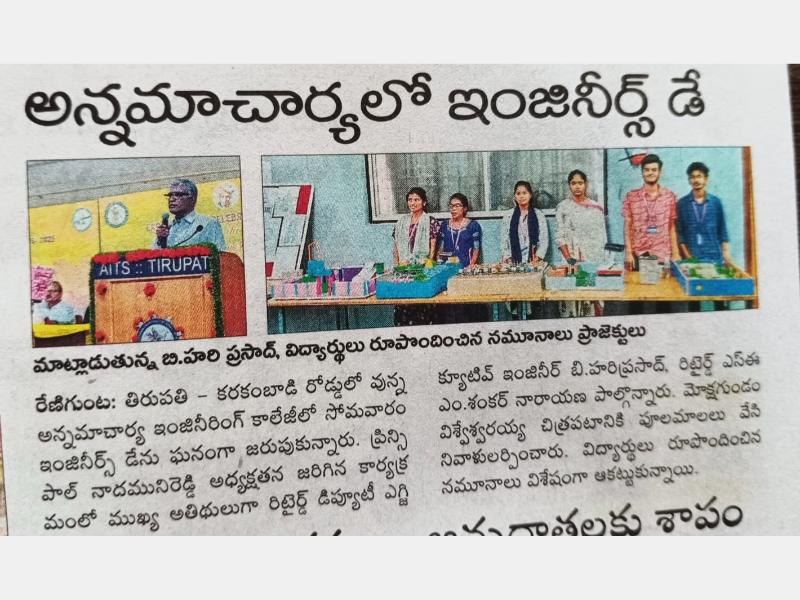
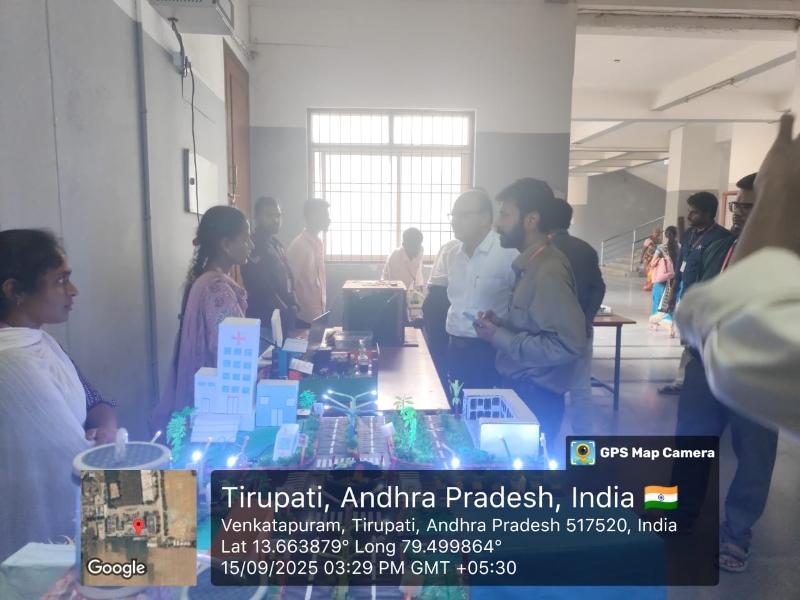
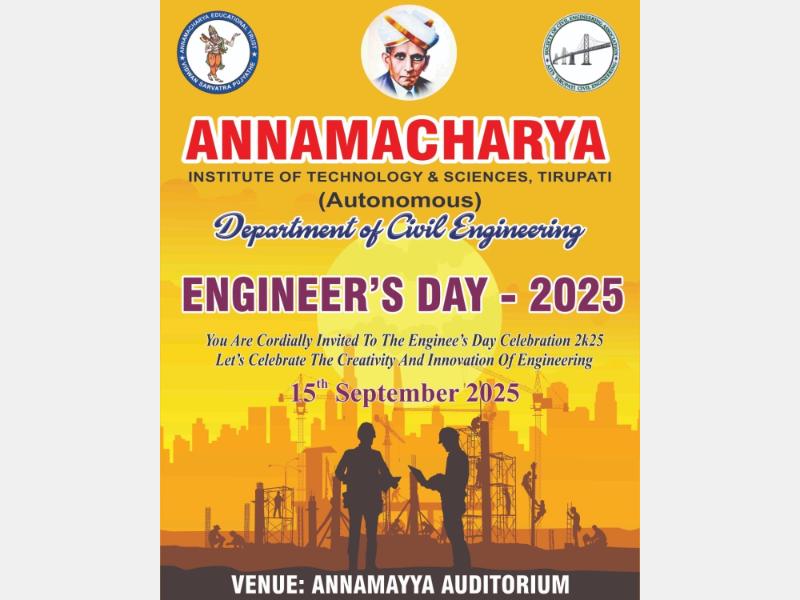
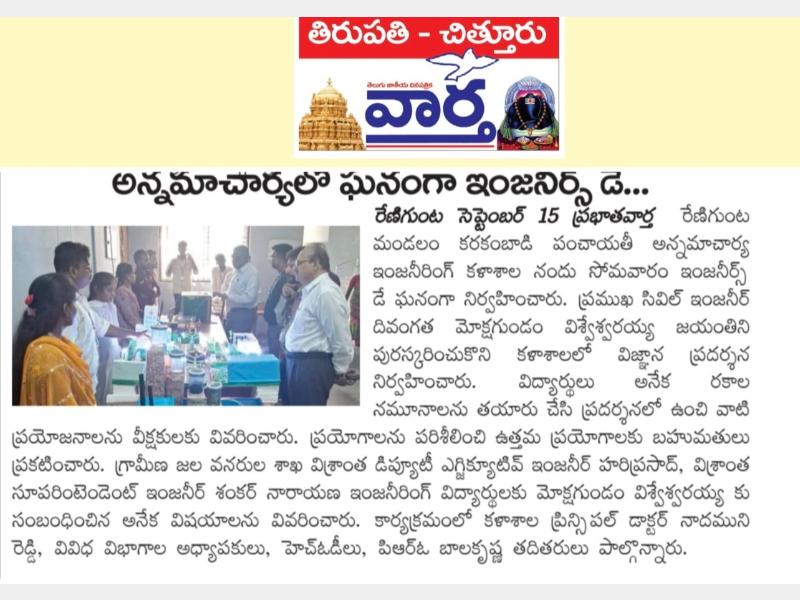
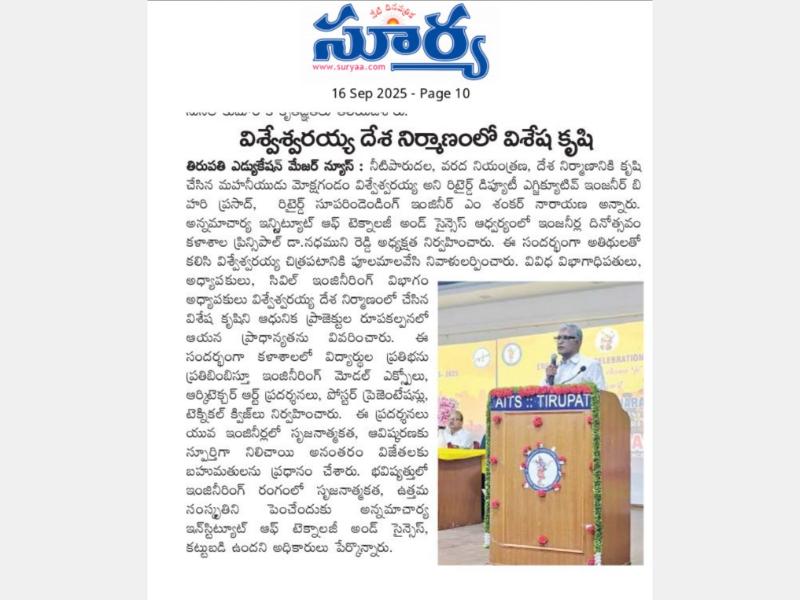
Academic Year 2024-25
Engineer’s Day (15-09-2024)
The Department of Civil Engineering, Annamacharya Institute of Technology & Sciences, Tirupati, celebrated Engineer’s Day on 14th September 2024 at the college auditorium. Dr. C. Nadhamuni Reddy, Principal of AITS, highlighted the importance of sustaining college life with moral values. The chief guest, Deputy Executive Engineer of TTD, Smt. T. Supraja, emphasized the success of a civil engineering career. The Head of the Department praised engineers as problem solvers, acknowledging their crucial role in society’s development. The event was well-received by both faculty and students.
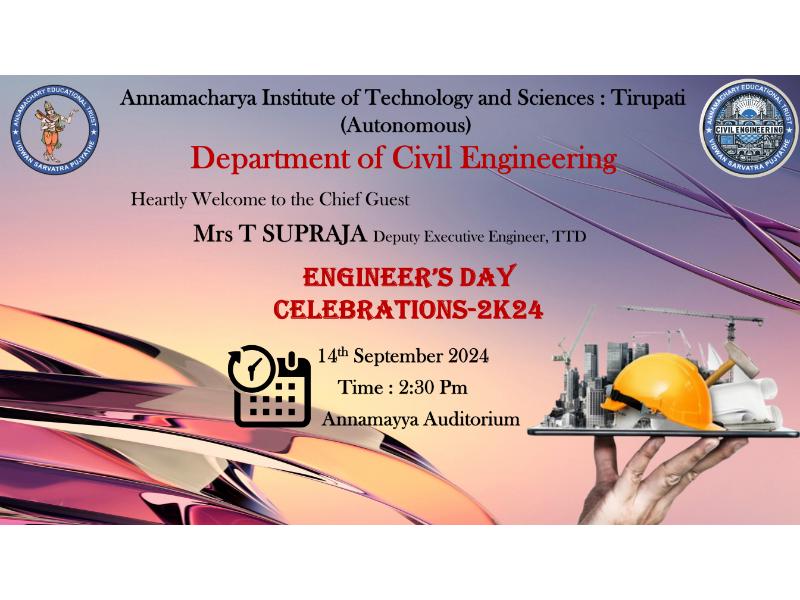
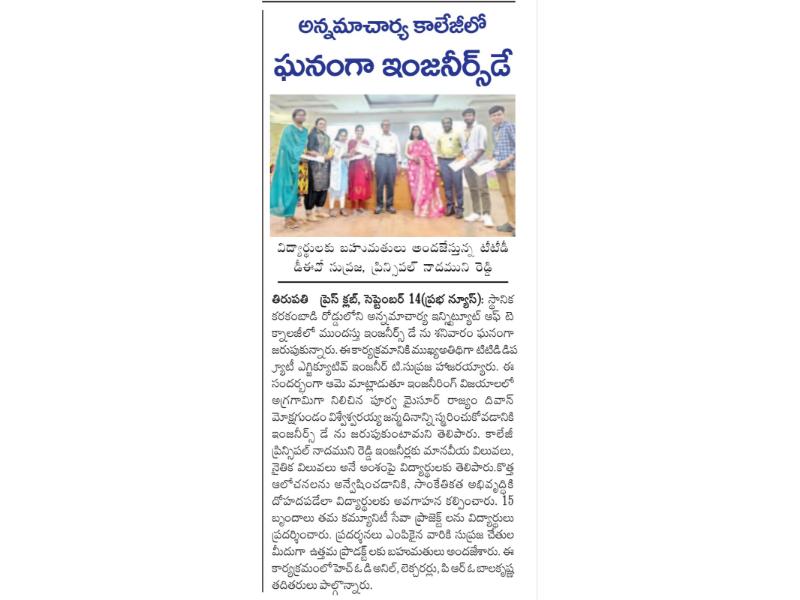
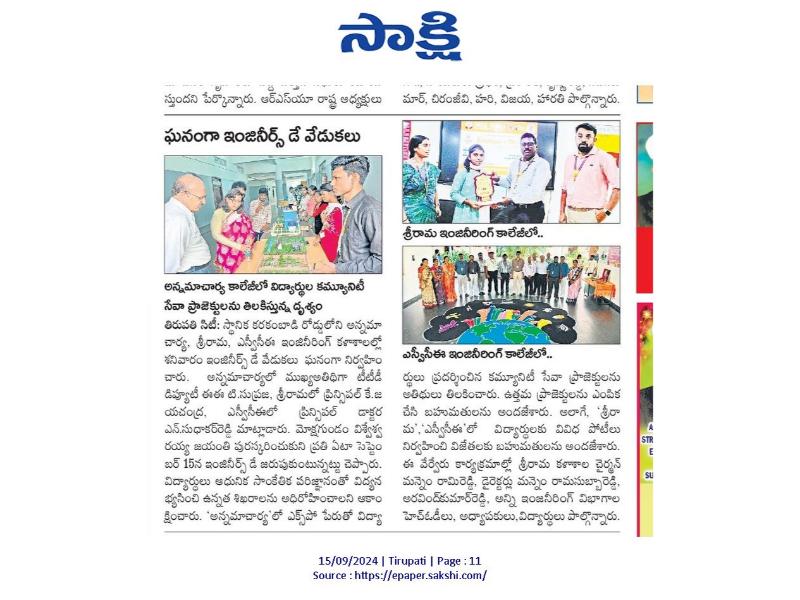
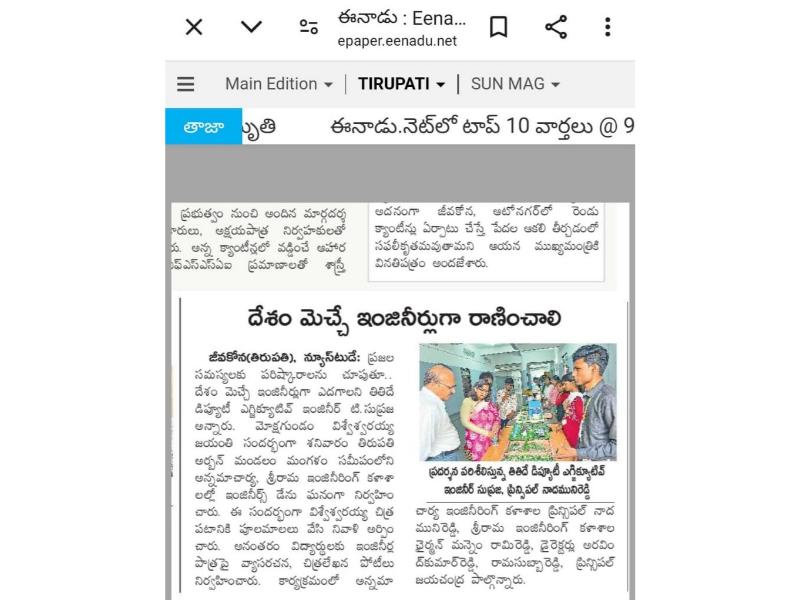
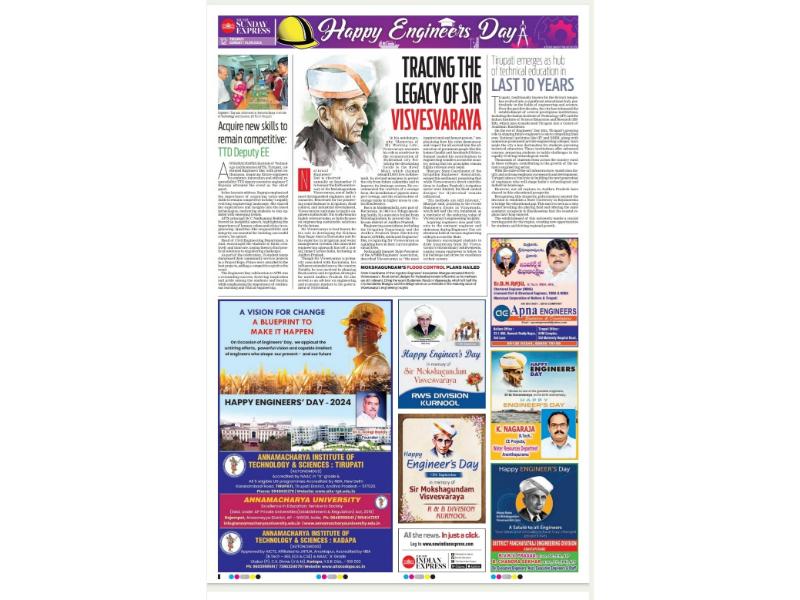
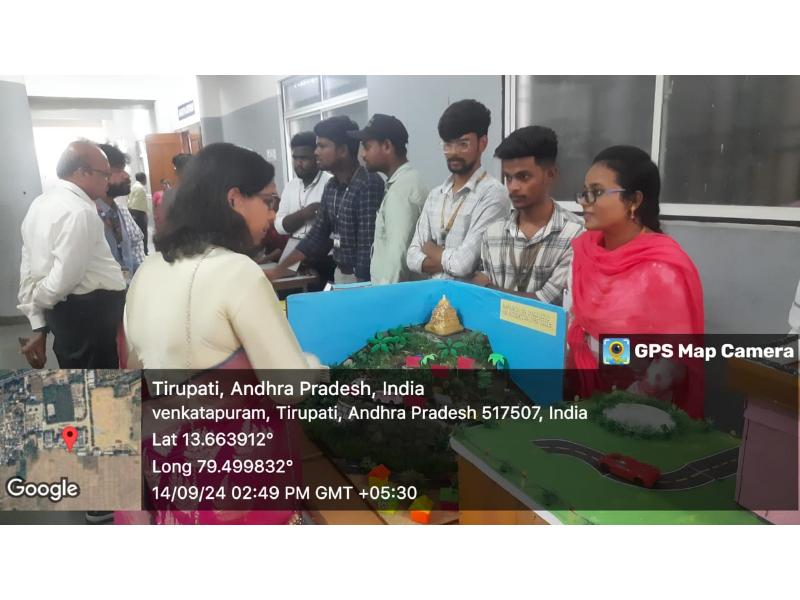
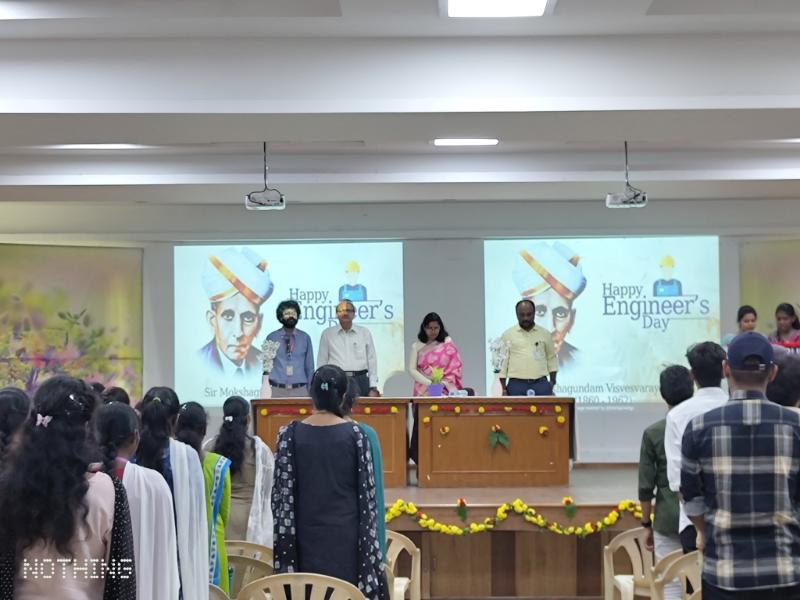
Fresher’s Day (24-09-2024)
The Departments of Civil and Mechanical Engineering, AITS Tirupati, celebrated Fresher’s Day on 24th September 2024 in the college auditorium. The principal and heads of departments emphasized discipline, career planning, and the importance of core engineering branches. Professors Kumar and Guru Jawahar shared valuable insights, while coordinator Mrs. Meenu Priya organized engaging cultural activities. The event created enthusiasm and motivation among new students for their academic journey.
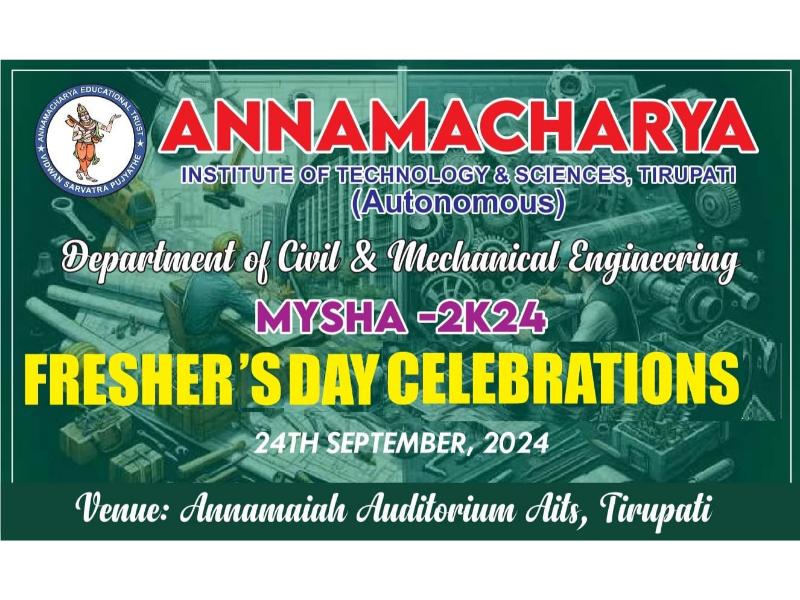
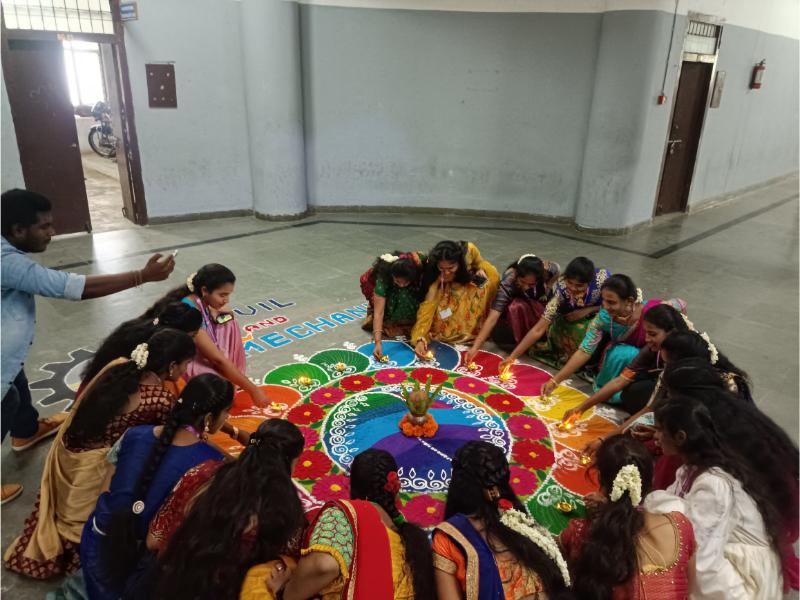
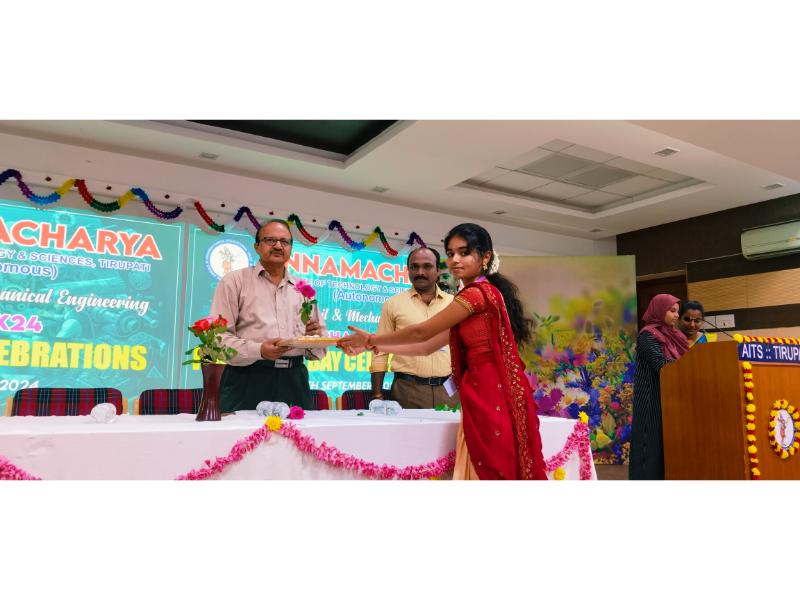
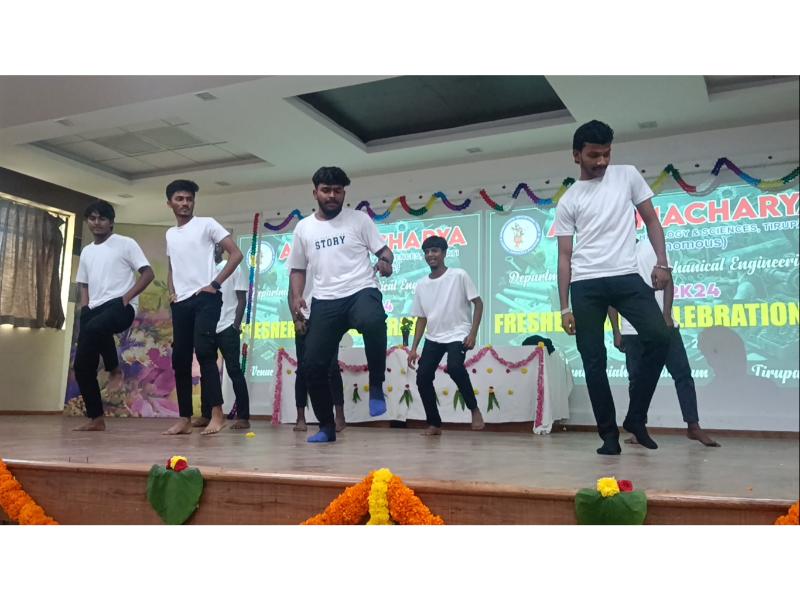
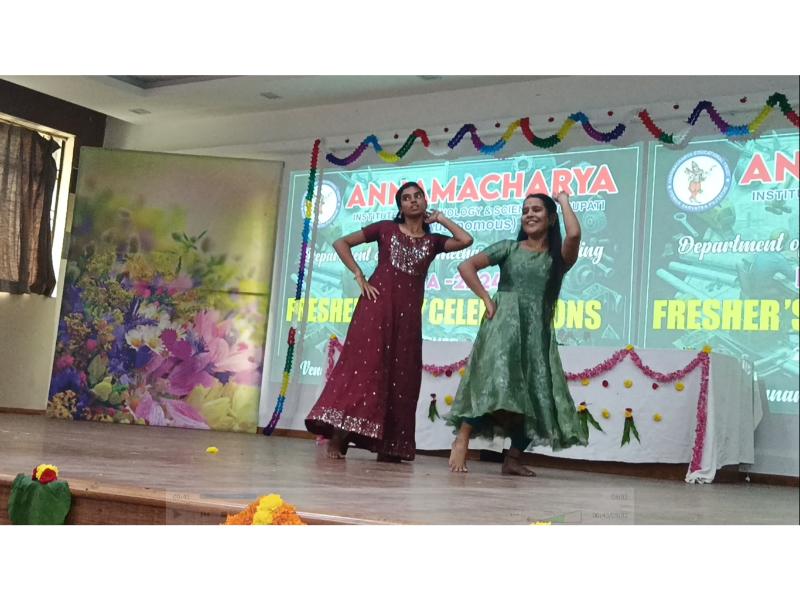
Farewell Day Sagol 2k25 (06-05-2025)
The Department of Civil Engineering, Annamacharya Institute of Technology & Sciences, Tirupati, celebrated Farewell Day on 6th May 2025 at the college auditorium. The principal emphasized the importance of future planning in core branches. The Civil HOD highlighted the significance of Farewell Day and Professor Guru Jawahar, along with event coordinator Mrs Meenu Priya, successfully conducted cultural activities. The event fostered enthusiasm among the students for their academic journey ahead.
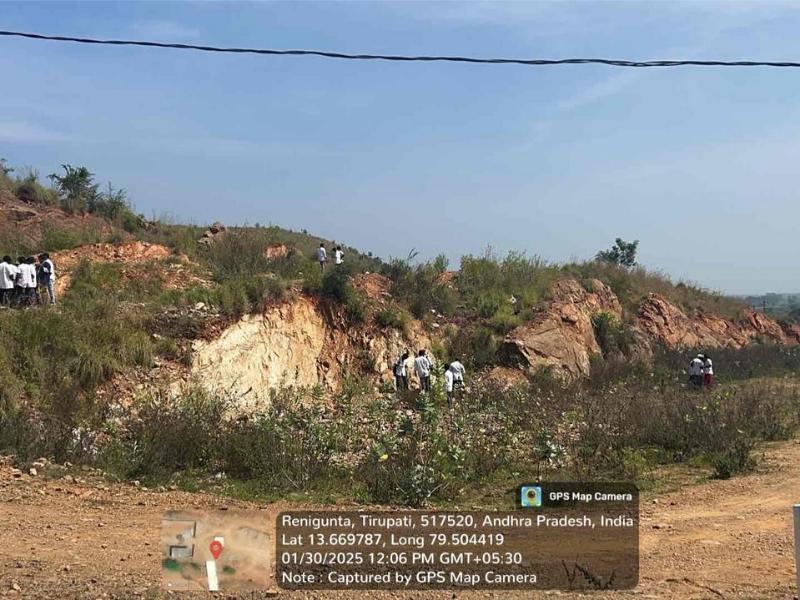
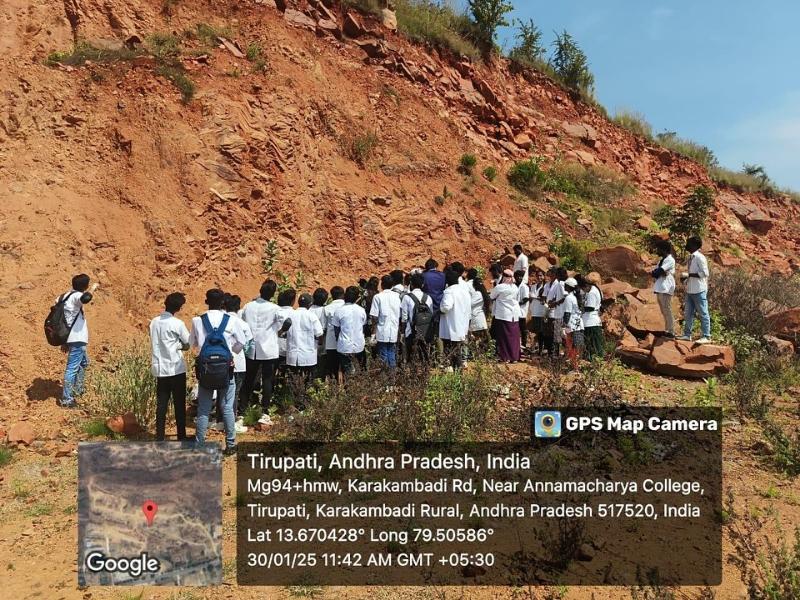
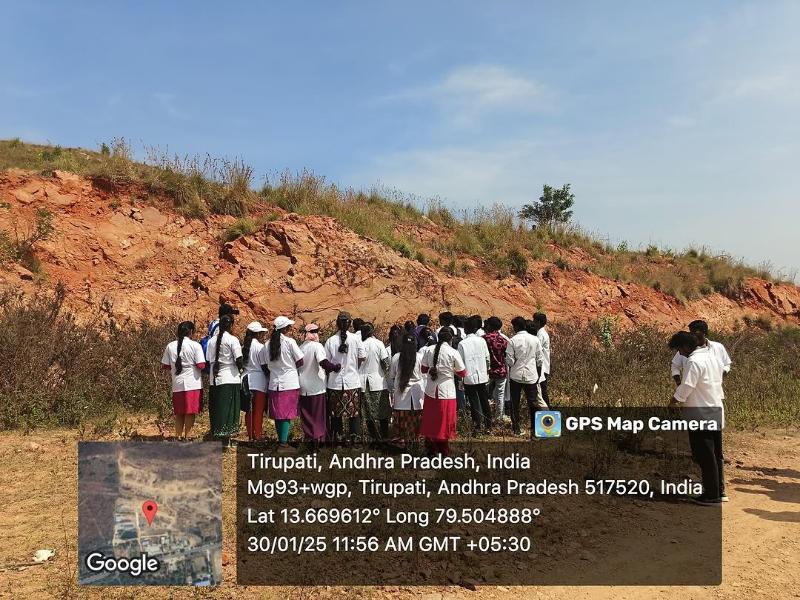
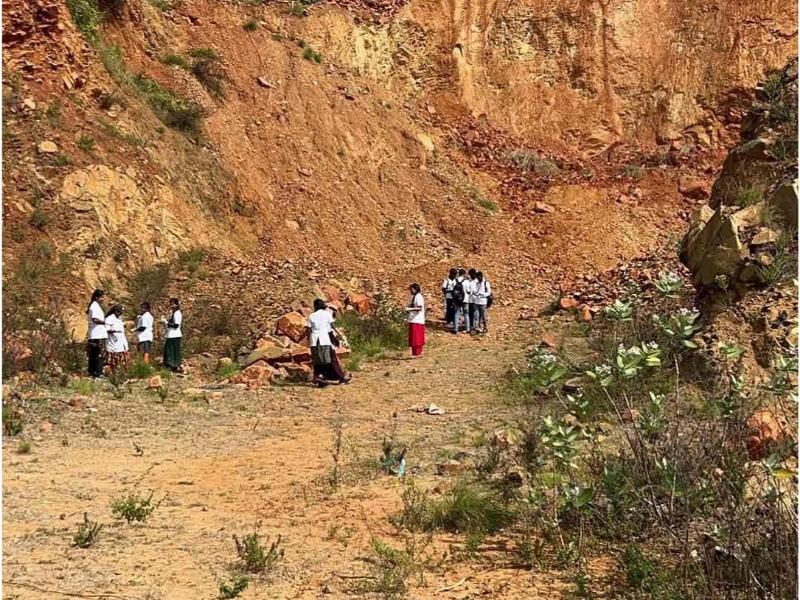
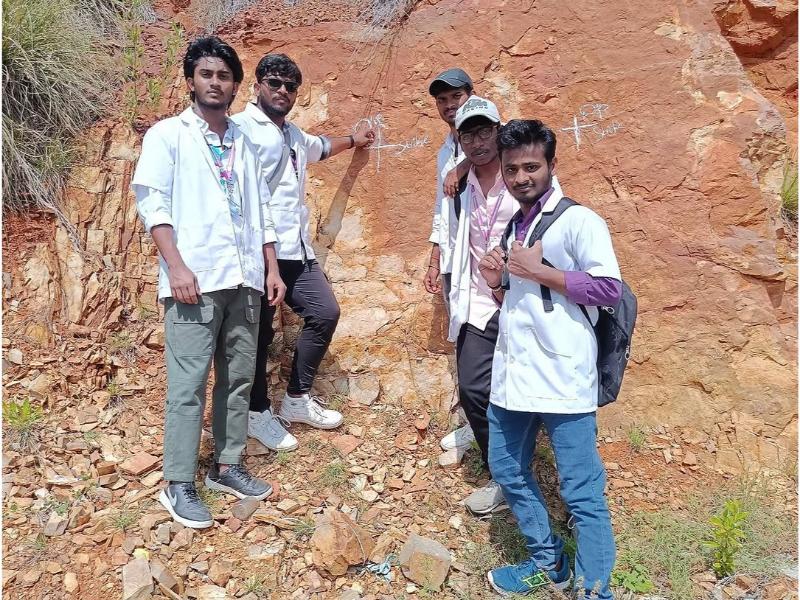
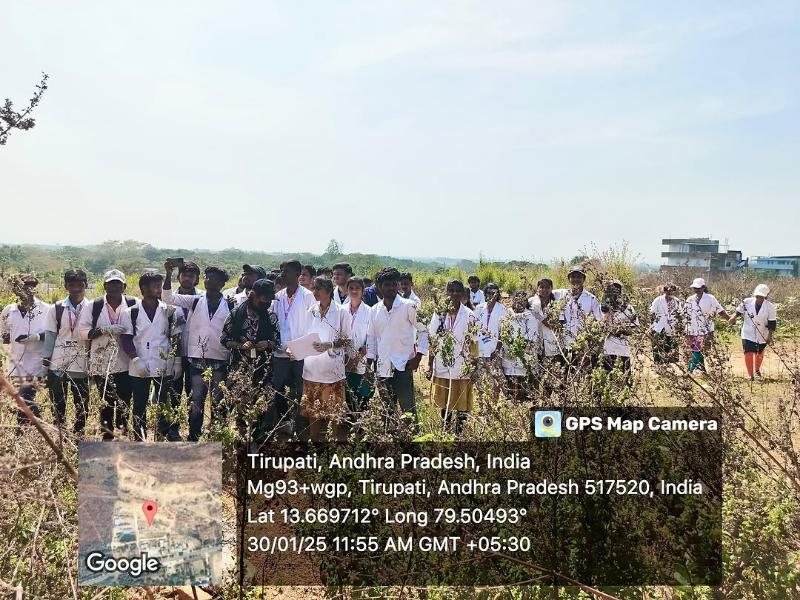
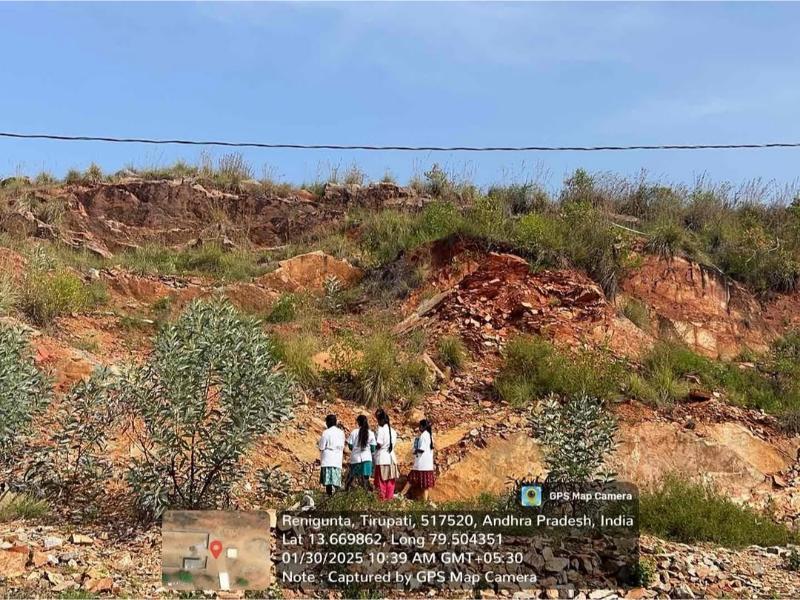
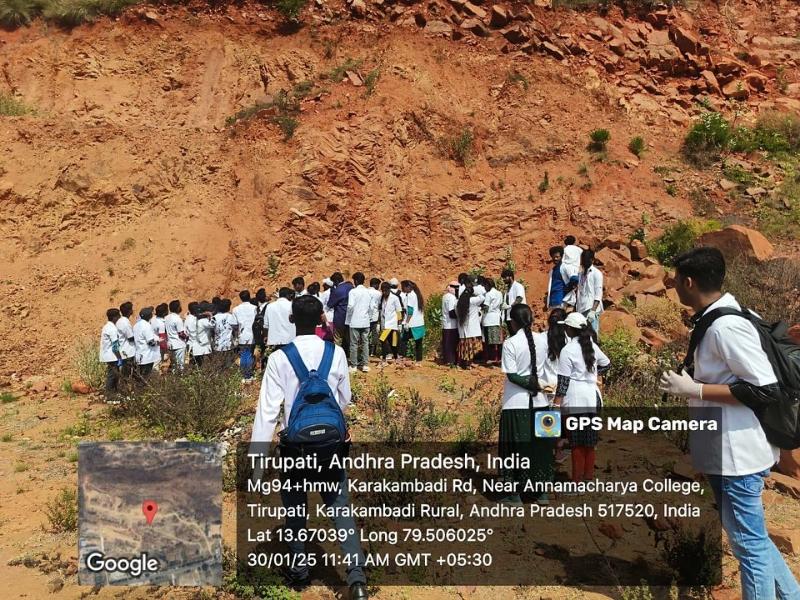
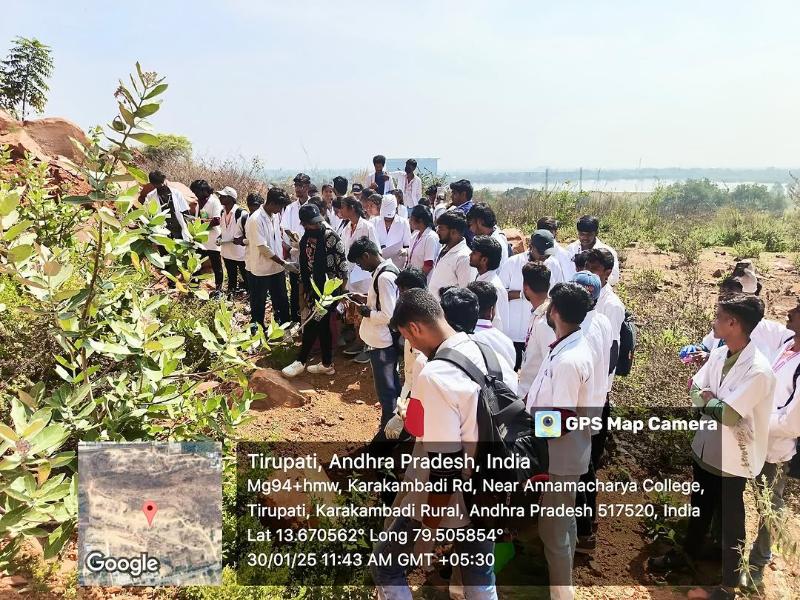
Art &Craft 2k25 (19-04-2025)
The Department of Civil Engineering at Annamacharya Institute of Technology and Sciences, Tirupati, organized Art & Craft 2K25 on 19th April 2025. The event showcased the creative talents of students through vibrant displays of handmade art, models, and recycled crafts. Participants enthusiastically exhibited their innovations, blending engineering concepts with artistic expression. The event fostered creativity, teamwork, and appreciation for sustainable and aesthetic design. It was a refreshing and inspiring experience for both participants and spectators alike.
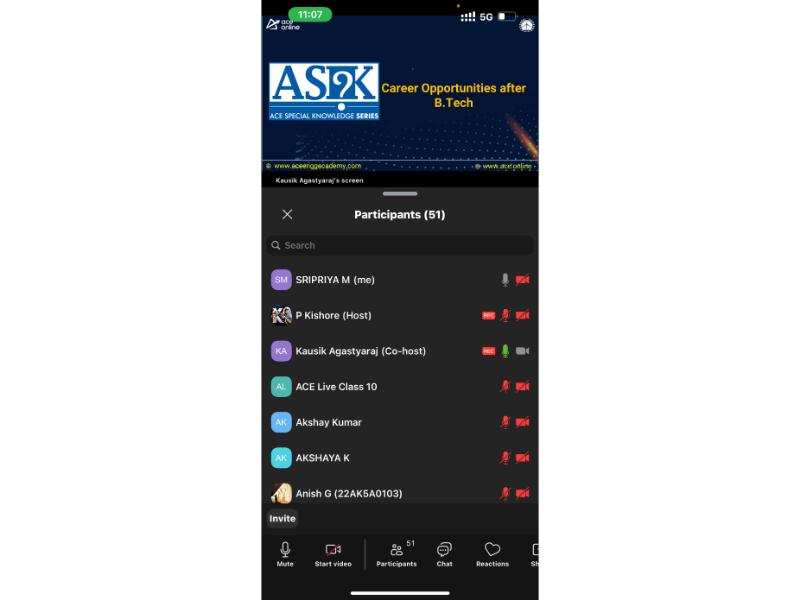
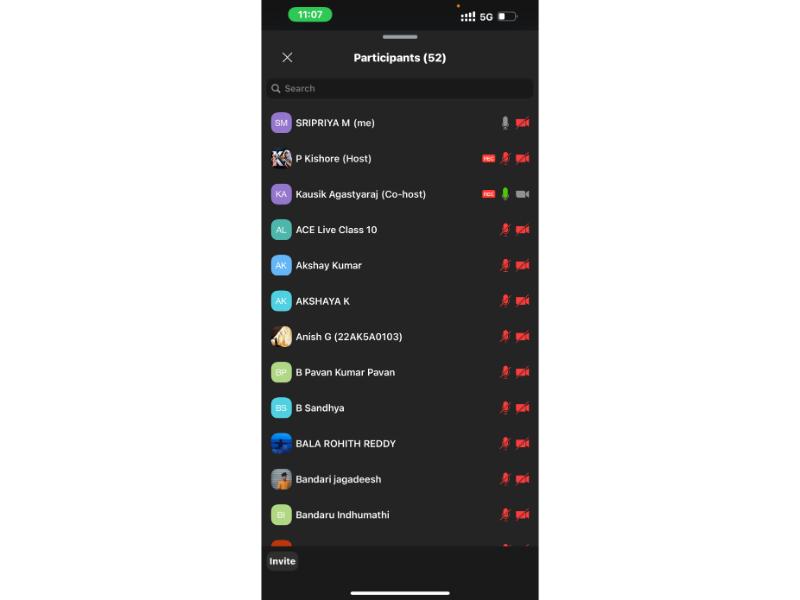
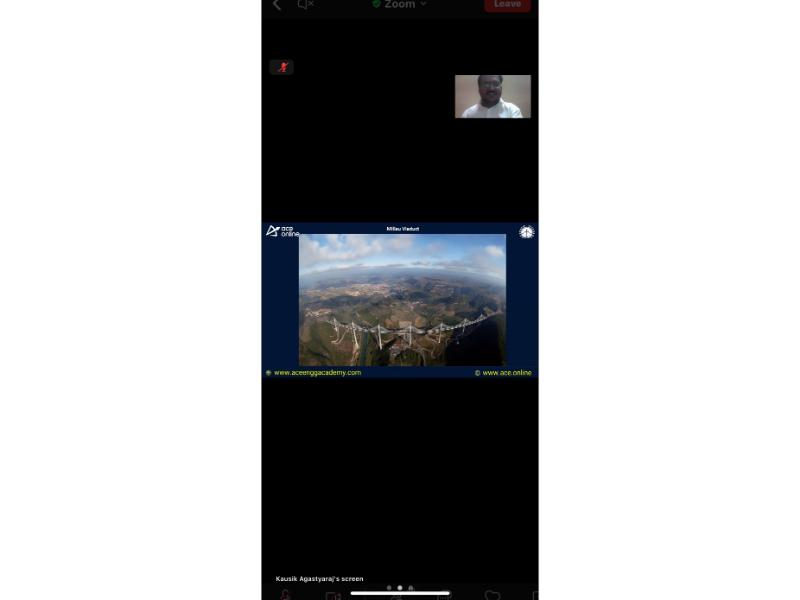
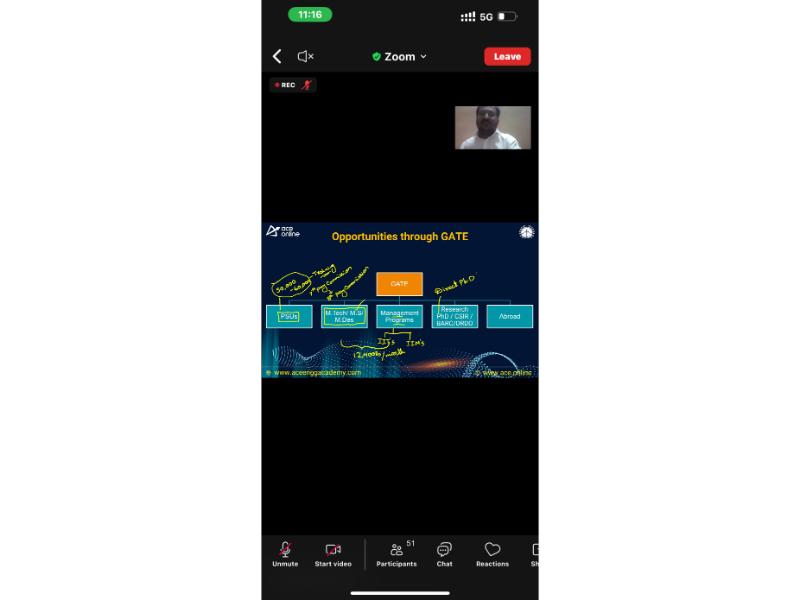
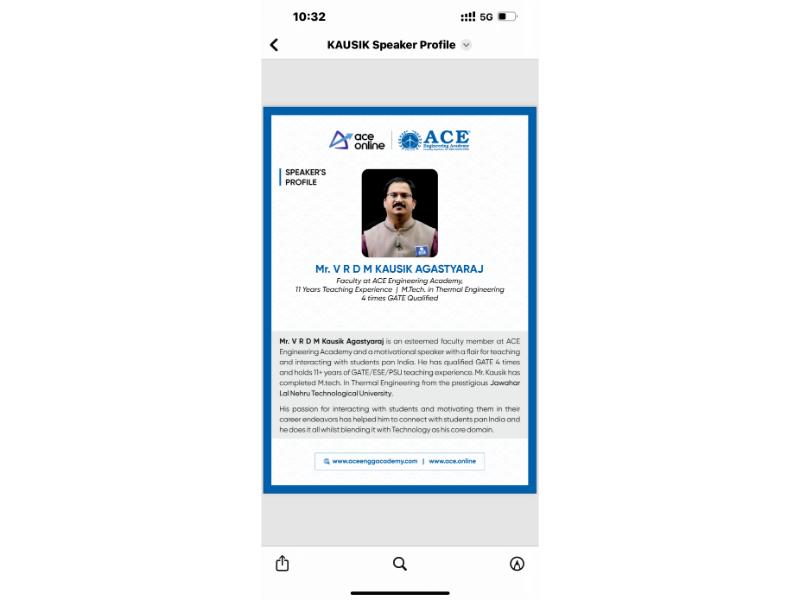
Industrial Visit to Ultra Tech Cement plant (16-04-2025)
The Department of Civil Engineering, Annamacharya Institute of Technology and Sciences, Tirupati organized an industrial visit to UltraTech Cement Plant on 16th April 2025. Students gained practical insights into the cement manufacturing process and plant operations. Industry experts explained various stages such as raw material preparation, clinker production, and quality control. The visit enhanced students’ understanding of real-world construction material practices. Overall, it was an informative and enriching experience linking theory with industry application.



Arts & Cultural Club Inauguration (8-04-2025)
Annamacharya Institute of Technology and Sciences, Tirupati Department of Civil Engineering organized the Arts & Cultural Club (Twilight Visionaries and Rhythm Nexus )Inauguration on 8th April 2025. The event featured vibrant dance performances, soulful singing, and a lively stand-up comedy act by students. The club logo was officially inaugurated by our respected Principal, Dr. C. Nadhamuni Reddy Garu. The event celebrated creativity and talent, encouraging students to explore their artistic potential.





Tech Fest Asthra 2K25 (7,8-04-2025)
The Department of Civil Engineering, Annamacharya Institute of Technology and Sciences, Tirupati organized Tech Fest ASTHRA 2K25 on 7th & 8th April 2025. The fest featured innovative events such as Bridge Testing with Waste Materials, CAD Contest, Video Making, Photography, and a fun-filled Treasure Hunt. Students from various colleges showcased their creativity, technical skills, and teamwork throughout the events. The competitions saw enthusiastic participation and were judged by experienced faculty and industry experts. Prizes were awarded to winners and runners, making the event a grand success and a memorable experience for all.







Repurposing Test Concrete for Greener Spaces (2-04-2025)
Annamacharya Institute of Technology and Sciences, Tirupati Department of Civil Engineering conducted Activity “Repurposing Test Cubes for Greener Spaces” on 2nd April 2025. Second-year Civil Engineering students conducted an eco-friendly initiative by creatively repurposing concrete test cubes into decorative plant holders. The activity promoted sustainability and green campus awareness. Students collected used test cubes from the lab and designed mini garden spaces. Faculty appreciated the students’ innovation and environmental consciousness. The event successfully blended civil engineering principles with sustainable practices.





Awareness Programme on Career opportunities (13-02-2025)
The Department of Civil Engineering at AITS Tirupati organized an awareness Programme on career opportunities on 13th February 2025. The session was conducted by ACE Faculty Kaushik Agastya Raj, who provided valuable insights into various career paths in civil engineering. The Programme covered government job prospects, higher education opportunities, and industry trends. Students actively participated in the interactive session, gaining clarity on future career choices. The event was well-received and proved to be highly beneficial for aspiring civil engineers.
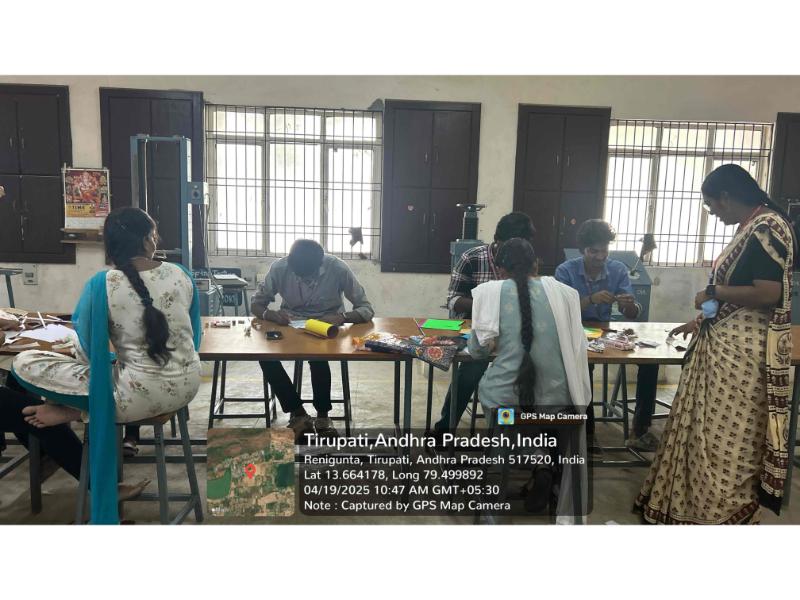
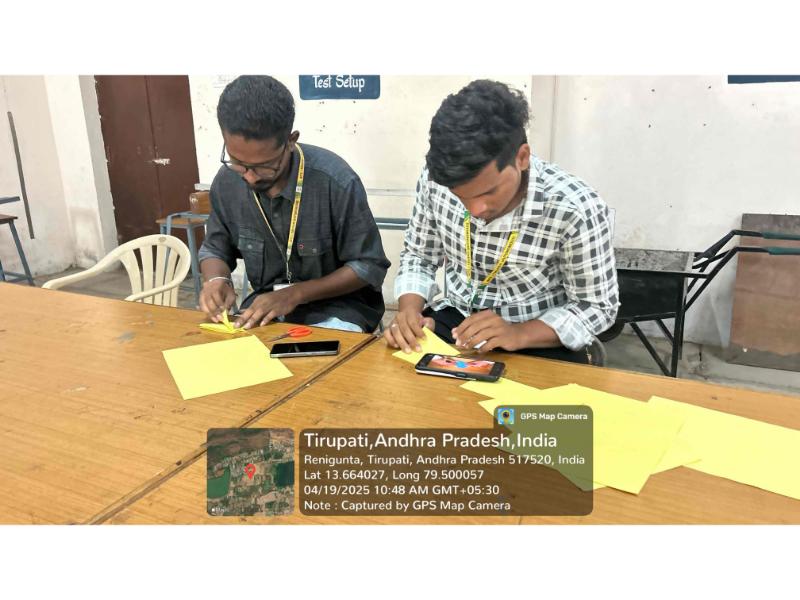
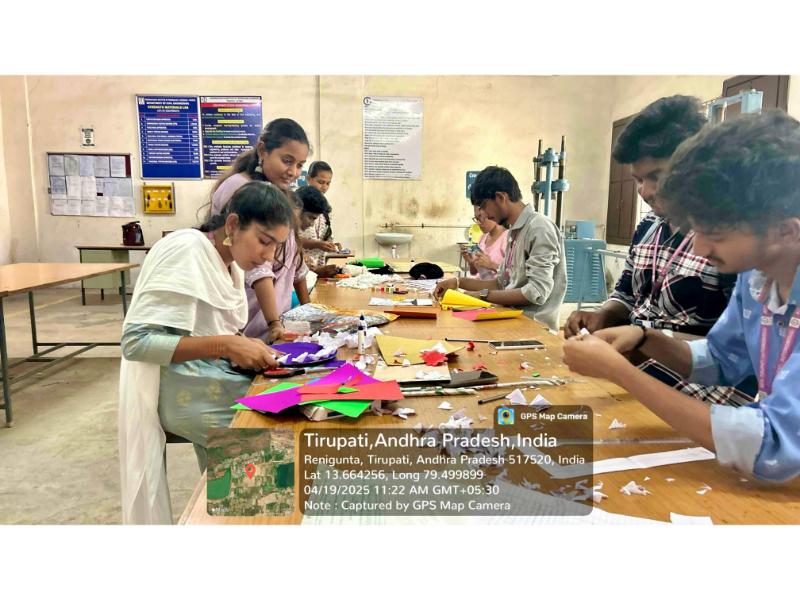
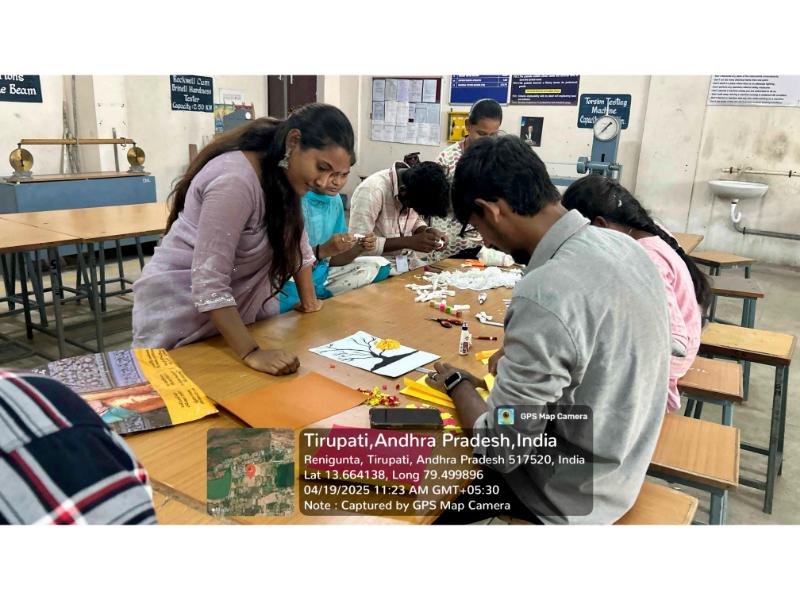
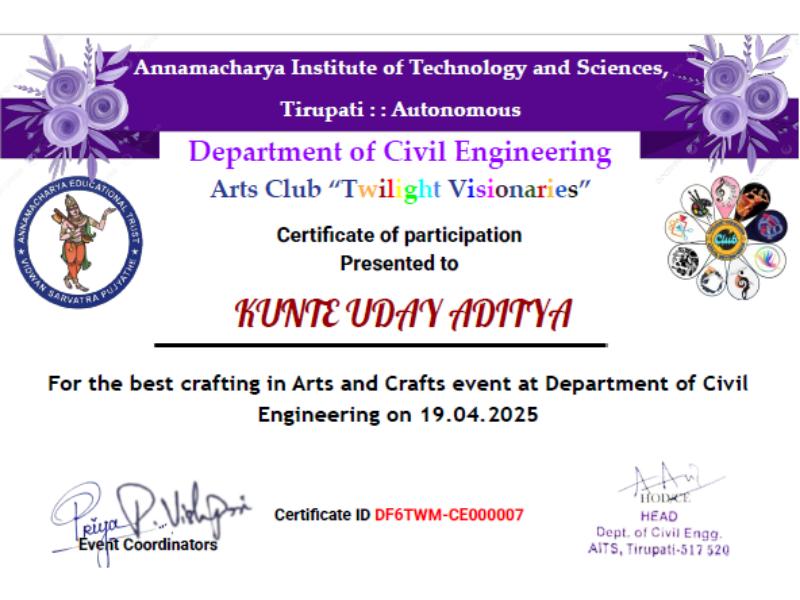
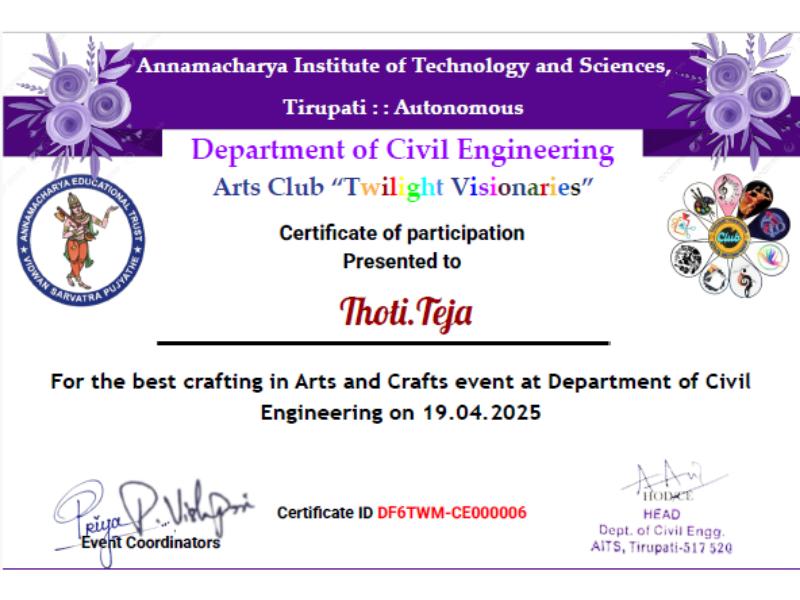
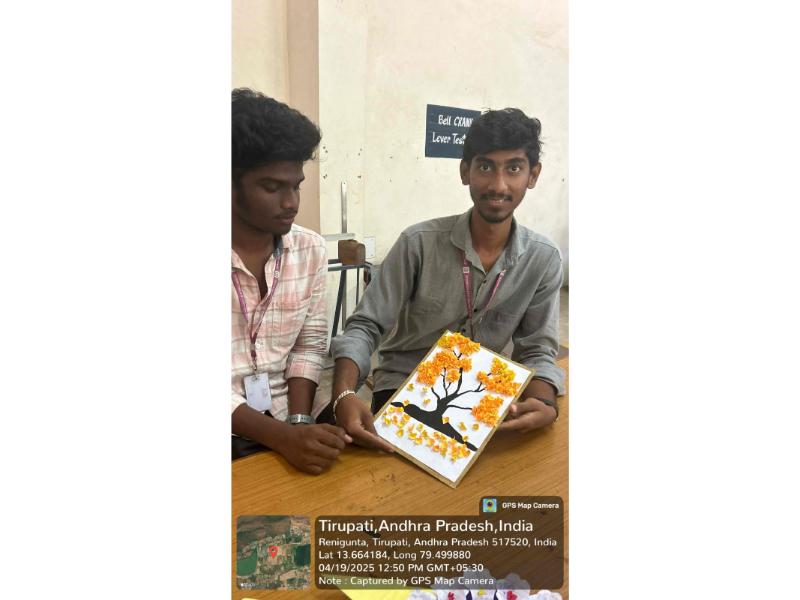
Geological Outcrop Study (30-01-2025)
The Department of Civil Engineering, Annamacharya Institute of Technology & Sciences, Tirupati, conducted The Gallery Walk activity was designed to enhance second-year students’ understanding of structural geological features such as joints, folds, and strike & dip. By engaging in collaborative learning, students applied theoretical knowledge to real-world geological structures.
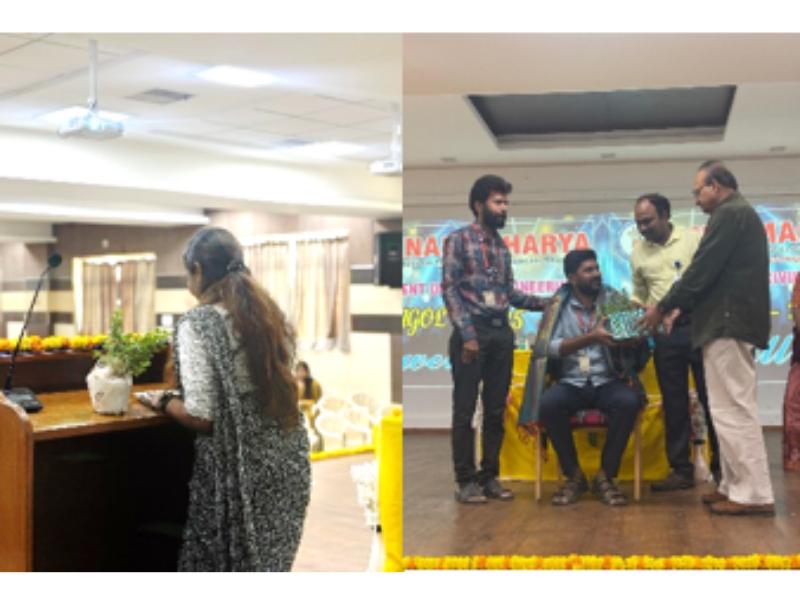
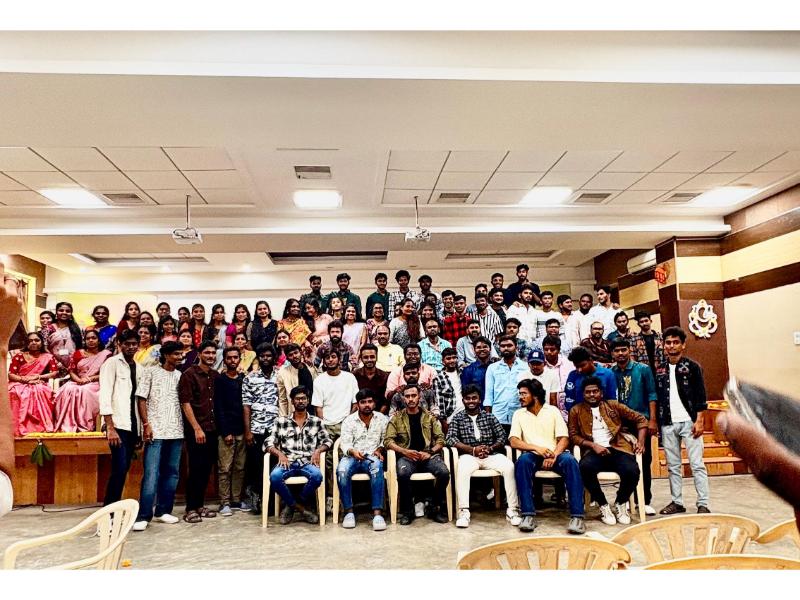
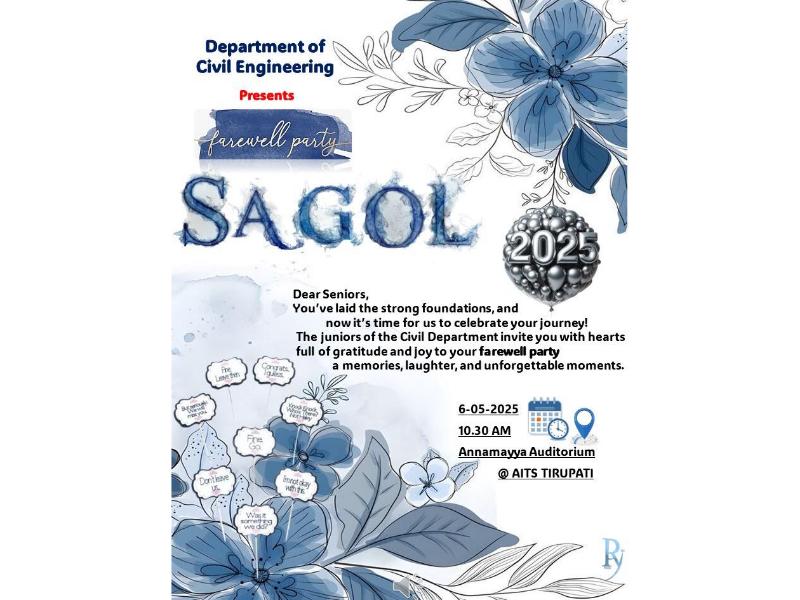

Academic Year 2023-24
Field Visit on Construction site (09-05-2024)
An industrial visit was organized at Annamacharya Institute of Technology and Sciences, Tirupati, for first-year Civil Engineering students on May 9, 2024. Chief Engineer Er Suresh and Mr. I. Vamsi Krishna led the students on a field visit to a construction site. The visit emphasized the critical importance of quality checking of materials to ensure the structural integrity and longevity of buildings. Students gained practical insights into material testing procedures and the standards required for safe construction practices. This hands-on experience highlighted the essential role of quality assurance in civil engineering projects.
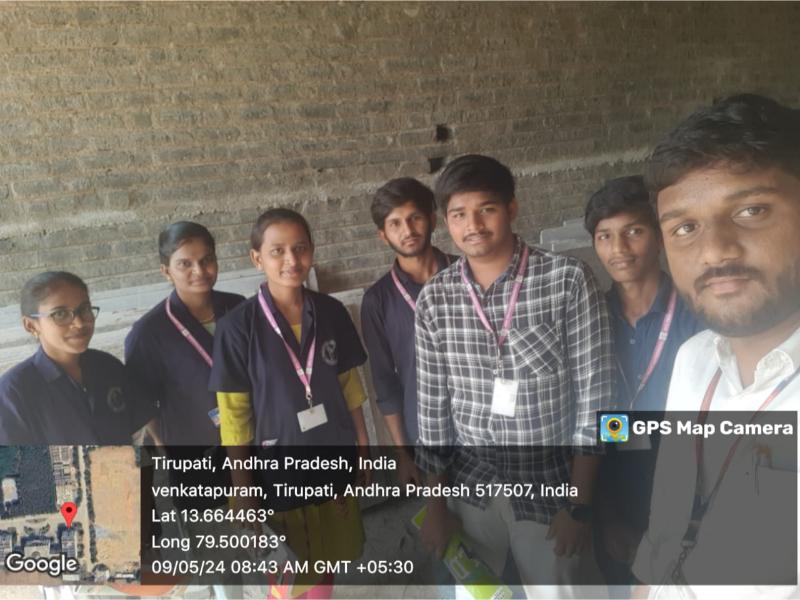
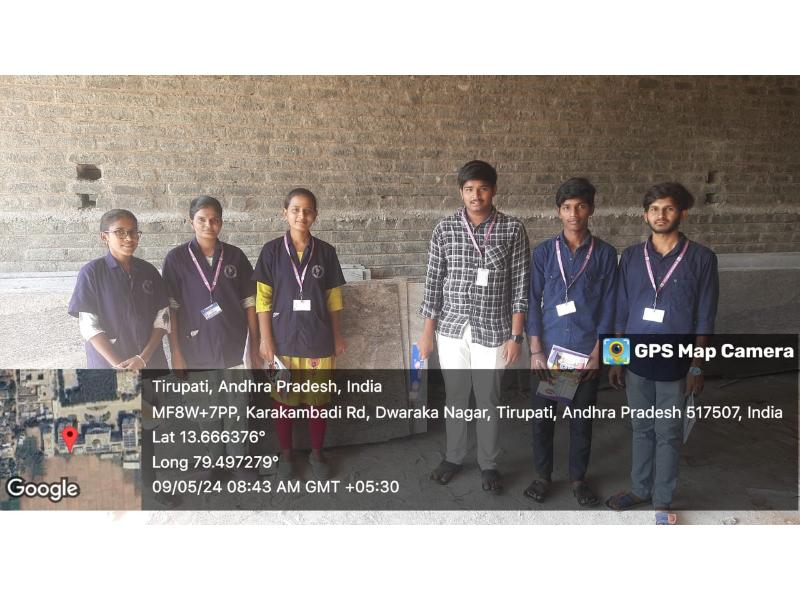
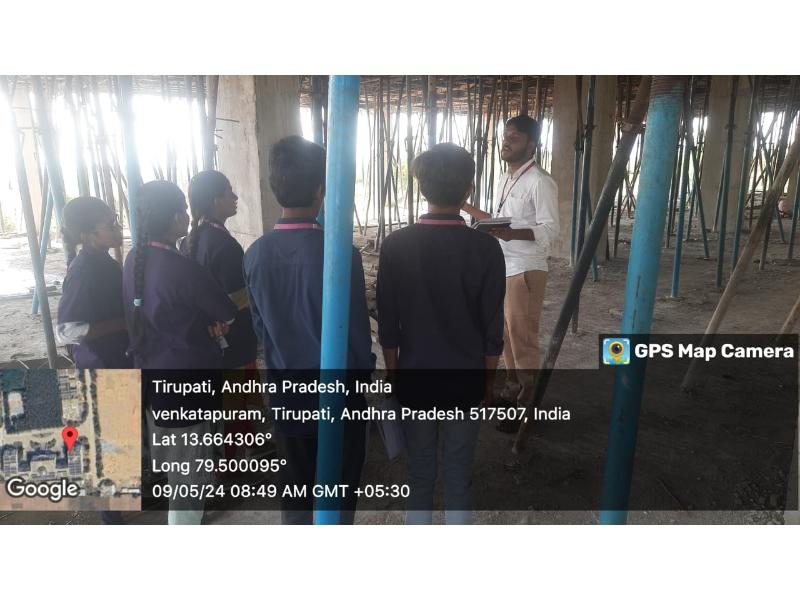
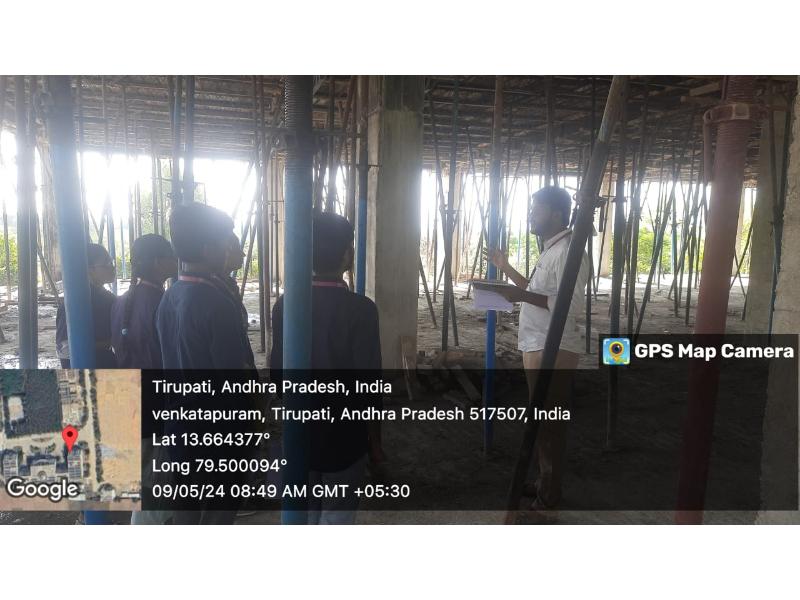
FAREWELL – 2024 -Civil Lyons (03-05-2024)
The Department of Civil Engineering at Annamacharya Institute of Technology and Sciences, Tirupati, celebrated Farewell – 2024 for the “Civil Lyons” on May 3, 2024. Principal Dr. C. Nadamuni Reddy Garu shared valuable suggestions regarding career prospects in core engineering branches. Seniors reminisced about their college experiences and offered advice to their juniors. The event was filled with heartfelt speeches, laughter, and a sense of camaraderie. It marked a memorable farewell as students prepared to embark on their professional journeys.








Industrial Visit on Post Tensioning and Stressing Application (29-02-2024)
An industrial visit was organized at Annamacharya Institute of Technology and Sciences, Tirupati, for third-year Civil Engineering students. Chief Engineer Er Suresh and Dr. K Thulasi Rajan, along with Mrs. D Nirosha and Mr. I Vamsi Krishna, led the visit. The focus was on the application of post tensioning and stressing at 6000 psi, extending tensons by 50 mm. Students gained practical insights into modern construction techniques and their applications in real-world scenarios.
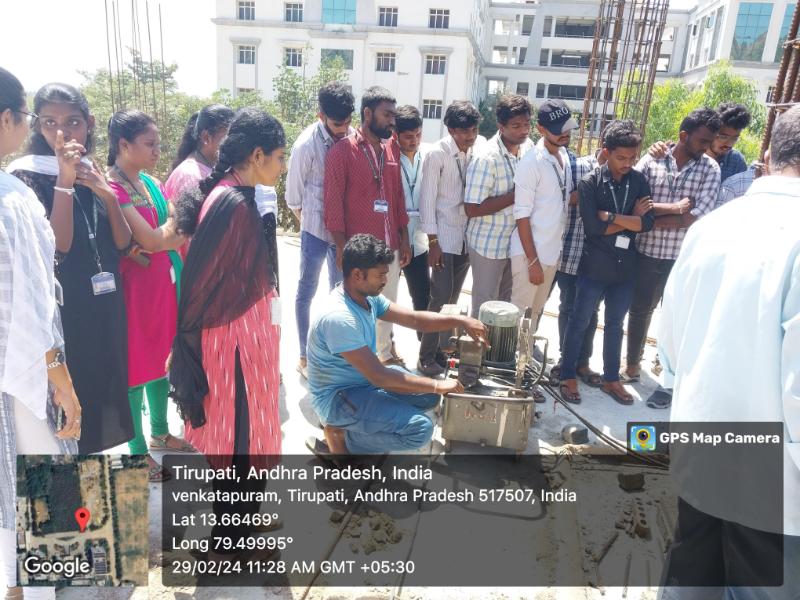
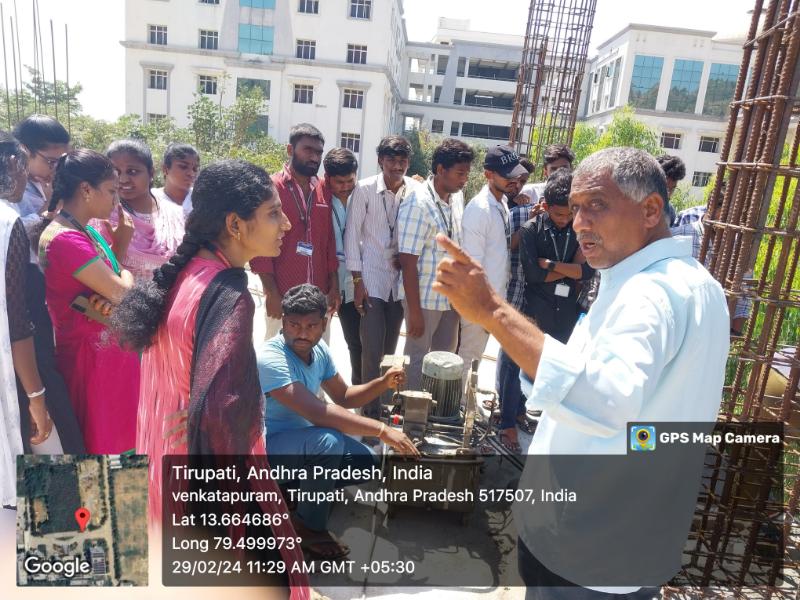
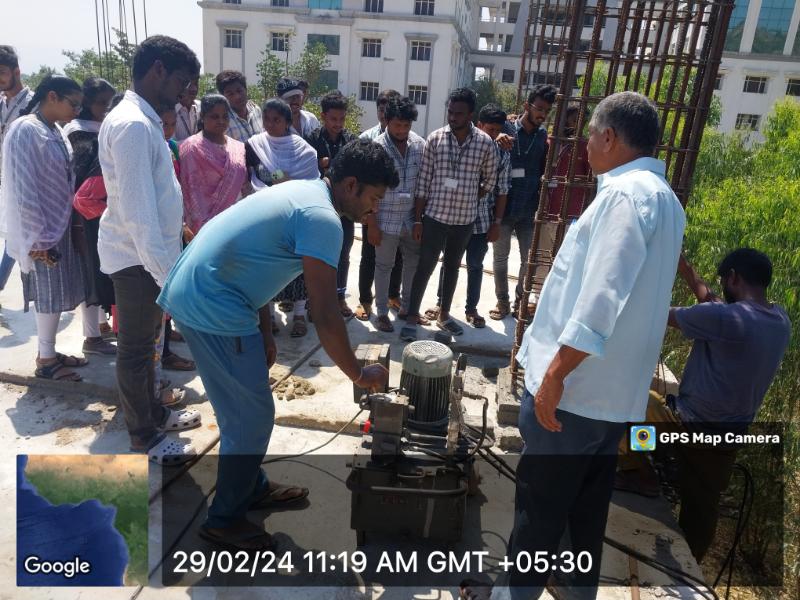
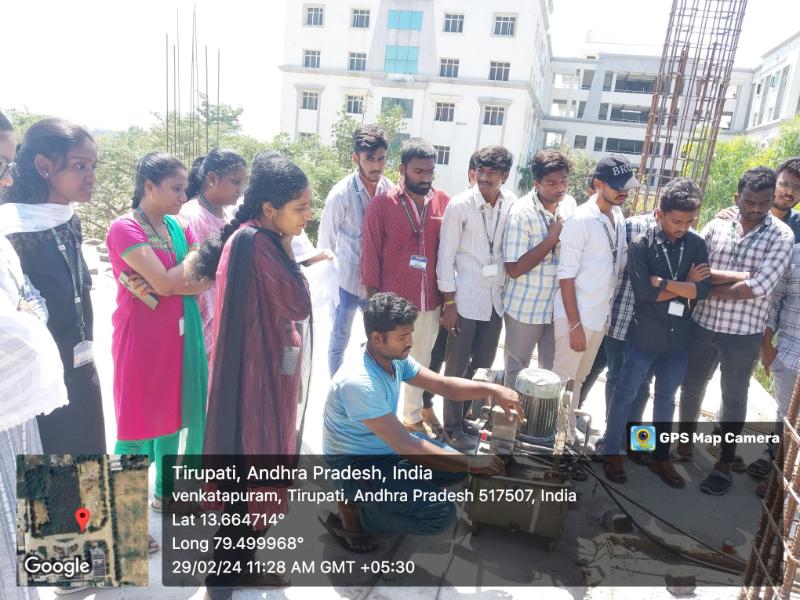
Awareness Programme on MS Oppurtunities (26-02-2024)
An awareness program on MS opportunities was conducted at Annamacharya Institute of Technology and Sciences, Tirupati, specifically for third-year students in the Department of Civil Engineering. The session was led by Mavya Kunapareddy, CEO of PRECIS Consultancy, Secunderabad, on 26 February 2024. The program aimed to enlighten students about various MS opportunities available in their field and provided insights into career prospects post-graduation. It was well-received by the students, enhancing their understanding of potential career pathways and academic pursuits beyond undergraduate studies.







Awareness Programme on Advanced software’s BIM and Ansys (25-1-2024)
Cherry Institute, Bangalore, organized an Awareness Programme on Advanced Software’s BIM and Ansys at Annamacharya Institute of Engineering and Technology, Tirupati, on January 25, 2024. The event was led by Head Manager K Suresh Garu, providing valuable insights into cutting-edge software applications for civil engineering students. The session aimed to enhance awareness and proficiency in BIM and Ansys tools, fostering technological advancement in the field. Students gained valuable knowledge to stay updated with industry demands.



Freshers Day-Aagaaz (9-1-2024)
The Freshers Day program “Aagaaz” held on January 9, 2024, at Annamacharya Institute of Engineering and Technology, Tirupati, specifically catered to the Civil Engineering students. The event featured vibrant cultural programs that left the freshers feeling overwhelmed with joy and excitement. The festivities successfully marked the beginning of a new academic journey for the budding civil engineers at the institute.
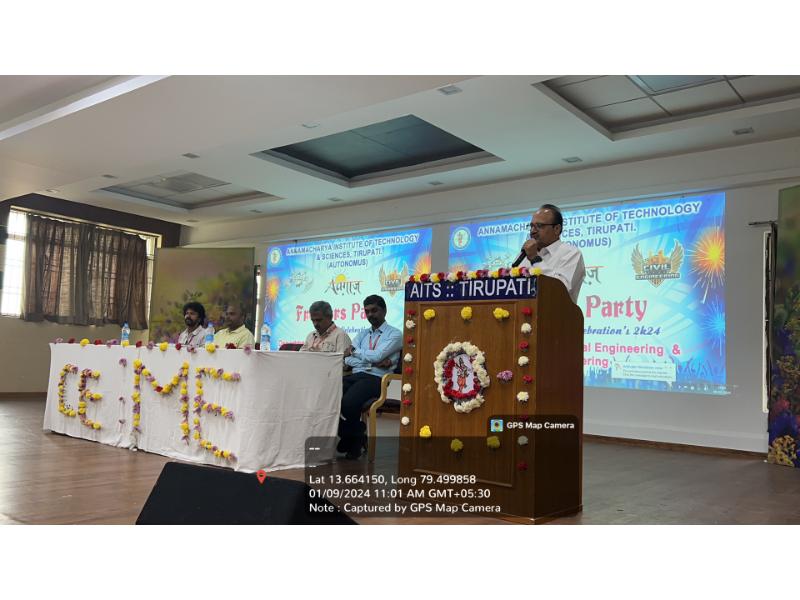
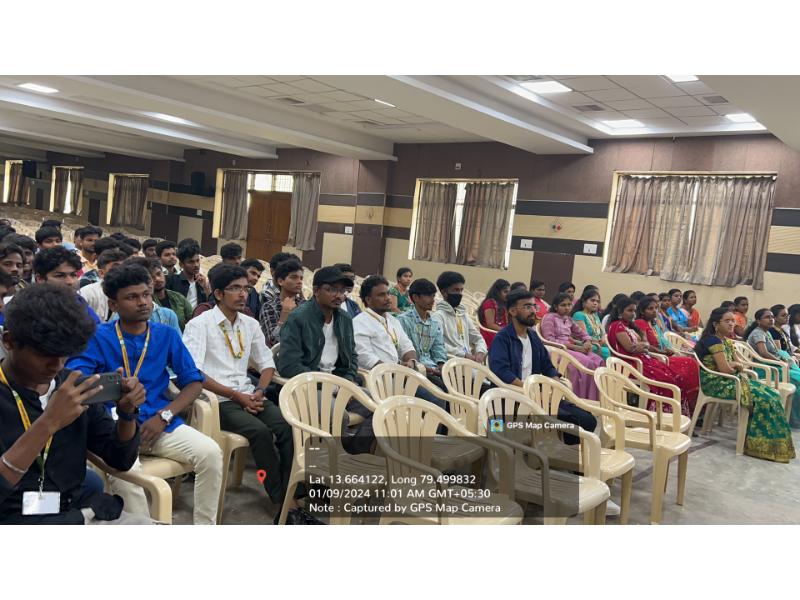
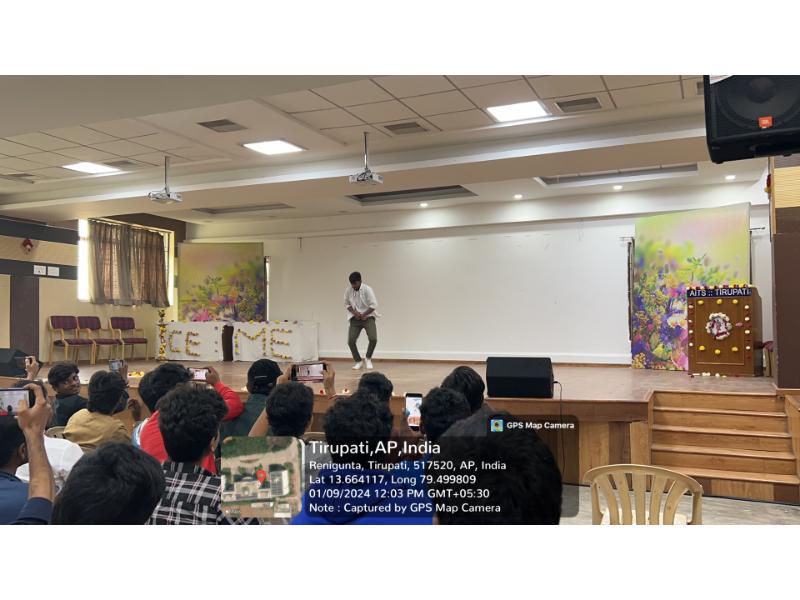
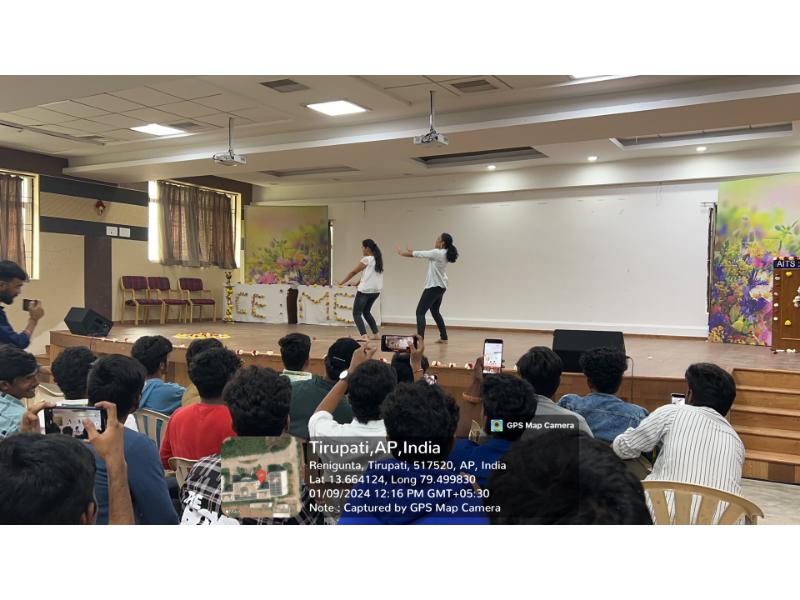
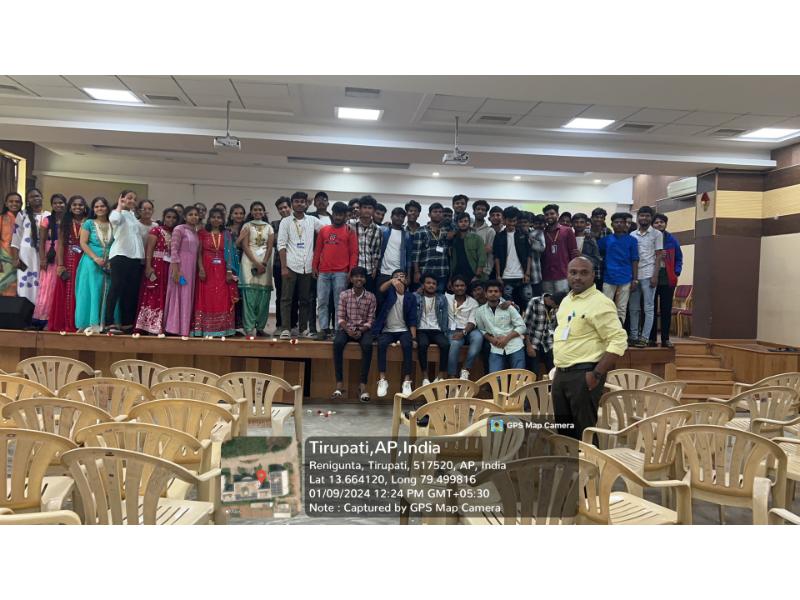
CAD Plot Competition (16-11-2023)
The Department of Civil Engineering at Annamacharya Institute of Technology & Sciences, Tirupati, successfully organized a CAD Plotting Competition on November 16, 2023. The event witnessed enthusiastic participation from students across II Year and III Year civil engineering students, each showcasing their skills in creating detailed and accurate CAD plots. faculty members I Vamsi Krishna and Meenu Sri Priya evaluated the entries based on criteria such as precision, creativity, adherence to standards, and overall presentation. The winners were announced after a rigorous evaluation process, and they were awarded with certificates acknowledging their exceptional talent and dedication.



Engineer’s Day (15-9-2023)
The Department of Civil Engineering, AITS Tirupati, celebrated Engineers’ Day 2023 at the college auditorium. Dr. C. Nadhamuni Reddy emphasized the importance of technological upgradation and practical learning, while Dr. J. Guru Jawahar spoke on knowledge sharing and emerging technologies. Chief Guest D. Radha Krishna Murty, Executive Engineer of the Telugu Ganga Project, shared insights on civil engineering and the project’s significance. The event also featured model-making from waste materials and prize distribution for bridge testing winners
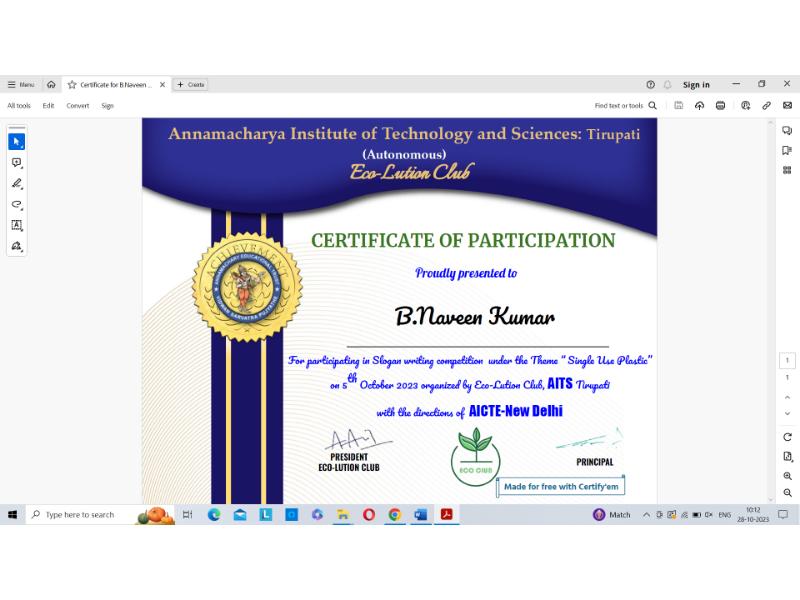
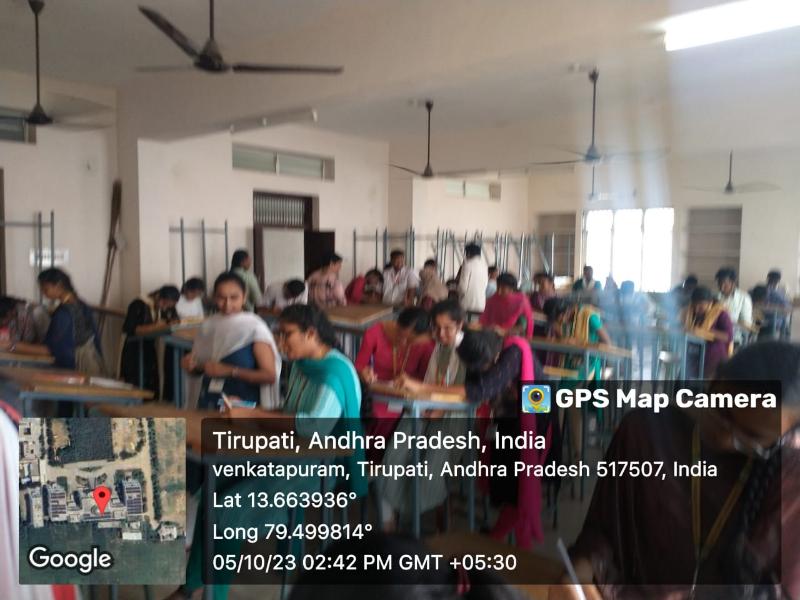
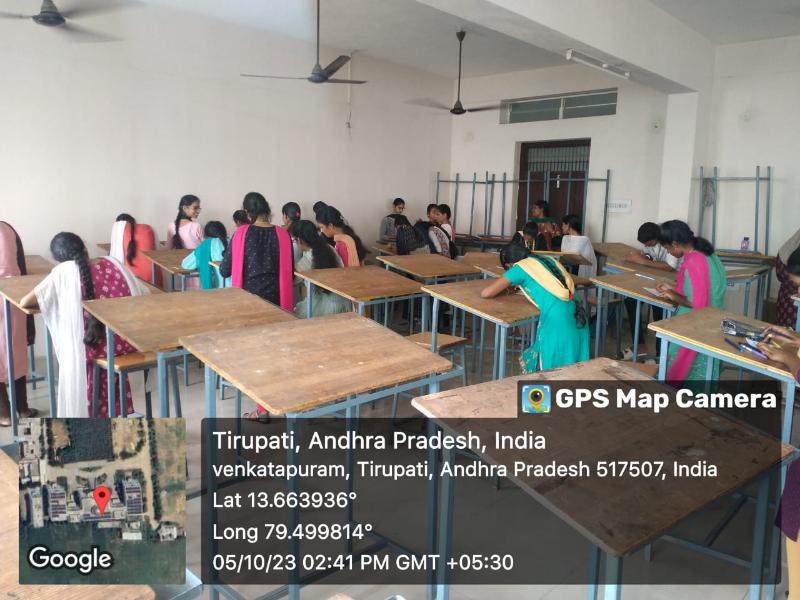
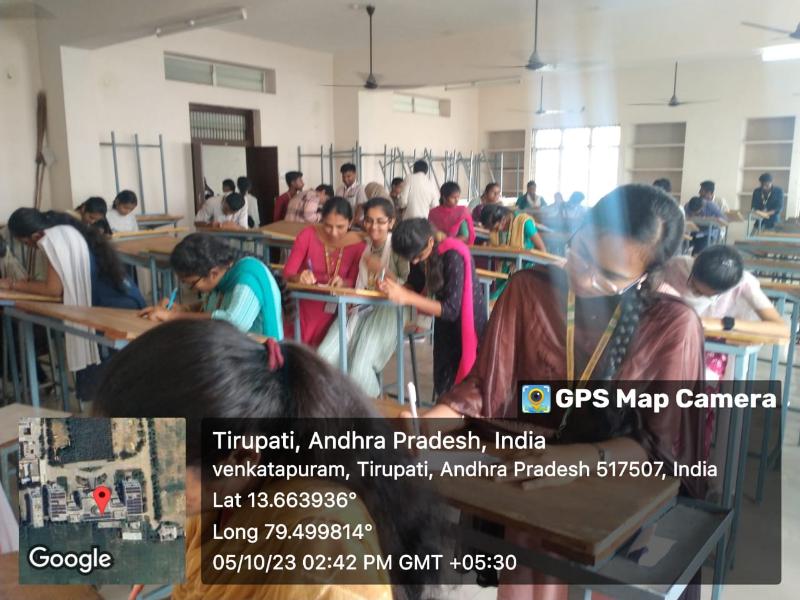
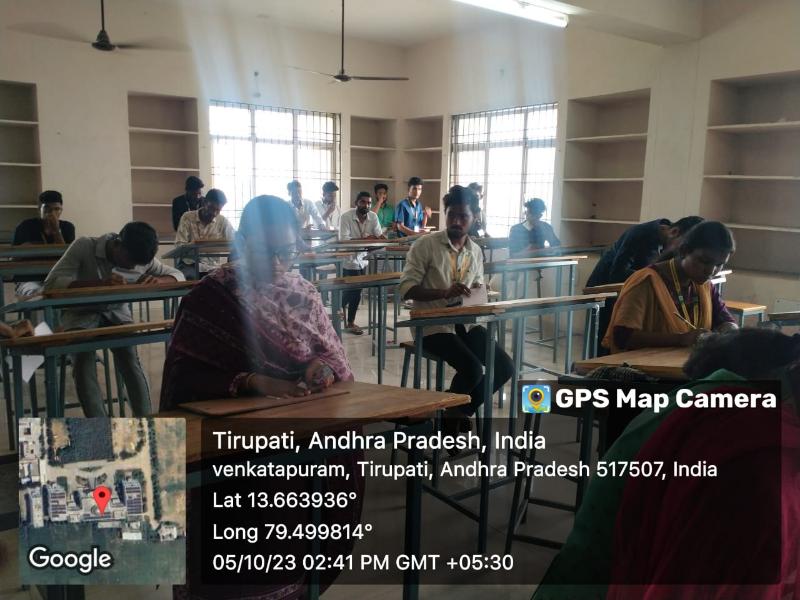
Slogan writing on Single Use Plastic (5-8-2023)
The Department of Civil Engineering, AITS Tirupati, organized a Slogan Writing Competition on Single-Use Plastic on October 5, 2023, to raise awareness about its environmental impact and promote sustainable practices. Students from various departments participated enthusiastically, expressing creative ideas to reduce plastic usage. Mr. A. Anil, Head of the Department and President of the Eco-Club, highlighted the urgent need to address the harmful effects of single-use plastics on ecosystems.
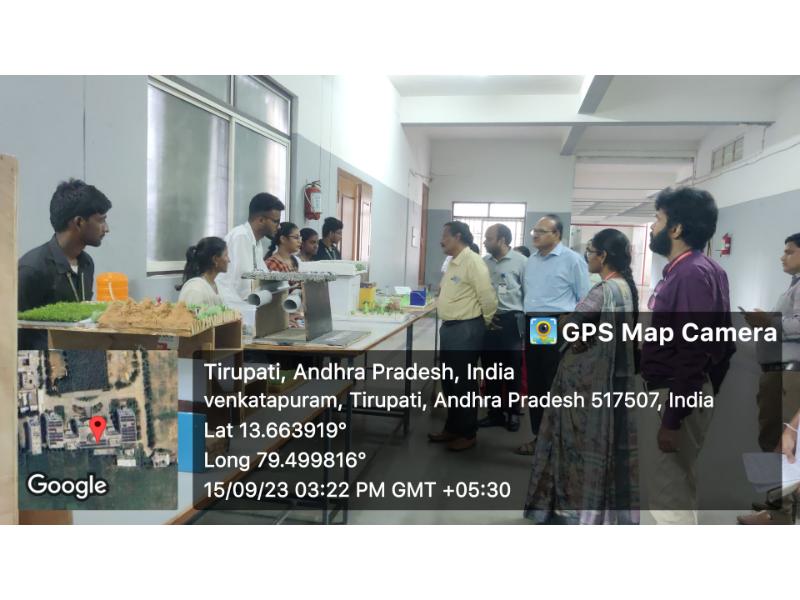
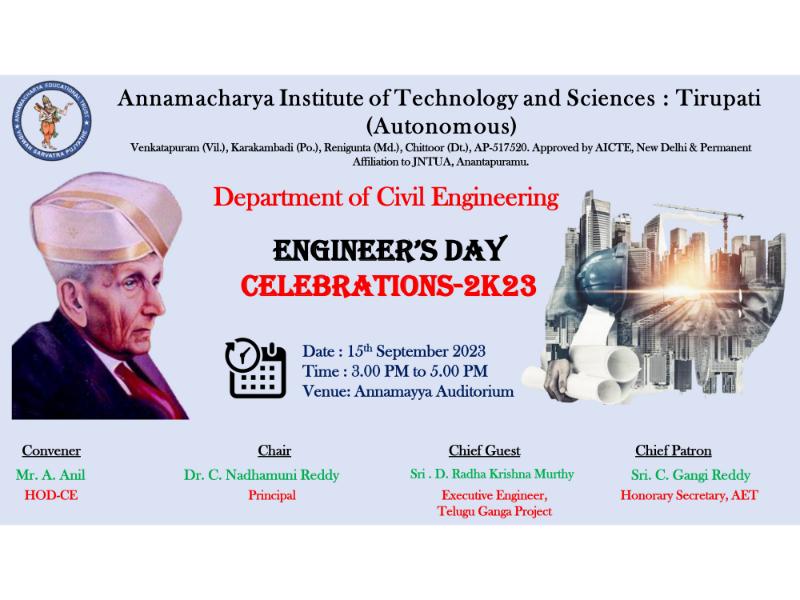
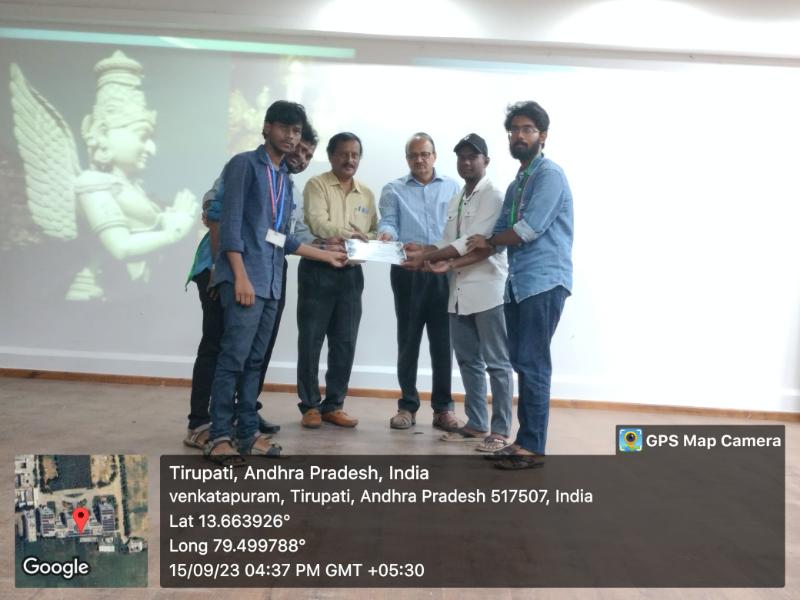
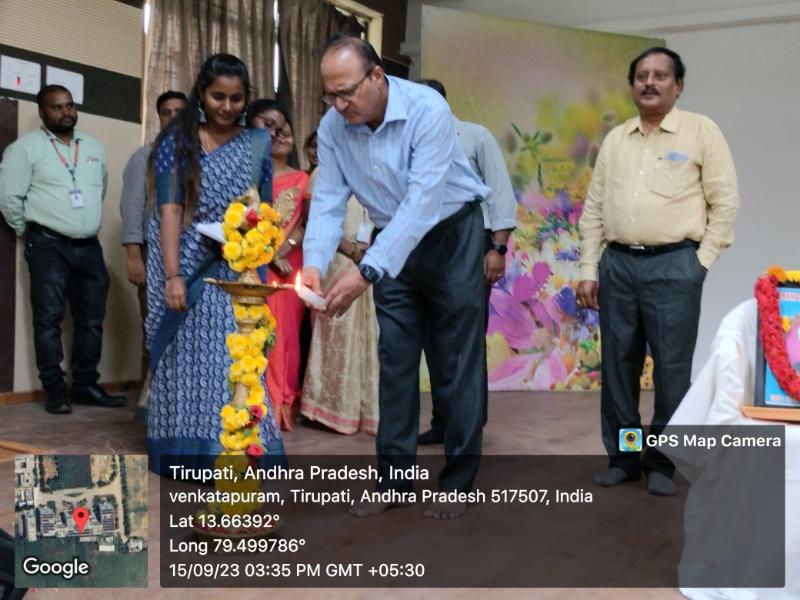
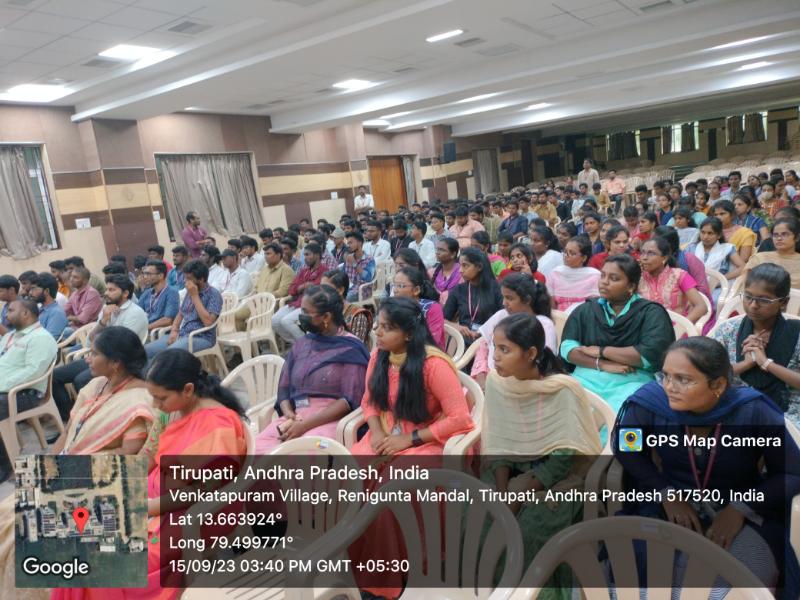
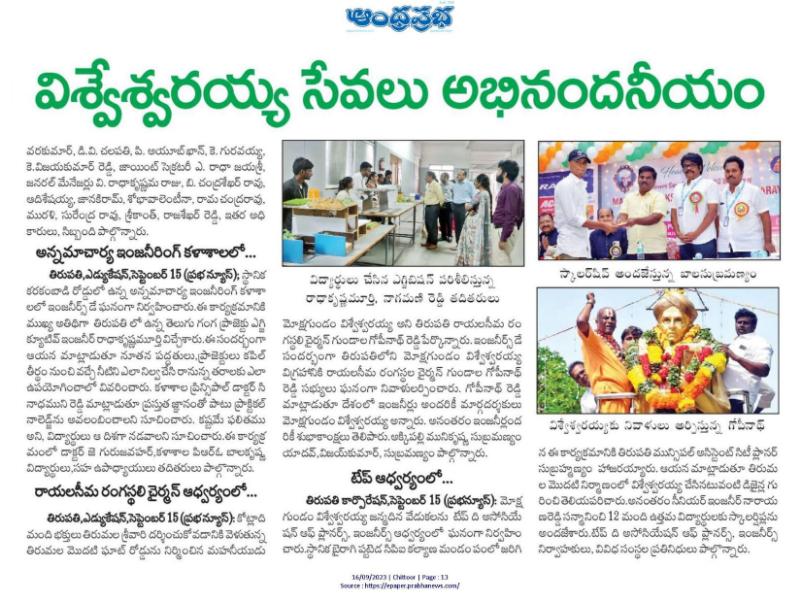
Bridge Testing (13 &14 -8- 2023)
The Department of Civil Engineering, AITS, conducted a Bridge Testing event coordinated by Mr. P. Narendra Reddy. Students designed and built popsicle stick bridges in groups to test their strength and load-bearing capacity. The event encouraged creativity and engineering application, with winners and participants receiving medals and certificates for their efforts.




Webinar on Career opportunities for engineering Graduates (10-9-2023)
The Department of Civil Engineering, Annamacharya Institute of Technology & Sciences: conducted a webinar on opportunities of career in civil engineering .its conducted by the Coordinator Mr. Abhinav . V R D M KAUSIK AGASTYARAJ expalined what are the requirements for doing Courses in civil engineering and details for job oppurtunities in civil engineering ,how to get finanical support after graduation what are the career oppurtunities available explained about Civils Govt Jobs oppurtunities and how to crack them in detailed way.
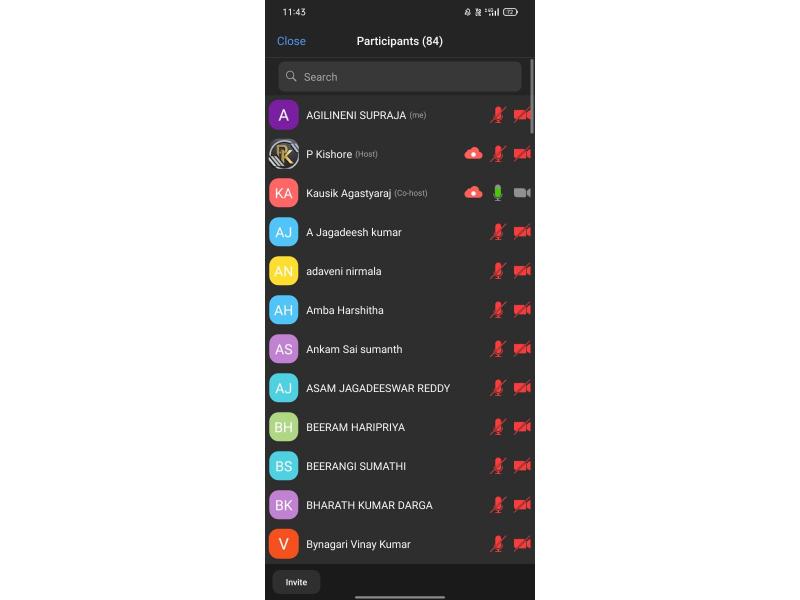
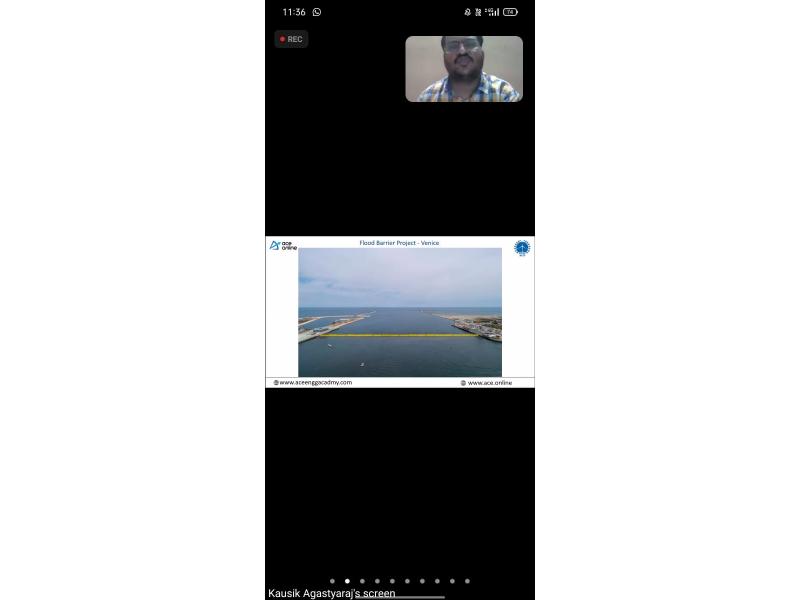
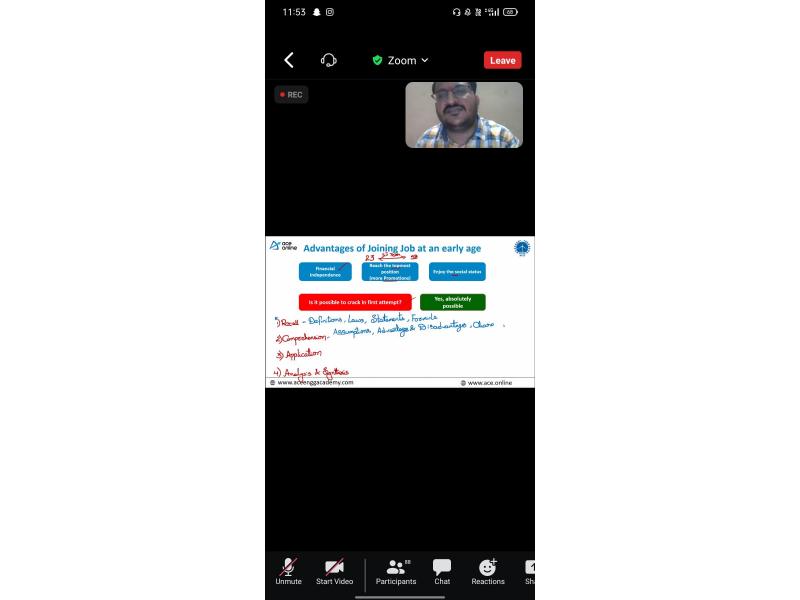
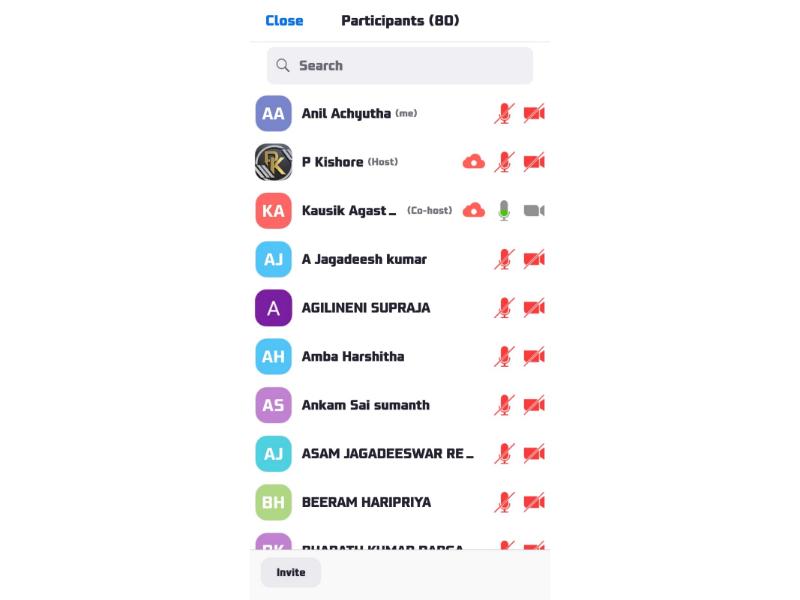
Industrial Visit to Kailasa Kona Water Fall (28-8-2023)
The Department of Civil Engineering, Annamacharya Institute of Technology & Sciences:: Tirupati went to a visit on 28 Aug 2023 location of Kailasa Kona canal fall to understand the importance of designing canal falls for vertical drop falling and to control the soil erosion on the place to protect canal bank. Miss Harsha Sri & Miss A Kalpana explained to the student’s cistern and impervious floors how to design and how to protect the beds by pitching practically by visiting water fall.



Webinar on Career & MS opportunities in Canada (12-8-2023)
The Department of Civil Engineering, Annamacharya Institute of Technology & Sciences:: conducted a webinar on opportunities of career and Post-graduation in civil engineering .its conducted by the Coordinator Mr. Abhinav . B Yaksha Reddy M.S., B.Tech., Project Coordinator, Walker Home, Port Elgin, Canada expalined what are the requirements for doing masters in civil engineering and course structure details for specalizations major in civil engineering along with fee strcuture and admission process ,how to get finanical support after graduation what are the career oppurtunities available ,also conveyed the importance of Work Permit PGWP.
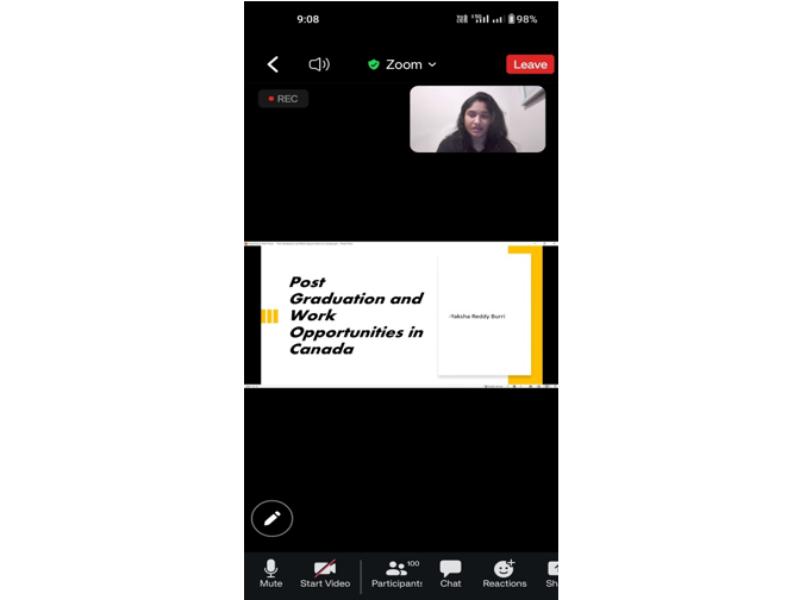
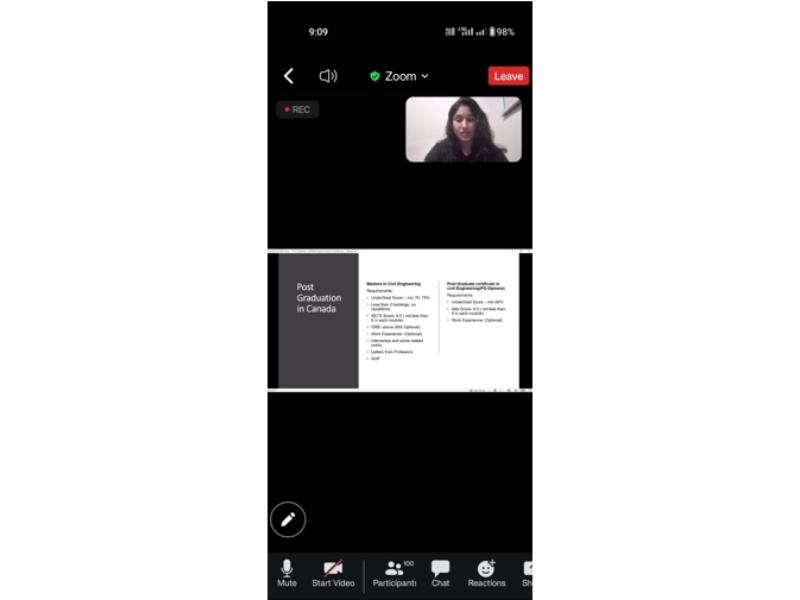
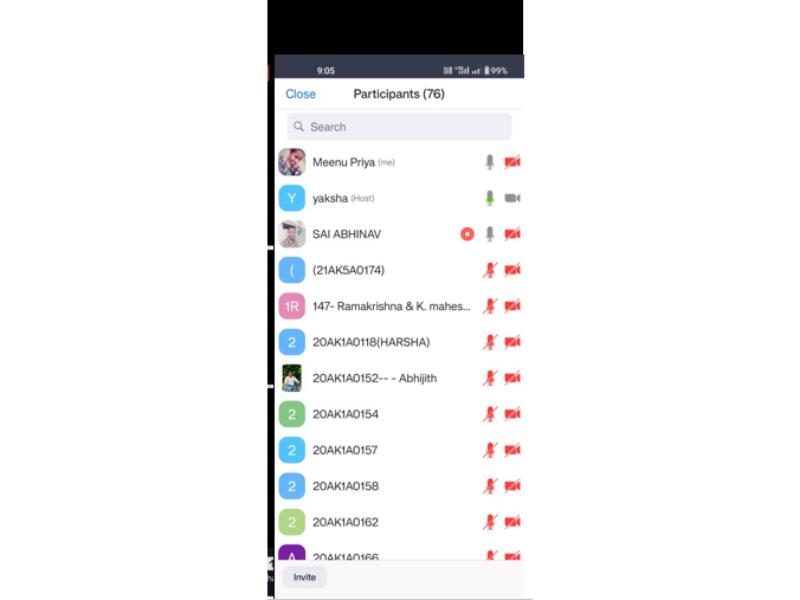
Sports for Faculty (12,13-7-2023)
The Department of Civil Engineering, Annamacharya Institute of Technology & Sciences:: Tirupati conducted Intra department sports for Male and female faculty .they conducted sports outdoor Cricket and indoor Badminton for Gents and Indoor sports for Badminton ,Caroms , Chess for Ladies. Mr. I Vamsi Krishna as a coordinator successfully conducted the sports for college Intradepartmental sports on 12 July to 13 July 2023. The prize distribution Trophy and certificates for winners and runners by our Hon’ble Principal Dr C Nadamuni Reddy Garu. While Conducting sports sir explained the importance of sports and its impact on development of our health due to sports.





Workshop on Revit (20-7-2023)
The Department of Civil Engineering, AITS Tirupati, organized a workshop on Revit on 20.07.2023, conducted by Mr. G. Siva Kumar from Aylin Technologies Pvt. Ltd. He explained the basics of Revit, demonstrated building plan creation, and discussed key Autodesk courses beneficial for civil engineering students. Mr. Anil, Head of the Department, highlighted the importance and future scope of software skills in civil engineering.
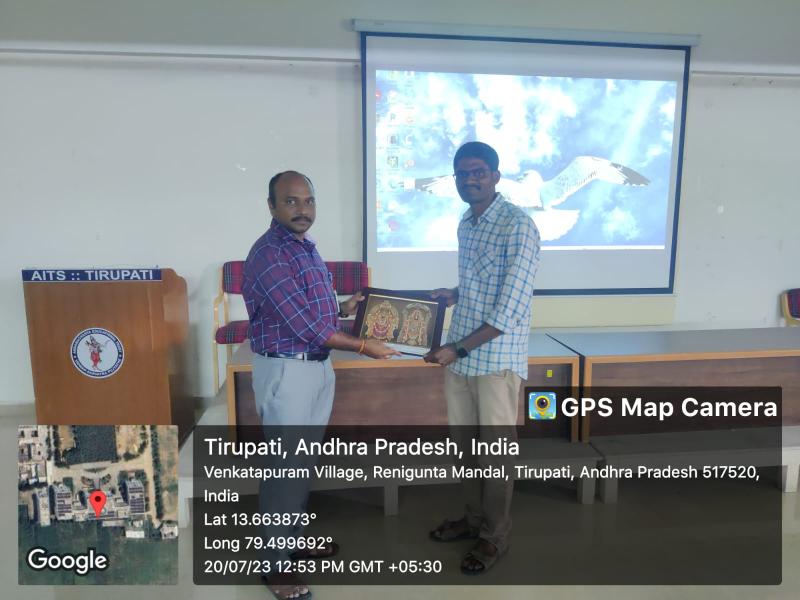

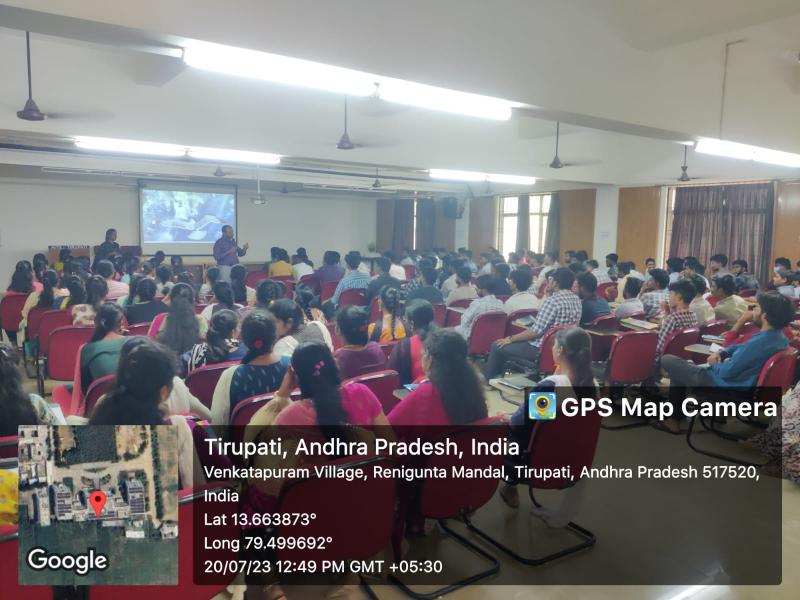


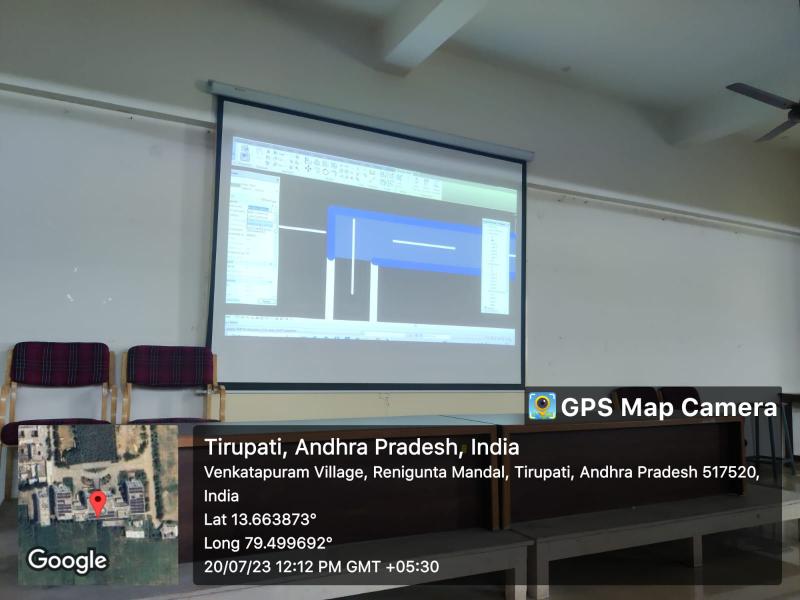
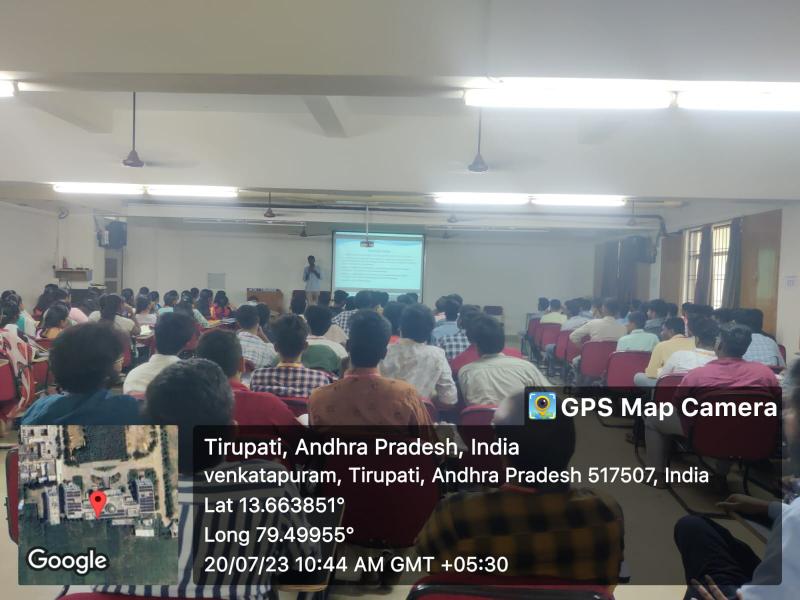
Academic Year 2022-23
National Technology Day (11-5-2023)
Students of Civil Engineering have participated in National Technology Day 2023 on 11.05.2023. On this occasion, honorable India Prime Minister P. Narendra Modi has addressed all the technical citizens of India through Web cast live. As a part of this program Honorable PM has inaugurated the following health and educational Institutions:
- Advanced cancer treatment for women and children and inaugurated a cancer hospital in Mumbai.
- Inaugurated a Homi Bhabha Cancer hospital and Research Centre, Jatin.
- Rare Earth Permanent Magnet Plant, Visakhapatnam.
Dr. J. Guru Jawahar, Professor of Civil Engineering has addressed the Civil Students about Nuclear Bomb explosions and advanced technologies and developments in remote sensing and satellite applications. Mr A. Anil HOD, CE has given his views on upcoming technologies in hydrology using GIS.
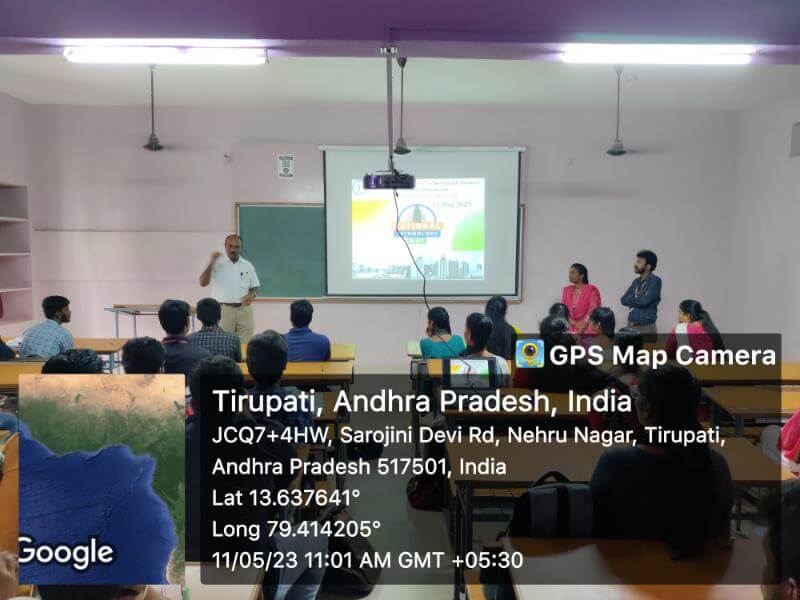
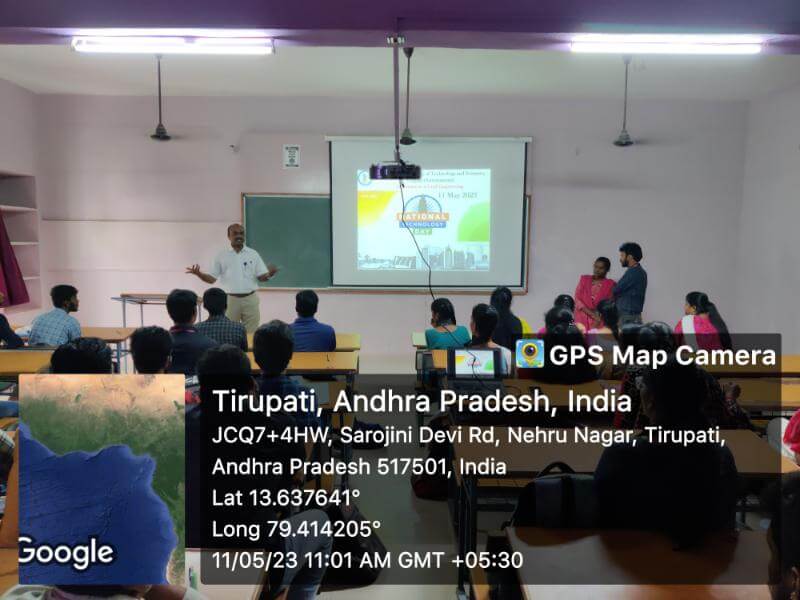
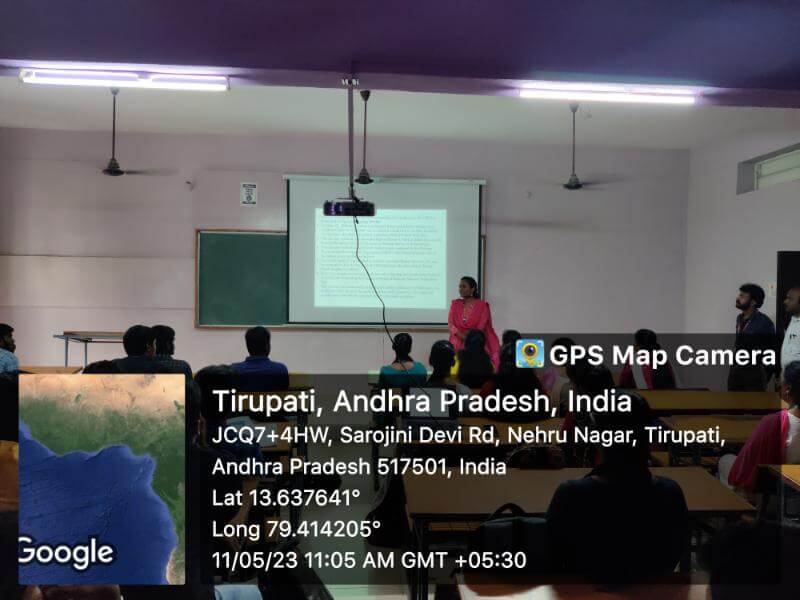
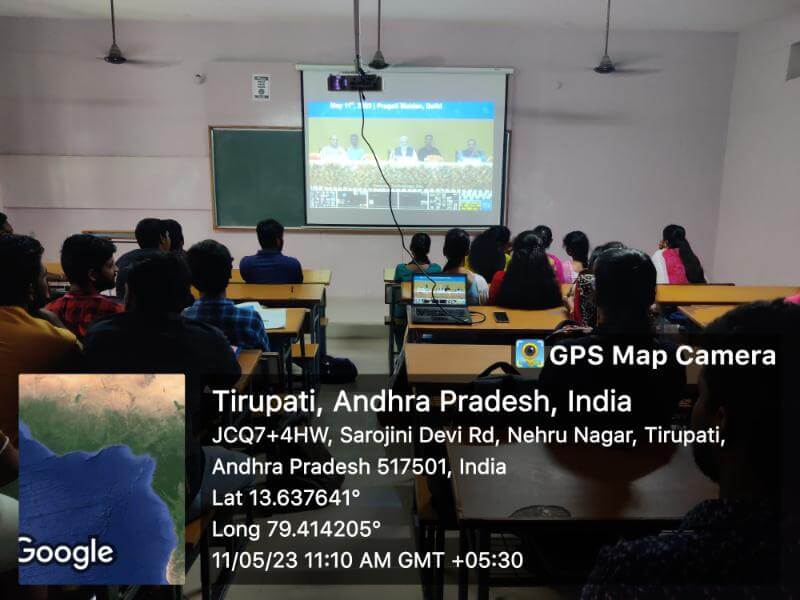
Farwell Do Svidaniya (09-05-2023)
Welcomed the Farewell on this occasion of Farewell Day Do Svidaniya Organized by dept of Civil Engineering. The theme of this farewell party reflects their hope and optimism for the future of the seniors as they embark on their new journey. Programme successfully completed by third year students with sweet memories giving warm send off to their seniors. For conducting of intra sports principal sir C Nadamuni Reddy Garu appreciated the winners and runners with certificates and medals. Students are pleased with cultural activities and explored the Farewell party with Final Pro video of Seniors memories. The programme ended with heavy hearted feelings to say good bye for final years by taking final photoshoot and we all wished them best for their future.






Intra Sports Competetion(12,13-04-2023)
The department of Civil Engineering, Annamacharya Institute of Technology &Sciences: Tirupati Conducted sports on 12,13 -April-2023 for Civil Engineering students (girls and boys).Sports include indoor games and outdoor games .winners and runners medals were distributed for the students who participated in their respective sport was awarded by participation and certificates.
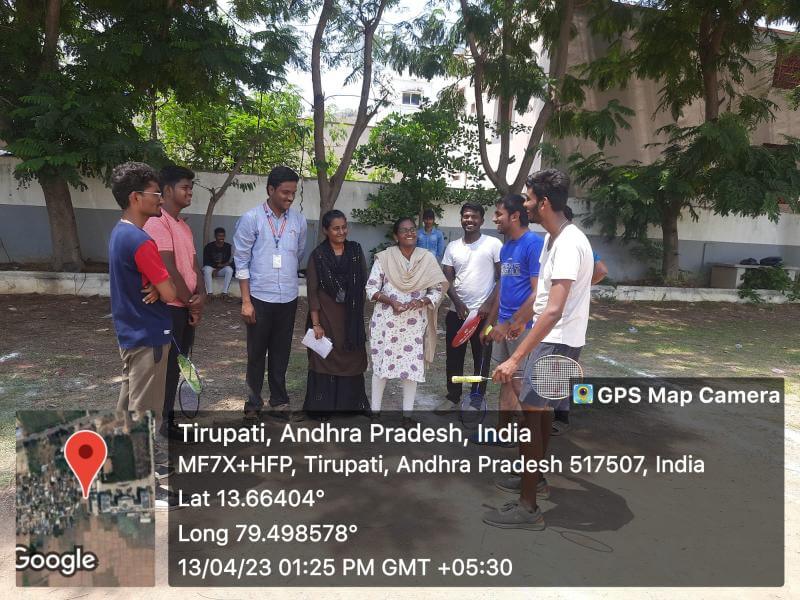
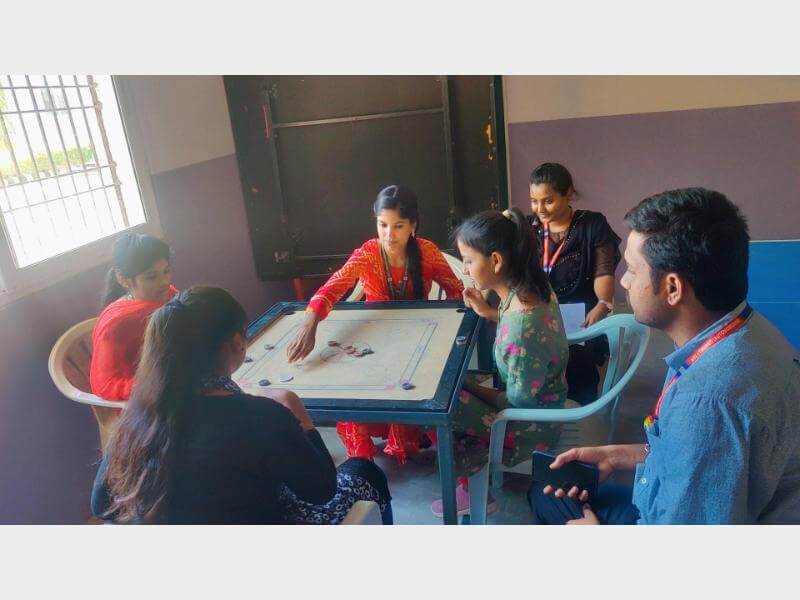
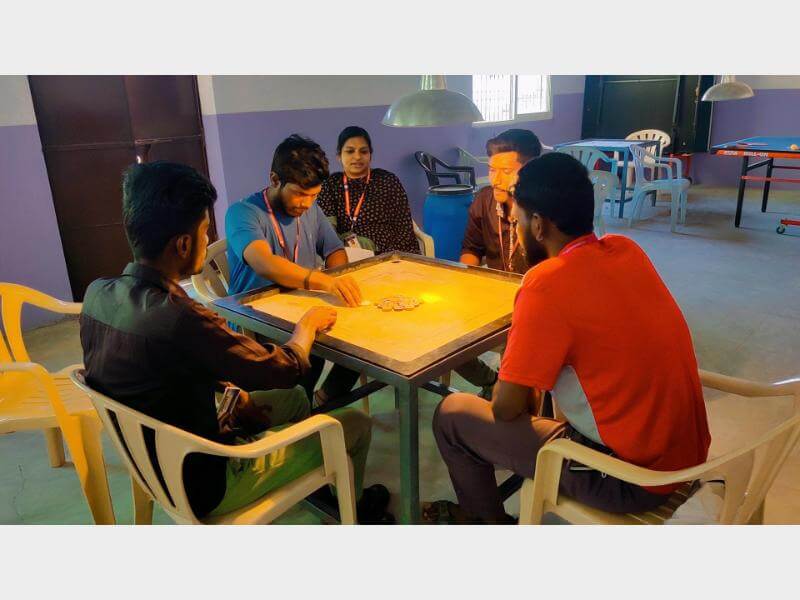
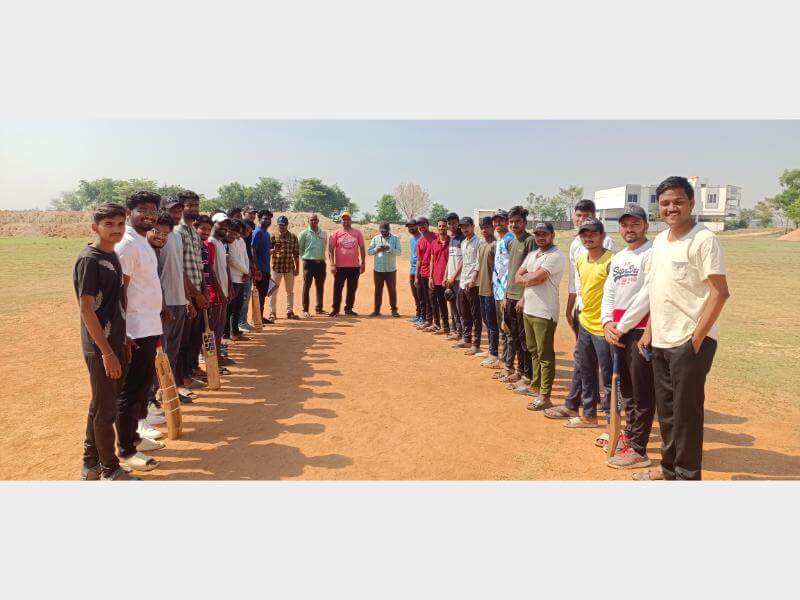
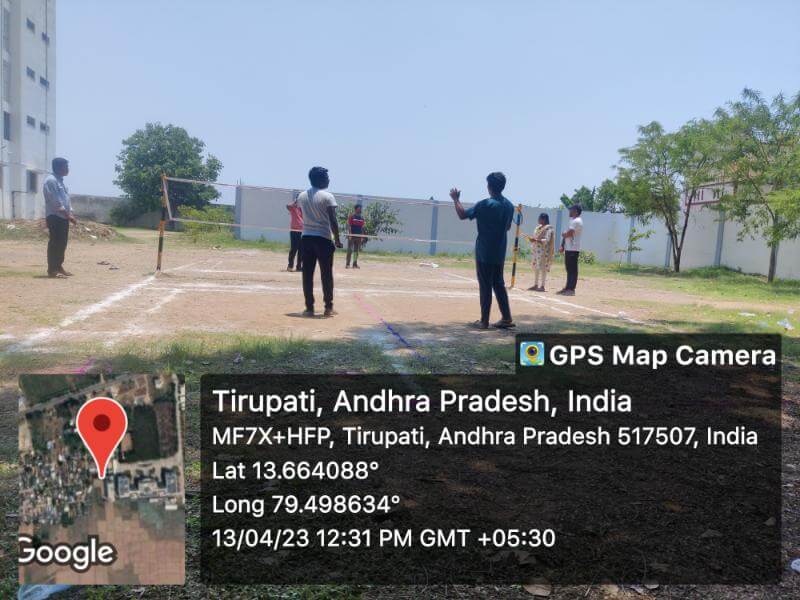
Awareness Programme on Career Opportunities (12-04-2023)
The Department of Civil Engineering, Annamacharya Institute of Technology & Sciences:: Tirupati conducted a Expert talk on 12-4-2023 by Mr. Y Madhusudhan Reddy Unacademy delivered talk on the “Career Opportunities for civil engineering graduates ” to B. Tech students regarding Unacademy features that includes the best study material, library resources, advanced technology, doubt-clearing sessions. Gate is the main important asset for an engineering student to reach higher goals so clearly conveyed how to Evaluate time& attempted questioning way , and not to missed the opportunities to score better marks. And also make students registered for Unacademy free entrance exam




Awareness Programme on Campus recruitment training (23-3-2023)
The Department of Civil Engineering, Annamacharya Institute of Technology & Sciences:: Tirupati conducted awareness Programme on Campus recruitment training 28-3-2023 by Mr. Dileep Kumar , has delivered an expert talk about Campus recruitments, which is useful for students and all other engineering course. And he conveyed the importance of CRT and about institution regarding placements and focus not only on the career-oriented growth but also offer versatility. There has been a consistent growth in our placements record. It has also become mandatory that the student instills both technical and soft skills within him in order to reach heights.




Webinar on Career Opportunities(19-3-2023)
The Department of Civil Engineering, Annamacharya Institute of Technology & Sciences:: Tirupati conducted a workshop on 19-3-2023 by Mr P Ramesh ACE Academy ,delivered a workshop on the “Career Opportunities for civil engineering graduates ” to department staffs, B. Tech and M. Tech students. In the workshop, P Ramesh sir has delivered an expert talk about Gate which is useful for students and all other civil engineering course.

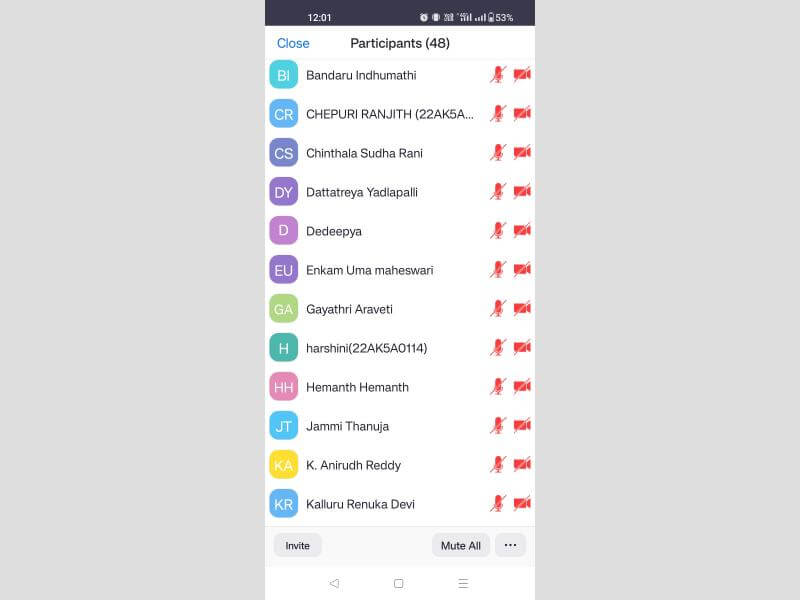



Eco-Lution Club (17-3-2023)
Annamacharya Institute of Science & Technology, Tirupati, inaugurated the Eco-Lution Club on March 17, 2023, with Dr. N. Munilakshmi from SV University as the chief guest. The event promoted environmental awareness through activities like a poster presentation and an electric vehicle rally. Final-year civil students showcased eco-projects such as a PET bottle tree bench and rural flood water management. The principal emphasized the club’s goal of fostering environmental responsibility among students and staff, with the event organized by IQAC members Dr. K. Ramya and Mrs. K. Sumavalli.
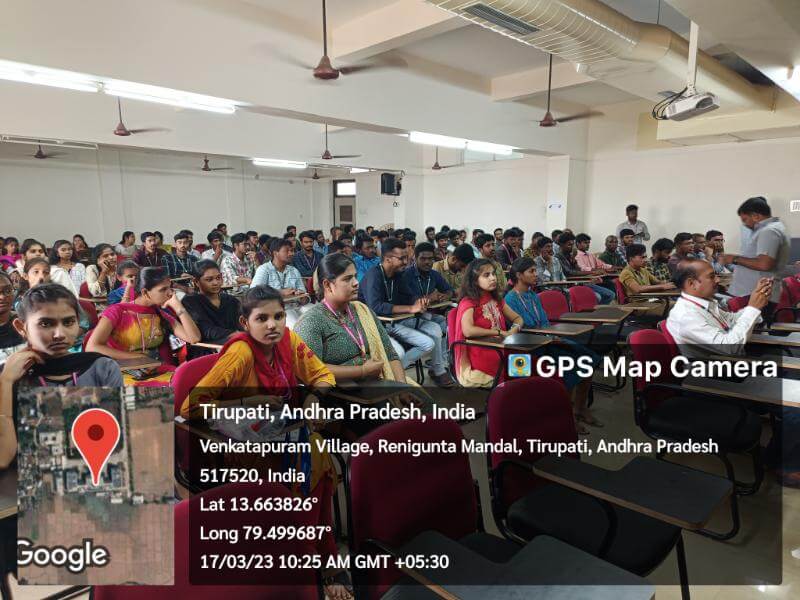
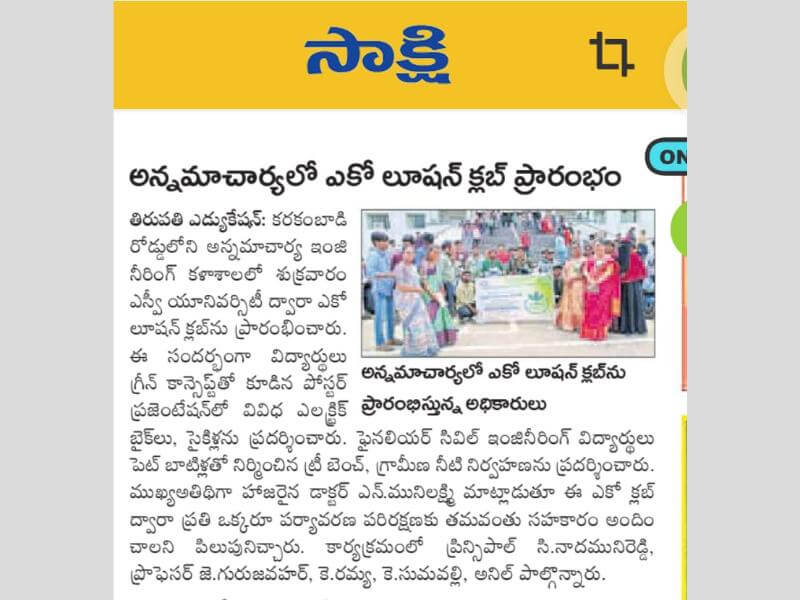
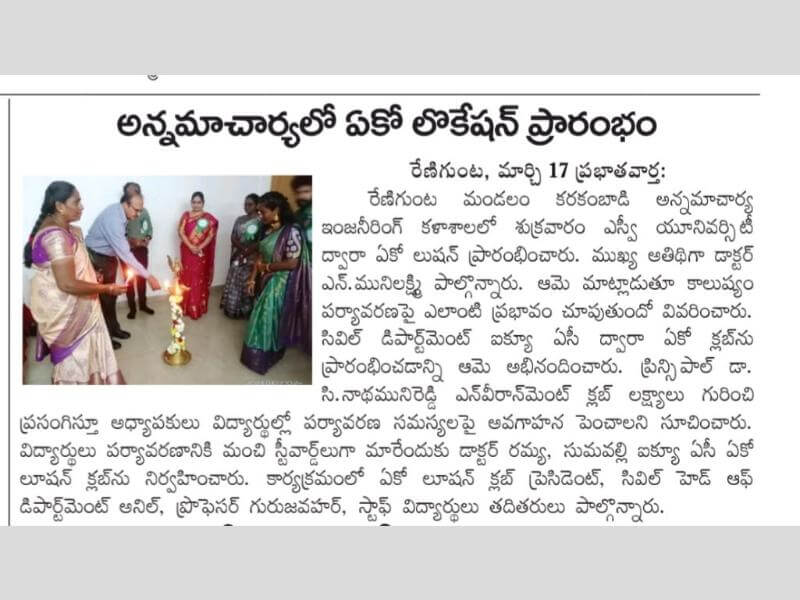
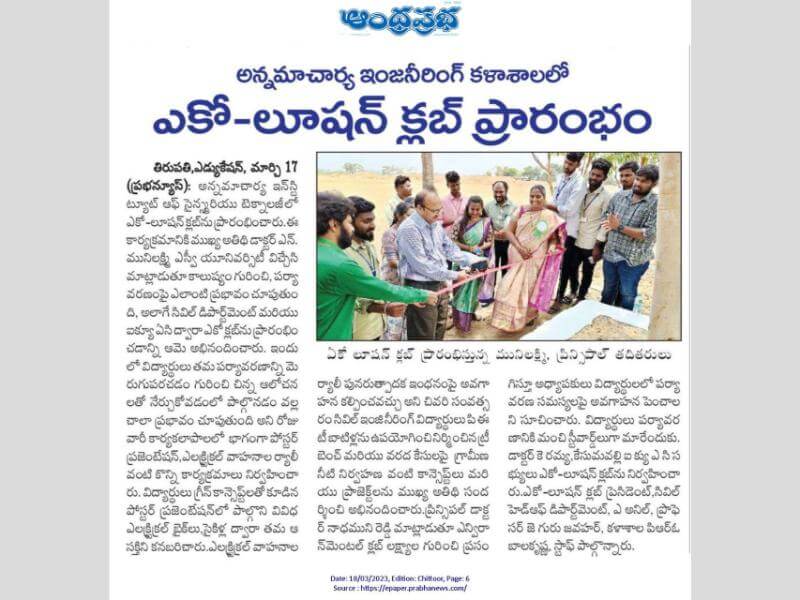
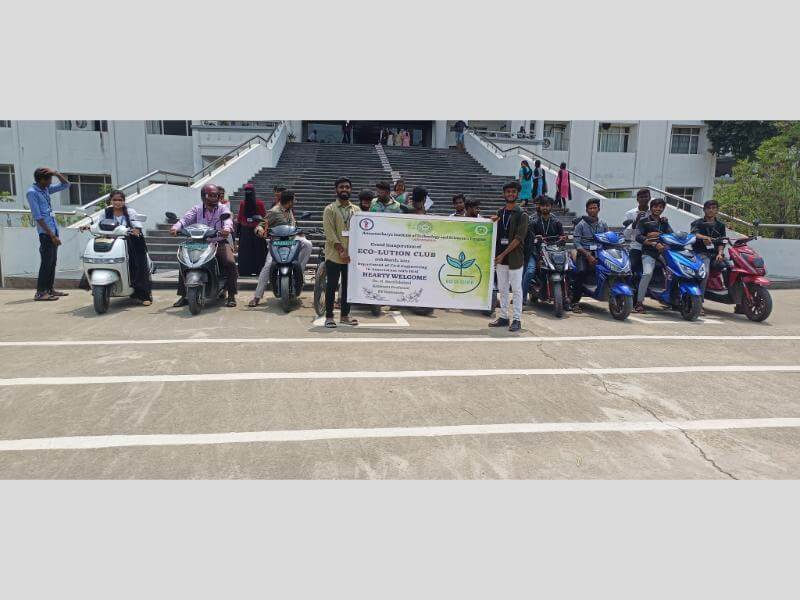
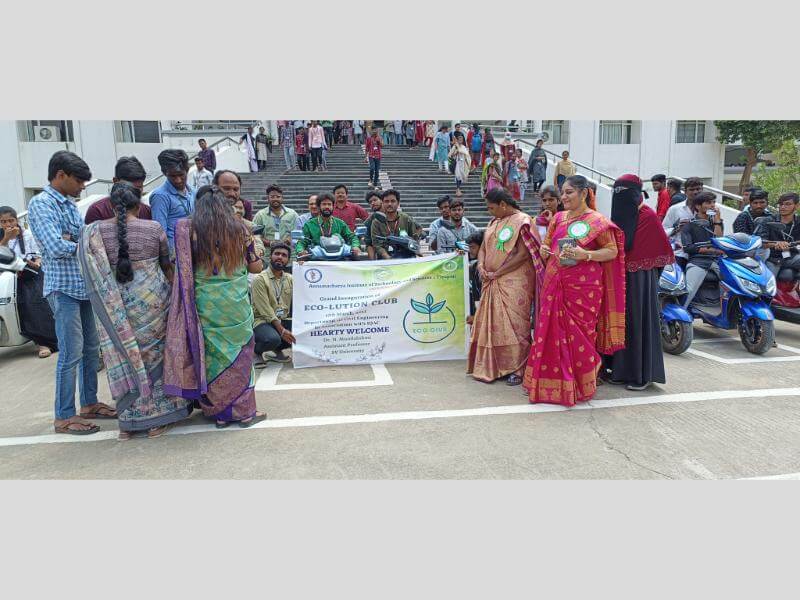
Awareness Programme on Air pollution (10-3-2023)
The Department of Civil Engineering, Annamacharya Institute of Technology & Sciences: Tirupati conducted awareness Programme on Air pollution 10-3-2023 by Mrs K Sumavalli, has delivered an expert talk about Air pollution which is useful for students and all other engineering course. And air pollution board successfully conducted 8 hours testing in the campus. And the test about Respirable dust sampling is a process of measuring contaminants in the volume of air at a given workplace that can be inhaled by workers. Various dust sampling methods are used to identify the volume of dust particles and chemical vapors to make sure the health of workers is not at stake.
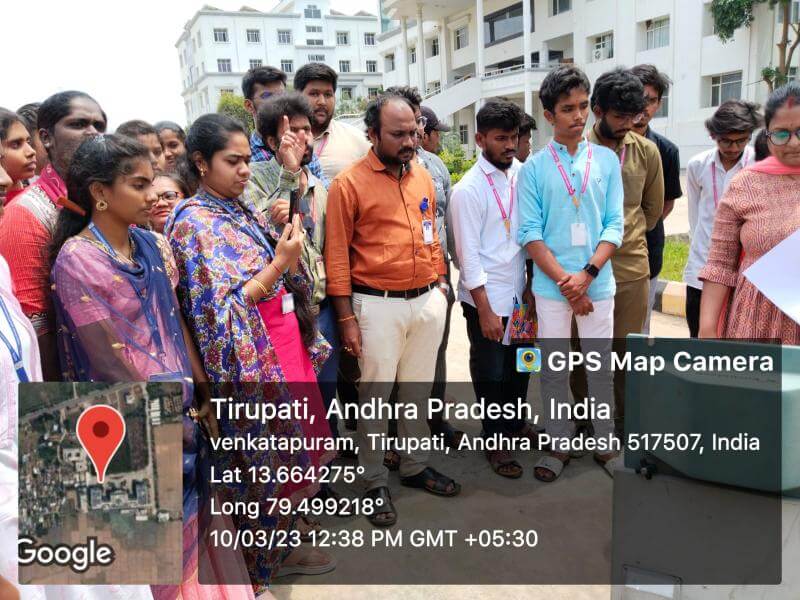
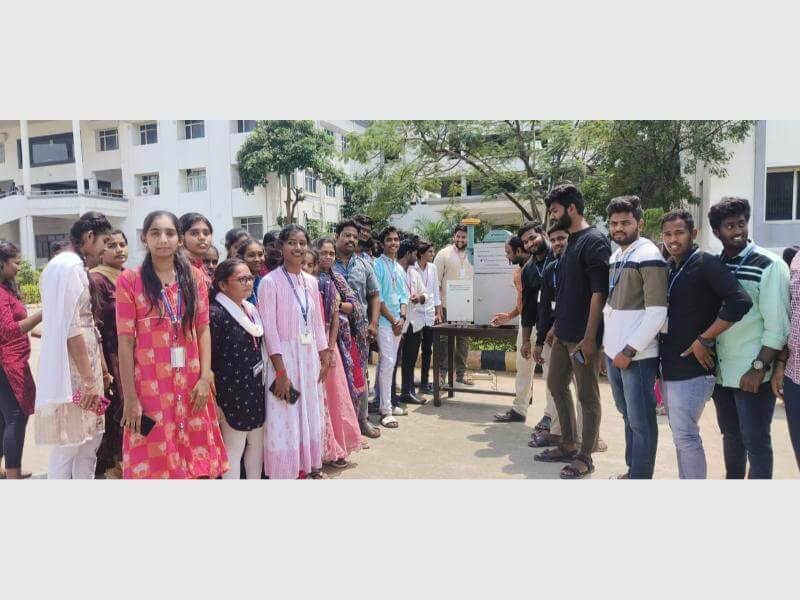
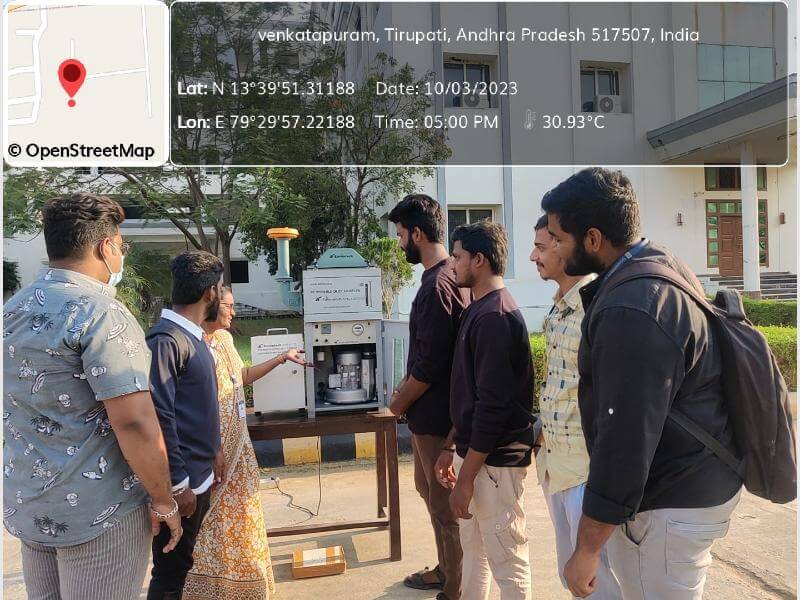
Workshop-Autocad(8-1-2023 )
The Department of Civil Engineering, Annamacharya Institute of Technology & Sciences:: Tirupati conducted a workshop on 08.01.2023 by Anjaneya Puli Civil CADD Trainer, delivered a workshop on the “AutoCAD” to department staffs, B. Tech and M. Tech students. In the workshop, Anjaneya Puli sir has delivered an expert talk about basics in AutoCAD, create plan of a building and also discussed about top civilcadd courses which is useful for students and all other civil engineering course. He also demonstrated with few building plans to students which has helped students to gain knowledge regarding AutoCAD.
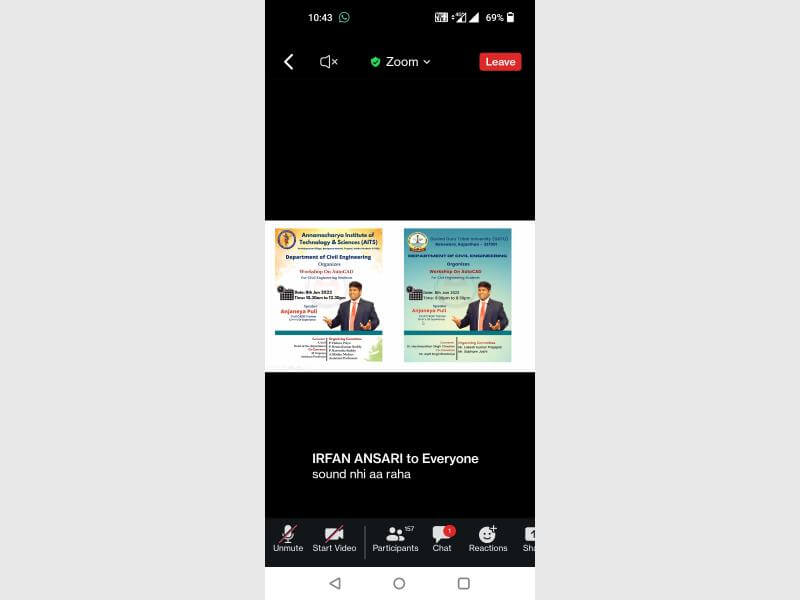
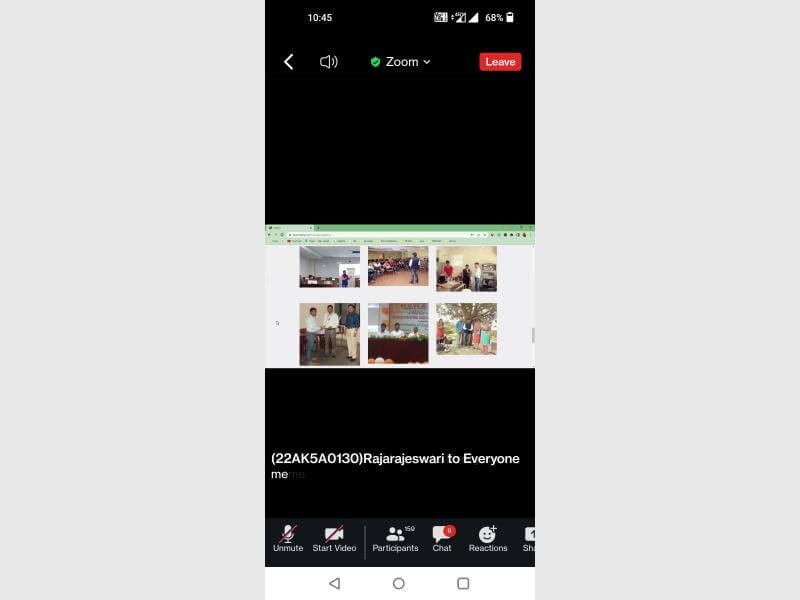
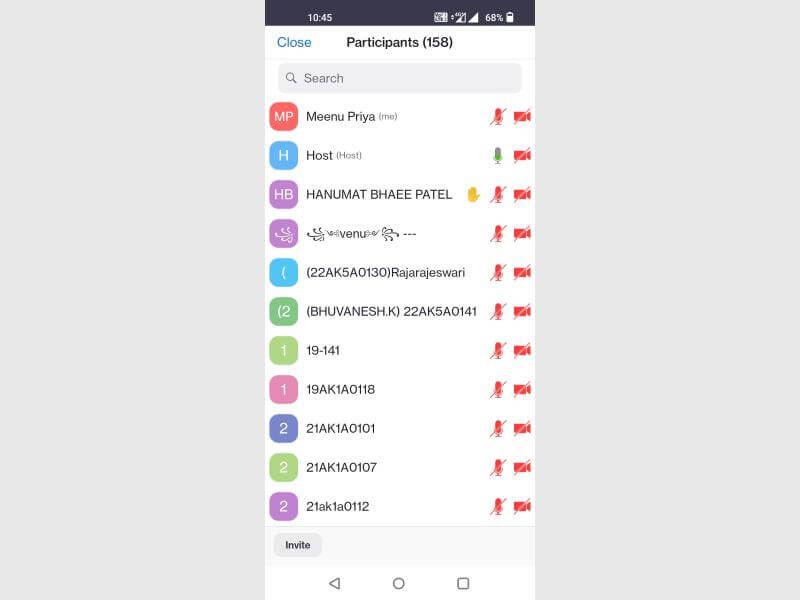
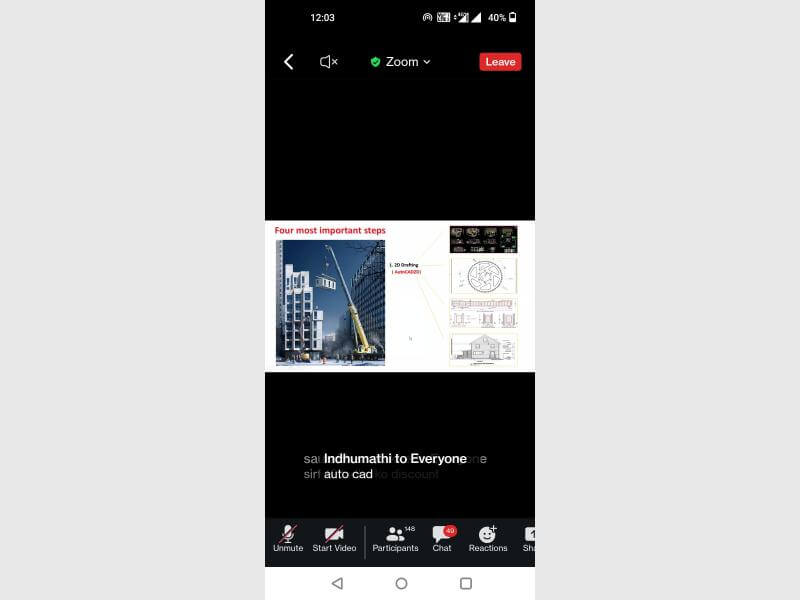
Freshers Day CIVIL(6-1-2023)
Welcomed the Freshers on this occasion of Freshers Day 2k23 Organized by dept of Civil Engineering.This is surely a special day for you all and a special party for them .as today they are going to start a new and fresh journey of their life, full of new challenges, milestones, and achievements. This day is a day of nostalgia for many; it is a day with many new mixed feelings of happiness, confusion, fear, and excitement. Freshers’ Day is a welcome party to newcomers and a gesture of extending the friendly atmosphere and to be motivating factors for juniors. The aim of conducting this day is to make the juniors feel welcome and to interact with them.
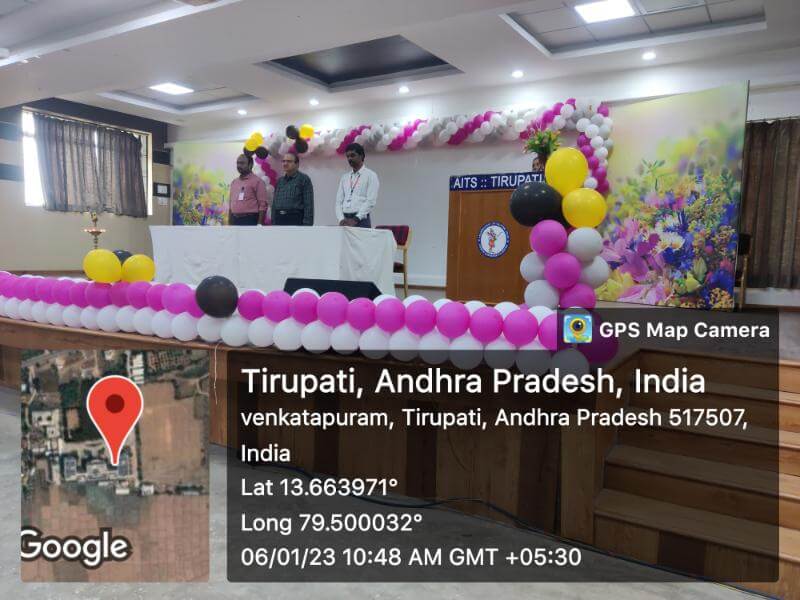
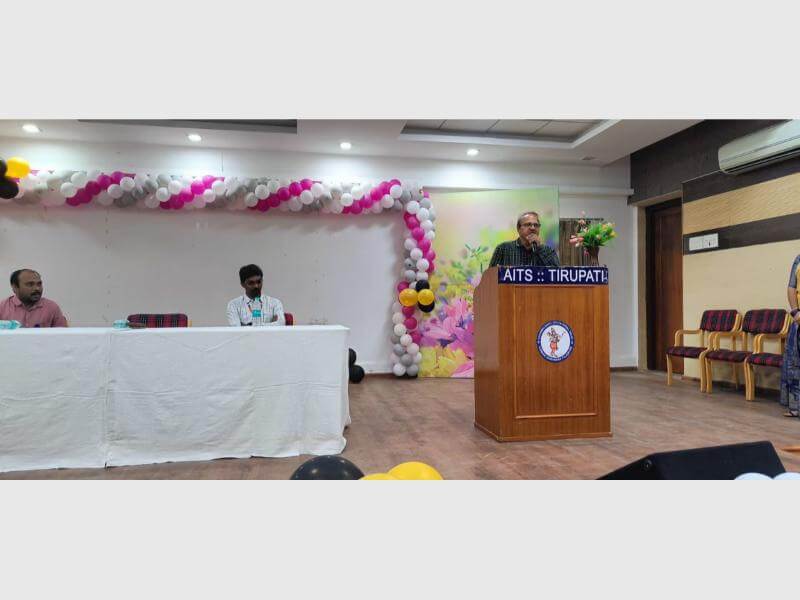
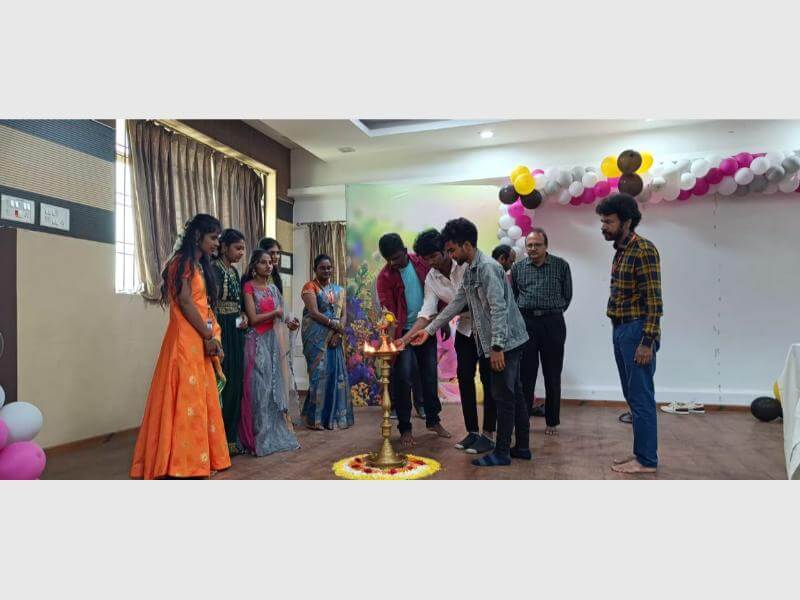
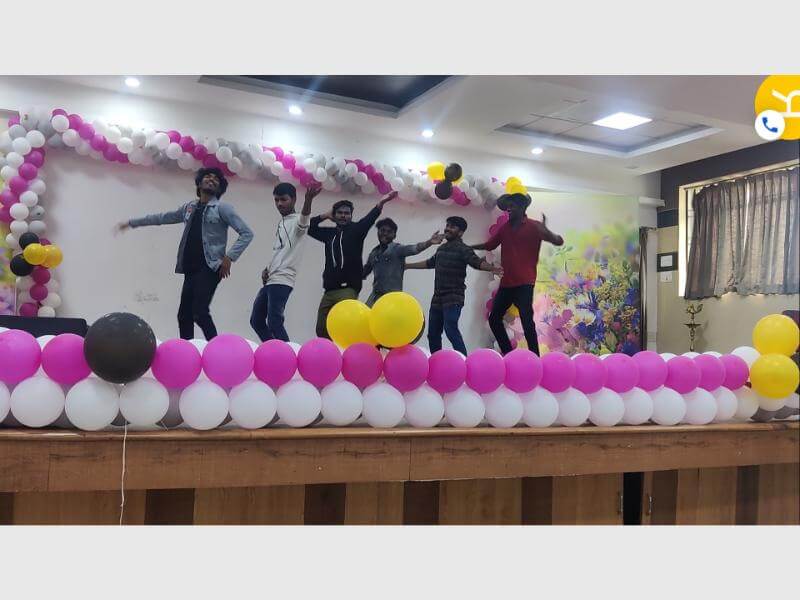
Alumini Meet (22-12-2022)
The department of Civil Engineering, Annamacharya Institute of Technology &Sciences: Tirupati Conducted Alumini meet .An Alumni Meet is organized to celebrate and refresh old relationships and form new ones. It is an occasion when students gather at their Alma Mater, go down the memory lane and look forward for new interactions with new hopes. The alumni are thrilled to be back in the campus again and interact with new students.




Sports (22-12-2022)
The department of Civil Engineering, Annamacharya Institute of Technology &Sciences: Tirupati Conducted sports on 22-12-2022 for III Year students. Winners and runners medals were distributed for the students who participated in their respective sport was awarded by participation and certificates.



Art & Craft (19-12-2022)
The department of Civil Engineering, Annamacharya Institute of Technology &Sciences: Tirupati Conducted Art &Craft event on 19-12-2022 for Civil students. Winners and runners medals were distributed for the students who participated in their respective sport was awarded by participation and certificates.
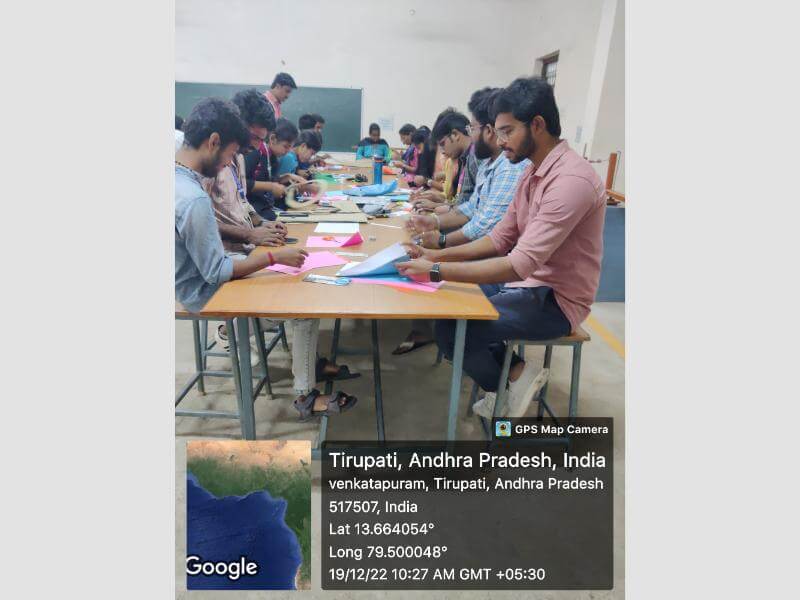
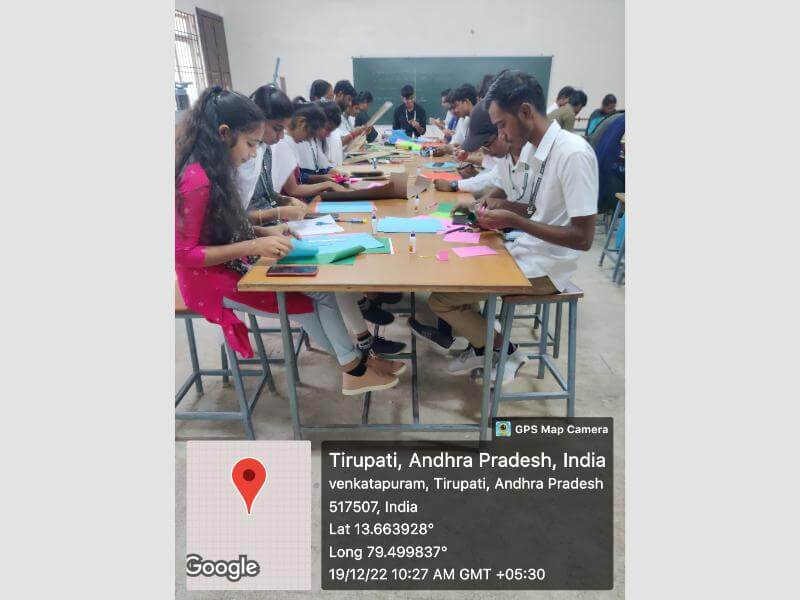
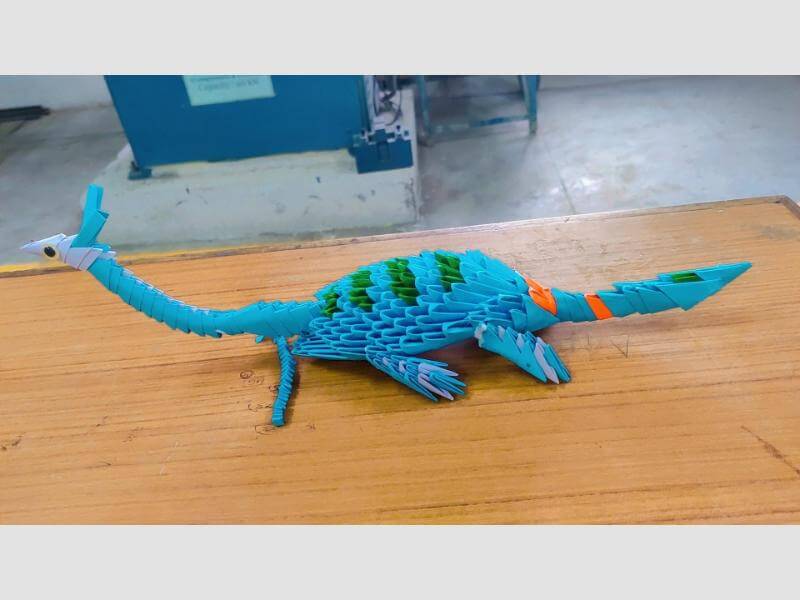
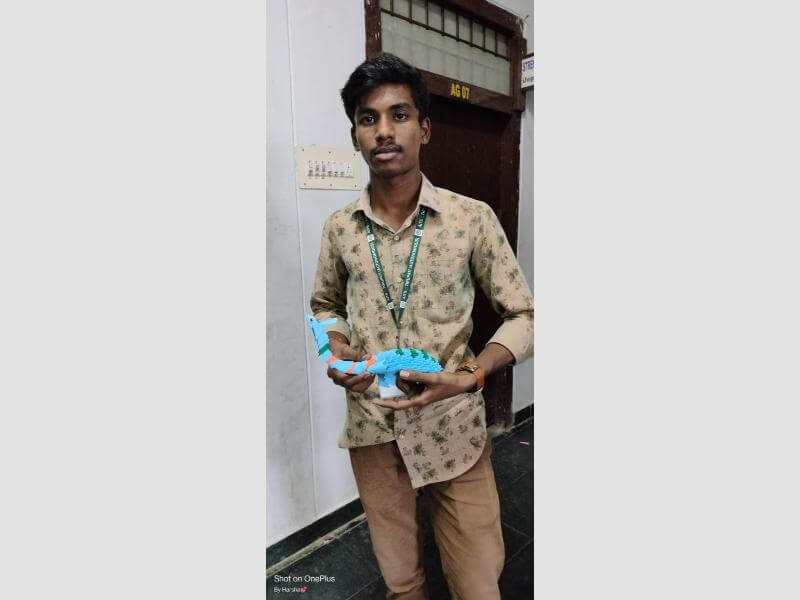
Workshop on AutoCAD (19-12-2022)
The Department of Civil Engineering, Annamacharya Institute of Technology & Sciences:: Tirupati conducted a workshop on 19-12-2022 by P Priyanka APPSC delivered a workshop on the “AutoCAD” to department staffs, B. Tech and M. Tech students. In the workshop, Anjaneya Puli sir has delivered an expert talk about basics in AutoCAD, create plan of a building and also discussed about top civil cadd courses which is useful for students and all other civil engineering course. She also demonstrated with few building plans to students which has helped students to gain knowledge regarding AutoCAD

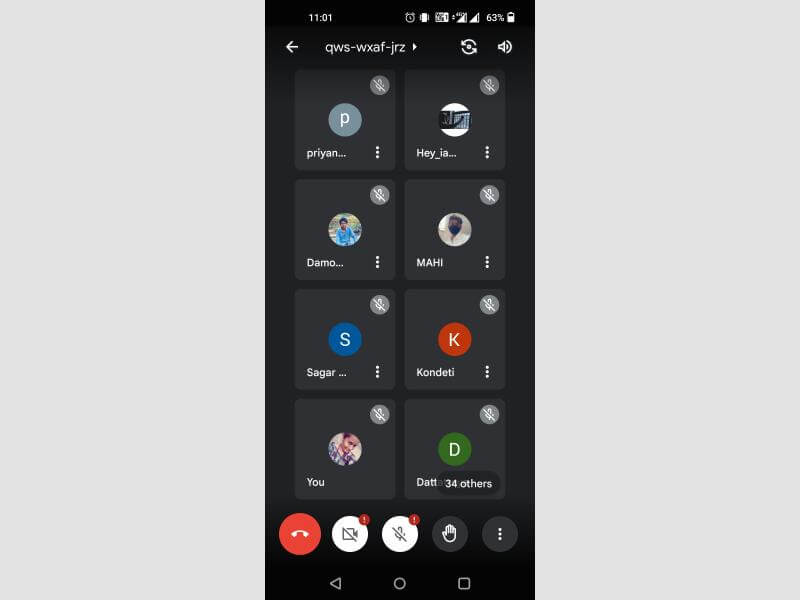


Awareness Programme on Virtual Internship APSCHE (2-12-2022)
The Department of Civil Engineering, Annamacharya Institute of Technology & Sciences:: Tirupati conducted awareness programme Virtual Internship on 11-12-2022 by Mrs I Suneetha , has delivered an expert talk about Internships which is useful for students and all other engineering course.
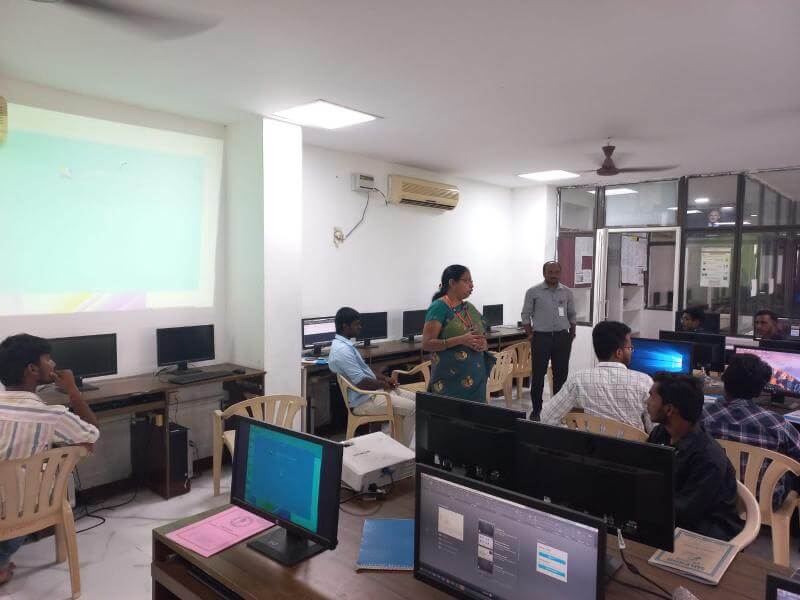
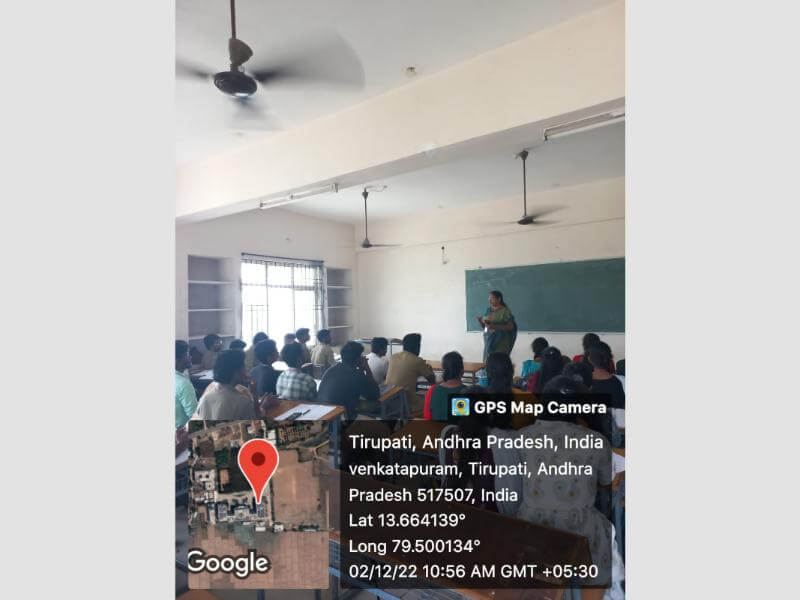
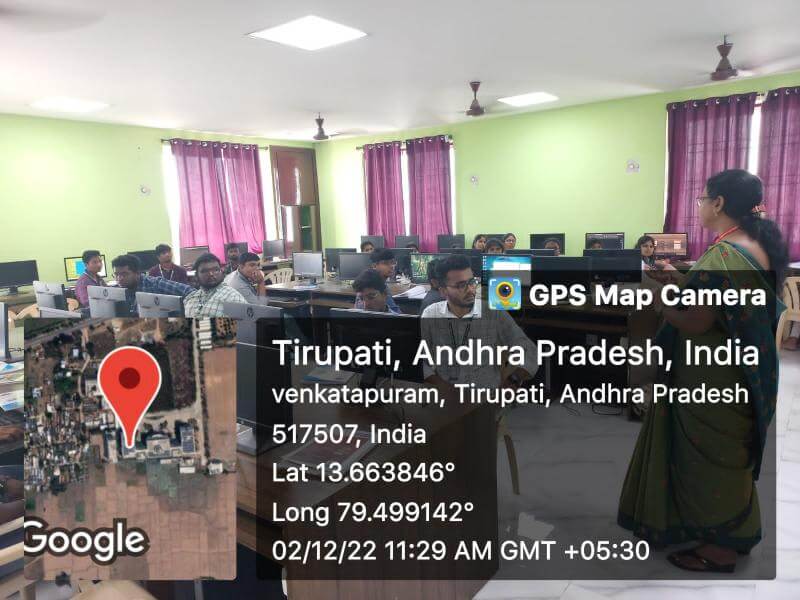
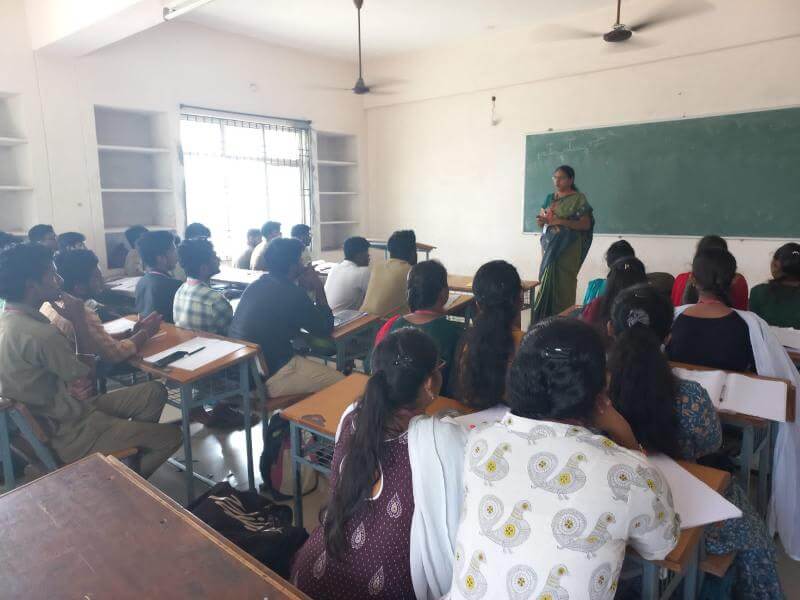
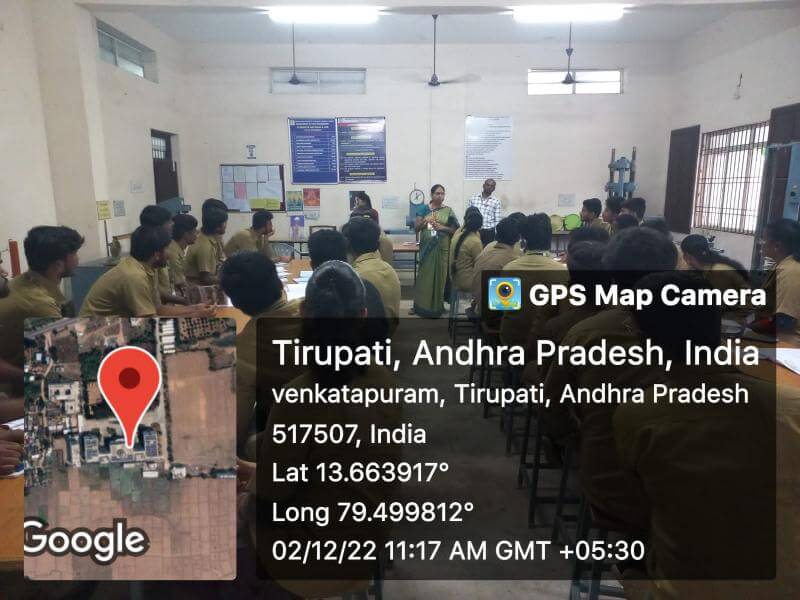
Expert Talk on Career Opportunities (22-11-2022)
The Department of Civil Engineering, Annamacharya Institute of Technology & Sciences:: Tirupati conducted a workshop on 22-11-2022 by Mr VR DM Kaushik Agastya Raj, delivered a workshop on the “Career Opportunities for civil engineering graduates”to department staffs, B. Tech and M. Tech students. In the workshop, Kaushik sir has delivered an expert talk about Gate which is useful for students and all other civil engineering course.


Engineers Day (15-9-2022)
The Department of Civil Engineering, Annamacharya Institute of Technology & Sciences: Tirupati has celebrated Engineer’s Day 2022 at E-class. In this event Dr. C Nadhamuni Reddy, principal at AITS, Tirupati has delivered his speech regarding up gradation of technologies and handling of innovative projects to students. Dr. J. Guru Jawahar, Professor from AITS, Tirupati had technical talk on knowledge sharing, upcoming technologies. In this event first year students of Civil Engineering has participated.






Sports (23-07-2022)
The department of Civil Engineering ,Annamacharya Institute of Technology &Sciences: Tirupati Conducted sports on 23-7-2022 for II Year students. Winners and runners medals were distributed for the students who participated in their respective sport was awarded by participation and certificates.

Sayonara (16-06- 2022)
Welcomed the Farewell on this occasion of Farewell Day Sayonara Organized by dept of Civil Engineering. This is surely a special day for you all and a special party for them .as today they are going to start a new and fresh journey of their life, full of new challenges, milestones, and achievements. This day is a day of nostalgia for many; it is a day with many new mixed feelings of happiness, confusion, fear, and excitement. The aim of conducting this day is to make the Seniors to feel warm goodbye and to interact with them.
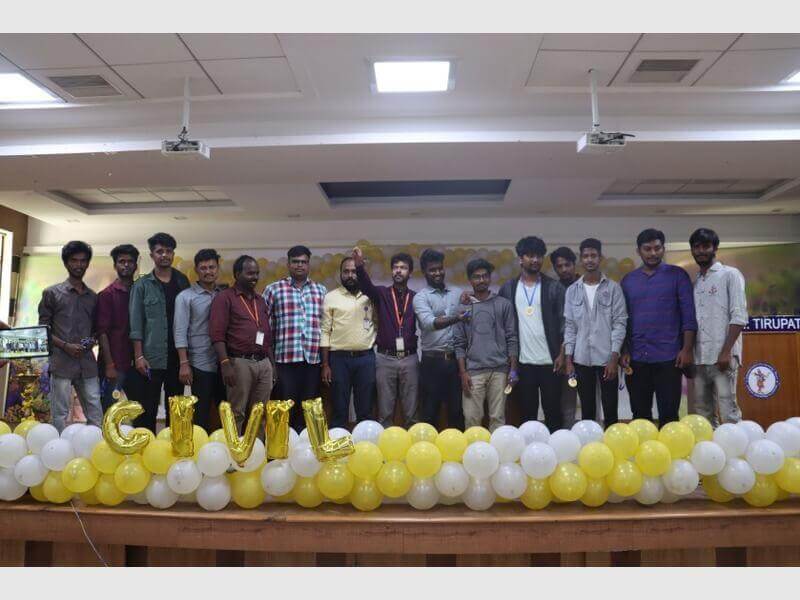
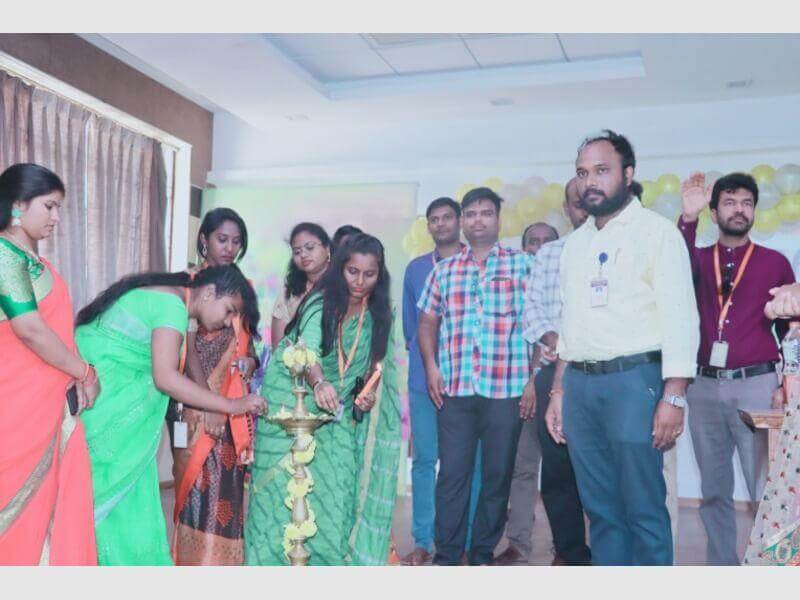
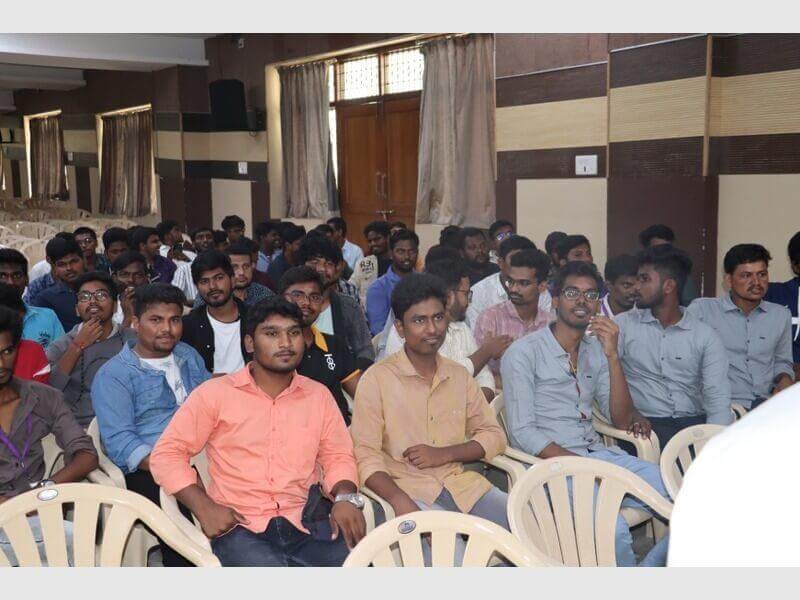
Sports (15-06-2022)
The department of Civil Engineering ,Annamacharya Institute of Technology &Sciences: Tirupati Conducted sports on 15-6-2022 for III & IV Year students(girls and boys).Sports include indoor games and outdoor games .indoor game for girls include chess and carrom .indoor games for boys include chess .outdoor games for girls include shuttle .winners and runners medals were distributed for the students who participated in their respective sport was awarded by participation and certificates.



Academic Year 2021-22
Faculty Development Programme on (14-02-2022 To 26-02-2022)
The Department of Civil Engineering, Annamacharya Institute of Technology & Sciences:: Tirupati conducted two week faculty development program on Understanding and Assessment of Higher order cognitive skills required for engineering education through valid and reliable methods by various resource person on 14-02-2022 to 26-02-2022.
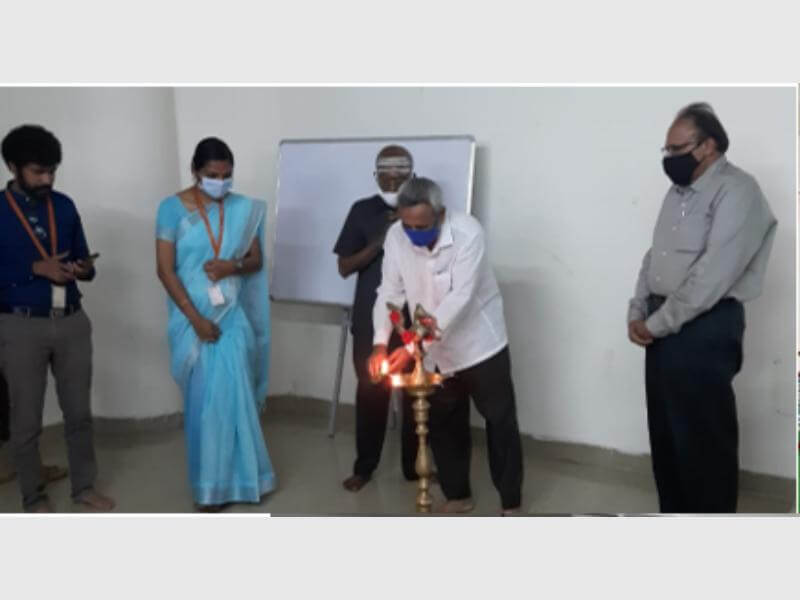
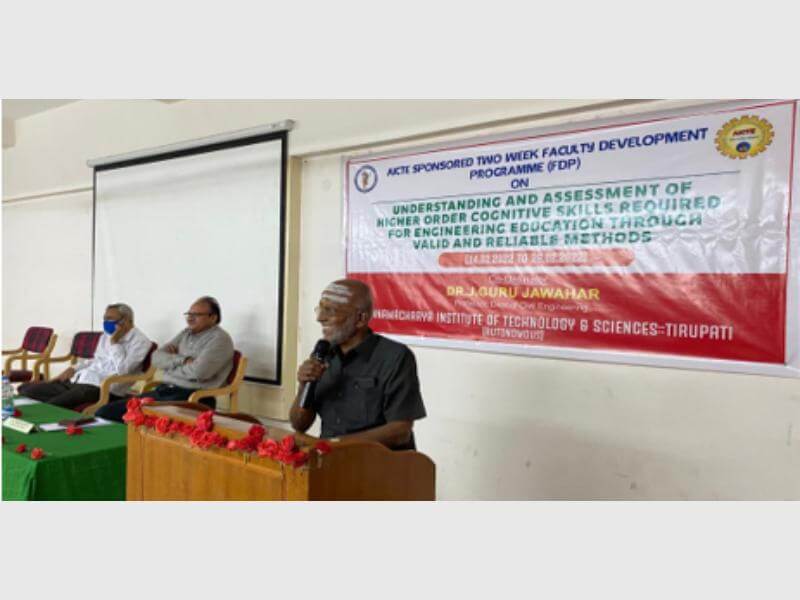
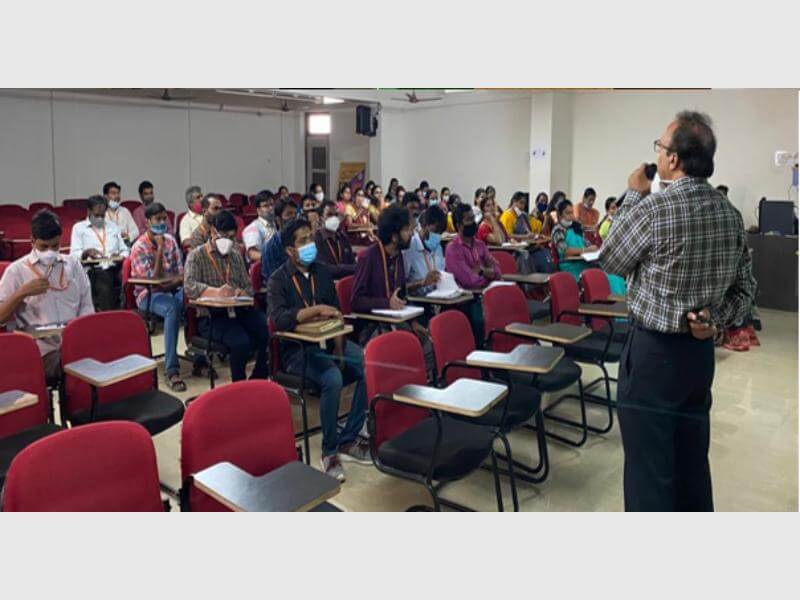
Webinar on Career Opportunities on (23-01-2022)
The Department of Civil Engineering, Annamacharya Institute of Technology & Sciences:: Tirupati conducted on 23-01-2022 by Pradeep Raghu , delivered a webinar on “Career Opportunities After B.Tech” to B. Tech students. In the webinar, Pradeep Raghu sir has delivered an expert talk about career opportunities through GATE examinations, importance of GATE examinations, exam syllabus etc.,
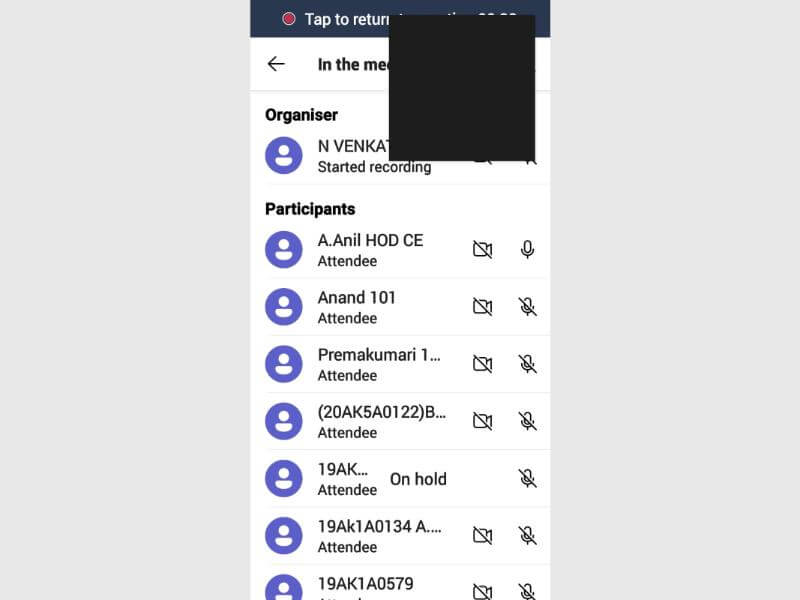
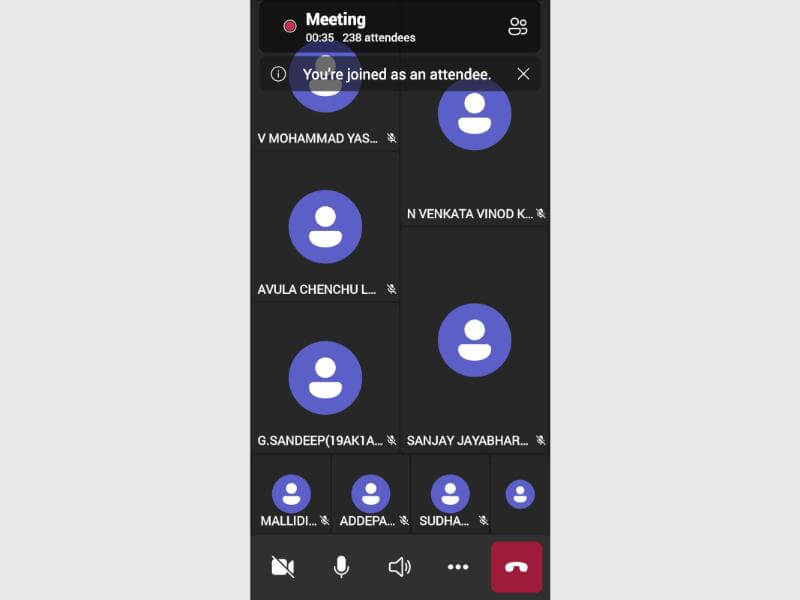
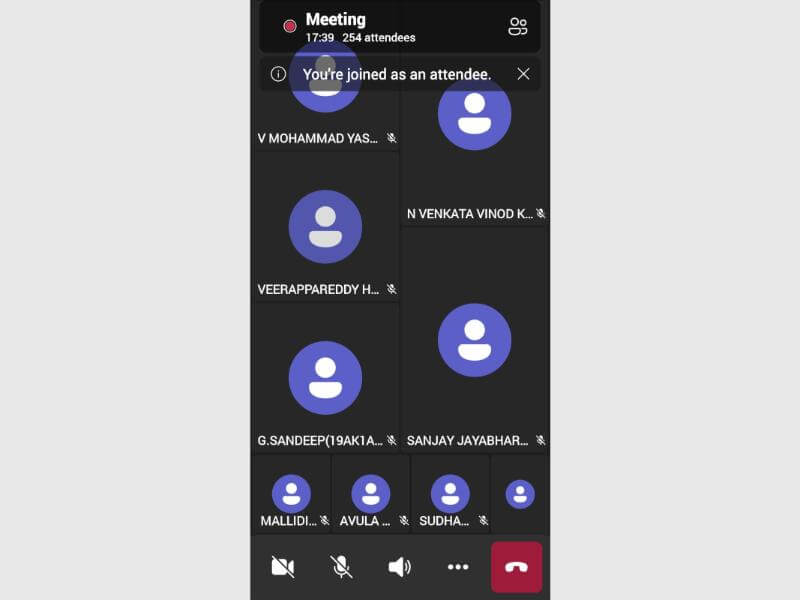
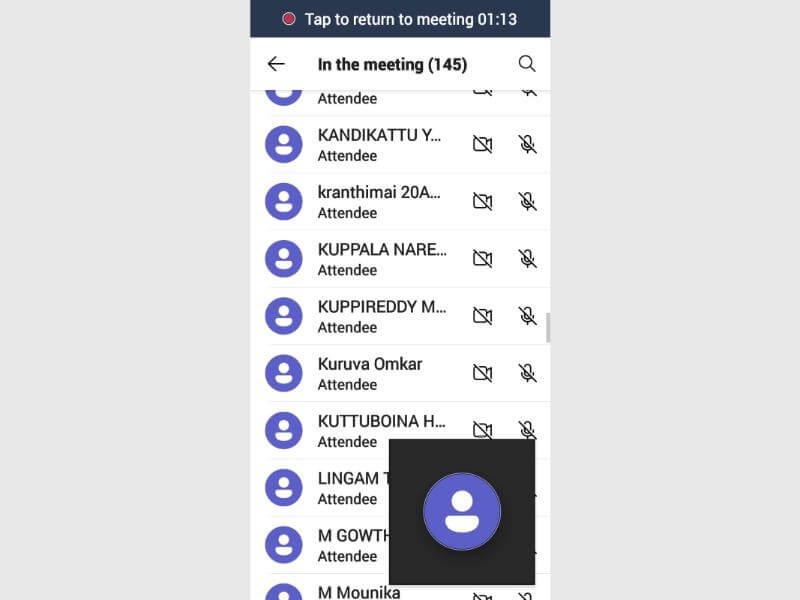

Online webinar on Career Opportunities in United States
on (29-01-2022)
The Department of Civil Engineering, Annamacharya Institute of Technology & Sciences:: Tirupati conducted a workshop on 09.01.2022 by Anjaneya Puli Civil CADD Trainer, delivered a workshop on the “AutoCAD” to department staffs, B. Tech and M. Tech students. In the workshop, Anjaneya Puli sir has delivered an expert talk about basics in AutoCAD, create plan of a building and also discussed about top civilcadd courses which is useful for students and all other civil engineering course. He also demonstrated with few building plans to students which has helped students to gain knowledge regarding AutoCAD.
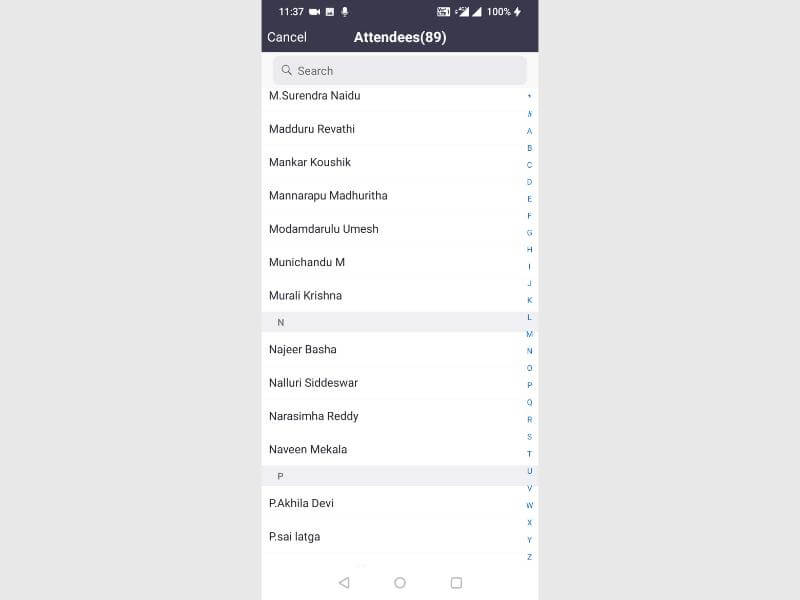
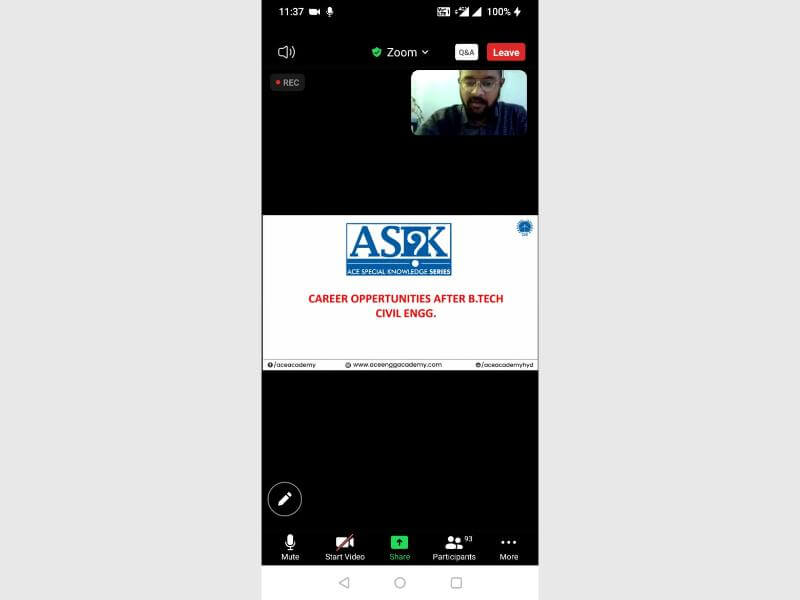
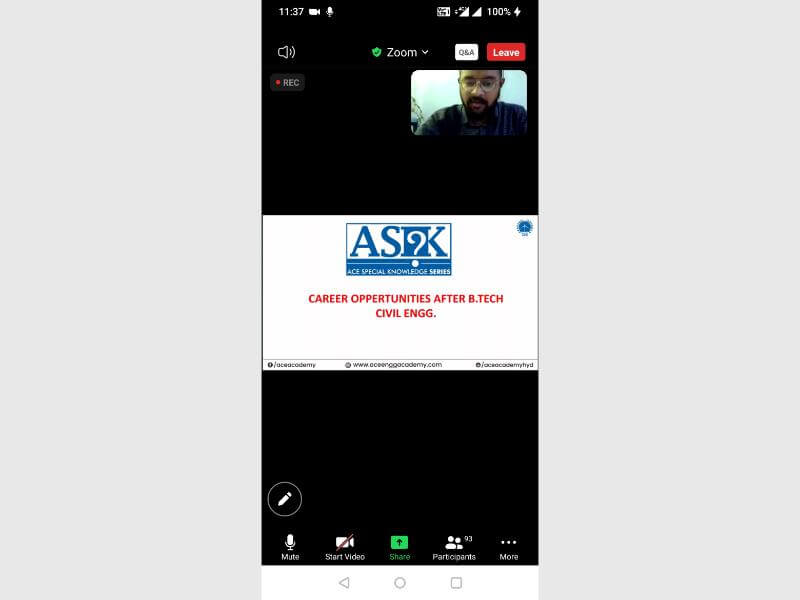
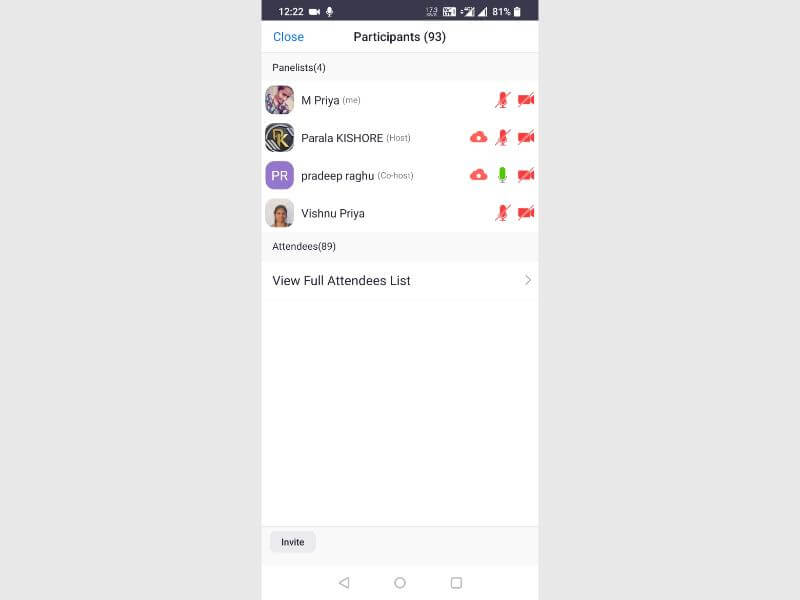
Workshop on Auto CAD (09-01-2022)
The Department of Civil Engineering, Annamacharya Institute of Technology & Sciences:: Tirupati conducted a workshop on 09.01.2022 by Anjaneya Puli Civil CADD Trainer, delivered a workshop on the “AutoCAD” to department staffs, B. Tech and M. Tech students. In the workshop, Anjaneya Puli sir has delivered an expert talk about basics in AutoCAD, create plan of a building and also discussed about top civilcadd courses which is useful for students and all other civil engineering course. He also demonstrated with few building plans to students which has helped students to gain knowledge regarding AutoCAD.
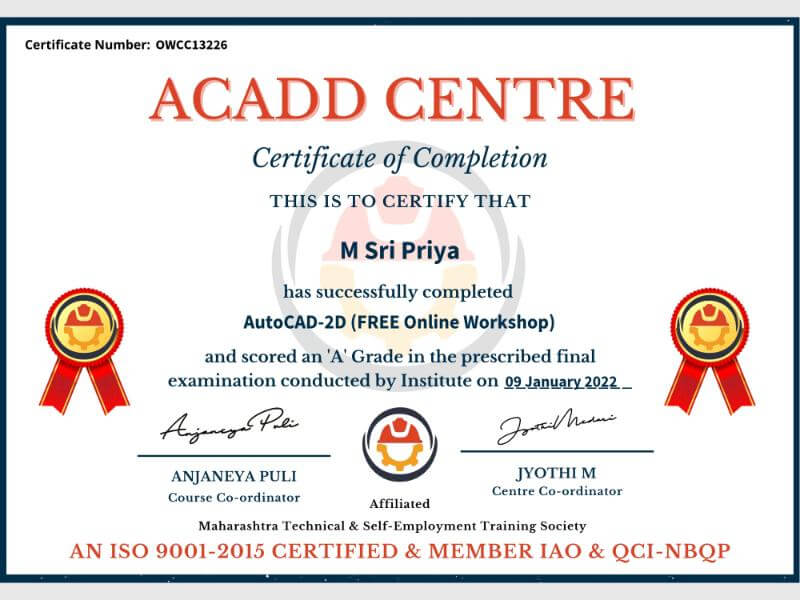


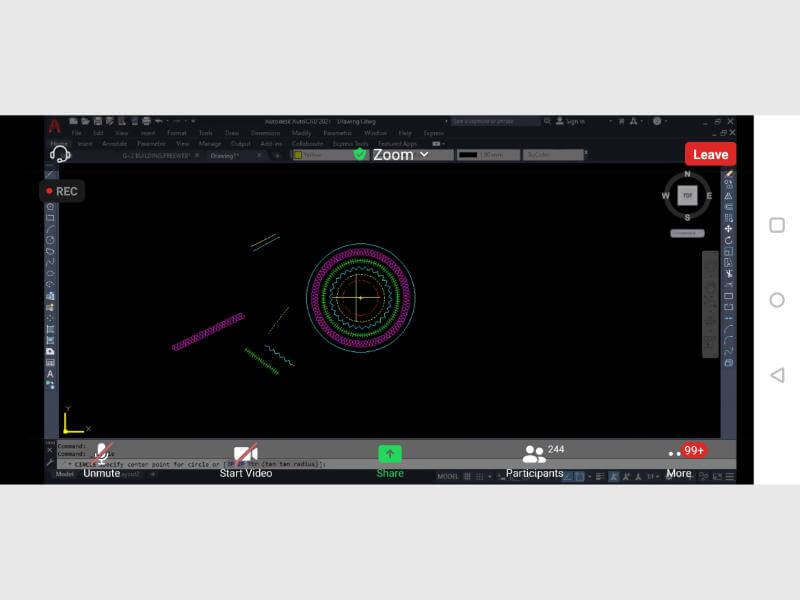
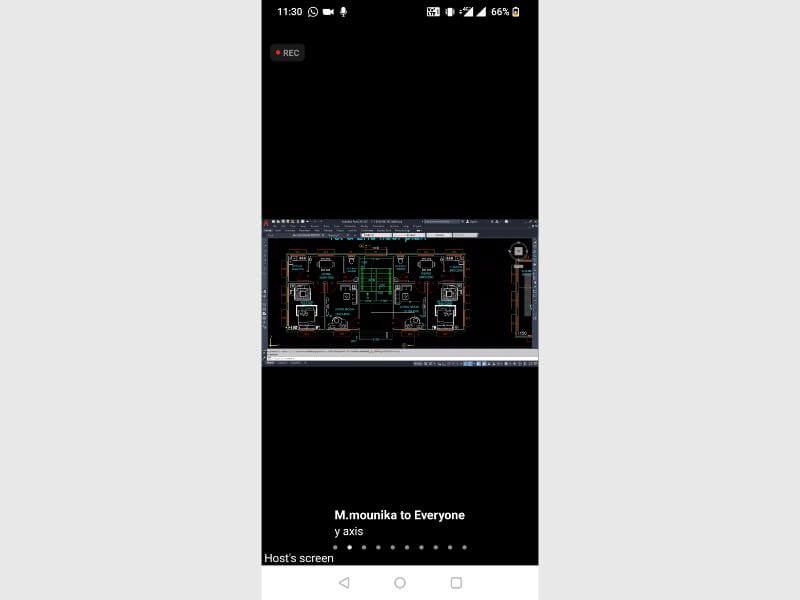
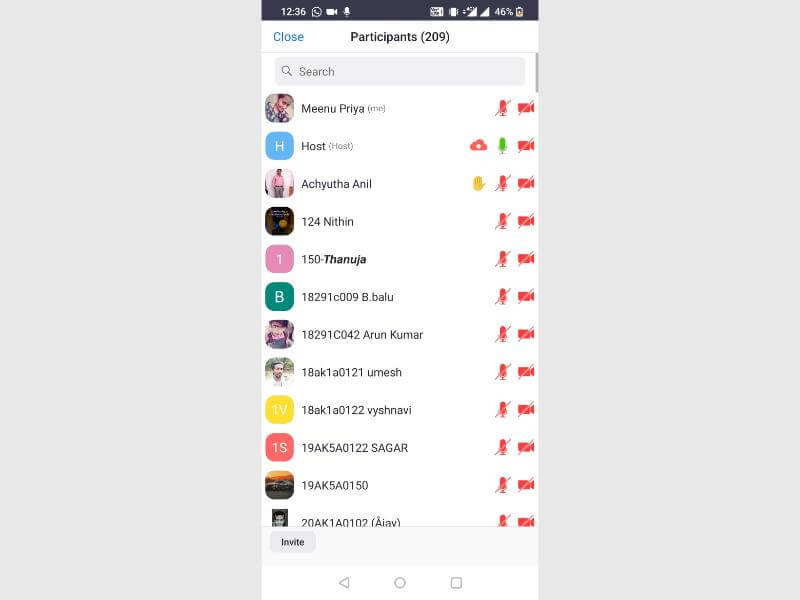
Technical Exhibition on Model Presentation (28-12-2021 To 30-12-2021)
The Department of Civil Engineering, Annamacharya Institute of Technology & Sciences:: Tirupati conducted Technical fest on empowering civil engineering education through valid and reliable methods and conducted bridge testing etc.
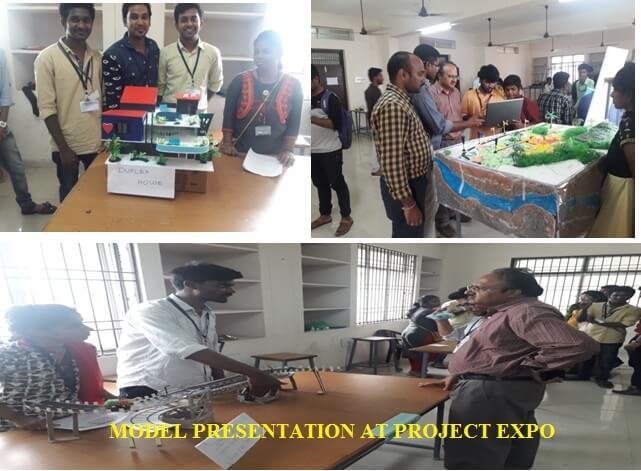
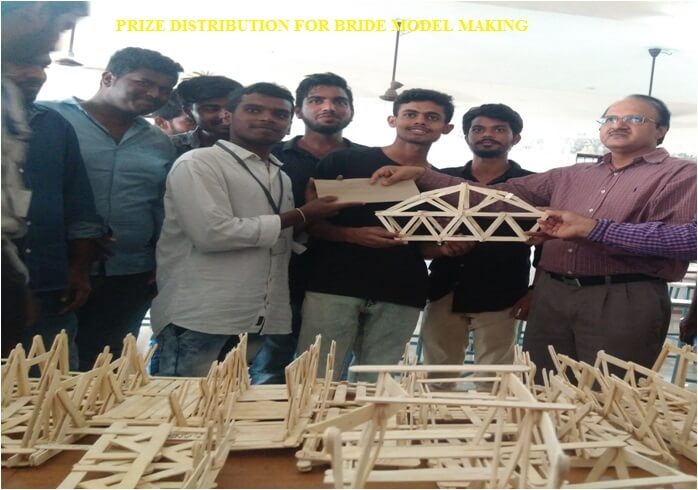
Technical seminar on Latest materials and latest testing technologies used by Ultra Tech & ACCE(INDIA) (24-10-2021)
The Department of Civil Engineering, AITS Tirupati, organized a series of expert seminars in October 2021. Mr. Durga Rao from UltraTech discussed the latest materials and testing technologies in cement and concrete, while Mr. B. Reddappa Naidu highlighted modern practices in civil engineering and the importance of ACCE (India). Dr. Romanbabu Oinam from IIT Tirupati delivered a session on the evolution of design, performance-based design, and seismic-resistant structures, sharing valuable research insights with students and faculty.
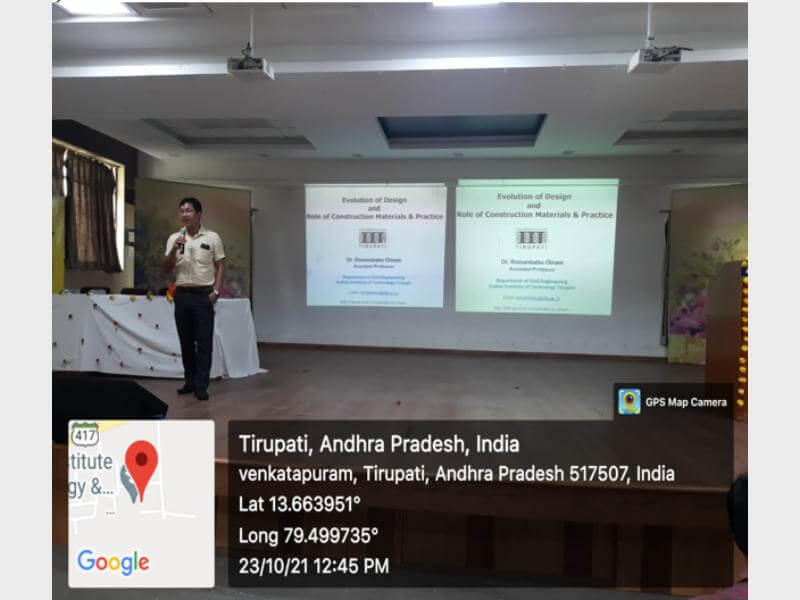
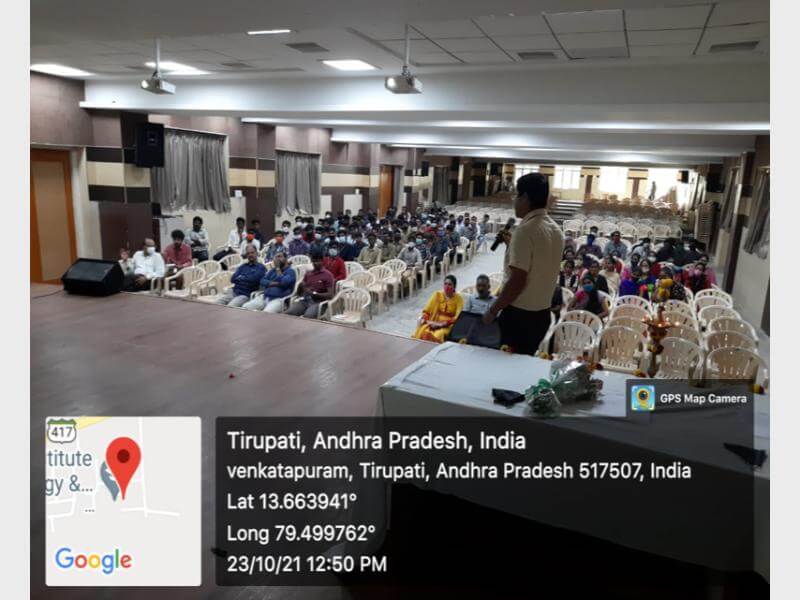
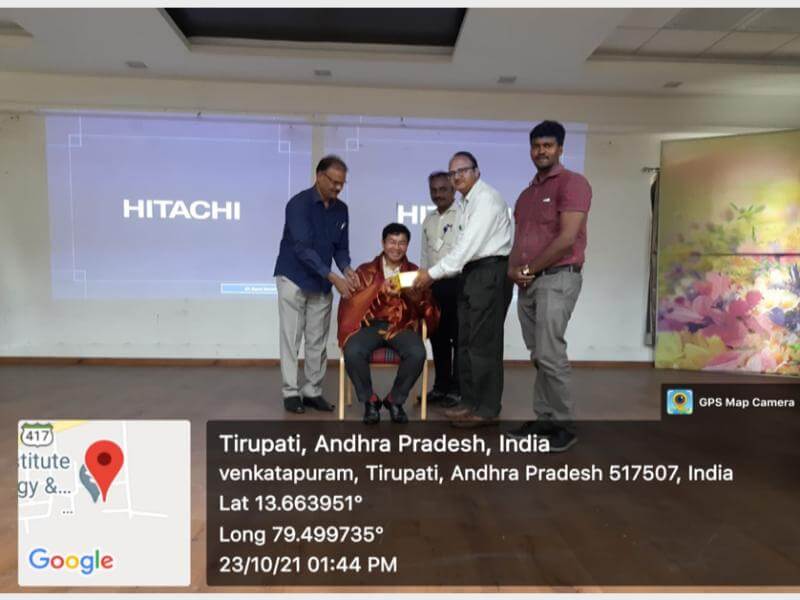
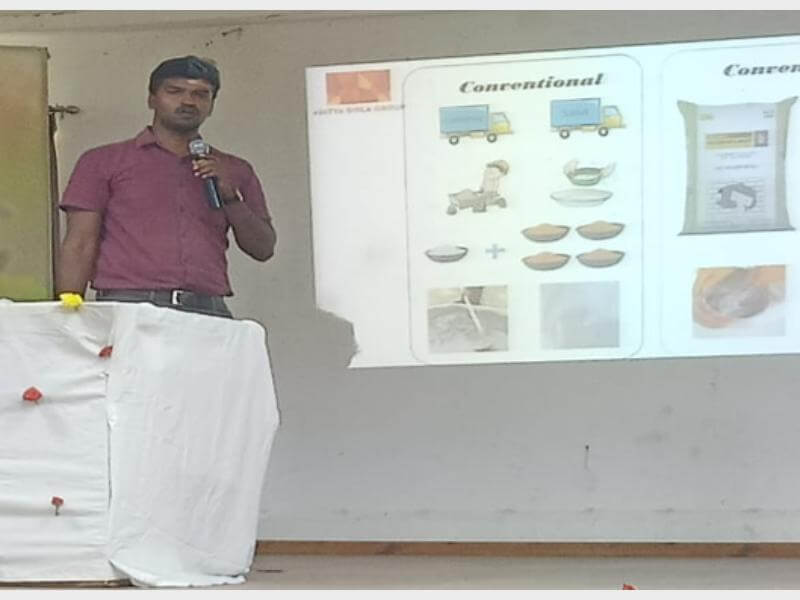

Engineers Day (15-09-2021)
The Department of Civil Engineering, Annamacharya Institute of Technology & Sciences:: Tirupati has celebrated Engineer’s Day 2021 at Auditorium. In this event Dr. C Nadhamuni Reddy, principal at AITS, Tirupati has delivered his speech regarding up gradation of technologies and handling of innovative projects to students. Dr. J. Guru Jawahar, Professor from AITS, Tirupati had technical talk on knowledge sharing, upcoming technologies. In this event first year students of Civil Engineering has participated.
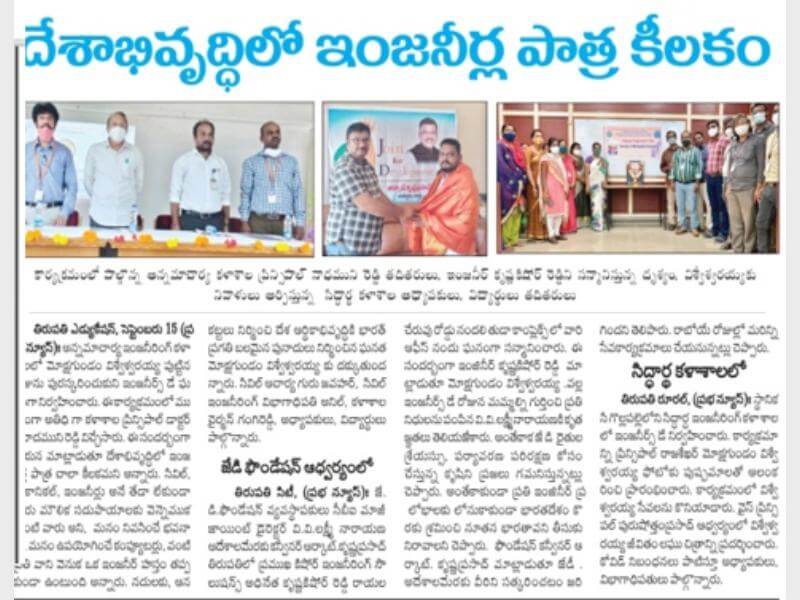
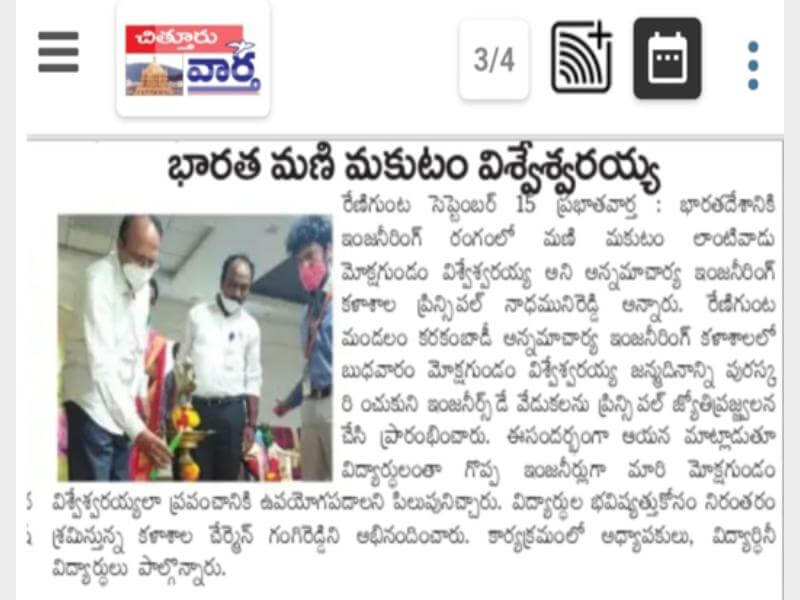
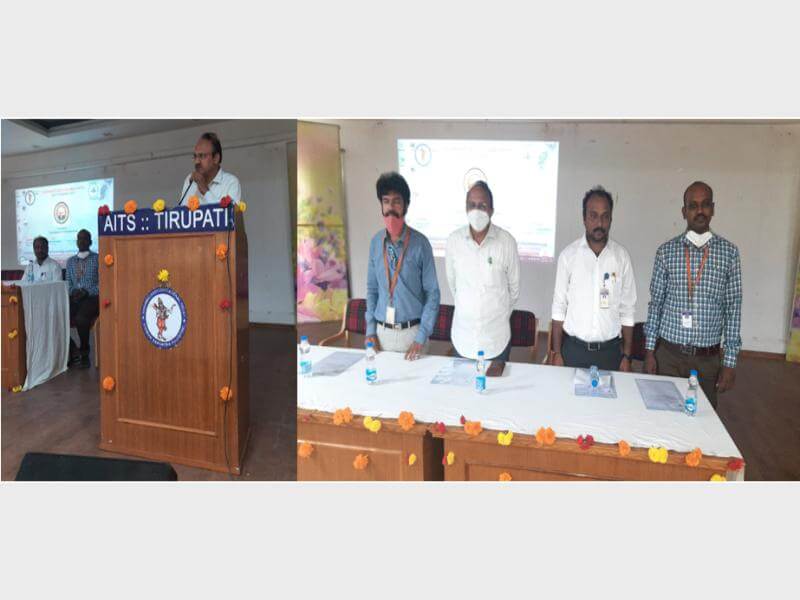
Eco-Lution Club
Geological Outcrop Study (30-1-2025)
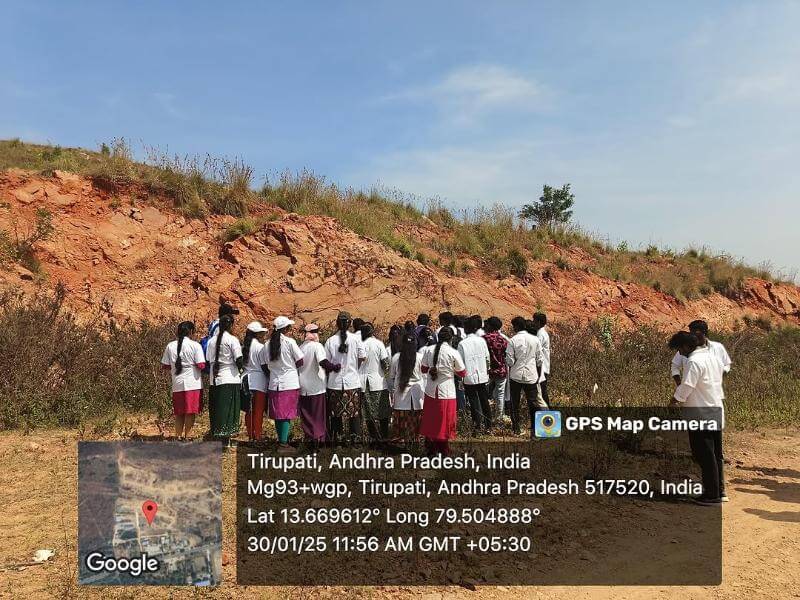
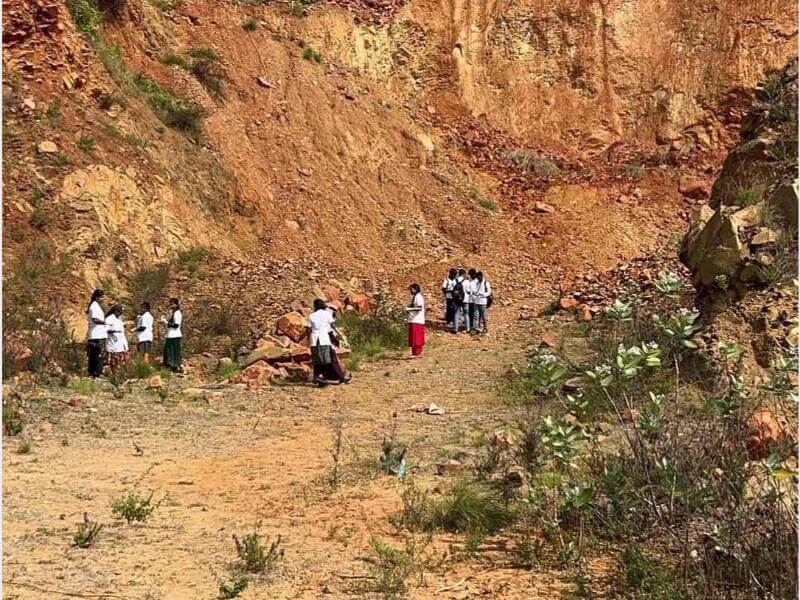
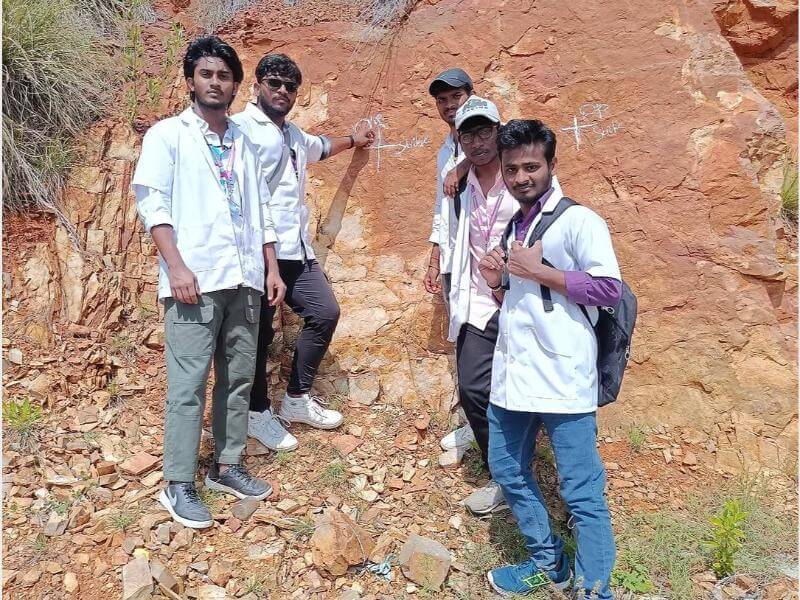
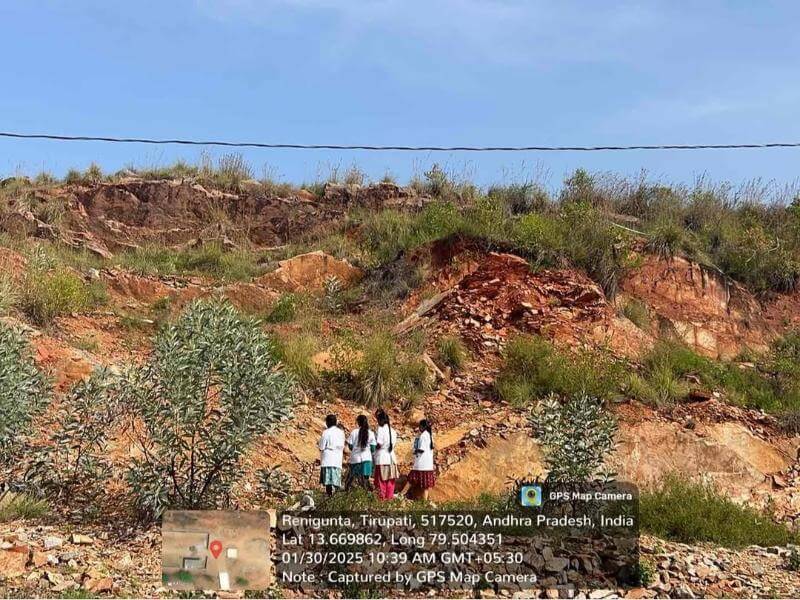
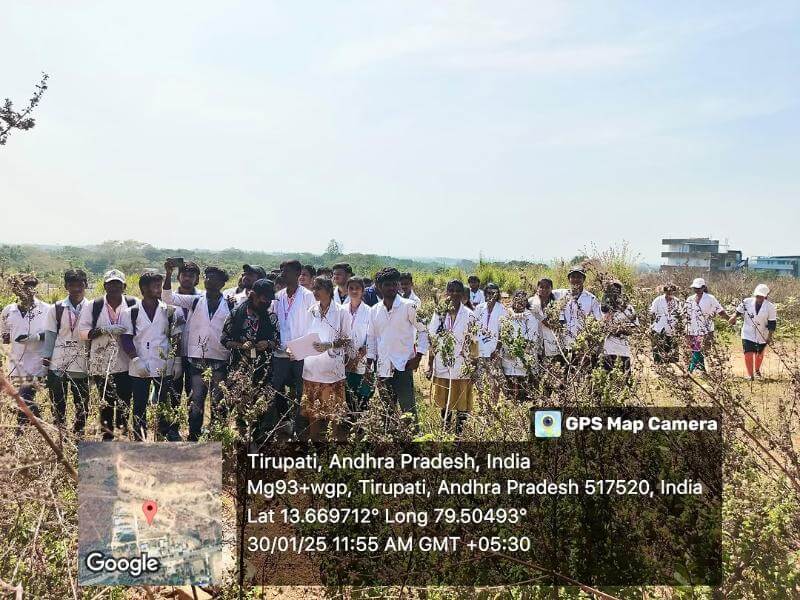
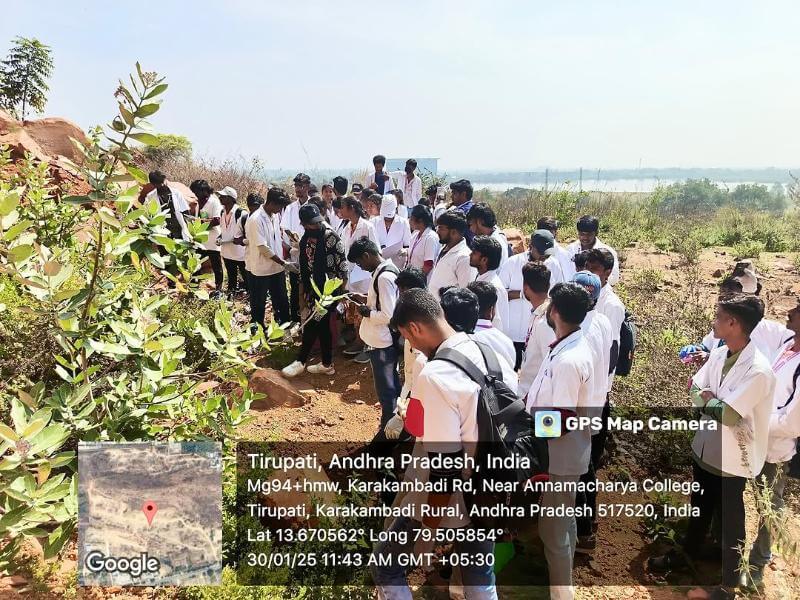

Repurposing Test Concrete for Greener Spaces (2-4-2025)
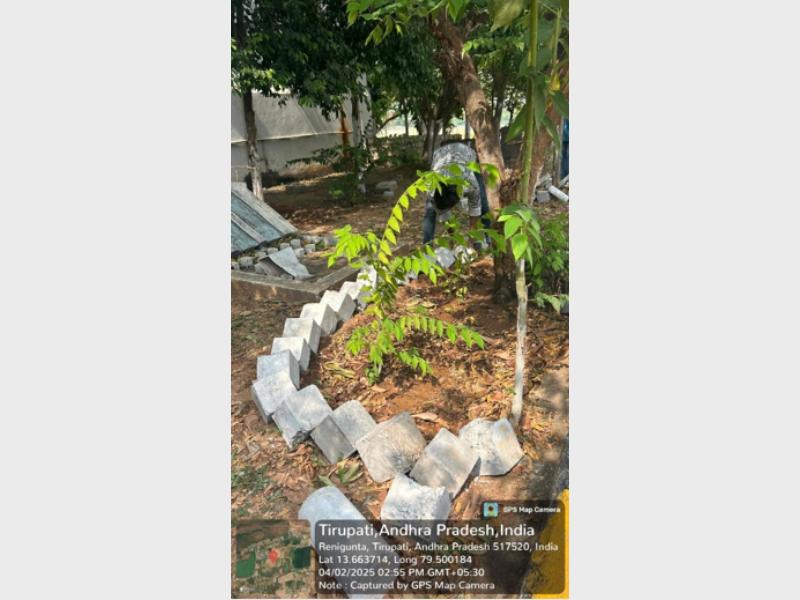
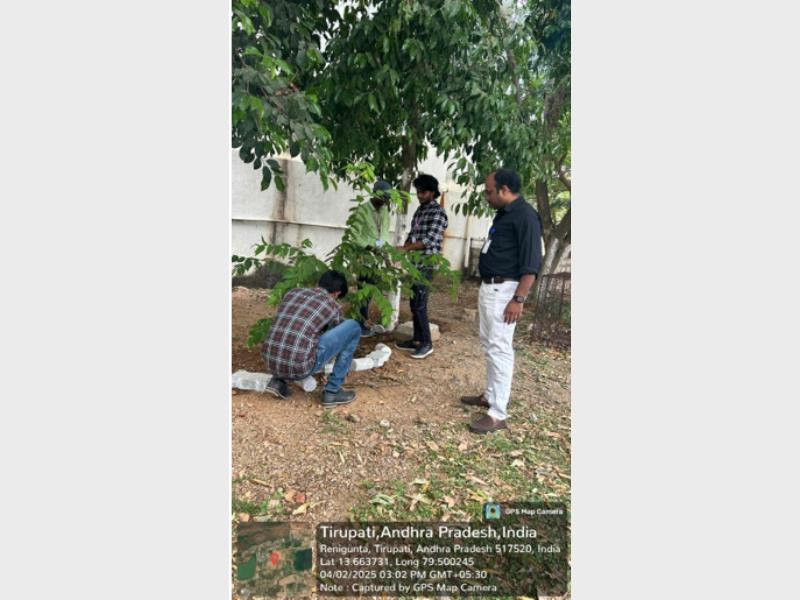
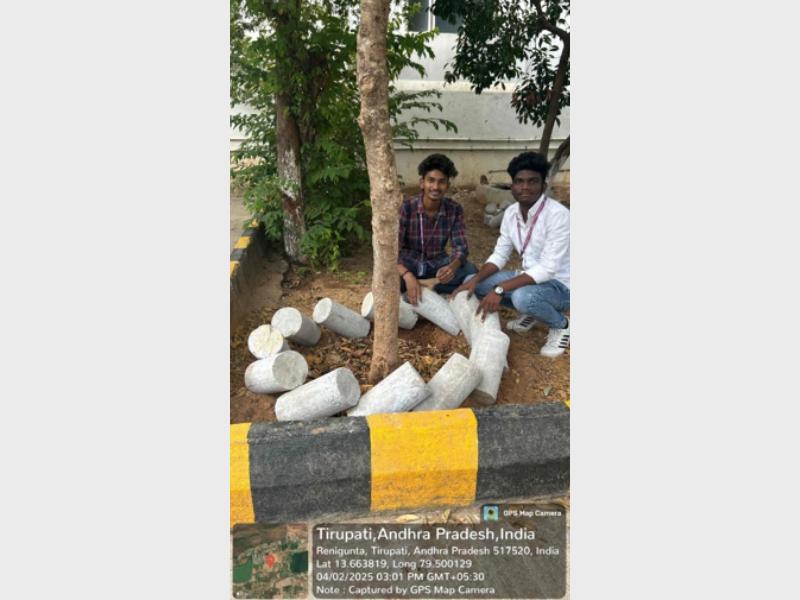
Slogan Writing-SIngle use Plastic(5-10-2023)
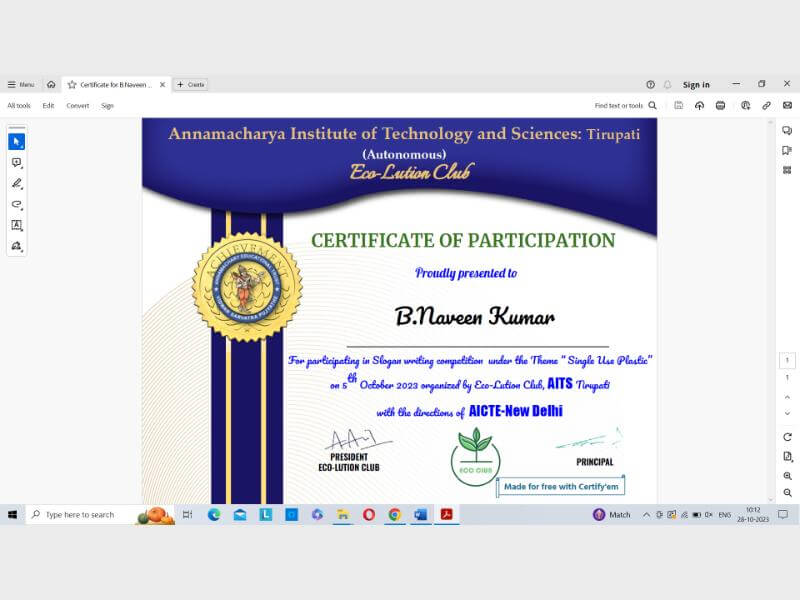
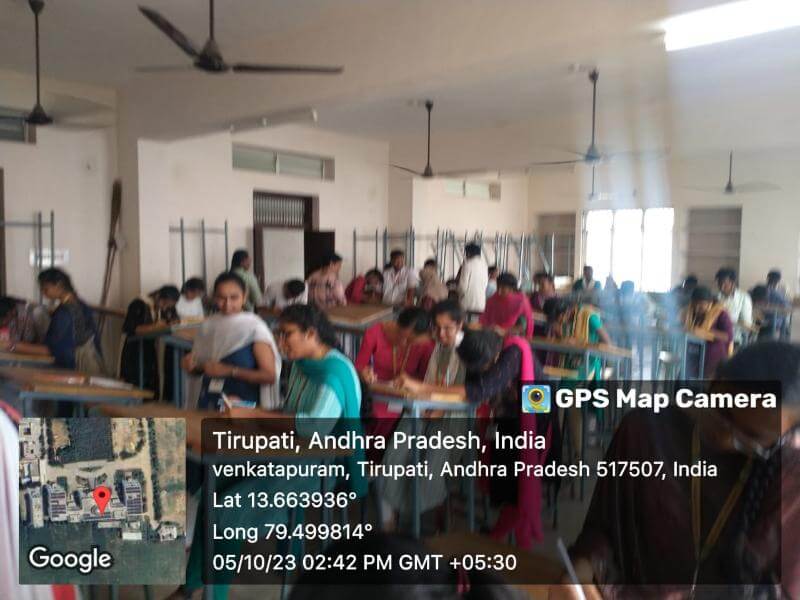
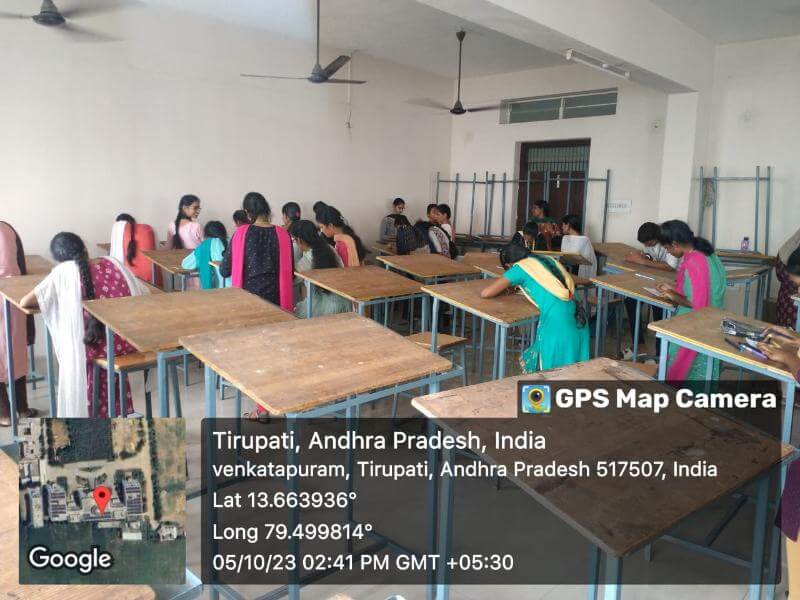
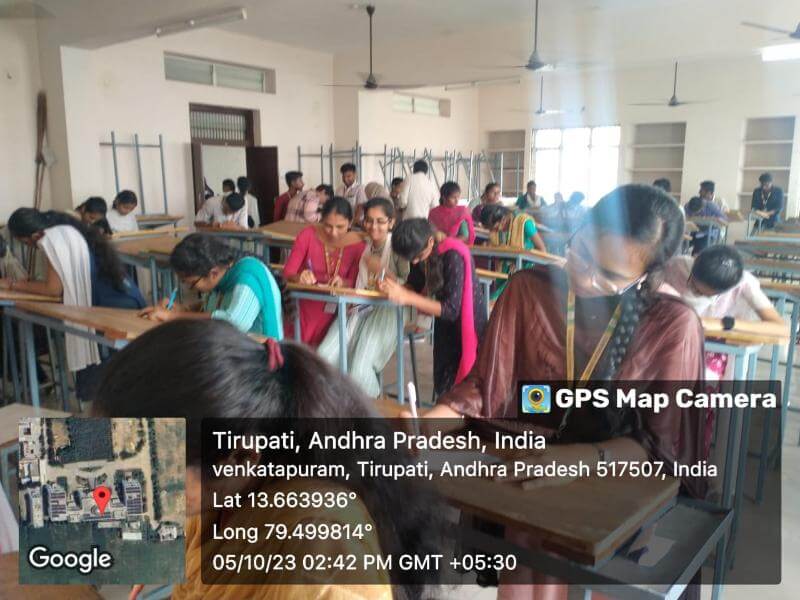
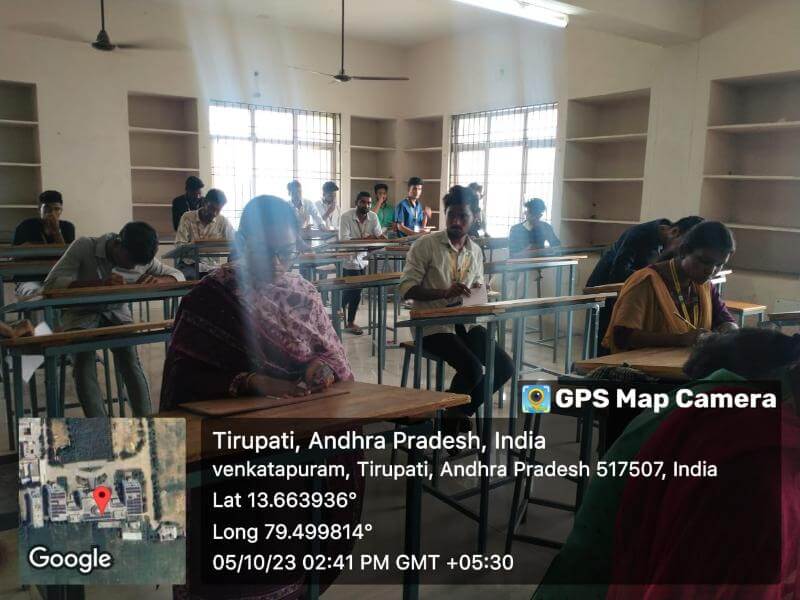
Eco-Club Projects Opening (17-3-2023)
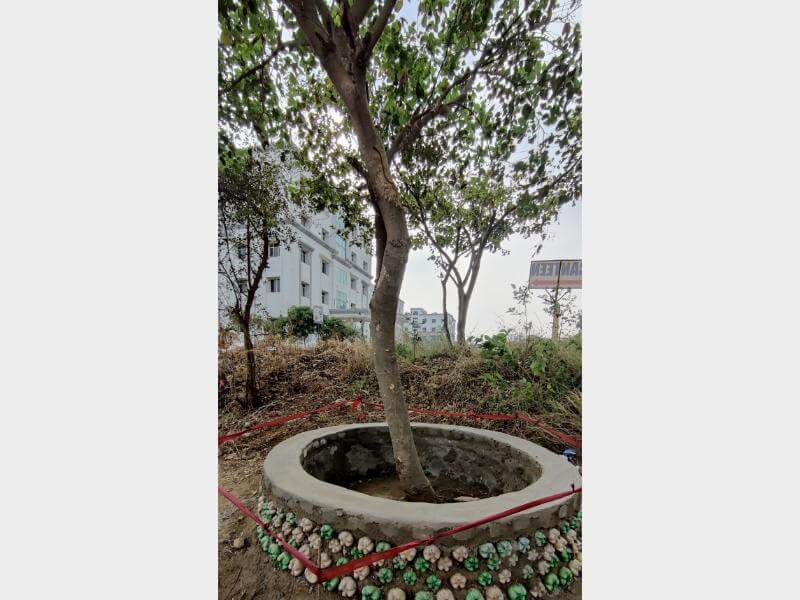
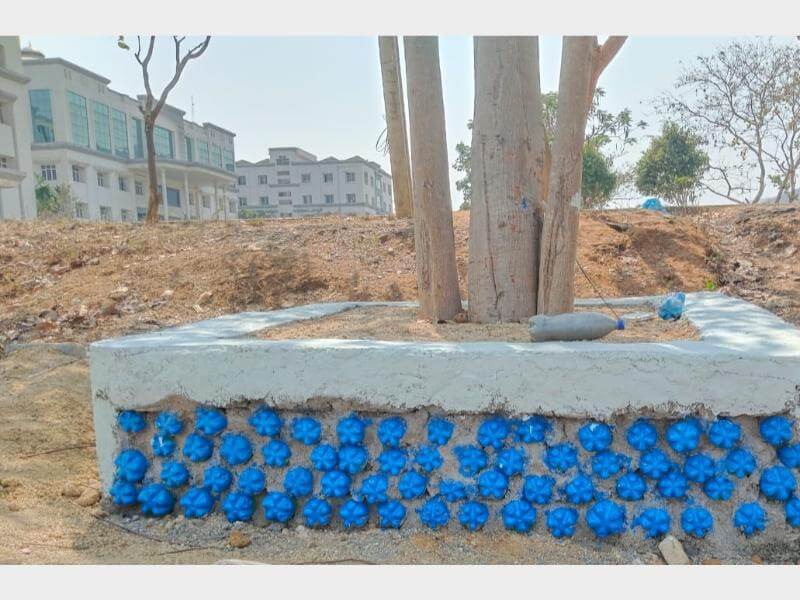
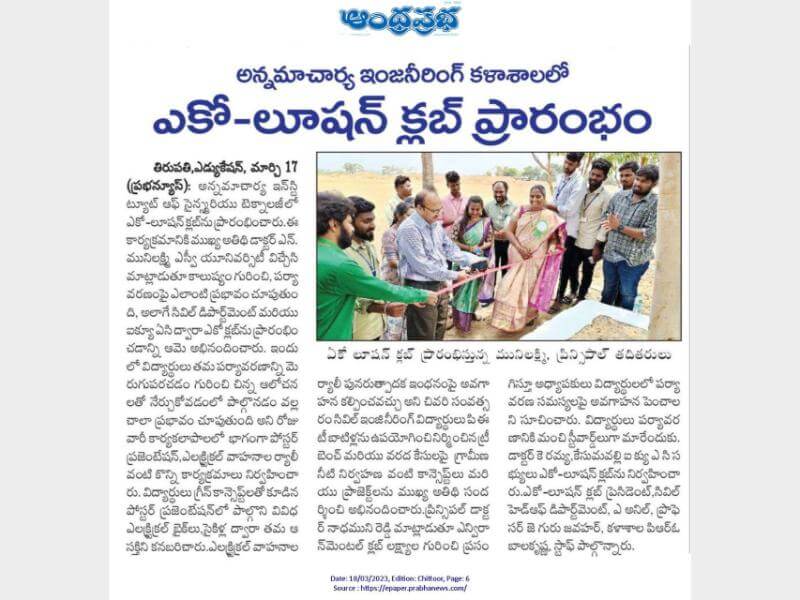
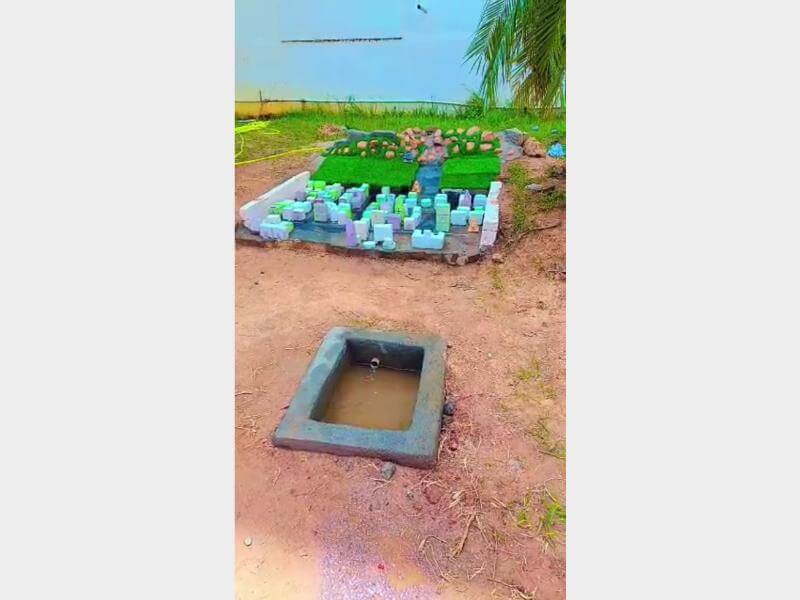
Eco-Club Electrical Vehicles Ralley (17-3-2023)
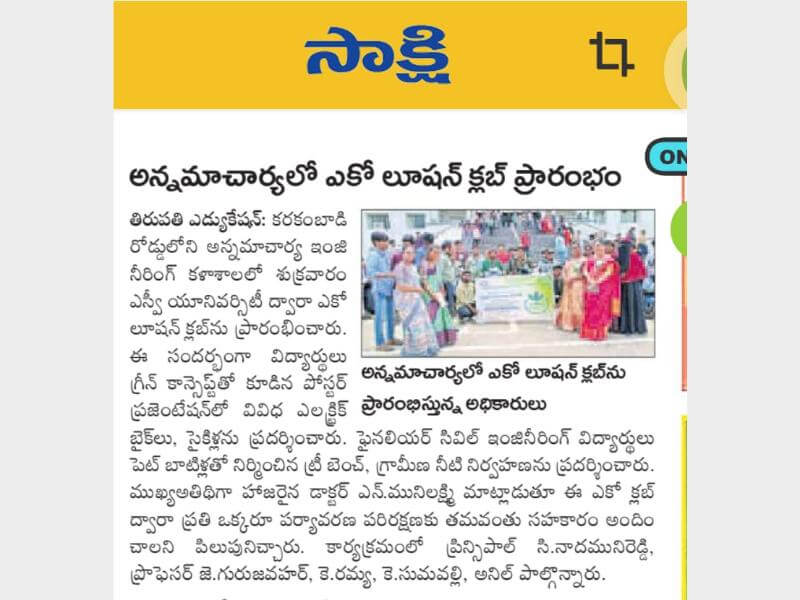
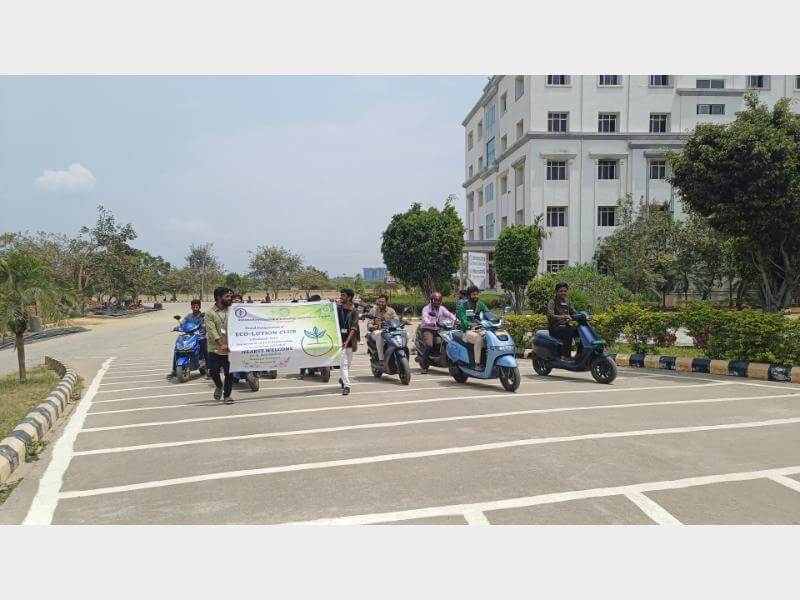
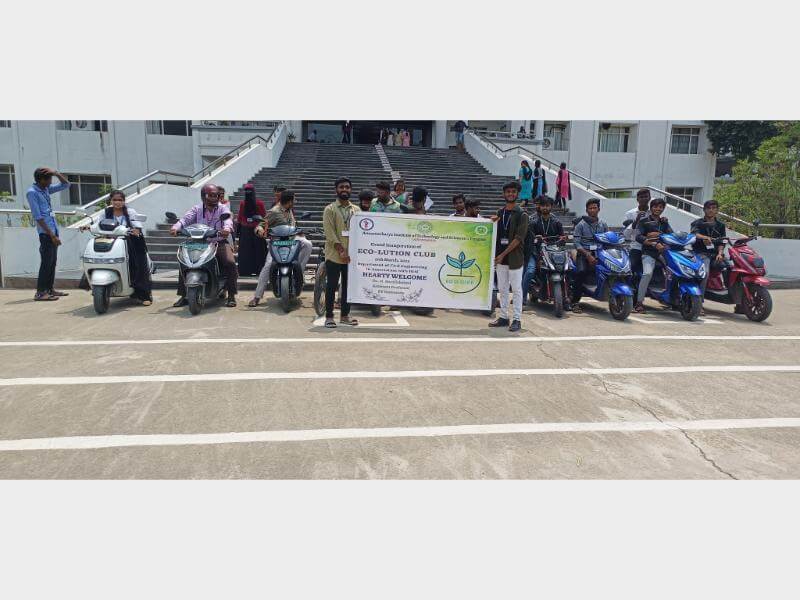
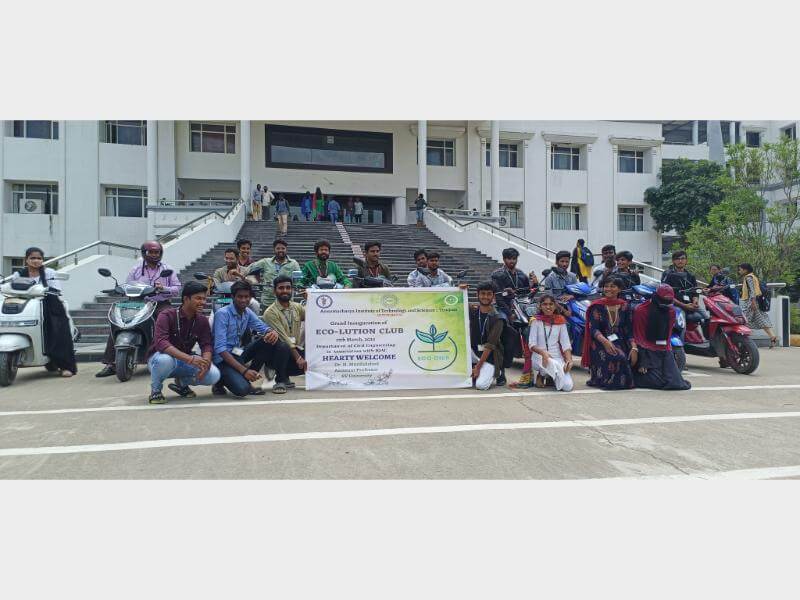
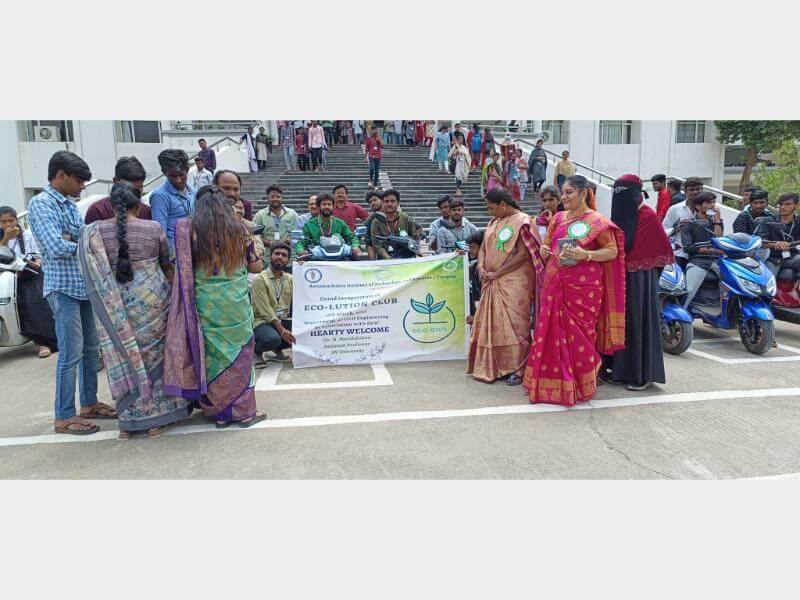
Air pollution workshop (10-3-2023)
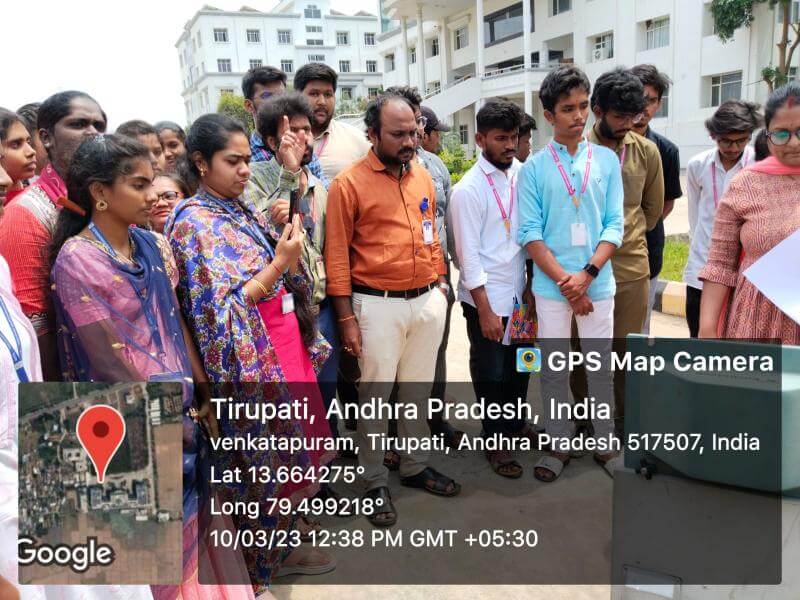
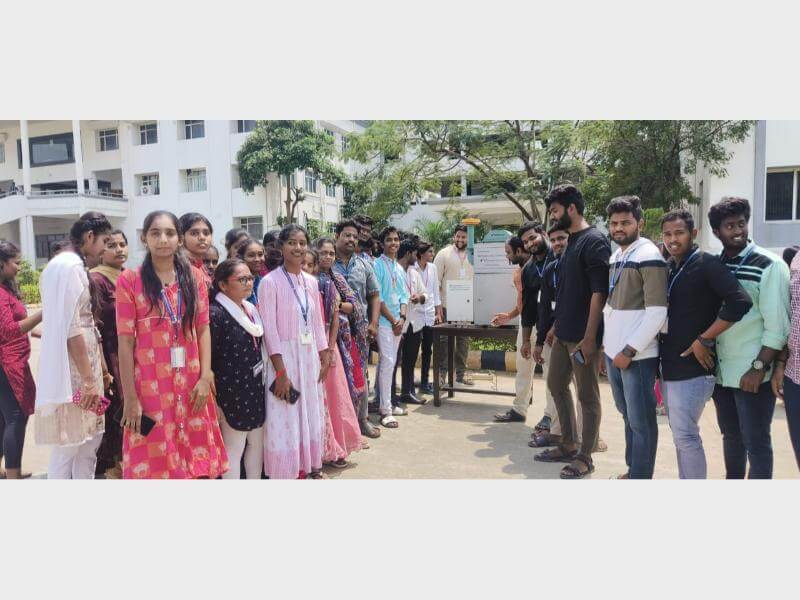
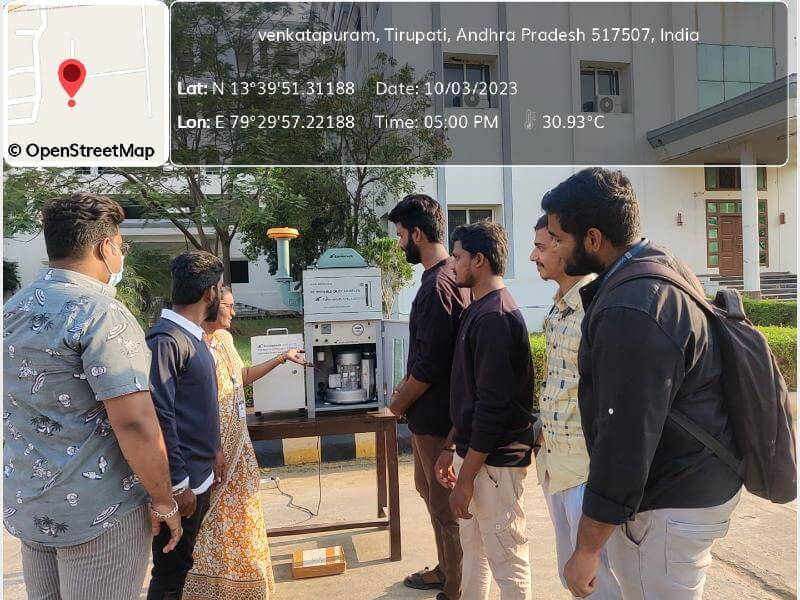
Arts Club Twilight Visionaries
Diwali Stalls Extravaganza(18-10-2025)













Digital Arts Exhbition (15-9-2025)
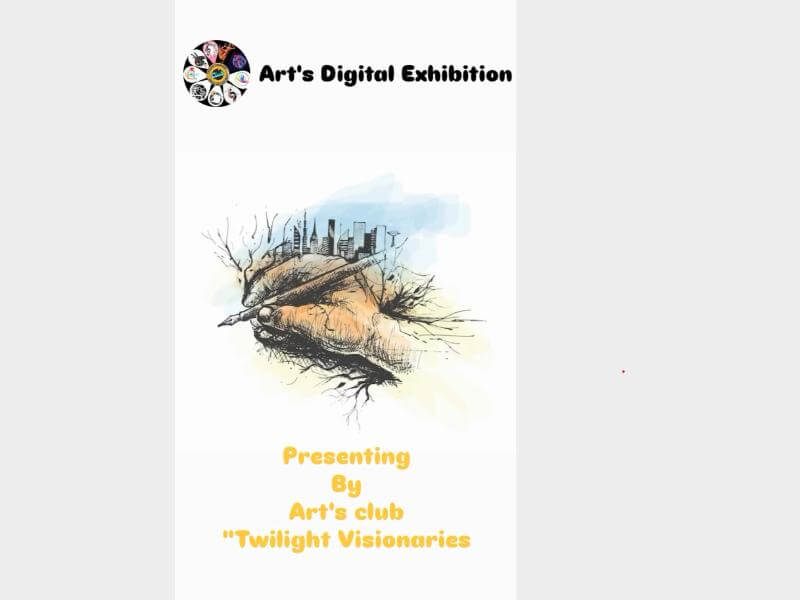
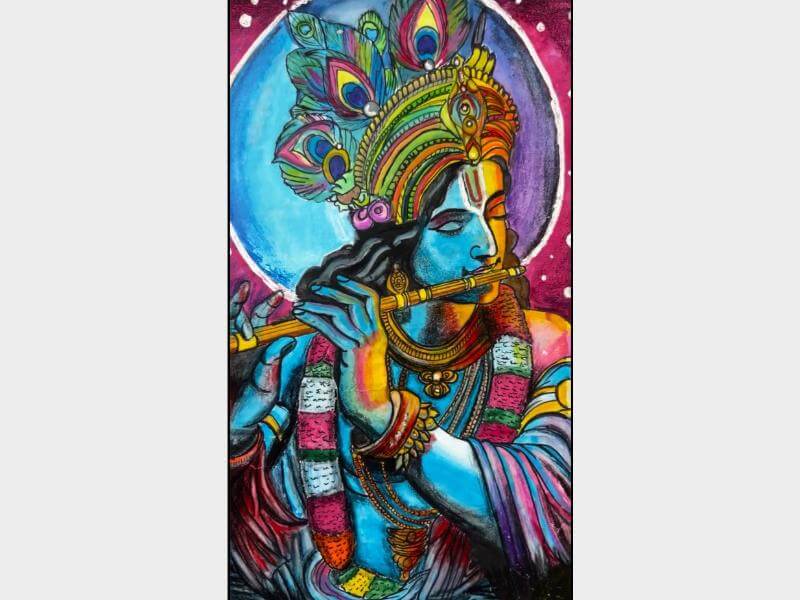
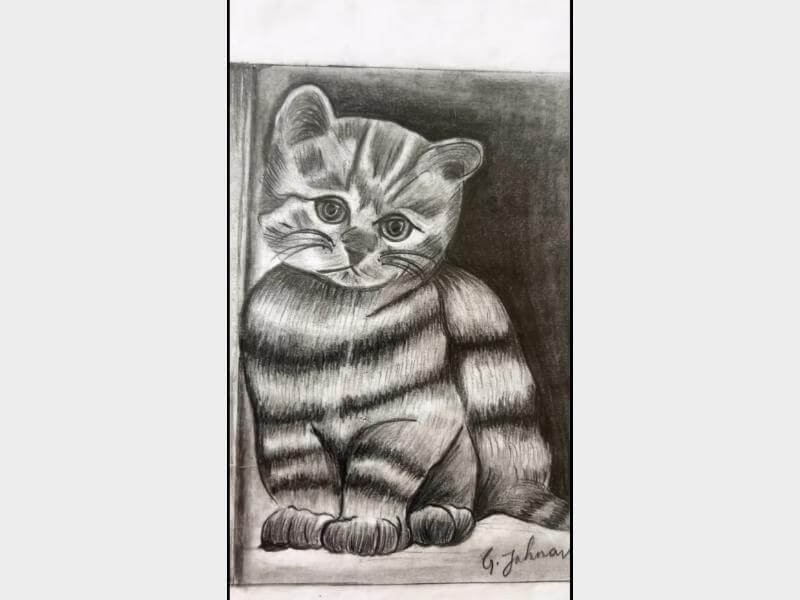

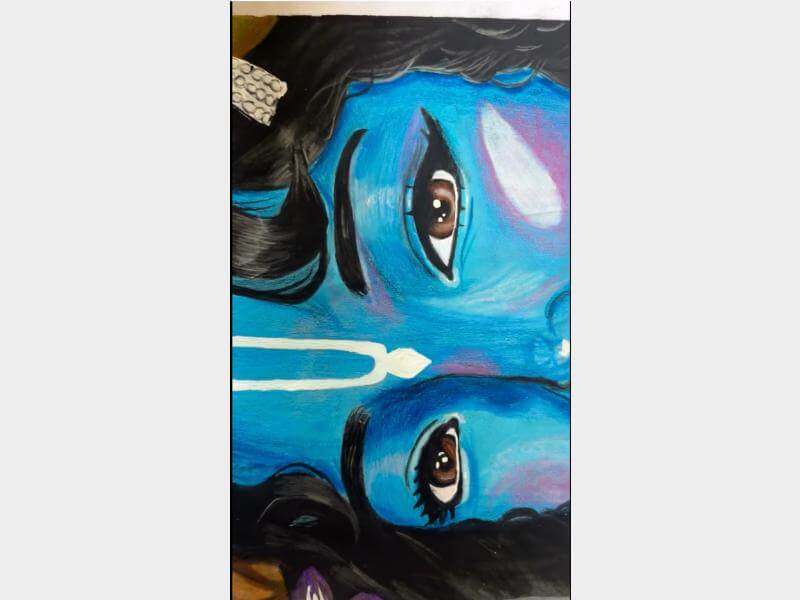


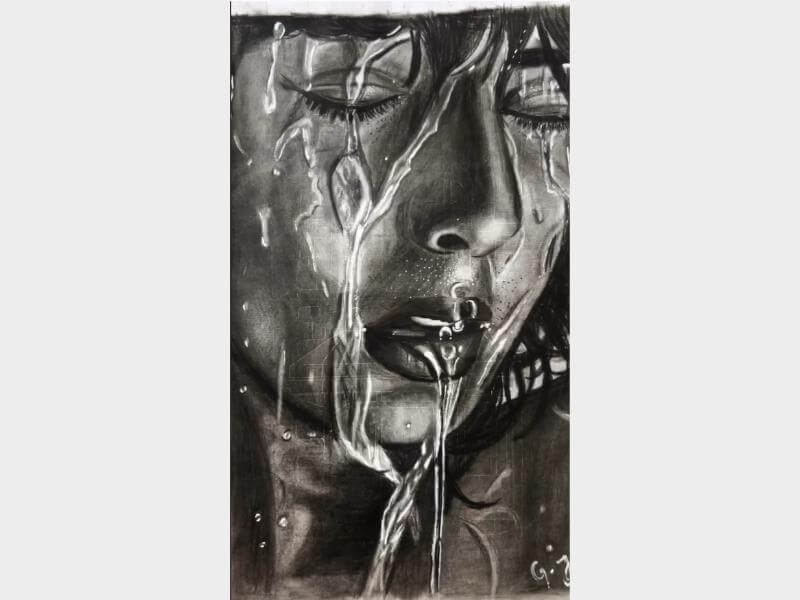
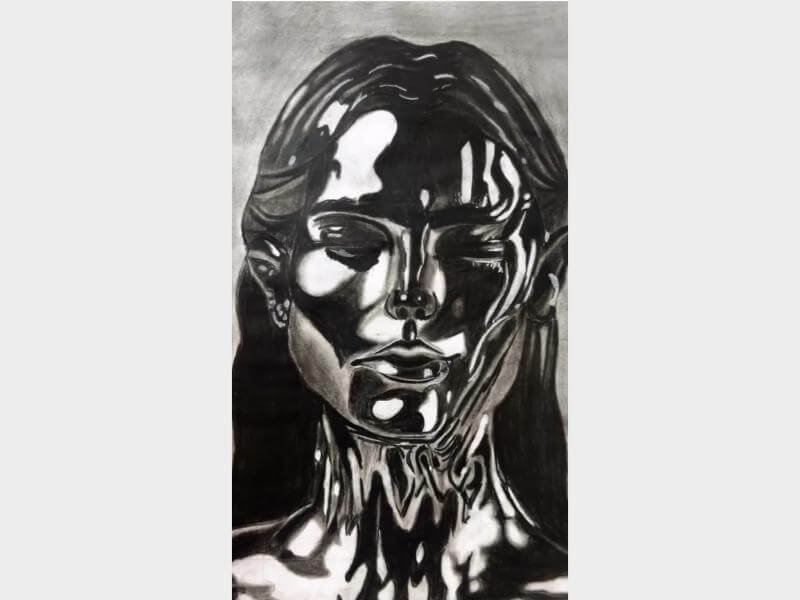
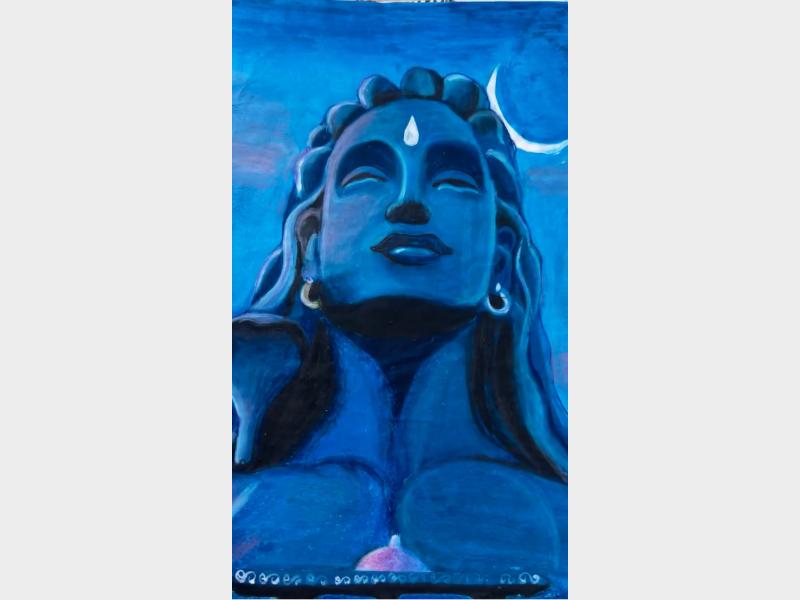
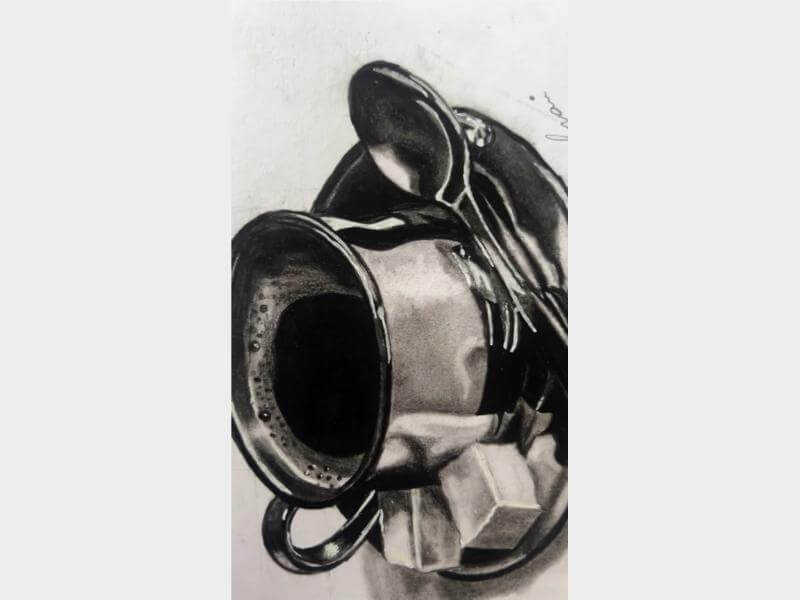
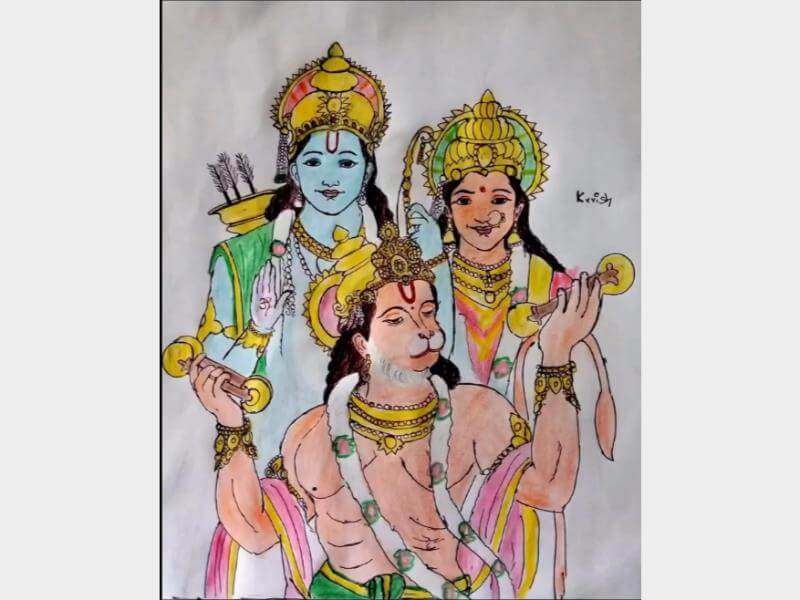
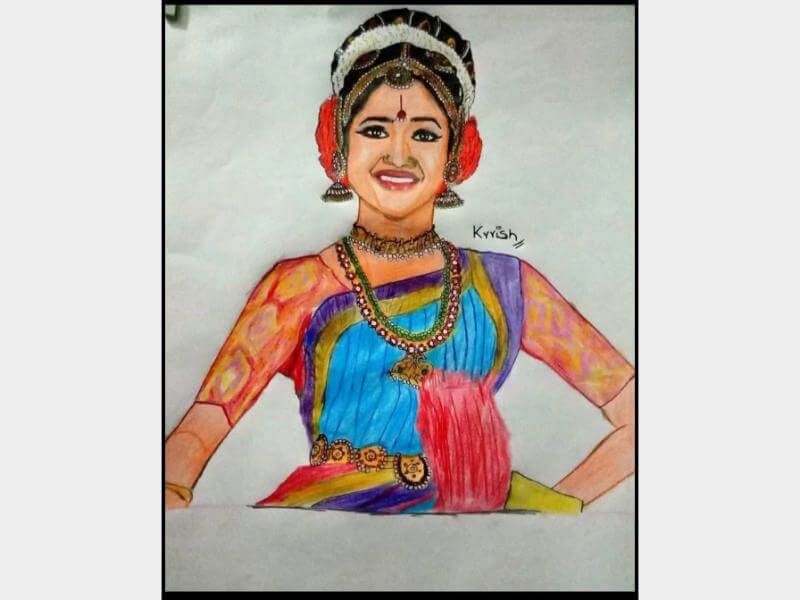
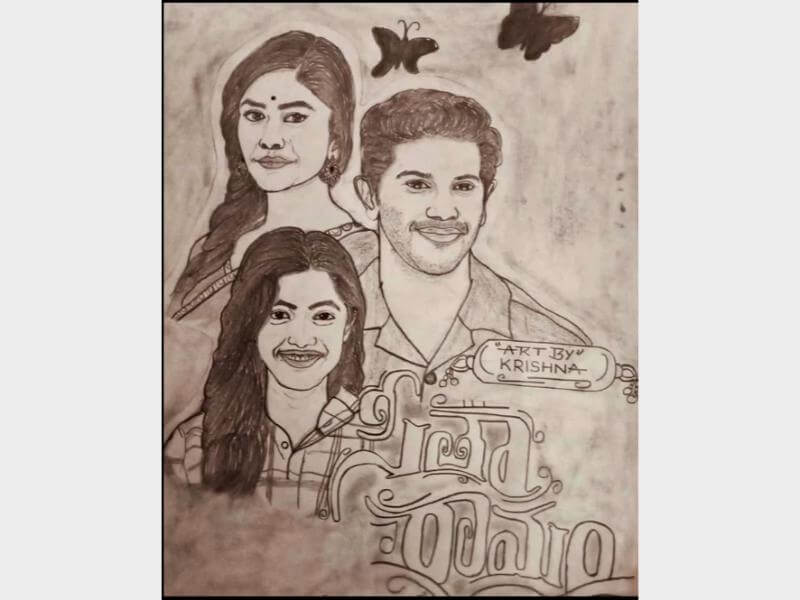
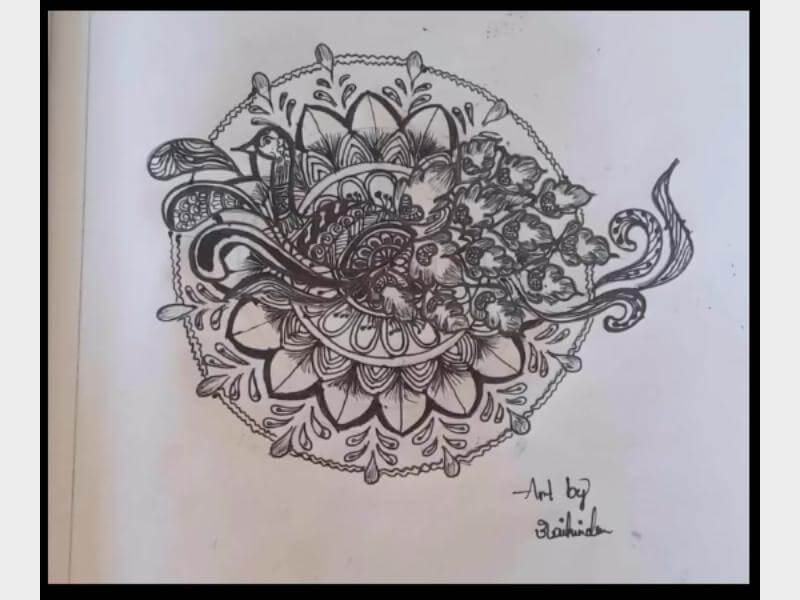
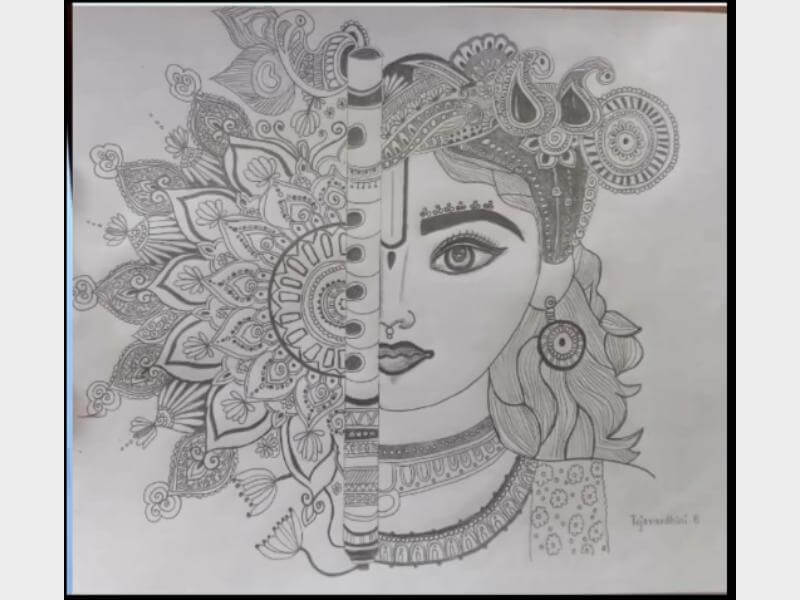
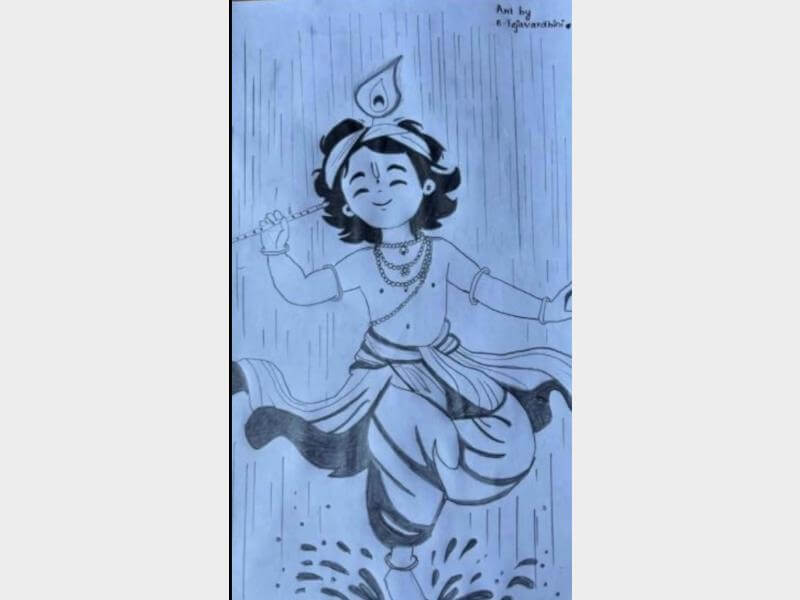
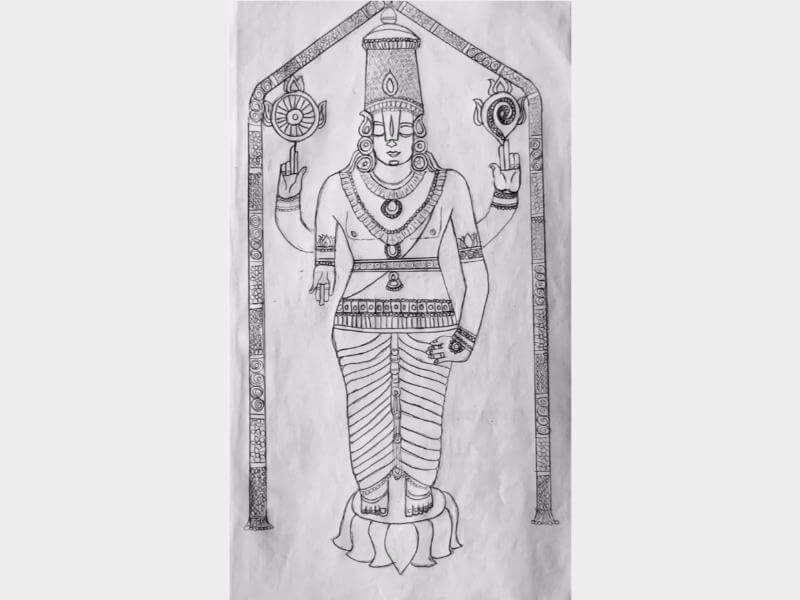
Art &Craft (19-4-2025)
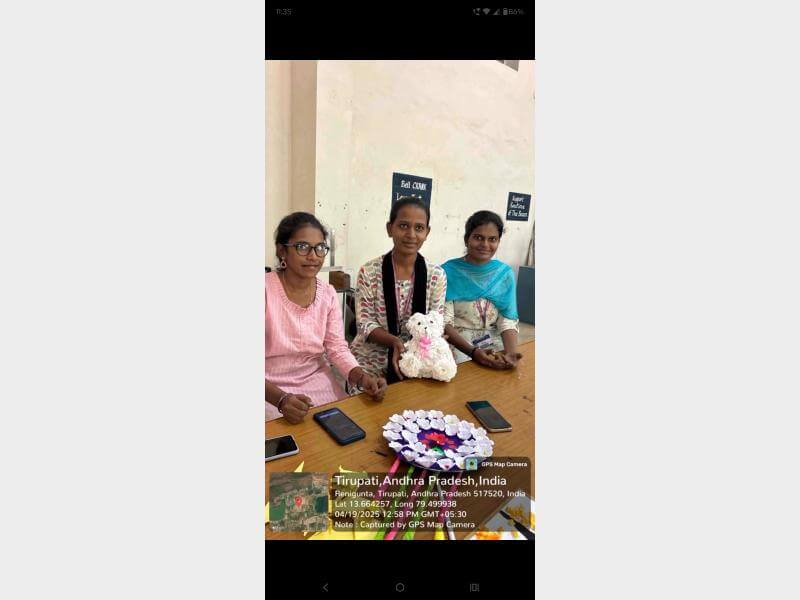
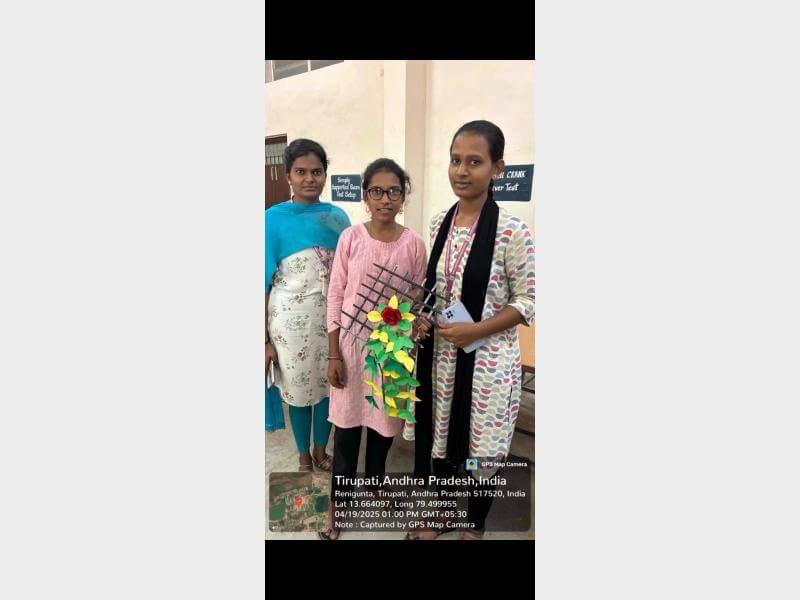
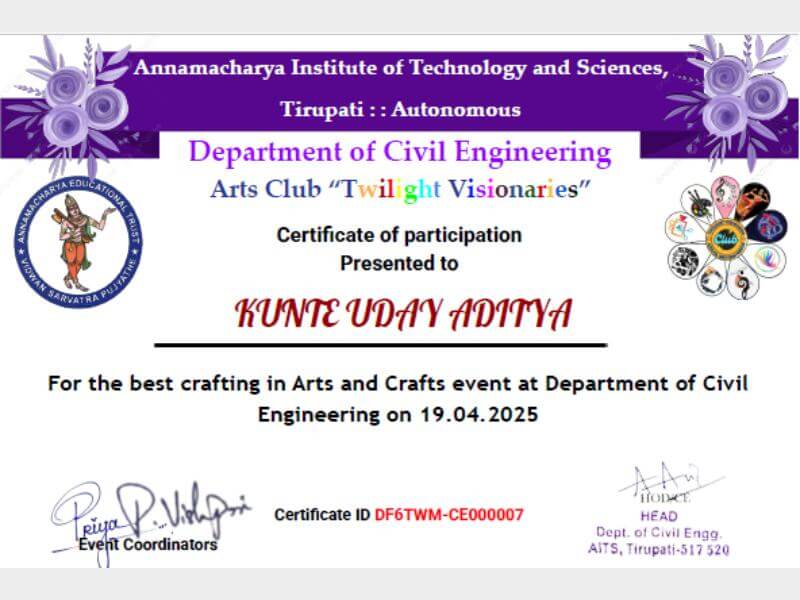
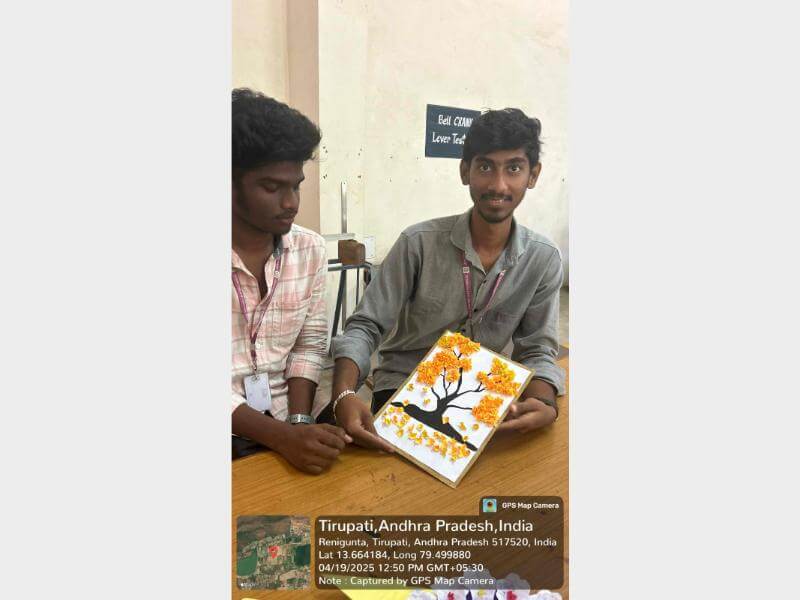
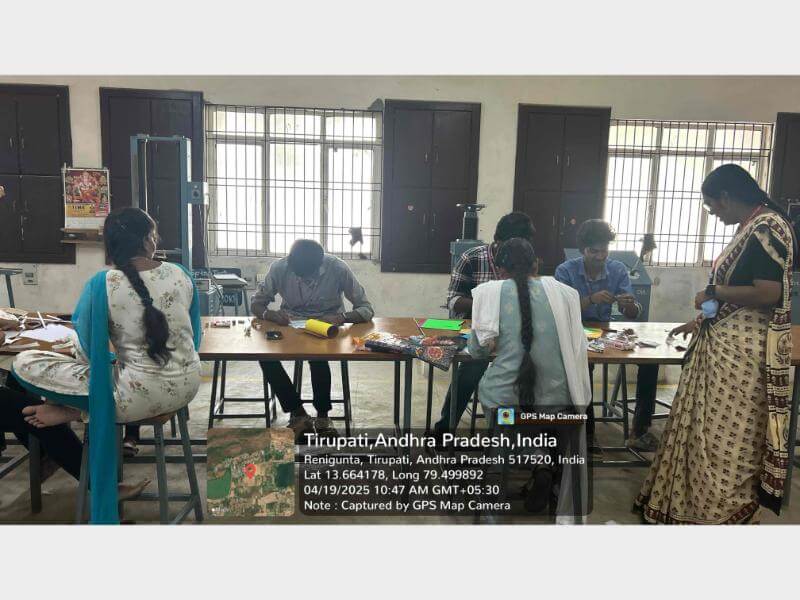
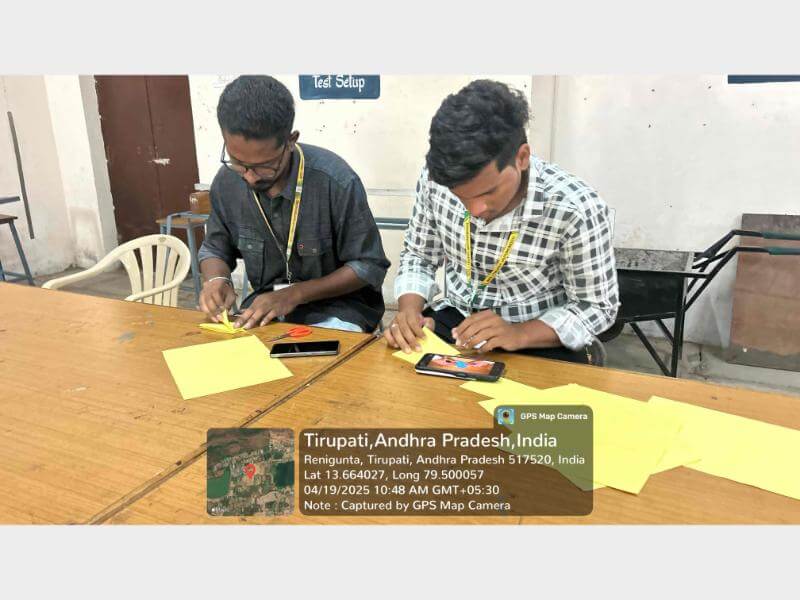
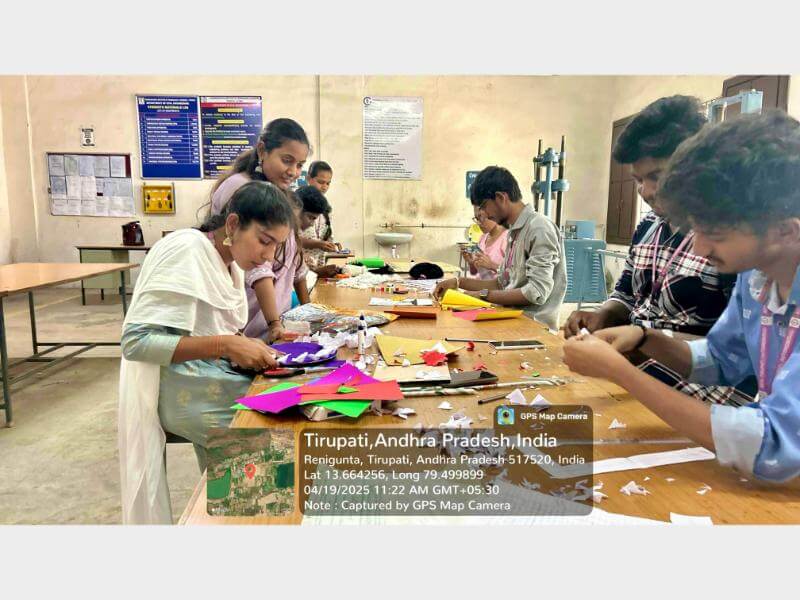
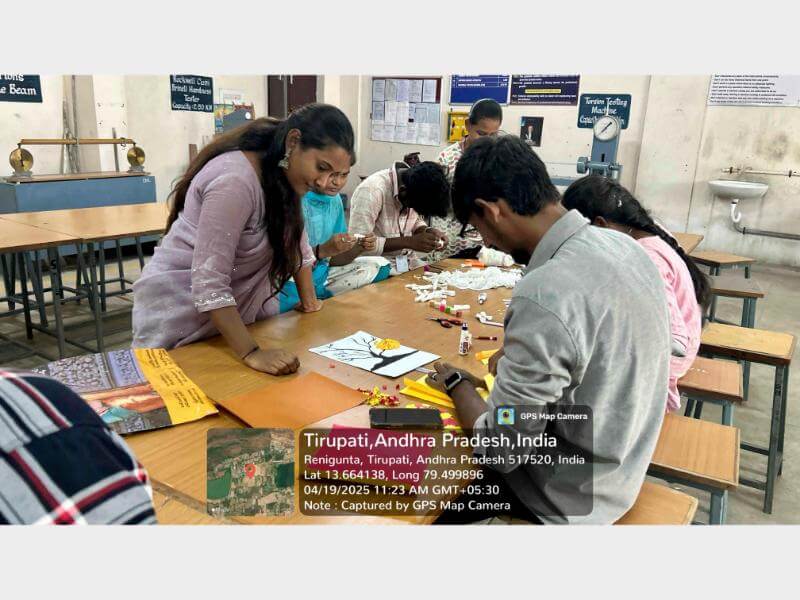
Art&Craft(19-12-2022)
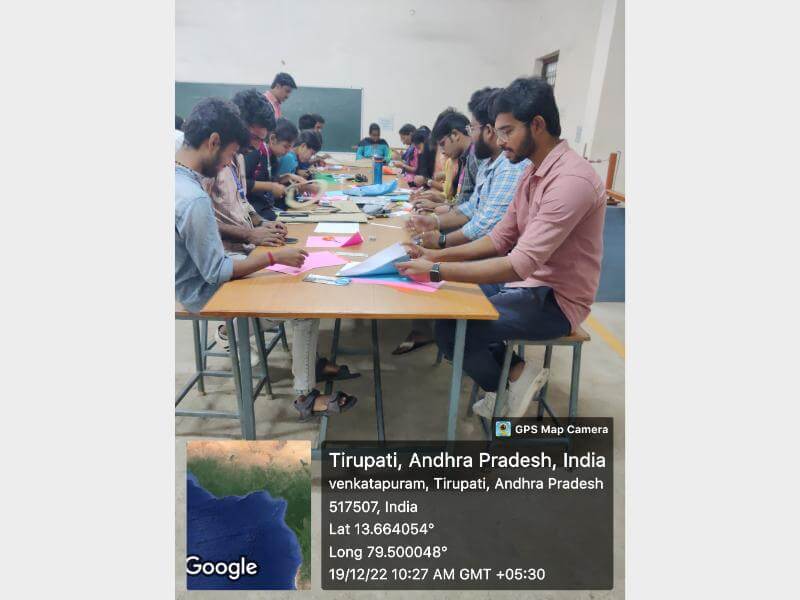
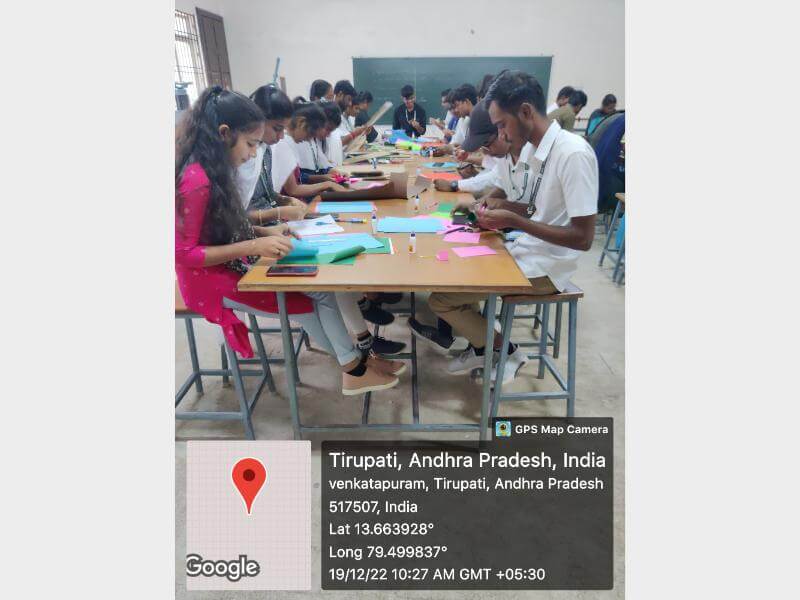
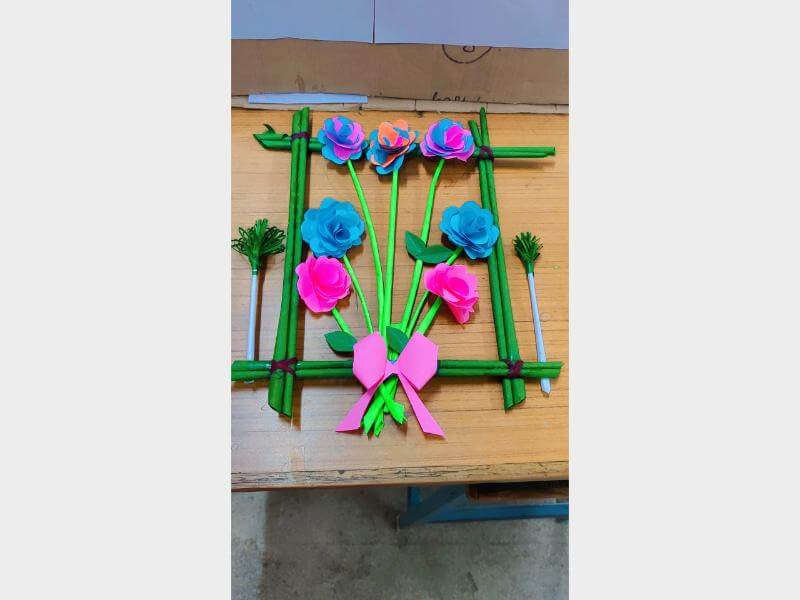
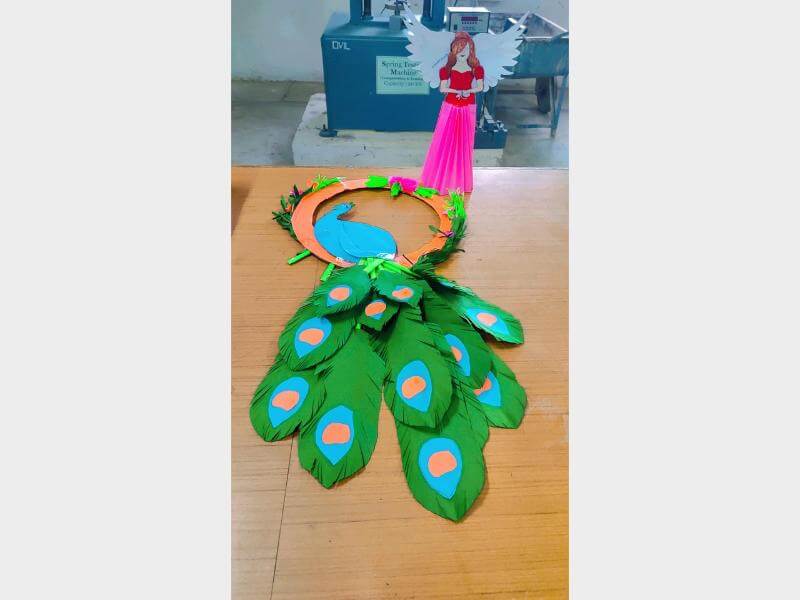
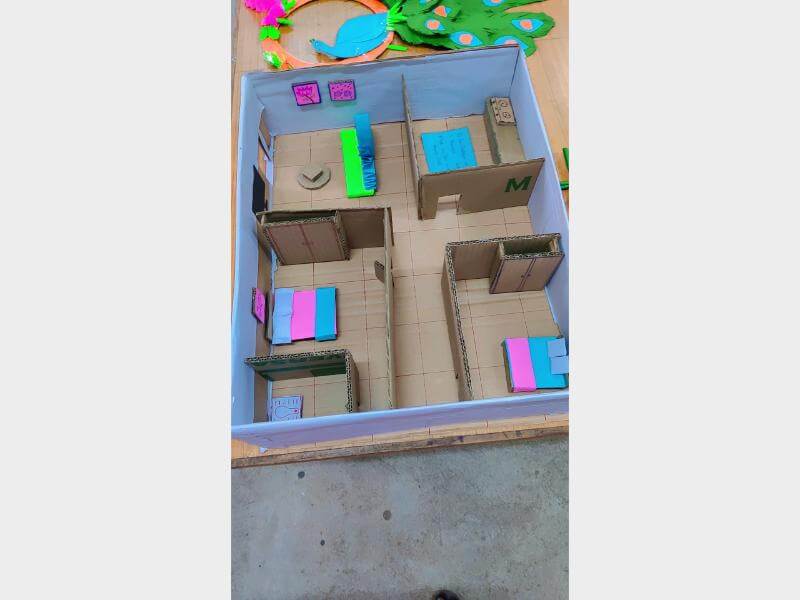
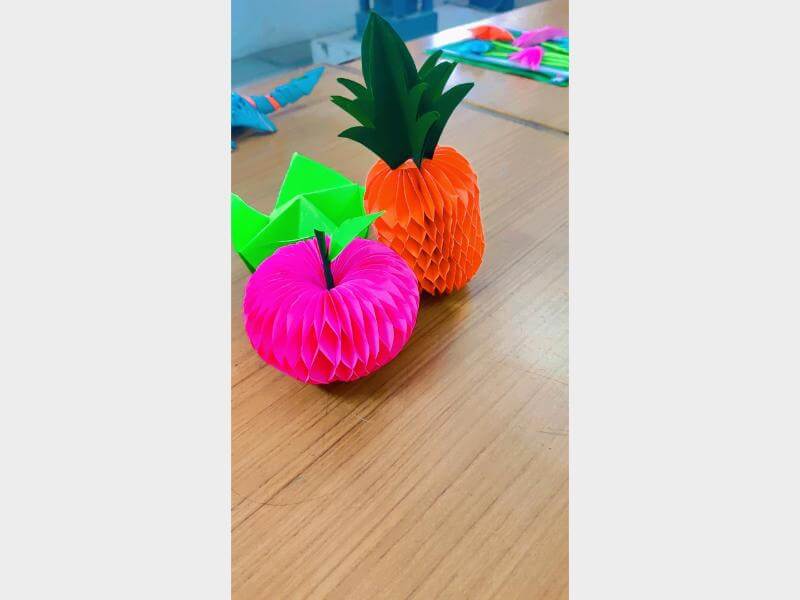
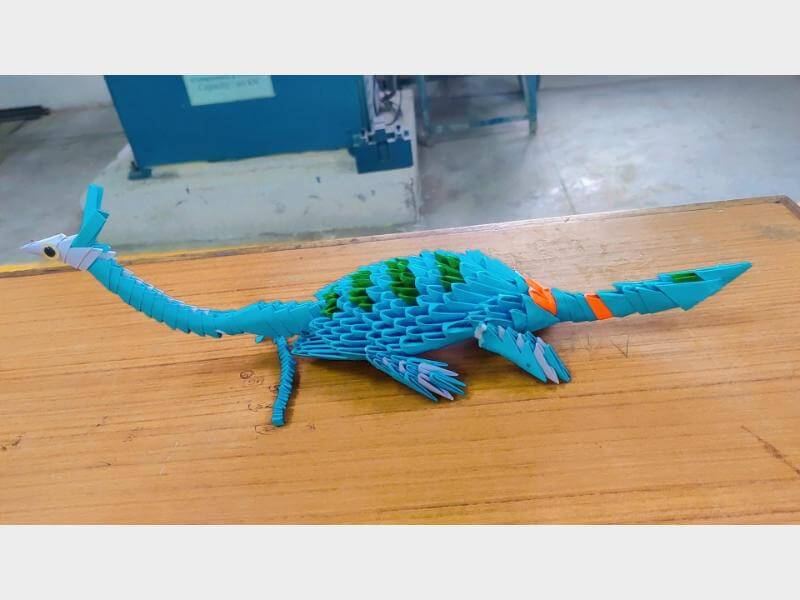
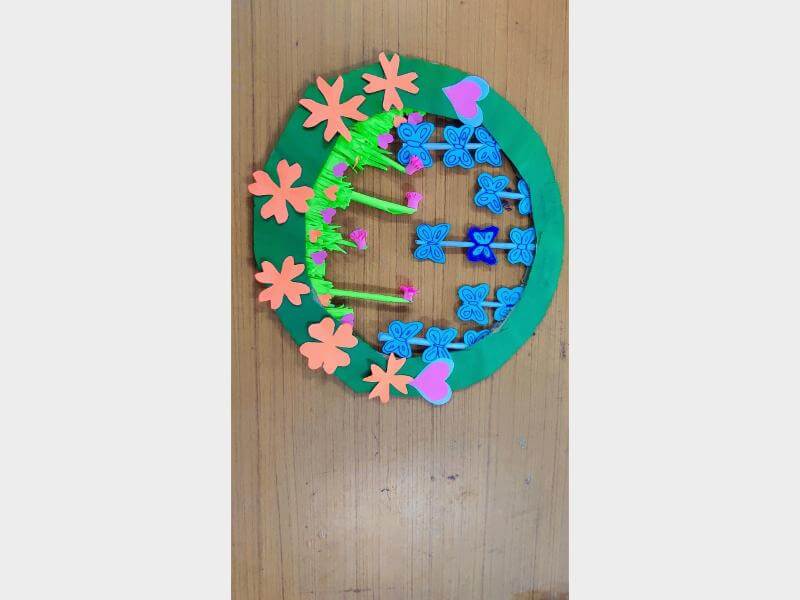
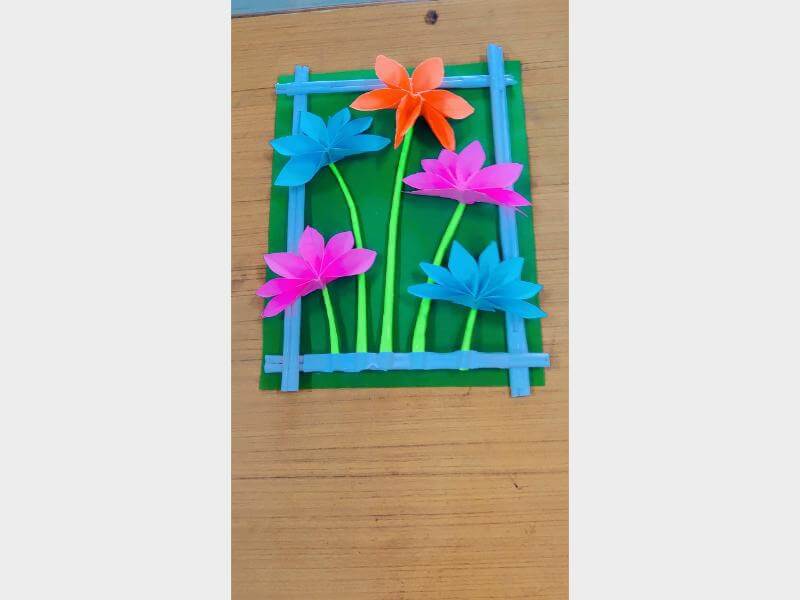
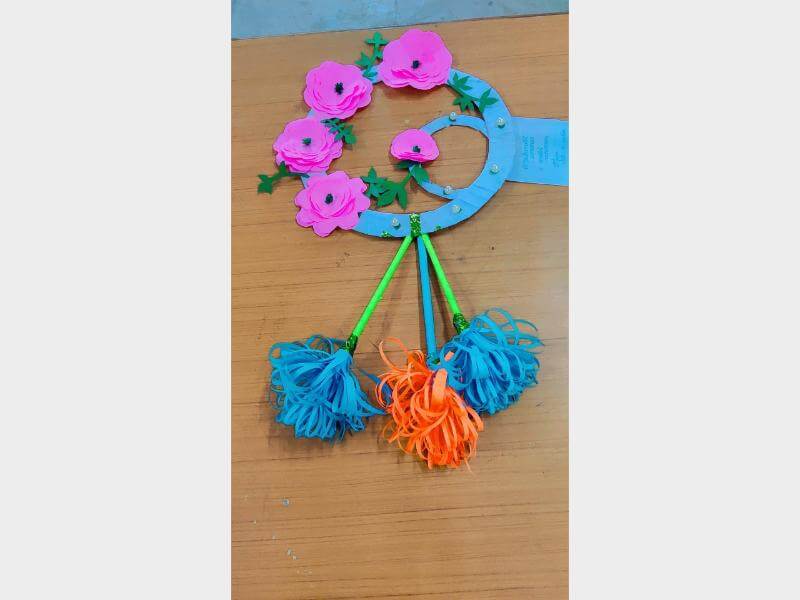
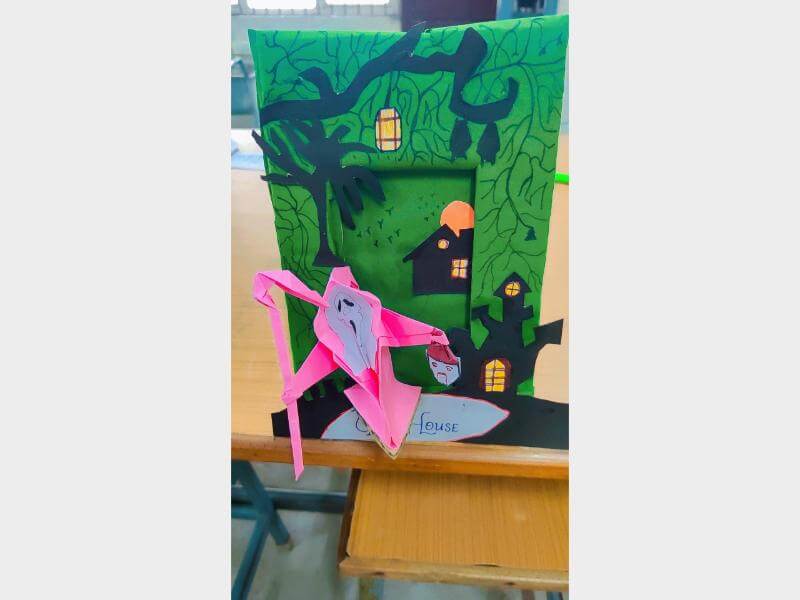
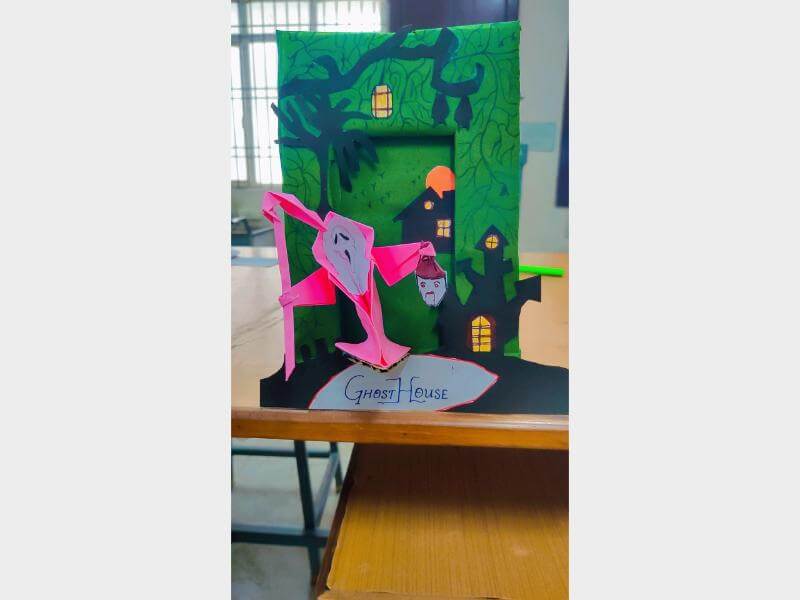
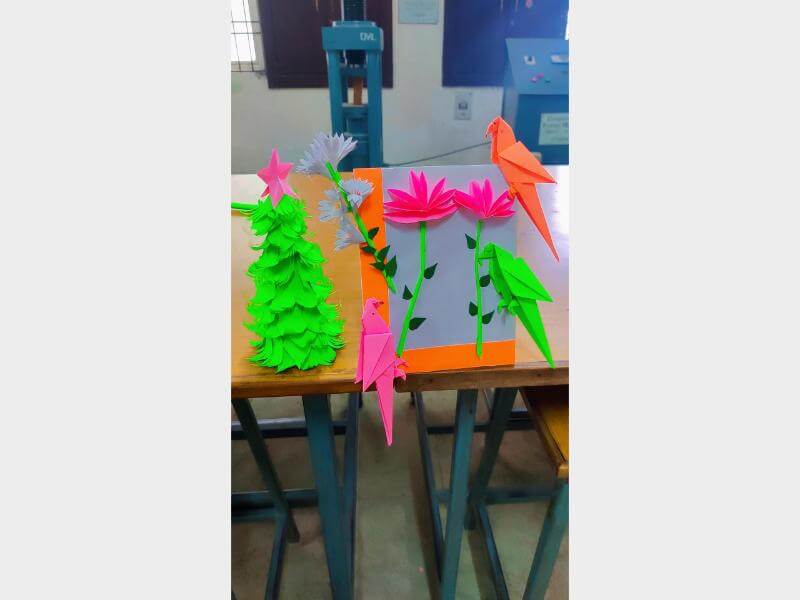
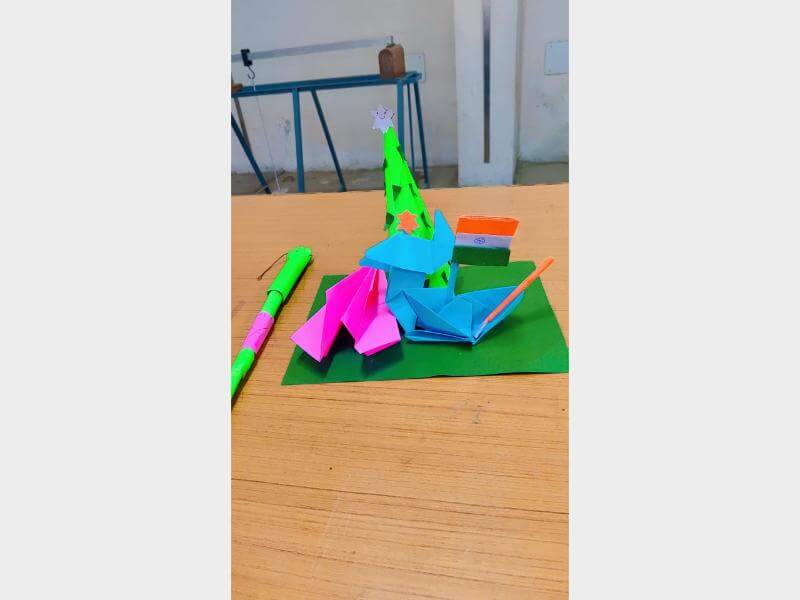
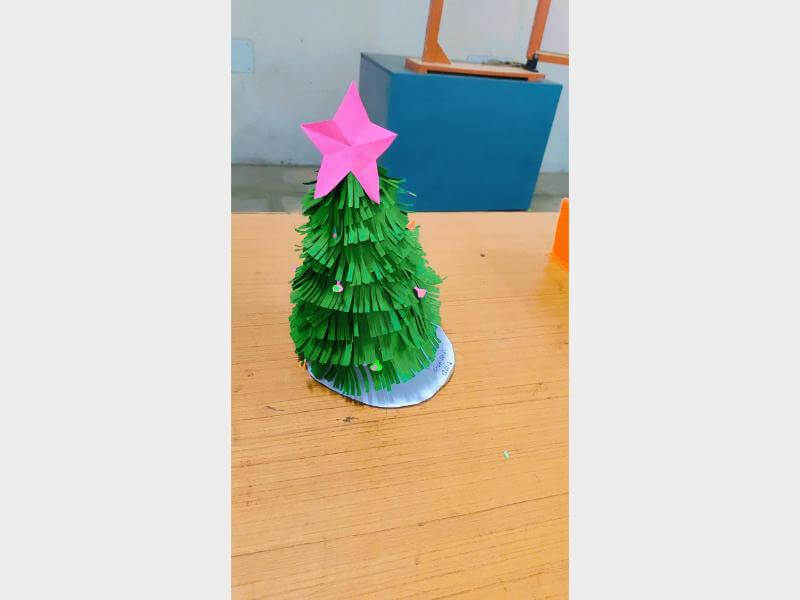
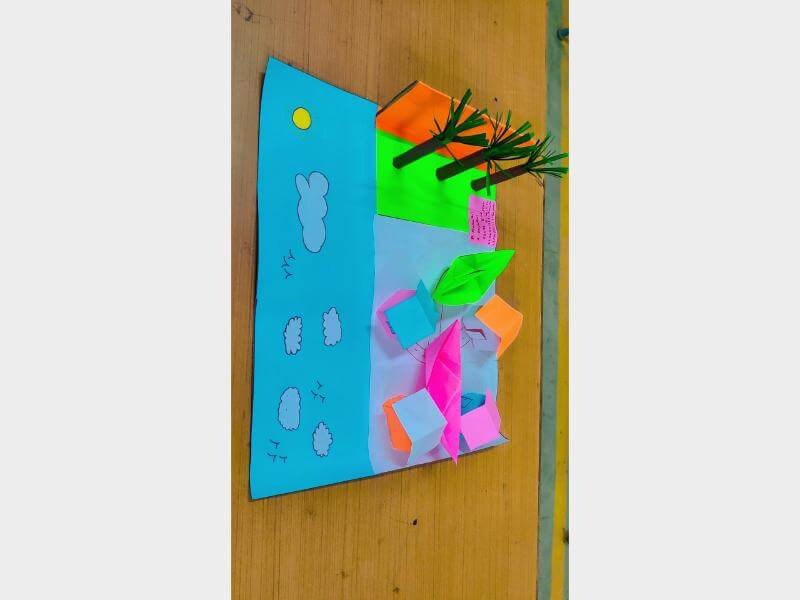
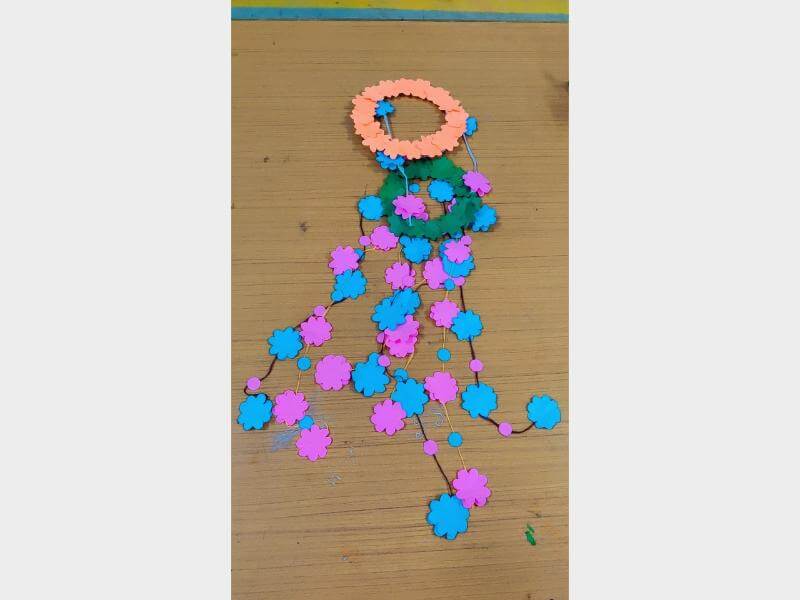
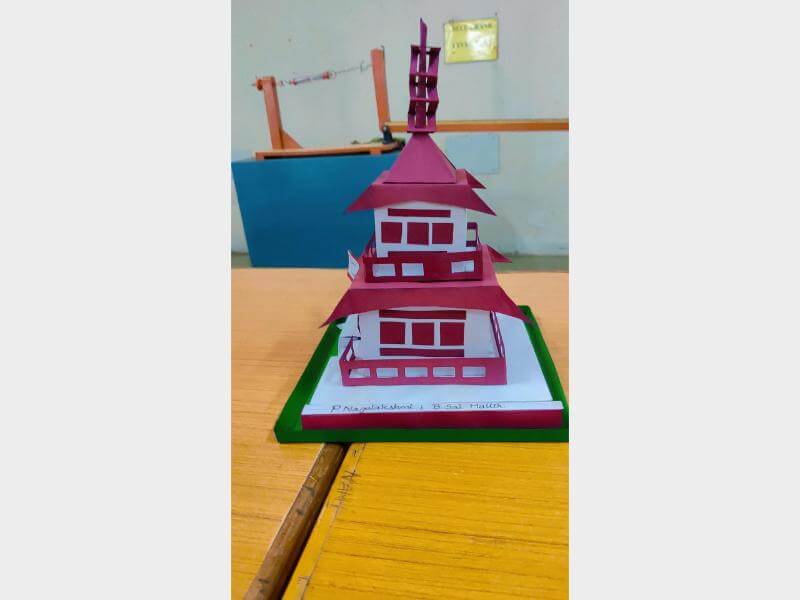
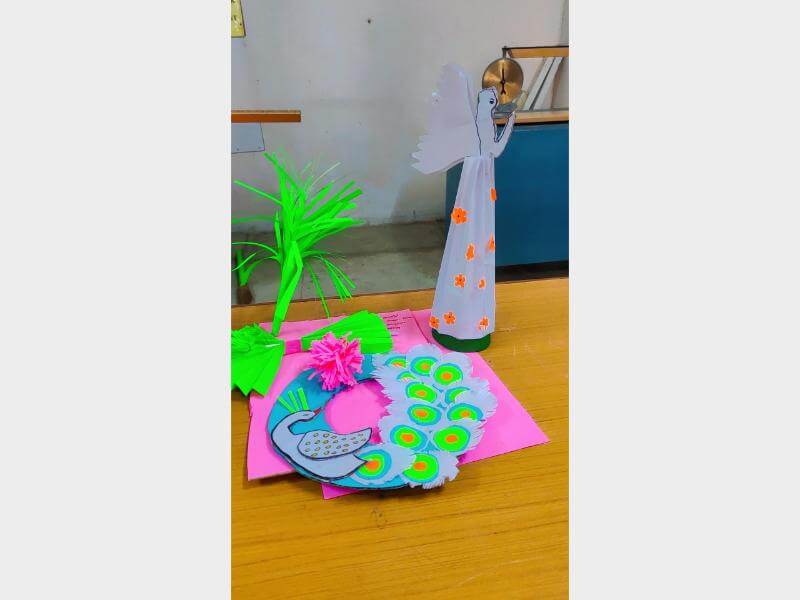
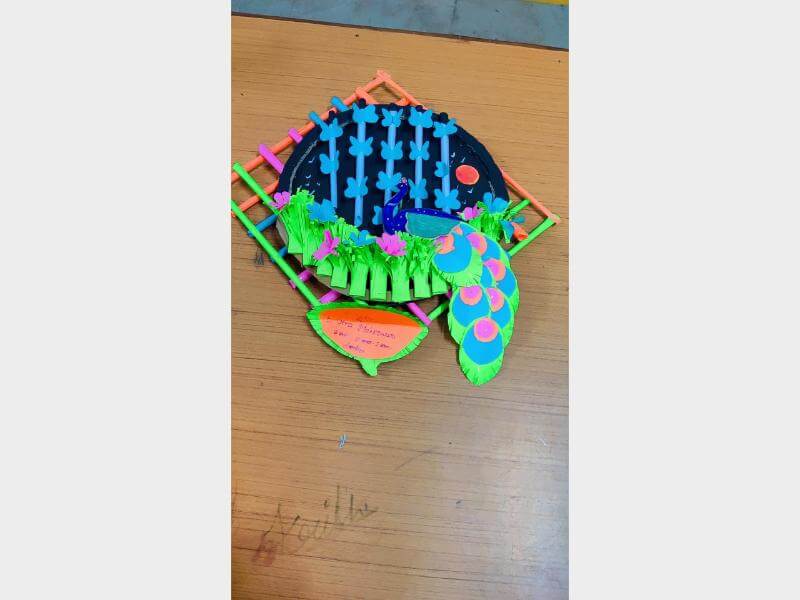
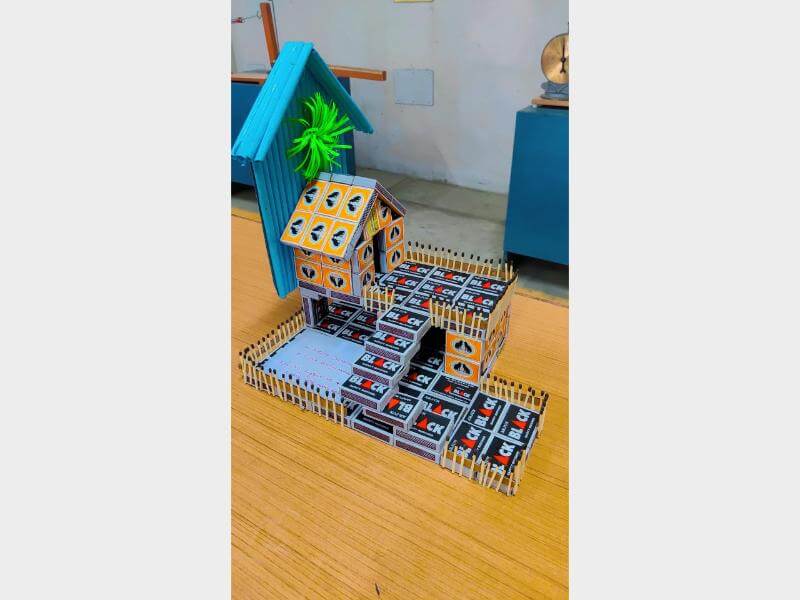
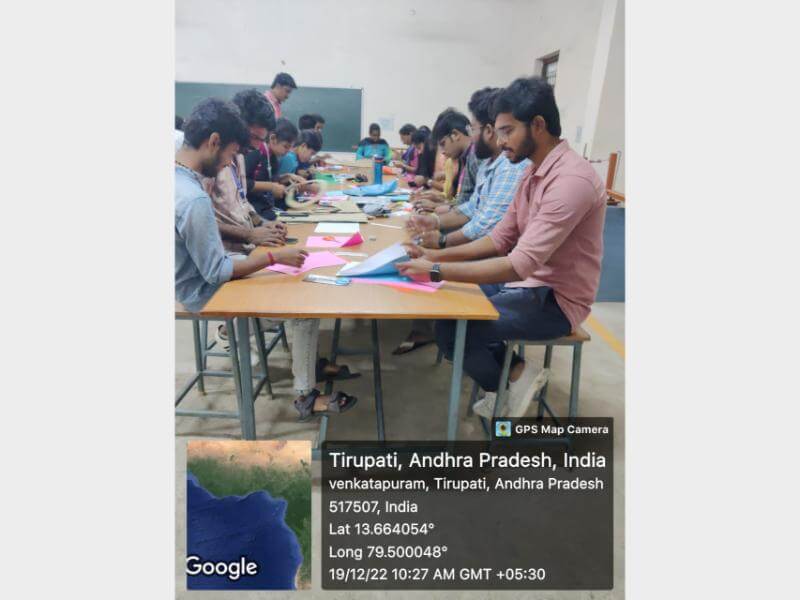
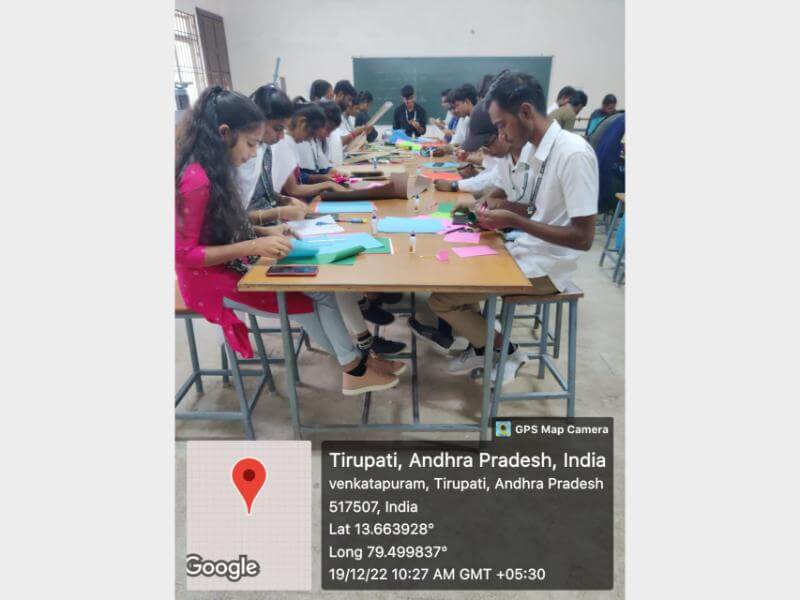
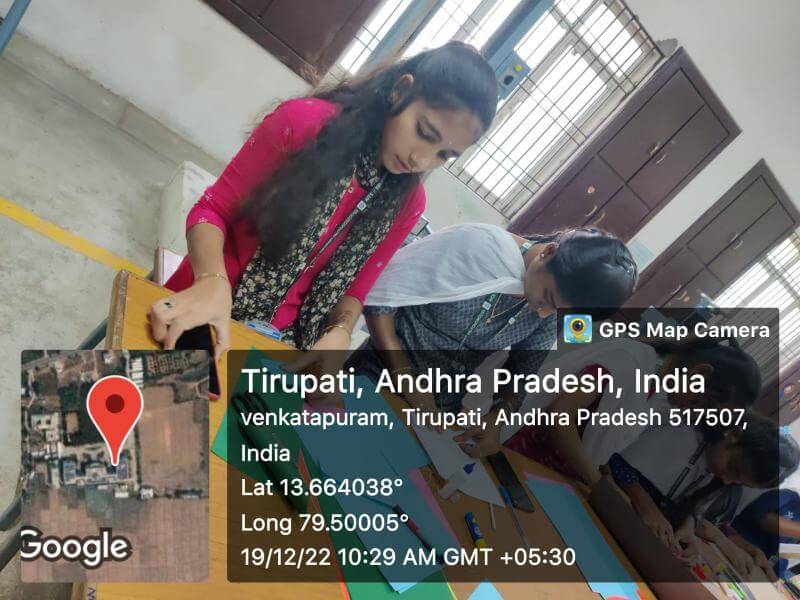
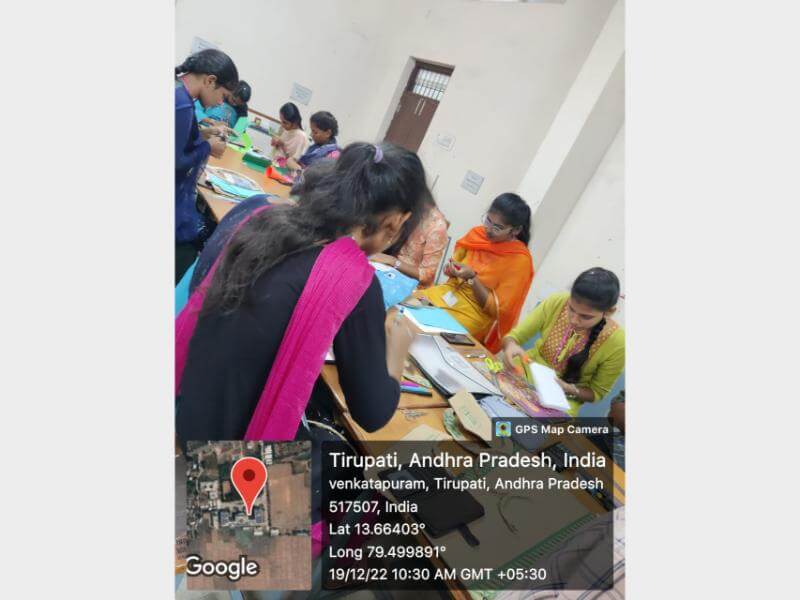
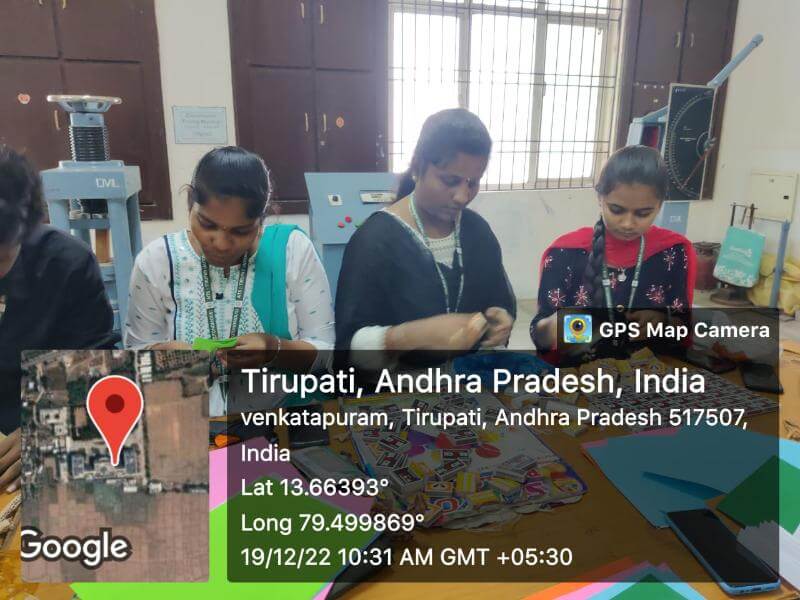
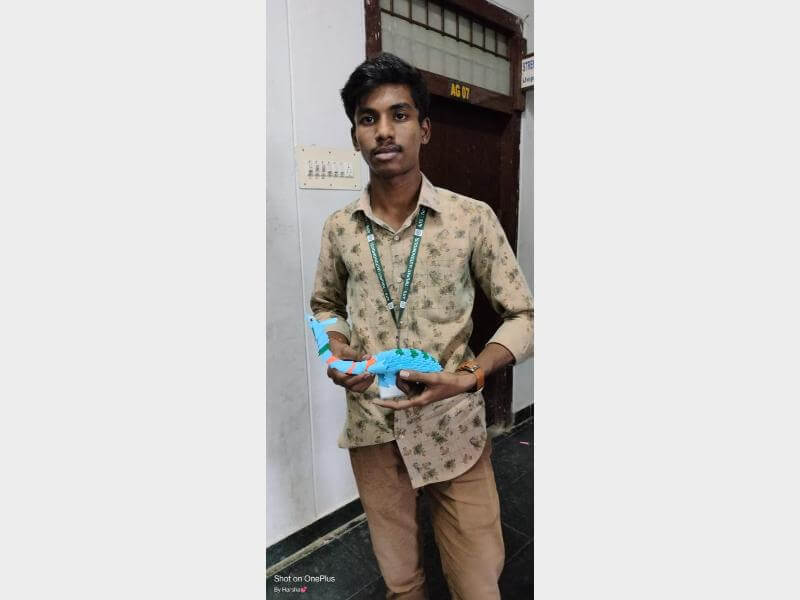
Cultural Club Rhythm Nexus
Ignite 2K25(23-10-2025)
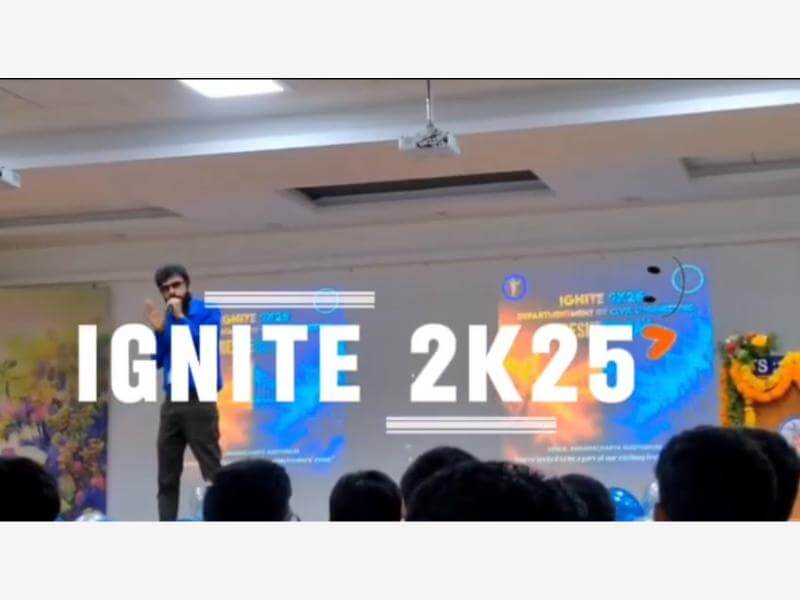
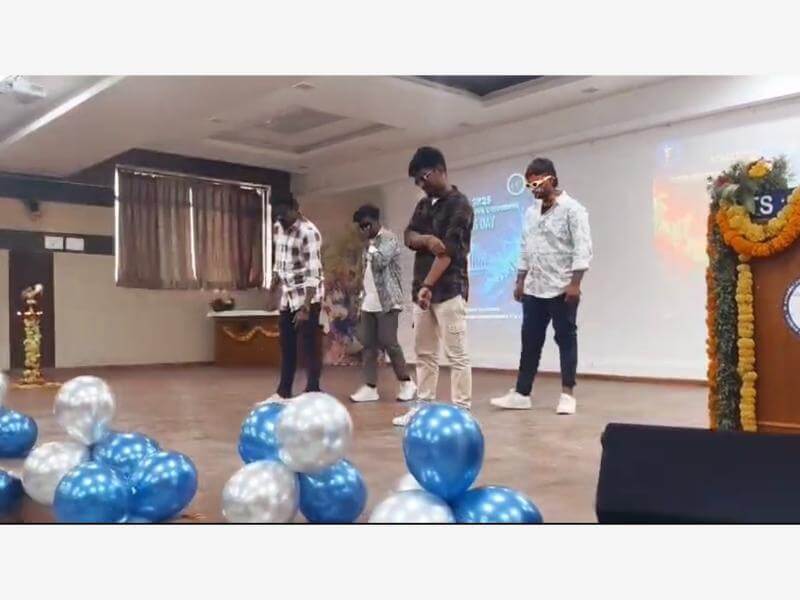
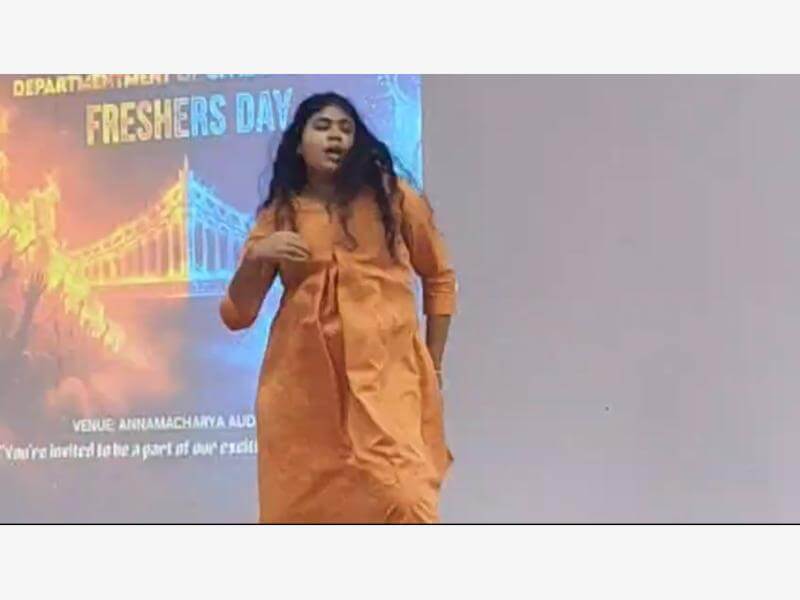

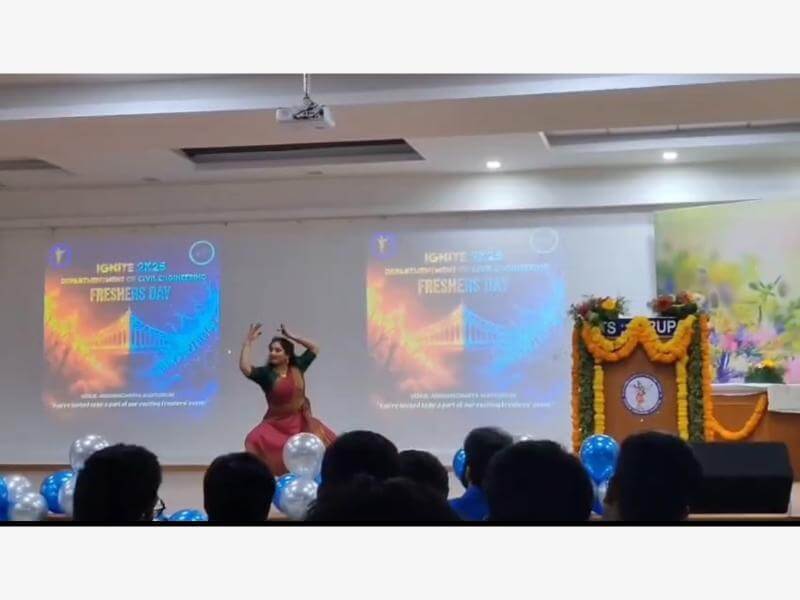

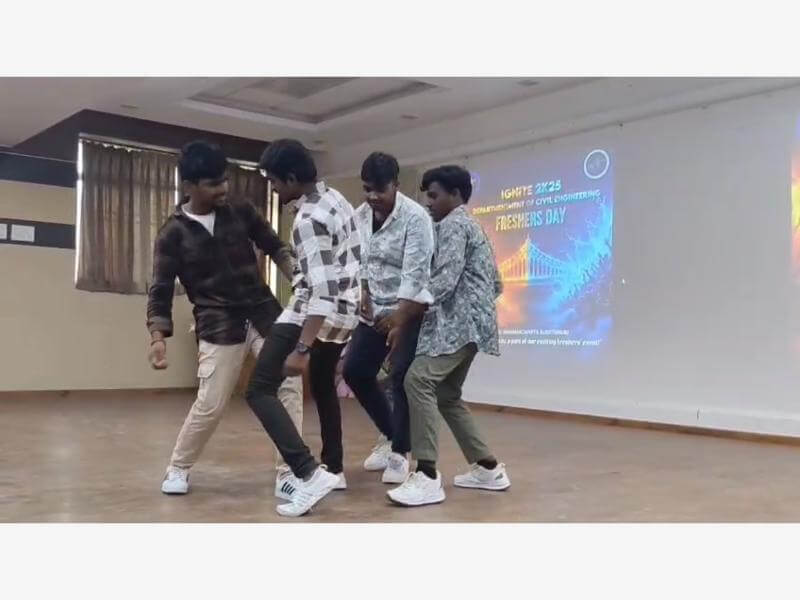
Dhandiya Dance Performance(8-4-2025)

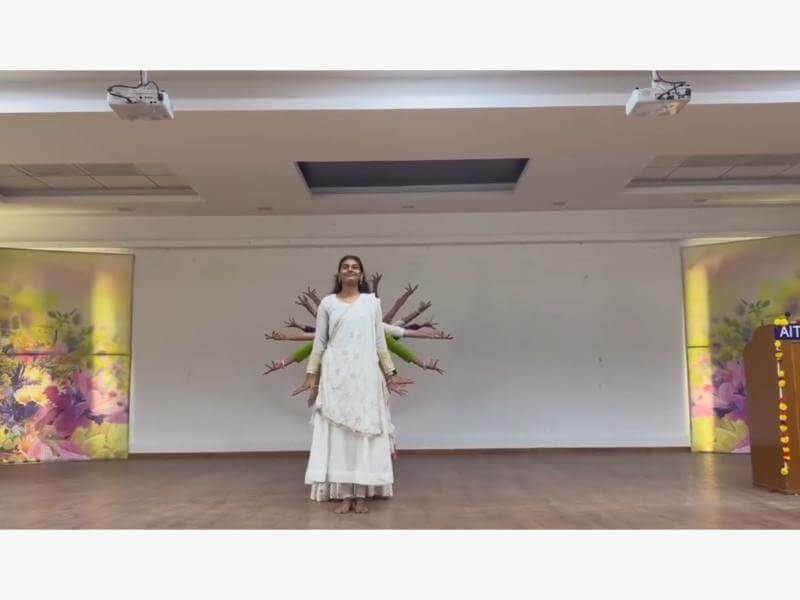




B.Tech II Year I Semester
| S.No. | Name of the Subject | Link for the PDF/PPT |
|---|---|---|
| 1. | Mechanics of Materials (20APC0101) | Mechanics of Materials |
| 2. | Surveying (20APC0102) | Surveying |
| 3. | Fluid Mechanics (20APC0103) | Fluid Mechanics |
| 4. | Probability & Statistics, Partial differential equations (20ABS9913) | Probability & Statistics, Partial differential equations |
| 5. | Managerial Economics and Financial Analysis (20AHSMB01) | Managerial Economics and Financial Analysis |
B.Tech III Year I Semester
| S.No. | Name of the Subject | Pdf/ppt/docs/video link |
|---|---|---|
| 1. | Soil Mechanics (20APC0116) | Soil Mechanics |
| 2. | Building Technology (20APC0117) | Building Technology |
| 3. | Engineering Geology (20APC0118) | Engineering Geology |
| 4. | Sensor Networks (20APE0417 ) | Sensor Networks |
| 5. | Structural Analysis-II (20APE0101) | Structural Analysis-II |
B.Tech IV Year I Semester
| S.No. | Name of the Subject | Pdf/ppt/docs/video link |
|---|---|---|
| 1. | Estimation Costing & Valuation (20APE0107) | Estimation Costing & Valuation |
| 2. | Hydrology and Water Resources Engineering (20APE0110) | Hydrology and Water Resources Engineering |
| 3. | Design and Drawing of steel Structures (20APE0113) | Design and Drawing of steel Structures |
| 4. | Intellectual Property Rights (20AHSMB04) | Intellectual Property Rights |
| 5. | Repair and Rehabilitation of Structures (20APE0118) | Repair and Rehabilitation of Structures |
CONFERENCE
| S.NO | NAME OF THE FACULTY | CONFERENCE NAME | CONFERENCE TYPE | CONFERENCE TIME | TOPIC PRESENTED |
| 1 | A.ANIL | 5th International Conference on Emerging Trends in Engineering & Technology, Science,Management | International | April 2023 | Design and Analysis of PEB Structure Dwaraka Grand Restaurant by using STAAD Pro |
| 2 | Dr K THULASIRAJAN | 5th International Conference on Emerging Trends in Engineering & Technology, Science,Management | International | April 2023 | Experimental investigation of printed circuit boards on mechanical properties of concrete |
| 3 | Dr K THULASIRAJAN | ICON 2021 by VIT | International | November 2021 | Influence of Non-woven fabric as controlled permeable formwork liner in concrete |
| 4 | T SAI KRISHNA | ICON 2021 by VIT | International | November 2021 | Influence of Non-woven fabric as controlled permeable formwork liner in concrete |
| 5 | E. NARASIMHULU | ICON 2021 by VIT | International | November 2021 | Influence of Non-woven fabric as controlled permeable formwork liner in concrete |
| 6 | S. UMASHANKARI | Journal of emerging technologies and innovative research | National | June 2021 | Glass Ceiling: A study on equal opportunities in workplace |
| 7 | P.DHANABAL | National Conference on Innovations & Recent Trends in Civil Engineering | National | June 2021 | STUDY ON PROPERTIES OF CONCRETE WITH PARTIAL REPLACEMENT OF DIFFERENT COMBINATION OF MINERAL ADMIXTURES AS CEMENT |
| 8 | K.S. Sushmitha | National Conference on Innovations & Recent Trends in Civil Engineering | National | June 2021 | STUDY ON PROPERTIES OF CONCRETE WITH PARTIAL REPLACEMENT OF DIFFERENT COMBINATION OF MINERAL ADMIXTURES AS CEMENT |
| 9 | A MADAN MOHAN | Journal of emerging technologies and innovative research | National | April 2021 | Glass Ceiling: A study on equal opportunities in workplace |
| 10 | S. Sameer | TGTS 2021 | International | March 2021 | Transportation Geotechnics Towards Sustainability |
| 11 | P.DHANABAL | Proceedings of First National Conference On Sustainable Innovative Trends In Civil Engineering | National | February 2021 | Study on Properties of Self Compacting Concrete with Limestone Powder as Mineral Admixture |
| 12 | K.S. Sushmitha | Proceedings of First National Conference On Sustainable Innovative Trends In Civil Engineering | National | February 2021 | Study on Properties of Self Compacting Concrete with Limestone Powder as Mineral Admixture |
PAPERS PUBLISHED 2022-2023
| S.NO | NAME OF FACULTY | JOURNAL NAME | YEAR OF PUBLICATION | VOLUME NO ISSUE NO | TITLE OF THE PAPER | WEB LINK |
| 1 | A Anil | International Journal of Scientific Research in Science,Engineering and Technology | April 2023 | Volume: 10 Issue: 02 | Constructed wet land for low-cost waste water treatment | https://www.researchgate.net/publication/370590134_Constructed_Wetland_for_Low-_Cost_Waste_Water_Treatment |
| 2 | A Anil | GIS Science Journal | March 2023 | Volume: 10 Issue: 04 | Analysis and design of PEB structure at dwaraka grand restaurant by using STAAD PRO | https://drive.google.com/file/d/1s1pOLpVyO-uNJkP4RLpe9CXPPLU–dFw/view?pli=1 |
| 3 | A Kalpana | International Journal of Research Publication and Reviews | April 2023 | Volume: 04 Issue: 04 | Experimental investigation on mechanical properties of silica fume blended eco-friendly self curing high strength concrete |
https://ijrpr.com/uploads/V4ISSUE4/IJRPR11406.pdf |
| 4 | B Baby | International Research Journal of Engineering and Technology (IRJET) | March 2023 | Volume: 10 Issue: 03 | A study on durability properties of silica fume blended self curing high strength concrete | https://issuu.com/irjet/docs/irjet-v10i3178 |
| 5 | D Nirosha | International Research Journal of Engineering and Technology (IRJET) | March 2023 | Volume: 10 Issue: 03 | Experimental investigation on durabaility properties of silica fume blended high strength concrete | https://www.irjet.net/archives/V10/i3/IRJET-V10I3200.pdf |
| 6 | E.NARASIMHULU | International Research Journal of Engineering and Technology (IRJET) | August 2022 | Volume: 09 Issue: 08 | Experimental study on industrial waste red mud sludge with M60 grade concrete | https://www.irjet.net/archives/V7/i12/IRJET-V7I1281.pdf |
| 7 | K Harshasri | International Journal of Research Publication and Reviews | April 2023 | Volume: 04 Issue: 04 | Dynamic analysis of G+5 residential building in Zone 4 using ETABS | https://ijrpr.com/uploads/V4ISSUE4/IJRPR11337.pdf |
| 8 | I Vamsikrishna | International Journal of Research Publication and Reviews | April 2023 | Volume: 04 Issue: 04 | Analysis, design, modelling and rendering of G+5 residential building by using STAAD PRO, sketchup and V-Ray | https://ijrpr.com/uploads/V4ISSUE4/IJRPR11417.pdf |
| 9 | Dr J GURU JAWAHAR | Erudite Journal of engineering Technology and Management Sciences | March 2023 | Volume: 03 Issue: 01 | Investigation on mechanical properties of silica fume blended high strength concrete | https://www.ejetms.com/index.php/ejetms/article/view/27 |
| 10 | K Sai Abhinav | International Journal of Research Publication and Reviews | April 2023 | Volume: 04 Issue: 04 | Experimental investigation on self compacting concrete with non destructive techniques | https://ijrpr.com/uploads/V4ISSUE4/IJRPR11375.pdf |
| 11 | k Sumavalli | International Journal of Research Publication and Reviews | April 2023 | Volume: 04 Issue: 04 | Collection and tretement of storm water using drains and sedimentaion tank | https://ijrpr.com/uploads/V4ISSUE4/IJRPR11373.pdf |
| 12 | K Varshasri | International Research Journal of Engineering and Technology (IRJET) | March 2023 | Volume: 10 Issue: 03 | Experimental investination on the properties of recycled coarse aggregate concrete | https://www.irjet.net/archives/V10/i3/IRJET-V10I3169.pdf |
| 13 | M Sri Priya | International Journal of Innovative Research in Science,Engineering and Technology | March 2023 | Volume: 12 Issue: 03 | An experimental investigation on construction of tree bench by using PET bottles | http://www.ijirset.com/upload/2023/march/103_An_NC.pdf |
| 14 | P Harish | International Journal of Research Publication and Reviews | April 2023 | Volume: 04 Issue: 04 | Stabilization of black cotton soil by using fly ash and granite dust | https://ijrpr.com/uploads/V4ISSUE4/IJRPR11450.pdf |
| 15 | P Narendra | International Research Journal of Modernization in Engineering Technology and Science | April 2023 | Volume: 05 Issue: 03 | Effect of low density polypropylene fibre on mechanical properties of M20 grade concrete | https://www.irjmets.com/uploadedfiles/paper//issue_3_march_2023/34970/final/fin_irjmets1679993628.pdf |
| 16 | P Dhanabal | International Journal of Research Publication and Reviews | March 2023 | Volume: 04 Issue: 01 | Experimental investigation on properties of concrete with partial replacement of cement with alccofine | https://ijrpr.com/uploads/V4ISSUE4/IJRPR11437.pdf |
| 17 | S Sameer | International Journal of Research Publication and Reviews | April 2023 | Volume: 04 Issue: 04 | Design of flexible pavement at mangalam to settipalli road | https://ijrpr.com/uploads/V4ISSUE4/IJRPR11311.pdf |
| 18 | T Sai Krishna | International Research Journal of Engineering and Technology (IRJET) | March 2023 | Volume: 10 Issue: 03 | Effect of bio-char on geotechnical properties of red moorum soil | https://www.irjet.net/archives/V10/i4/IRJET-V10I412.pdf |
| 19 | Dr K THULASIRAJAN | International Research Journal of Engineering and Technology (IRJET) | March 2023 | Volume: 10 Issue: 03 | Experimental investigation on E-waste concrete using non woven fabric liner | https://issuu.com/irjet/docs/irjet-v10i3198_1_ |
| 20 | D Nirosha | International Journal of Scientific Research in Science,Engineering and Technology | May 2023 | Volume: 10 Issue: 03 | Investigation on mechanical properties of silica fume blended high strength concrete | https://ijsrset.com/IJSRSET2310328 |
| 21 | A.KALPANA | International Journal of Scientific Research in Science,Engineering and Technology | May 2023 | Volume: 10 Issue: 03 | Investigation on mechanical properties of self curing high strength concrete | https://ijsrset.com/IJSRSET2310329 |
| 22 | Dr K THULASIRAJAN | International Research Journal of Engineering and Technology (IRJET) | March 2023 | Volume: 10 Issue: 03 | Experimental investigation on E-waste concrete using non woven fabric liner | https://issuu.com/irjet/docs/irjet-v10i3198_1_ |
PAPERS PUBLISHED 2021-2022
| S.NO | NAME OF FACULTY | JOURNAL NAME | YEAR OF PUBLICATION | VOL NO,ISSUE NO,PAGES | TITLE OF THE PAPER | WEB LINK |
| 1 | A.ANIL | International Research Journal of Engineering and Technology (IRJET) | August ,2021 | Volume: 08 Issue: 08 | COMPARATIVE STUDY ON COST EFFECTIVE GEOPOLYMER BRICKS USING SAND AND QUARRY DUST | https://www.irjet.net/archives/V8/i8/IRJET-V8I8191.pdf |
| 2 | A.ANIL | International Journal for Scientific Research & Development| | December 2021 | Vol. 9, Issue 8 | An Experimental Study on Fly Ash Based Concrete with Aluminium as Partial Replacement of Cement | http://www.ijsrd.com/articles/IJSRDV9I80108.pdf |
| 3 | Dr J GURU JAWAHAR | International Journal for Scientific Research & Development | December 2021 | 9(4), pp 359-363 | Study on Non-Linear Behaviour of Reinforced Concrete (G+6) Apartment under Repeated Earthquake Model Excitations by Using ETABS and FEM | http://www.ijsrd.com/articles/IJSRDV9I40442.pdf |
| 4 | Dr J GURU JAWAHAR | International Research Journal of Engineering and Technology | December 2021 | 8(6), pp1527-1531 | Effect of Temperature on Strength Properties of Fly ash based Geopolymer Concrete | https://www.irjet.net/archives/V8/i6/IRJET-V8I6277.pdf |
| 5 | Dr J GURU JAWAHAR | International Research Journal of Engineering and Technology | December 2021 | 8(6), pp1719-1722 | Effect of Temperature on Strength Properties of Fly ash and GGBS Blended Geopolymer Concrete using Quarry Dust | https://www.irjet.net/archives/V8/i6/IRJET-V8I6313.pdf |
| 6 | Dr J GURU JAWAHAR | International Research Journal of Engineering and Technology | December 2021 | 8(6), pp2502-2507 | ANALYSIS AND DESIGN OF RESIDENTIAL BUILDING WITH INVERTED V BRACING BY USING ETABS 2015 | https://www.irjet.net/archives/V8/i6/IRJET-V8I6446.pdf |
| 7 | Dr J GURU JAWAHAR | International Research Journal of Engineering and Technology | December 2021 | 8(8), pp1370-1373 | COMPARATIVE STUDY ON COST EFFECTIVE GEOPOLYMER BRICKS USING SAND AND QUARRY DUST | https://www.irjet.net/archives/V8/i8/IRJET-V8I8191.pdf |
| 8 | Dr K THULASIRAJAN | Case Studies in Construction Materials- Science direct | June2022 | Volume: 16. e00838 pages 1-11 | The effect of permeable formwork on durability and corrosion performance of concrete | https://www.sciencedirect.com/science/article/pii/S2214509521003533 |
| 9 | P.DHANABAL | Journal of modern materials | December,2021 | Vol. 8 No. 1 .page 30-39 | Study on Properties of Concrete with Iron Ore Tailing and Glass Waste | https://journals.aijr.org/index.php/jmm/article/view/3723 |
| 10 | P.DHANABAL | International Journal of Research Publication and Reviews | August,2021 | Vol (2) Issue (7). Page 519-527 | Traffic Volume Survey at Salem, Tamilnadu, India | https://www.ijrpr.com/uploads/V2ISSUE7/IJRPR632.pdf |
| 11 | P.DHANABAL | International Journal of Research Publication and Reviews | August,2021 | Vol (2) Issue (7). Page 669-675 | A Complete Survey on Traffic Volume at Tirupati City, Andhra Pradesh, India | https://www.ijrpr.com/uploads/V2ISSUE7/IJRPR654.pdf |
| 12 | P.NARENDRA REDDY | International Journal of Research Publication and Reviews | August,2021 | Vol (2) Issue (7). Page 519-527 | Traffic Volume Survey at Salem, Tamilnadu, India | https://www.ijrpr.com/uploads/V2ISSUE7/IJRPR632.pdf |
| 13 | P. NARENDRA REDDY | International Journal of Research Publication and Reviews | August,2021 | Vol (2) Issue (7). Page 669-675 | A Complete Survey on Traffic Volume at Tirupati City, Andhra Pradesh, India | https://www.ijrpr.com/uploads/V2ISSUE7/IJRPR654.pdf |
| 14 | A. MADAN MOHAN | Journal of emerging technologies and innovative research | March, 2021 | volume 8 issue 3 | Glass ceiling: A equal opportunities on workplace | https://www.jetir.org/view?paper=JETIR2103298 |
| 15 | Dr K THULASIRAJAN | International Journal of Scientific Engineering and Research (IJSER) | July 2021 | Volume 9 Issue 7 | Effect of Controlled Permeable Formwork in Concrete Using Woven and Non-Woven Fabric as CPF Liner | https://www.ijser.in/archives/v9i7/SE21721130828.pdf |
| 16 | P Vishnu Priya | International Journal for Scientific Research & Development | July 2021 | Volume 9, Issue 04 | Analysis & Designing of Five star Hotel building using Etabs | http://ijsrd.com/Article.php?manuscript=IJSRDV9I40523 |
| 17 | P Vishnu Priya | International Journal of Scientific Research in Engineering and Management | June 2021 | Volume 5, Issue 06 | Analysis and Design of Transmission Tower | http://ijsrem.com/download/analysis-and-design-of-transmission-tower/?wpdmdl=6797&masterkey=60d9c4b1f2b4f |
| 18 | B Baby | International Journal for Scientific Research & Development | July 2021 | Volume : 9, Issue : 4 | Analysis & Designing of Five Star Hotel Building by Using E-Tabs | http://ijsrd.com/Article.php?manuscript=IJSRDV9I40523 |
| 19 | M SRI PRIYA | International Journal of Innovative Research in Science,Engineering and Technology | March 2021 | Volume 10, Issue 3 | An Experimental Study on Effect of Acid Attack &Mechanical & Durable Properties on Concrete with Different Admixtures | http://www.ijirset.com/upload/2021/march/21_An_NC.pdf |
| 20 | M SRI PRIYA | International Journal of Innovative Research in Science,Engineering and Technology | July 2021 | Volume 10, Issue 7 | An Experimental Investigation on Construction of Tree Bench by Using Plastic Bottles as Eco Brick | http://www.ijirset.com/upload/2021/july/110_2_An_NC.pdf |
| 21 | P HEMA KUMAR REDDY | International Research Journal of Engineering and Technology (IRJET) | August ,2021 | Volume: 08 Issue: 08 | COMPARATIVE STUDY ON COST EFFECTIVE GEOPOLYMER BRICKS USING SAND AND QUARRY DUST | https://www.irjet.net/archives/V8/i8/IRJET-V8I8191.pdf |
| 22 | K SAI ABHINAV | International Research Journal of Engineering and Technology (IRJET) | June 2021 | Volume: 08 Issue: 06 | Effect of Temperature on Strength Properties of Fly ash and GGBS Blended Geopolymer Concrete using Quarry Dust | https://www.irjet.net/archives/V8/i6/IRJET-V8I6313.pdf |
| 23 | K SAI ABHINAV | International Research Journal of Engineering and Technology (IRJET) | June 2021 | Volume: 08 Issue: 06 | ANALYSIS AND DESIGN OF A COMMERCIAL BUILDING WITH POST-TENSIONING SLAB BY USING ETABS | https://www.irjet.net/archives/V8/i6/IRJET-V8I6303.pdf |
| 24 | K SAI ABHINAV | International Research Journal of Engineering and Technology (IRJET) | June 2021 | Volume: 08 Issue: 06 | ANALYSIS AND DESIGN OF RESIDENTIAL BUILDING WITH X BRACING AND VISCOUS DAMPER BY USING ETABS 2015 | https://www.irjet.net/archives/V8/i6/IRJET-V8I6274.pdf |
| 25 | K SAI ABHINAV | International Research Journal of Engineering and Technology (IRJET) | June 2021 | Volume: 08 Issue: 06 | AN EXPERIMENTAL INVESTIGATION ON COST EFFECTIVE GEOPOLYMER BRICKS | https://www.irjet.net/archives/V8/i6/IRJET-V8I6257.pdf |
| 26 | K SAI ABHINAV | International Journal for Scientific Research & Development | 01-07-2021 | Volume : 9, Issue : 4 | Analysis & Designing of Five Star Hotel Building by Using E-Tabs | http://www.ijsrd.com/articles/IJSRDV9I40523.pdf |
| 27 | K SAI ABHINAV | International Journal for Scientific Research & Development| | 01-11-2021 | Volume : 9, Issue : 8 | An Experimental Study on Fly Ash Based Concrete with Aluminium as Partial Replacement of Cement | http://www.ijsrd.com/articles/IJSRDV9I80108.pdf |
| 28 | P.Vishnu Priya | International Journal for Scientific Research & Development | 01-07-2021 | 9(4), 659-661 | Analysis & Designing of Five Star Hotel building by using E-Tabs | http://www.ijsrd.com/articles/IJSRDV9I40523.pdf |
| 29 | M. SHYAM SUNDAR | International Journal for Scientific Research & Development| | December 2021 | Vol. 9, Issue 8 | An Experimental Study on Fly Ash Based Concrete with Aluminium as Partial Replacement of Cement | http://www.ijsrd.com/articles/IJSRDV9I80108.pdf |
| 30 | B.BABY | International Journal for Scientific Research & Development | 01-07-2021 | 9(4), 659-661 | Analysis & Designing of Five Star Hotel building by using E-Tabs | http://www.ijsrd.com/articles/IJSRDV9I40523.pdf |
| 31 | A. KALPANA | International Journal for Scientific Research & Development | 01-07-2021 | 9(4), 659-661 | Analysis & Designing of Five Star Hotel building by using E-Tabs | http://www.ijsrd.com/articles/IJSRDV9I40523.pdf |
| 32 | Dr. K. Narasimhulu | International Research Journal of Engineering and Technology (IRJET) | June 2021 | Volume: 08 Issue: 06 | ANALYSIS AND DESIGN OF A COMMERCIAL BUILDING WITH POST-TENSIONING SLAB BY USING ETABS | https://www.irjet.net/archives/V8/i6/IRJET-V8I6303.pdf |
PAPERS PUBLISHED 2020-2021
| S.NO | NAME OF FACULTY | JOURNAL NAME | YEAR OF PUBLICATION | VOL NO,ISSUE NO,PAGES | TITLE OF THE PAPER | WEB LINK |
| 1 | A.ANIL | The International journal of analytical and experimental modal analysis | July 2020 | Volume XII, Issue VII | Assessment of Seasonal variation in Groundwater Quality of Palar sub basin, Chittoor district, Andhra Pradesh, India | http://www.ijaema.com/VOLUME-12-ISSUE-7-JULY-2020/ |
| 2 | Dr J GURU JAWAHAR | Mater. Civ. Eng, ASCE | 2020 | 32(5) | Effect of Copper Slag on Micro, Macro, and Flexural Characteristics of Geopolymer Concrete | https://ascelibrary.org/doi/abs/10.1061/%28ASCE%29MT.1943-5533.0003157 |
| 3 | Dr J GURU JAWAHAR | International Journal of Engineering | 2020 | 33(8), 1522-1528 | Durability Performance of Self Compacting Concrete Incorporating Alccofine and Fly Ash | https://www.ije.ir/article_108460.html |
| 4 | Dr J GURU JAWAHAR | Materials Today: Proceedings | 2020 | 33 | Effectiveness of alccofine and fly ash on mechanical properties of ternary blended self compacting concrete | https://www.sciencedirect.com/science/article/pii/S2214785320319325 |
| 5 | Dr J GURU JAWAHAR | Solid State Technology | 2020 | 63(1s) | Mechanical Properties of Fly-Ash and GGBS based Geo-Polymer Concrete Incorporate Black Marble Waste Aggregate | https://www.solidstatetechnology.us/index.php/JSST/article/view/3002 |
| 6 | Dr J GURU JAWAHAR | Pollack Periodica An International Journal for Engineering and Information Sciences | 2021 Feb | 16(1), 19-24 | Moment carrying capacity of RSCC beams incorporating alccofine and fly ash | https://akjournals.com/view/journals/606/16/1/article-p19.xml |
| 7 | Dr J GURU JAWAHAR | Journal of Green Engineering | 2021 | 11(1) pp 841-855 | Flexural Behaviour of Fly Ash and GGBS based Geopolymer Concrete Beam Using Black Marble Waste Aggregate | https://www.riverpublishers.com/journal.php?j=JGE/3/3/jdes |
| 8 | Dr J GURU JAWAHAR | International Research Journal of Engineering and Technology | 2021 | 8(4), pp 2439-2443 | Flexural Behavior of M30 Grade of Self Compacting Concrete Beams Blended with Alccofine and Fly ash | https://www.irjet.net/archives/V8/i4/IRJET-V8I4454.pdf |
| 9 | Dr J GURU JAWAHAR | International Research Journal of Engineering and Technology | 2021 | 8(6), pp 1420-1423 | AN EXPERIMENTAL INVESTIGATION ON COST EFFECTIVE GEOPOLYMER BRICKS | https://www.irjet.net/archives/V8/i6/IRJET-V8I6257.pdf |
| 10 | Dr K THULASIRAJAN | Silicon- Springer | March 2021 | Characterization of Fly Ash Sources in the Synthesis of Geopolymer | https://link.springer.com/article/10.1007/s12633-021-01048-w | |
| 11 | Dr K THULASIRAJAN | International Research Journal of Engineering and Technology | Jun 2021 | Volume: 08 Issue: 04, Pages 1-6 | ANALYSIS AND DESIGN OF RESIDENTIAL BUILDING WITH X BRACING AND VISCOUS DAMPER BY USING ETABS 2015 | https://www.irjet.net/archives/V8/i6/IRJET-V8I6274.pdf |
| 12 | Dr K THULASIRAJAN | Asian Journal of Civil Engineering-Springer | July 2020 | 21, pages1343–1354 | Development and testing of damage controllable precast beam–column connection under reverse cyclic loading | https://link.springer.com/article/10.1007/s42107-020-00281-9 |
| 13 | A MADAN MOHAN | Springer | April 2021 | volume 117, Pages 175-189 | August, 2019 Landslide Events in Kinnaur, H.P.—An Assessment of Earthquake and Landslide Consequences Using Satellite Data | https://link.springer.com/chapter/10.1007/978-981-15-9984-2_16 |
| 14 | A MADAN MOHAN | Journal of emerging technologies and innovative research | April 2021 | volume 8 issue 3 | Glass Ceiling: A study on equal opportunities in workplace | https://www.jetir.org/papers/JETIR2103298.pdf |
| 15 | P.DHANABAL | Revista Ingeniería de Construcción | April,2021 | Volume 36, No 1, page 48-58 | Study on Properties of Concrete with Electronic Waste | https://www.ricuc.cl/index.php/ric/article/view/1174 |
| 16 | P.NARENDRA REDDY | International Research Journal of Engineering and Technology | June 2021 | Volume: 08 Issue: 06 | Analysis And Design Of Residential Building With Inverted V Bracing By Using Etabs 2015 | https://www.irjet.net/archives/V8/i6/IRJET-V8I6446.pdf |
| 17 | P.NARENDRA REDDY | Revista Ingeniería de Construcción | April,2021 | Volume 36, No 1, page 48-58 | Study on Properties of Concrete with Electronic Waste | https://www.ricuc.cl/index.php/ric/article/view/1174 |
| 18 | P.HEMA KUMAR REDDY | International Research Journal of Engineering and Technology (IRJET) | Jun 2021 | Volume: 08 Issue: 06 PP No. 1420-1423 | AN EXPERIMENTAL INVESTIGATION ON COST EFFECTIVE GEOPOLYMER BRICKS | https://www.irjet.net/archives/V8/i6/IRJET-V8I6257.pdf |
| 19 | A.Kalpana | International Research journal of engineering of technology | July 2019 | Volume 6, issue 7 | Optimization of Aggregate Gradation and its effects on properties of normal strength concrete(M20) | https://www.irjet.net/archives/V6/i7/IRJET-V6I7502.pdf |
| 20 | P Vishnu Priya | International Research Journal of Engineering and Technology | April 2021 | Volume 08, Issue 04, Pg 3023-3027 | Analysis of Vertical Irregularity Building with Shear wall using Etabs | https://www.irjet.net/volume8-issue4 |
| 21 | E NARASIMHULU | International Research Journal of Engineering and Technology | December 2020 | Volume07, Issue12 | Experimental Investigation on cement Replace with Red mud sludge of M60 grade concrete | https://www.irjet.net/volume7-issue12 |
| 22 | E NARASIMHULU | International Research Journal of Engineering and Technology | April 2021 | Volume 08, Issue 04. | Design of Function hall with Flat slabs | https://www.irjet.net/archives/V8/i4/IRJET-V8I4453.pdf |
| 23 | E NARASIMHULU | International Journal for Scientific Research & Development | June 2021 | Volume 9, Issue 4 | Study on Non-linear behaviour of Reinforced concrete(G+6) Apartment under Repeated Earthquake Model Excitations by using ETABS and FEM | http://ijsrd.com/index.php?p=Archive&v=9&i=4&start=50 |
| 24 | M SRI PRIYA | International Journal of Innovative Research in Science,Engineering and Technology | July 2020 | Volume 9, Issue 7 | An Experimental Study on Mechanical Properties of Concrete by using Polypropylene Fibers | http://www.ijirset.com/upload/2020/july/21_An_.PDF |
| 25 | M SRI PRIYA | International Journal of Innovative Research in Science,Engineering and Technology | July 2020 | Volume 9, Issue 8 | An Experimental Investigation on Mechanical Properties of High Strength Fiber Reinforced Concrete | http://www.ijirset.com/upload/2020/july/30_An.PDF |
| 26 | K SAI ABHINAV | International Research Journal of Engineering and Technology (IRJET) | Sep 2020 | Volume: 07 Issue: 09 | CASE STUDY ON A EXISTING STRUCTURE BY USING NDT TECHNIQUES | https://www.irjet.net/archives/V7/i9/IRJET-V7I9237.pdf |
| 27 | K SAI ABHINAV | International Research Journal of Engineering and Technology (IRJET) | Apr 2021 | Volume: 08 Issue: 04 | “Optimization of Shear wall and study on Non-Linear behaviour of Reinforced Concrete Residential Building using ETABS” | https://www.irjet.net/archives/V8/i4/IRJET-V8I467.pdf |
| 28 | K SAI ABHINAV | International Research Journal of Engineering and Technology (IRJET) | Apr 2021 | Volume: 08 Issue: 04 | “Flexural Behavior of M30 Grade of Self Compacting Concrete Beams Blended with Alccofine and Fly ash” | https://www.irjet.net/archives/V8/i4/IRJET-V8I4454.pdf |
| 29 | K SAI ABHINAV | International Research Journal of Engineering and Technology (IRJET) | Apr 2021 | Volume: 08 Issue: 04 | DESIGN OF FUNCTIONAL HALL WITH FLATS SLABS | https://www.irjet.net/archives/V8/i4/IRJET-V8I4453.pdf |
| 30 | S Sameer | International Research Journal of Engineering and Technology (IRJET) | June 2021 | Volume: 08 Issue: 06 | Analysis And Design Of Residential Building With Inverted V Bracing By Using Etabs 2015 | https://www.irjet.net/archives/V8/i6/IRJET-V8I6446.pdf |
| 31 | S. UMASHANKARI | Journal of emerging technologies and innovative research | June 2021 | volume 8 issue 3 | Glass Ceiling: A study on equal opportunities in workplace | https://www.jetir.org/papers/JETIR2103298.pdf |
| 32 | T SAI KRISHNA | Materials Today: Proceedings (ELSEVIER) | March 2021 | Delineation of ground water potential zones in semi-arid region(Anantapuram) using Geospatial techniques | https://doi.org/10.1016/j.matpr.2021.02.239 | |
| 33 | P.Vishnu Priya | International Research Journal of Engineering and Technology | March 2021 | 8(4),3023-3027 | Analysis of Vertical Irregularities with Shear wall using Etabs | https://www.irjet.net/archives/V8/i4/IRJET-V8I4561.pdf |
| 34 | P.Vishnu Priya | International Journal of Scientific Research in Engineering and Management | March 2021 | 5(6),1-4 | Analysis and Design of Transmission Towers | http://ijsrem.com/download/analysis-and-design-of-transmission-tower/?wpdmdl=6797&masterkey=60d9c4b1f2b4f |
| 35 | D. NIROSHA | International Research Journal of Engineering and Technology | Apr 2021 | 8(4), 361-366 | Optimization of Shear wall and study on Non-Linear behaviour of Reinforced Concrete Residential Building using ETABS | https://www.irjet.net/archives/V8/i4/IRJET-V8I467.pdf |
| 36 | D. NIROSHA | International Research Journal of Engineering and Technology | June 2021 | 8(6), 1527-1531 | Effect of Temperature on strength properties of fly ash based Geopolymer Concrete | https://www.irjet.net/archives/V8/i6/IRJET-V8I6277.pdf |
| 37 | A. KALPANA | International Journal for Scientific Research & Development | June 2021 | Volume 9, Issue 2, ISSN-2321-0613 | ANALYSIS AND DESIGN OF HIGH RISE RESIDENTIAL BUILDING BY USING ETABS | http://www.ijsrd.com/articles/IJSRDV9I20144.pdf |
| 38 | A. KALPANA | International Research Journal of Engineering and Technology | Jun 2021 | Volume: 08 Issue: 06 PP No. 1420-1423 | AN EXPERIMENTAL INVESTIGATION ON COST EFFECTIVE GEOPOLYMER BRICKS | https://www.irjet.net/archives/V8/i6/IRJET-V8I6257.pdf |
| 39 | A. KALPANA | International Research Journal of Engineering and Technology | Jun 2021 | Volume: 08 Issue: 06 PP No. 1510-1515 | ANALYSIS AND DESIGN OF RESIDENTIAL BUILDING WITH X BRACING AND VISCOUS DAMPER BY USING ETABS 2015 | https://www.irjet.net/archives/V8/i6/IRJET-V8I6274.pdf |
| 40 | A. KALPANA | International Research Journal of Engineering and Technology | Jun 2021 | Volume: 08 Issue: 06 PP No.1663-1668 | ANALYSIS AND DESIGN OF A COMMERCIAL BUILDING WITH POST-TENSIONING SLAB BY USING ETABS | https://www.irjet.net/archives/V8/i6/IRJET-V8I6303.pdf |
PAPERS PUBLISHED 2019-2020
| S.NO | NAME OF FACULTY | JOURNAL NAME | YEAR OF PUBLICATION | VOL NO,ISSUE NO,PAGES | TITLE OF THE PAPER | WEB LINK |
| 1 | A.ANIL | International Journal of Technical Innovation in Modern Engineering & Science (IJTIMES) | 2019,May | Volume 5, Issue 05 | WATER QUALITY ASSESSMENT IN TERMS OF WATER QUALITY INDEX IN SATHYAVEDU AREA, CHITTOOR DISTRICT | https://www.ijtimes.com/IJTIMES/index.php/ijtimes/article/view/2182 |
| 2 | Dr J GURU JAWAHAR | Innovative Infrastructure Solutions | 2020 | 5(80), 1-11 | Effect of alccofne and fy ash on analytical methods of self‑compacting concrete | https://www.springerprofessional.de/en/effect-of-alccofine-and-fly-ash-on-analytical-methods-of-self-co/18153300 |
| 3 | Dr K THULASIRAJAN | Structures- Science direct | June 2020 | Volume 25, Pages 161-172 | Effect of stiffeners in cleat angle based precast beam-column connections under reverse cyclic loading | https://www.sciencedirect.com/science/article/abs/pii/S2352012420300953 |
| 4 | Dr K THULASIRAJAN | Journal of Structural Engineering-SERC | february – March 2020 | Vol. 46, no. 6,pp. 485-490 | Experimental investigation of cleat angle based exterior precast beam-column connections using internal dissipaters under reverse cyclic loading | Monthly hardcopy issue |
| 5 | B Baby | International Journal for Scientific Research & Development | June 2019 | Vol. 7, Issue 06 | The Effects of Magnetics Water and Properties of Concrete with Flyash | http://ijsrd.com/Article.php?manuscript=IJSRDV7I60051 |
| 6 | M SRI PRIYA | International Journal of Innovative Research in Science,Engineering and Technology | December 2019 | Vol. 8, Issue 12 | An Experimental Investigation on Concrete Using Fly ash as Partial Replacement to Cement and Steel Fibers as Admixture | http://www.ijirset.com/upload/2019/december/33_6_An.PDF |
| 7 | M SRI PRIYA | International Journal of Innovative Research in Science,Engineering and Technology | December 2019 | Vol. 8, Issue 13 | Effect of Fly Ash and Quarry Dust on Properties of Concrete | http://www.ijirset.com/upload/2015/september/47_Effect.pdf |
| 8 | K SAI ABHINAV | International Journal of Recent Technology and Engineering (IJRTE) | January 2020 | ISSN: 2277-3878, Volume-8 Issue-5 | Stabilization of Leachate Effected Laterite Soil using Bio-Enzyme (Terrazyme) | https://www.ijrte.org/wp-content/uploads/papers/v8i5/E6653018520.pdf |
| 9 | S Sameer | International Journal of Recent Technology and Engineering (IJRTE) | January 2020 | ISSN: 2277-3878, Volume-8 Issue-5 | Stabilization of Leachate Effected Laterite Soil using Bio-Enzyme (Terrazyme) | https://www.ijrte.org/wp-content/uploads/papers/v8i5/E6653018520.pdf |
| 10 | S. UMASHANKARI | International Research journal of engineering and Technology(IRJET) | January 2020 | volume 7 issue 12 | Experimental investigation of cement replacement with red mud sludge of M60 Grade Concrete | https://www.irjet.net/archives/V7/i12/IRJET-V7I1281.pdf |
| 11 | T SAI KRISHNA | International Journal of Recent Technology and Engineering (IJRTE) | January 2020 | ISSN: 2277-3878, Volume-8 Issue-5 | Stabilization of Leachate Effected Laterite Soil using Bio-Enzyme (Terrazyme) | https://www.ijrte.org/wp-content/uploads/papers/v8i5/E6653018520.pdf |
| 12 | T SAI KRISHNA | International Research journal of engineering and Technology(IRJET) | January 2020 | volume 7 issue 12 | Experimental investigation of cement replacement with red mud sludge of M60 Grade Concrete | https://www.irjet.net/archives/V7/i12/IRJET-V7I1281.pdf |
| 13 | M. SHYAM SUNDAR | International Journal for Scientific Research & Development | January 2020 | 7(6), pp 424-429 | A Study on Seismic Response of Multi-storeyed Buildings with Shear Walls and Fluid Viscous Dampers using ETABS | http://www.ijsrd.com/articles/IJSRDV7I60250.pdf |
PAPERS PUBLISHED 2018-2019
| S.NO | NAME OF FACULTY | JOURNAL NAME | YEAR OF PUBLICATION | VOL NO,ISSUE NO,PAGES | TITLE OF THE PAPER | WEB LINK |
| 1 | A.ANIL | International Journal of Innovative Technology and Exploring Engineering (IJITEE) | April 2019 | ISSN: 2278-3075, Volume-8, Issue-6S4, | Assessment of Physico Chemical Parameters of Groundwater Quality Index of Palar Sub Basin using Remote Sensing and GIS | https://www.ijitee.org/wp-content/uploads/papers/v8i6s4/F10630486S419.pdf |
| 2 | A.ANIL | International Journal of Technical Innovation in Modern Engineering & Science (IJTIMES) | 2019,May | Volume 5, Issue 05 | WATER QUALITY ASSESSMENT IN TERMS OF WATER QUALITY INDEX IN SATHYAVEDU AREA, CHITTOOR DISTRICT | https://www.ijtimes.com/IJTIMES/index.php/ijtimes/article/view/2182 |
| 3 | Dr J GURU JAWAHAR | Advances in Concrete Construction | 2019 | 1. 8(1), pp 33-37. | Flexural studies on reinforced geopolymer concrete beams under pure bending | http://www.techno-press.org/content/?page=article&journal=acc&volume=8&num=1&ordernum=4 |
| 4 | Dr J GURU JAWAHAR | International Journal of Recent Technology and Engineering | 2019 Jan | 7(68), 462-466 | Investigation on ternary blended self compacting concrete using flyash and alccofine | https://www.ijrte.org/wp-content/uploads/papers/v7i5s2/ES2081017519.pdf |
| 5 | Dr J GURU JAWAHAR | International Journal of Engineering & Technology | 2018 | 7, pp 1233-1236 | Experimental Investigation on Fly Ash and GGBS Based Geopolymer Concrete Incorporate Black Marble Waste Aggregate | https://www.sciencepubco.com/index.php/ijet/article/view/17844 |
| 6 | Dr K THULASIRAJAN | Journal of Structural Engineering-SERC | april – may 2019 | Vol. 46, no. 1,pp. 17-28 | Performance of exterior precast beam column connection under seismic effects – a review | Monthly hard copy |
| 7 | P.DHANABAL | International Journal for Scientific Research and Development | May,2018 | Volume : 5, Issue : 12, Page(s): 520-522 | Experimental Investigation on Fresh and Hardened Properties of Concrete with GGBS and Pond Ash | http://ijsrd.com/Article.php?manuscript=IJSRDV5I120362 |
| 8 | M SRI PRIYA | International Journal of Innovative Research in Science,Engineering and Technology | Feb,2018 | Vol. 7, Issue 2 | An Investigation on Structural Stability for Aerospace Structures | http://www.ijirset.com/upload/2018/february/30_9_Final%20manuscript%20with%20paper%20ID%20%20IJ70202046.pdf |
| 9 | M SRI PRIYA | International Journal of Innovative Research in Science,Engineering and Technology | April,2018 | Vol. 7, Issue 4 | Design of an Auditorium Building | http://www.ijirset.com/upload/2018/april/52_7_Design.pdf |
| 10 | K SAI ABHINAV | International Journal of Innovative Technology and Exploring Engineering (IJITEE) | April 2019 | ISSN: 2278-3075, Volume-8, Issue-6S4 | Research on Impact Resistance of Fibre Reinforced Concrete | https://www.ijitee.org/wp-content/uploads/papers/v8i6s4/F10600486S419.pdf |
| 11 | S Sameer | International Journal of Innovative Technology and Exploring Engineering (IJITEE) | April 2019 | ISSN: 2278-3075, Volume-8, Issue-6S4 | Mechanical properties of Recycled coarse aggregate concrete by partial replacement of cement with GGBS and Fly Ash | https://www.ijitee.org/wp-content/uploads/papers/v8i6s4/F10610486S419.pdf |
| 12 | P HARISH | elsevier.com | Feb 2019 | ArticleData sets on spatial analysis of hydrogeochemistry of Gudur area, SPSR Nellore district by using inverse distance weighted method in ArcGIS 10 | https://www.researchgate.net/deref/https%3A%2F%2Fdoi.org%2F10.1016%2Fj.dib.2019.01.030 | |
| 13 | Dr. K. Narasimhulu | International Journal of Technical Innovation in Modern Engineering & Science (IJTIMES) | Feb 2019 | 4(8), pp-16-28 | 2-D stress analysis of koyna dam by finite element method | https://www.researchgate.net/deref/https%3A%2F%2Fdoi.org%2F10.1016%2Fj.dib.2019.01.031 |
| 14 | Dr. K. Narasimhulu | First International Conference on Emerging Trendes in Civil Engineering | Feb 2019 | Optimization of Aggregate Gradation and its effects on properties of Normal Concrete (M20) | http://www.ijsrd.com/articles/IJSRDV6I21855.pdf | |
| 15 | Dr. K. Narasimhulu | elsevier.com | Feb 2019 | ArticleData sets on spatial analysis of hydrogeochemistry of Gudur area, SPSR Nellore district by using inverse distance weighted method in ArcGIS 10 | https://www.researchgate.net/deref/https%3A%2F%2Fdoi.org%2F10.1016%2Fj.dib.2019.01.030 | |
| 16 | Dr. K. Narasimhulu | Data in Brief | Feb 2019 | 20, pp-1984–1991 | Data sets on delineation of groundwater potential zones identified by geospatial tool in Gudur area, Nellore district, Andhra Pradesh, India | http://dx.doi.org/10.1016/j.dib.2018.09.054 |
| 17 | Dr. K. Narasimhulu | 4th International Conference on Recent Challenges in Engineering and Technology | Jan 31st – Feb 1st | Efficiency of Natural Zeolites in concrete | https://www.ijitee.org/wp-content/uploads/papers/v8i6s4/F10620486S419.pdf | |
| 18 | G.Veera Swamy | elsevier.com | Feb 2019 | ArticleData sets on spatial analysis of hydrogeochemistry of Gudur area, SPSR Nellore district by using inverse distance weighted method in ArcGIS 10 | https://www.researchgate.net/deref/https%3A%2F%2Fdoi.org%2F10.1016%2Fj.dib.2019.01.030 | |
| 19 | G.Veera Swamy | Data in Brief | Feb 2019 | 20, pp-1984–1991 | Data sets on delineation of groundwater potential zones identified by geospatial tool in Gudur area, Nellore district, Andhra Pradesh, India | http://dx.doi.org/10.1016/j.dib.2018.09.054 |
| 20 | Yarava Vineela | International Journal for Scientific Research & Development | 2018 | 6(5), pp-511-513 | Effect of Magnetized Water on the Properties of Concrete | http://www.ijsrd.com/articles/IJSRDV6I50296.pdf |
| 21 | G.Madhusudhan | International Journal of Technical Innovation in Modern Engineering & Science (IJTIMES) | 2018 | 4(8), pp-16-28 | 2-D stress analysis of koyna dam by finite element method | https://www.researchgate.net/deref/https%3A%2F%2Fdoi.org%2F10.1016%2Fj.dib.2019.01.031 |
| 22 | S.R. Sraddha | International Journal for Scientific Research & Development | 2018 | 6(5), pp-511-513 | Effect of Magnetized Water on the Properties of Concrete | http://www.ijsrd.com/articles/IJSRDV6I50296.pdf |
| 23 | Aalla Vinodh Kumar | International Journal of Technical Innovation in Modern Engineering & Science (IJTIMES) | 2018 | 4(8), pp-16-28 | 2-D stress analysis of koyna dam by finite element method | https://www.researchgate.net/deref/https%3A%2F%2Fdoi.org%2F10.1016%2Fj.dib.2019.01.031 |
| 24 | C. Sreenivasulu | Asian Journal of Civil Engineering, Springer | 2018 | Evolution of 112-day drying shrinkage equation of fly ash blended self compacting concrete | https://doi.org/10.1007/s42107-018-0054-z |
PAPERS PUBLISHED 2017-2018
| S.NO | NAME OF FACULTY | JOURNAL NAME | YEAR OF PUBLICATION | VOL NO,ISSUE NO,PAGES | TITLE OF THE PAPER | WEB LINK |
| 1 | A.ANIL | International Journal of Technical Innovation in Modern Engineering & Science (IJTIMES) | 2018,August | (4), 11, pp-247-253 | Logarithmic Method Of Groundwater Quality Index In Palar Basin At Chittoor District, Andhra Pradesh | https://www.ijtimes.com/IJTIMES/index.php/ijtimes/article/view/260 |
| 2 | P.DHANABAL | International Journal for Scientific Research and Development | 2017,May | 5.2, 1171-1173. | Experimental Investigation on Mechanical Properties of Concrete with Fly Ash Aggregate | http://ijsrd.com/Article.php?manuscript=IJSRDV5I21117 |
| 3 | E NARASIMHULU | International Journal for Research & Development in Technology | Dec, 2017 | Volume 7 Issue -5 | Study on the stress strain behaviour of high strength glass fibre Reinforced self compacting concrete Under axial compression with & without confinement | http://ijsrd.com/Article.php?manuscript=IJSRDV8I40567 |
| 4 | Dr K THULASIRAJAN | Electronic Journal of Structural Engineering | June 2018 | volume 18 Issue 2 pp 58-66 | Experimental Investigation of Exterior Mechanbical Precast Beam Column Connections using Internal Dissipators under Seismic Loading | https://ejsei.com/EJSE/article/view/264 |
| 5 | M SRI PRIYA | International Journal of Soft Computing and Engineering | 2017,July | Volume 7 Issue No.8 | Comparative study of Flat slabs and conventional RC slabs | https://scholar.google.com/citations?view_op=view_citation&hl=en&user=Dt0ow9sAAAAJ&citation_for_view=Dt0ow9sAAAAJ:u5HHmVD_uO8C |
| 6 | M SRI PRIYA | International Journal of Soft Computing and Engineering | 2017,July | Volume 7 Issue No.9 | An investigation in Non Destructive Testing using Drones on existing buildings | https://scholar.google.com/citations?view_op=view_citation&hl=en&user=Dt0ow9sAAAAJ&citation_for_view=Dt0ow9sAAAAJ:u-x6o8ySG0sC |
| 7 | M SRI PRIYA | International Journal of Soft Computing and Engineering | 2017,June | Volume 7 Issue No.8 | New Roller Barrier system for safety management and efficiency on Highways | https://ijesc.org/upload/27131e2dc0173fb1220650b2b1ee7a69.New%20Roller%20Barrier%20System%20for%20Safety%20Management%20and%20Efficiency%20on%20Highways.pdf |
| 8 | Dr J GURU JAWAHAR | International Journal of Civil Engineering and Technology | 2017 | 8(2), pp 182-189 | Study of macro level properties of scc using silica fume and fly ash by using robosand | https://www.academia.edu/33090757/STUDY_OF_MACRO_LEVEL_PROPERTIES_OF_SCC_USING_SILICA_FUME_AND_FLY_ASH_BY_USING_ROBOSAND |
| 9 | Dr J GURU JAWAHAR | Indian Concrete Journal | 2017 | 92(1), pp 42-48 | Effect of artificial sand on fresh properties of self compacting geopolymer concrete | https://www.ijtimes.com/IJTIMES/index.php/ijtimes/article/view/988 |
| 10 | Dr J GURU JAWAHAR | Case Studies in Construction Materials | 2017 | 8, pp 172-192 | Study and predicting the stress-strain characteristics of geopolymer concrete under compression | https://www.sciencedirect.com/science/article/pii/S2214509517301912 |
| 11 | Dr J GURU JAWAHAR | Asian Journal of Civil Engineering, Springer | 2017 | 1(2), pp 1-13 | Predicting compressive strength of geopolymer concrete using NDT techniques | https://link.springer.com/article/10.1007/s42107-018-0036-1 |
| 12 | Dr J GURU JAWAHAR | Asian Journal of Civil Engineering, Springer | 2017 | 1(2), pp 1-13 | Evolution of 112-day drying shrinkage equation of fly ash blended self compacting concrete | https://link.springer.com/article/10.1007/s42107-018-0054-z |
| 13 | Dr J GURU JAWAHAR | International Journal of Research and Scientific Innovation | 2017 | 4(3), pp 91-95 | Flexural studies on fly ash and GGBS blended reinforced geopolymer concrete beams | https://www.researchgate.net/publication/319314468_Flexural_Studies_on_Fly_Ash_and_GGBS_Blended_Reinforced_Geopolymer_Concrete_Beams |
| 14 | Dr J GURU JAWAHAR | International Journal of Scientific Research & Development | 2017 | 5(6), pp 361-364 | Analytical Study on Fly Ash and GGBS Blended Reinforced Geopolymer Concrete Beams by using ANSYS | http://ijsrd.com/Article.php?manuscript=IJSRDV5I60268 |
| 15 | Dr J GURU JAWAHAR | International Journal of Scientific Research & Development | 2017 | 5(6), pp 376-380 | Structural Investigations on Cost Effective Roofing Technology | http://www.ijsrd.com/articles/IJSRDV5I60206.pdf |
| 16 | Dr J GURU JAWAHAR | International Journal of Technical Innovation in Modern Engineering & Science | 2017 | 3(8), pp 24-32 | Effect of Artificial Sand on Mechanical Properties of Self Compacting Geopolymer Concrete | https://www.ijtimes.com/IJTIMES/index.php/ijtimes/article/view/988 |
| 17 | Dr J GURU JAWAHAR | International Journal of Innovative Research in Science, Engineering and Technology | 2017 | 6(2), pp 33-42 | Studies on Mechanical and Durability Properties of Geo Polymer Concrete with Fly ash and Slag for Different Molarities | https://www.researchgate.net/publication/311321065_Studies_on_Mechanical_and_Durability_Properties_of_Geo_Polymer_Concrete_with_Fly_ash_and_Slag_for_Different_Molarities |
| 18 | Dr J GURU JAWAHAR | International Journal of Scientific Research & Development | 2017 | 5(3), pp 1143-1145 | Effect of Molarity on Strength Properties of Flyash and GGBS Blended Geopolymer Concrete | http://ijsrd.com/Article.php?manuscript=IJSRDV5I31047 |
| 19 | Dr J GURU JAWAHAR | International Journal of Scientific Research & Development | 2017 | 5(7), pp 830-833 | Finite Element Analysis of Geopolymer Concrete Incorporating Copper Slag as Fine Aggregate | http://ijsrd.com/Article.php?manuscript=IJSRDV5I70473 |
| 20 | Dr J GURU JAWAHAR | International Journal of Scientific Research & Development | 2017 | 5(6), pp 900-902 | Mechanical Properties of Geopolymer Concrete Incorporating Copper Slag as Fine Aggregate | http://ijsrd.com/Article.php?manuscript=IJSRDV5I60443 |
| 21 | Dr J GURU JAWAHAR | International Journal of Research and Scientific Innovation | 2017 | 5(3), pp 187-190 | Preliminary Study on Geopolymer Concrete Using Copper Slag and Vermiculite | http://ijsrd.com/Article.php?manuscript=IJSRDV5I60443 |
| 22 | Dr J GURU JAWAHAR | International Journal of Technical Innovation in Modern Engineering & Science | 2017 | 4(5), pp 913-920 | Flexural properties of M 25 grade self compacting concrete using manufactured and recycled coarse aggregate | https://www.ijtimes.com/IJTIMES/index.php/ijtimes/article/view/1562 |
| 23 | Dr J GURU JAWAHAR | International Journal of Scientific Research & Development | 2017 | 6(2), pp 96-99 ISSN 2321-0613 | An Experimental Study on Flexural Behaviour of Geopolymer Concrete Beams | http://ijsrd.com/Article.php?manuscript=IJSRDV6I20182 |
| 24 | Dr J GURU JAWAHAR | International Journal of Scientific Research & Development | 2017 | 6(2), pp 1968-1971. ISSN 2321-0613. | A Study of Geopolymer Concrete Slabs with Silica Sand as Partial Replacement of Natural Sand | http://ijsrd.com/Article.php?manuscript=IJSRDV6I21272 |
| 25 | Dr J GURU JAWAHAR | International Journal of Scientific Research & Development | 2017 | 6(3), pp 35-38. ISSN 2321-0613 | An Experimental Studies on GPC at Ambient Curing Temperature | http://ijsrd.com/Article.php?manuscript=IJSRDV6I30013 |
| 26 | Dr J GURU JAWAHAR | International Journal of Scientific Research & Development | 2017 | 6(3), pp 1437-1440. ISSN 2321-0613 | Experimental Study on Fresh Properties of Self Compacting Geopolymer Concrete on Replacement of Fine Aggregate with Copper Slag | http://ijsrd.com/Article.php?manuscript=IJSRDV6I30840 |
| 27 | Dr J GURU JAWAHAR | International Journal of Scientific Research & Development | 2017 | 3(5), pp 743-747. ISSN 2455-2631 | Study and Evaluation of Fresh and Mechanical Properties of Self Compacting Geopolymer Concrete on Replacement of Fine Aggregate at Various Percentage Levels with Copper Slag | https://www.ijsdr.org/papers/IJSDR1805113.pdf |
| 28 | K SAI ABHINAV | International Journal of Scientific Research & Development | 01-08-2017 | Volume : 5, Issue : 5 | Experimental Investigation on Mechanical Properties of Glass Fibre Reinforced Concrete | http://ijsrd.com/Article.php?manuscript=IJSRDV5I51312 |
| 29 | K SAI ABHINAV | International Journal of Scientific Research & Development | 01-09-2017 | Volume : 5, Issue : 6 | Investigation on Polypropylene Fibre Reinforced Concrete in Acidic Environment | http://ijsrd.com/Article.php?manuscript=IJSRDV5I60093 |
| 30 | K SAI ABHINAV | International Journal of Scientific Research & Development | 2017 | Vol. 5, Issue 06 | Experimental Investigation on Mechanical Properties of HYBRID Fibre Reinforced Concrete | http://www.ijsrd.com/articles/IJSRDV5I60299.pdf |
| 31 | K SAI ABHINAV | International Journal of Scientific Research & Development | 01-05-2017 | Volume : 5, Issue : 2 | Experimental Investigation on Mechanical Properties of Sisal Fibre Reinforced Concrete | http://ijsrd.com/Article.php?manuscript=IJSRDV5I20421 |
| 32 | K SAI ABHINAV | International Journal of Scientific Research & Development | 01-01-2017 | Volume : 4, Issue : 10 | Experimental Investigation on Mechanical Properties of Polypropylene Fibre Reinforced Concrete | http://ijsrd.com/Article.php?manuscript=IJSRDV4I100367 |
| 33 | K SAI ABHINAV | International Journal of Scientific Research & Development | 01-05-2018 | Volume : 6, Issue : 2 | A Study of Geopolymer Concrete Slabs with Silica Sand as Partial Replacement of Natural Sand | http://ijsrd.com/Article.php?manuscript=IJSRDV6I21272 |
| 34 | P HARISH | Journal of Remote Sensing & GIS | 2017 | Volume 10, Issue 3 | Land Use/Land Cover Classification in Parts of the Sathyavedu Area, Chittoor District (Andhra Pradesh),India by using Remote Sensing and GIS Techniques | https://www.researchgate.net/publication/338005572 |
| 35 | P. HARISH | International Research Journal of Engineering and Technology | 2017 | 4(5) pp 1897-1901. | A study on expensive soil using betamcherla slab polish waste | https://www.irjet.net/archives/V4/i5/IRJET-V4I5518.pdf |
| 36 | Dr. K. Narasimhulu | International Journal for Scientific Research & Development | 2017 | 5(6), pp 425-429 | Thermal analysis of early age mass concrete structure by using FEM | http://www.ijsrd.com/articles/IJSRDV5I60283.pdf |
| 37 | Dr. K. Narasimhulu | International Journal for Scientific Research & Development | 2017 | 5(6), pp 900-902 | Mechanical properties of geopolymer concrete incorporating copper slag as fine aggregate | http://www.ijsrd.com/articles/IJSRDV5I60443.pdf |
| 38 | Dr. K. Narasimhulu | International Journal for Scientific Research & Development | 2017 | 5(7), pp 830-833 | . Finite Element Analysis of Geopolymer Concrete Incorporating Copper Slag as Fine Aggregate | http://www.ijsrd.com/articles/IJSRDV5I70473.pdf |
| 39 | Dr. K. Narasimhulu | International Journal for Scientific Research & Development | 2017 | 6(2), pp 3041-3048 | Optimization of Aggregate Gradation and its Effects on Properties of Normal Strength Concrete (M20) | http://www.ijsrd.com/articles/IJSRDV6I21855.pdf |
| 40 | Dr. K. Narasimhulu | International Journal for Scientific Research & Development | 2017 | 6(2), pp 3041-3048 | Optimization of Aggregate Gradation and its Effects on Properties of Medium Strength Concrete (M50) | http://www.ijsrd.com/articles/IJSRDV6I21856.pdf |
| 41 | Dr. K. Narasimhulu | International Journal for Scientific Research & Development | 2017 | 6(2), pp 96-99 | An experimental study on flexural behaviour of geopolymer concrete beams | http://www.ijsrd.com/articles/IJSRDV6I20182.pdf |
| 42 | Dr. K. Narasimhulu | International Journal for Scientific Research & Development | 2017 | 6(3), pp 35-38 | An experimental studies on GPC at ambient curing temperature | http://www.ijsrd.com/articles/IJSRDV6I30013.pdf |
| 43 | Dr. K. Narasimhulu | International Journal for Scientific Research & Development | 2017 | 5(12), pp 452-457 | Seismic Analysis of GFRG Building & Regular RC Building by using ETABS (Static and Dynamics) | http://www.ijsrd.com/articles/IJSRDV5I120158.pdf |
| 44 | G.Veera Swamy | International Journal of Technical Research & Science | 2017 | 2(12), pp-805-815 | Upgrading pavements for NH-18 (New NH-40) | https://www.researchgate.net/publication/322821577_UPGRADING_PAVEMENTS_FOR_NH-18_NEW_NH-40 |
| 45 | G.Veera Swamy | International Journal of Research | 2017 | 5(4), pp 2593-2602 | Physico Chemical Analysis of Surface Water Resource in Somavathi River Basin, Ananthapur District, Andhra Pradesh, India | https://www.researchgate.net/publication/327416120_Physico_Chemical_Analysis_of_Surface_Water_Resource_in_Somavathi_River_Basin_Ananthapur_District_Andhra_Pradesh_India |
| 46 | G.Veera Swamy | International Journal of Technical Research & Science | 2017 | 3(1), pp 1-7 | Water quality assessment in terms of water quality index in gudur area, nellore district, Andhra Pradesh | https://ijtrs.com/uploaded_paper/WATER%20QUALITY%20ASSESSMENT%20IN%20TERMS%20OF%20WATER%20QUALITY%20INDEX%20IN%20GUDUR%20AREA,%20NELLORE%20DISTRICT,%20ANDHRA%20PRADESH.pdf |
| 47 | K.G. Rahul varma | International Journal of Civil Engineering and Technology (IJCIET) | 2017 | 8(8), pp 92-100 | Development of sustainable concrete using agro-waste and manufactured sand: A Review | https://www.researchgate.net/publication/319481122_Development_of_sustainable_concrete_using_agro-waste_and_manufactured_sand_A_review |
| 48 | C. Sreenivasulu | International Journal of Research and Scientific Innovation | 2017 | 4(8), pp 91-95 | Flexural studies on fly ash and ggbs blended reinforced geopolymer concrete beams | https://www.researchgate.net/publication/319314468_Flexural_Studies_on_Fly_Ash_and_GGBS_Blended_Reinforced_Geopolymer_Concrete_Beams |
| 49 | C. Sreenivasulu | International Journal for Scientific Research & Development | 2017 | 5(6), pp 361-364 | Analytical Study on Fly Ash and GGBS Blended Reinforced GPC Beams by using ANSYS | http://www.ijsrd.com/articles/IJSRDV5I60268.pdf |
| 50 | C. Sreenivasulu | International Journal for Scientific Research & Development | 2017 | 5(6), pp 900-902 | Mechanical properties of geopolymer concrete incorporating copper slag as fine aggregate | http://www.ijsrd.com/articles/IJSRDV5I60443.pdf |
| 51 | C. Sreenivasulu | International Journal for Scientific Research & Development | 2017 | 5(7), pp 830-833 | Finite Element Analysis of Geopolymer Concrete Incorporating Copper Slag as Fine Aggregate | http://www.ijsrd.com/articles/IJSRDV5I70473.pdf |
| 52 | C. Sreenivasulu | International Journal of Research and Scientific Innovation | 2018 | 5(3), pp 187-190 | Preliminary study on geopolymer concrete using copper slag and vermiculite | https://www.rsisinternational.org/journals/ijrsi/digital-library/volume-5-issue-3/187-190.pdf |
| 53 | C. Sreenivasulu | International Journal for Scientific Research & Development | 2018 | 6(2), pp 96-99 | An experimental study on flexural behaviour of geopolymer concrete beams | http://www.ijsrd.com/articles/IJSRDV6I20182.pdf |
| 54 | C. Sreenivasulu | International Journal for Scientific Research & Development | 2018 | 6(2), pp 1968-1971 | A study of geopolymer concrete slabs with silica sand as partial replacement of natural sand | http://www.ijsrd.com/articles/IJSRDV6I21272.pdf |
| 55 | C. Sreenivasulu | International Journal for Scientific Research & Development | 2018 | 6(3), pp 35-38 | An experimental studies on GPC at ambient curing temperature | http://www.ijsrd.com/articles/IJSRDV5I120158.pdf |
| 56 | C. Sreenivasulu | International Journal for Scientific Research & Development | 2018 | 6(3), pp 1593-1597 | An appropriate relation between strength characteristics and combined NDT’S of GPC | http://www.ijsrd.com/articles/IJSRDV6I30843.pdf |
| 57 | C. Sreenivasulu | Case Studies in Construction Materials | 2018 | 8, pp-172–192 | Study and predicting the stress-strain characteristics of geopolymer concrete under compression | https://www.researchgate.net/publication/322877784_Study_and_predicting_the_stress-strain_characteristics_of_geopolymer_concrete_under_compression |
| 58 | C. Sreenivasulu | Asian Journal of Civil Engineering | 2018 | 19, pp-513-525 | Predicting compressive strength of geopolymer concrete using NDT techniques | https://doi.org/10.1007/s42107-018-0036-1 |
| 59 | K. Salini | International Journal for Scientific Research & Development | 2018 | 6(2), pp 96-99 | An experimental study on flexural behaviour of geopolymer concrete beams | http://www.ijsrd.com/articles/IJSRDV6I20182.pdf |
| 60 | Yarava Vineela | International Journal of Scientific Research and Review | 2018 | 7(1), 153-162 | Groundwater Potential Zones Identification in Palar Sub-Basin using Geomatics | http://www.dynamicpublisher.org/gallery/ijsrr-d103.pdf |
| 61 | G.Madhusudhan | International Journal for Scientific Research & Development | 2017 | 5(5), pp 1772-1781 | Comparison of GFRG building with regular RC building by using ETABS | http://www.ijsrd.com/articles/IJSRDV5I51388.pdf |
| 62 | G.Madhusudhan | International Journal for Scientific Research & Development | 2017 | 5(6), pp 355-360 | Seismic Analysis of GFRG Building & Regular RC Building by using ETABS | http://www.ijsrd.com/articles/IJSRDV5I120158.pdf |
| 63 | G.Madhusudhan | International Journal for Scientific Research & Development | 2018 | 5(12), pp 452-457 | Seismic Analysis of GFRG Building & Regular RC Building by using ETABS (Static and Dynamic) | http://www.ijsrd.com/articles/IJSRDV5I120158.pdf |
| 64 | P.Ukesh praveen | International Journal for Scientific Research & Development | 2017 | 4(11), 206-208 | An Experimental Investigation for the Permeability of Chloride in Admixtured Cement Mortars using Rapid Chloride Permeability Test Apparatus | http://www.ijsrd.com/articles/IJSRDV4I110242.pdf |
| 65 | P.Ukesh praveen | IOP Conf. Series: Materials Science and Engineering | 2017 | 263, pp 1-9 | Self-compacting geopolymer concrete-a review | https://iopscience.iop.org/article/10.1088/1757-899X/263/3/032024/pdf |
| 66 | P.Ukesh praveen | International Journal for Scientific Research & Development | 2017 | 5(3), 1143-1145 | Effect of Molarity on Strength Properties of Flyash and GGBS Blended Geopolymer Concrete | https://www.researchgate.net/publication/311322715_STRENGTH_PROPERTIES_OF_FLY_ASH_AND_GGBS_BASED_GEO_POLYMER_CONCRETE |
| 67 | P.Ukesh praveen | International Journal for Scientific Research & Development | 2017 | 6(3), 1251-1254 | Experimental Study on Mechanical Prosperities of Self-Compacting Geopolymer Concrete using Vermiculite as Fine Aggregate Replacement | http://www.ijsrd.com/articles/IJSRDV6I30613.pdf |
| 68 | K.Vasu | International Journal of Technical Research & Science | 2017 | 2(12), pp-805-815 | Upgrading pavements for NH-18 (New NH-40) | https://www.researchgate.net/publication/322821577_UPGRADING_PAVEMENTS_FOR_NH-18_NEW_NH-40 |
| 69 | Aalla Vinodh Kumar | International Journal of Advance Research in Science and Engineering | 2017 | 6 (3), pp-48-54 | An experimental investigation on ceramic coarse aggregate with the partial replacement of natural coarse aggregate in M20 mix | http://www.ijarse.com/images/fullpdf/1513765976_136.pdf |
| 70 | Aalla Vinodh Kumar | International Journal of Technical Research & Science | 2018 | 1. 2(12), pp-805-815 | Upgrading pavements for NH-18 (New NH-40) | https://www.researchgate.net/publication/322821577_UPGRADING_PAVEMENTS_FOR_NH-18_NEW_NH-40 |
| 71 | Aalla Vinodh Kumar | International Journal of Engineering Science and Computing | 2018 | 8(5), pp-17585-17589 | A Study on Mechanical Properties of Self Curing High Strength Concrete by Using Sodium Ligno Sulphonate | https://ijesc.org/upload/d9660db6c04120f2651f77a734c118fb.A%20Study%20on%20Mechanical%20Properties%20of%20Self%20Curing%20High%20Strength%20Concrete%20by%20Using%20Sodium%20Ligno%20Sulphonate.pdf |
| 72 | Aalla Vinodh Kumar | International Journal of Engineering Science and Computing | 2018 | 8(5), pp-17543-17546 | A Study on Mechanical Properties of Self Curing M65 Grade Concrete by Using Polyethylene Glycol | https://ijesc.org/upload/a620c442056809583ef167cf24b907d7.A%20Study%20on%20Mechanical%20Properties%20of%20Self%20Curing%20M65%20Grade%20Concrete%20by%20Using%20Polyethylene%20Glycol.pdf |
| 73 | Narra Janardhan | International Journal of Civil Engineering and Technology (IJCIET) | 2017 | 8(6), pp 91-98 | Analysis of multistoried building with and without floating column using ETABS | http://www.iaeme.com/MasterAdmin/Journal_uploads/IJCIET/VOLUME_8_ISSUE_6/IJCIET_08_06_011.pdf |
| 74 | Narra Janardhan | International Journal of Engineering Science and Computing | 2018 | 8(5), pp-17585-17589 | A Study on Mechanical Properties of Self Curing High Strength Concrete by Using Sodium Ligno Sulphonate | https://ijesc.org/upload/d9660db6c04120f2651f77a734c118fb.A%20Study%20on%20Mechanical%20Properties%20of%20Self%20Curing%20High%20Strength%20Concrete%20by%20Using%20Sodium%20Ligno%20Sulphonate.pdf |
